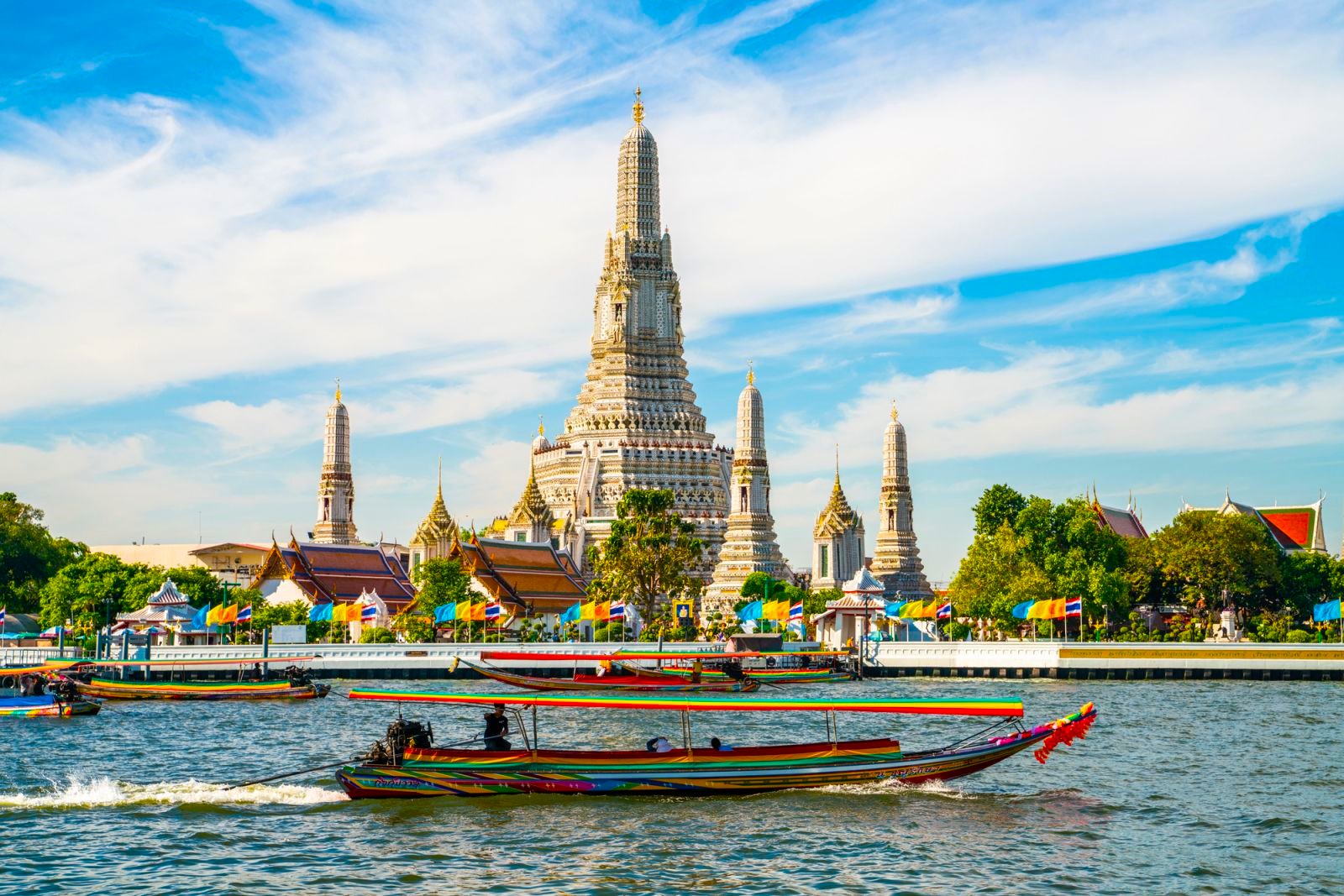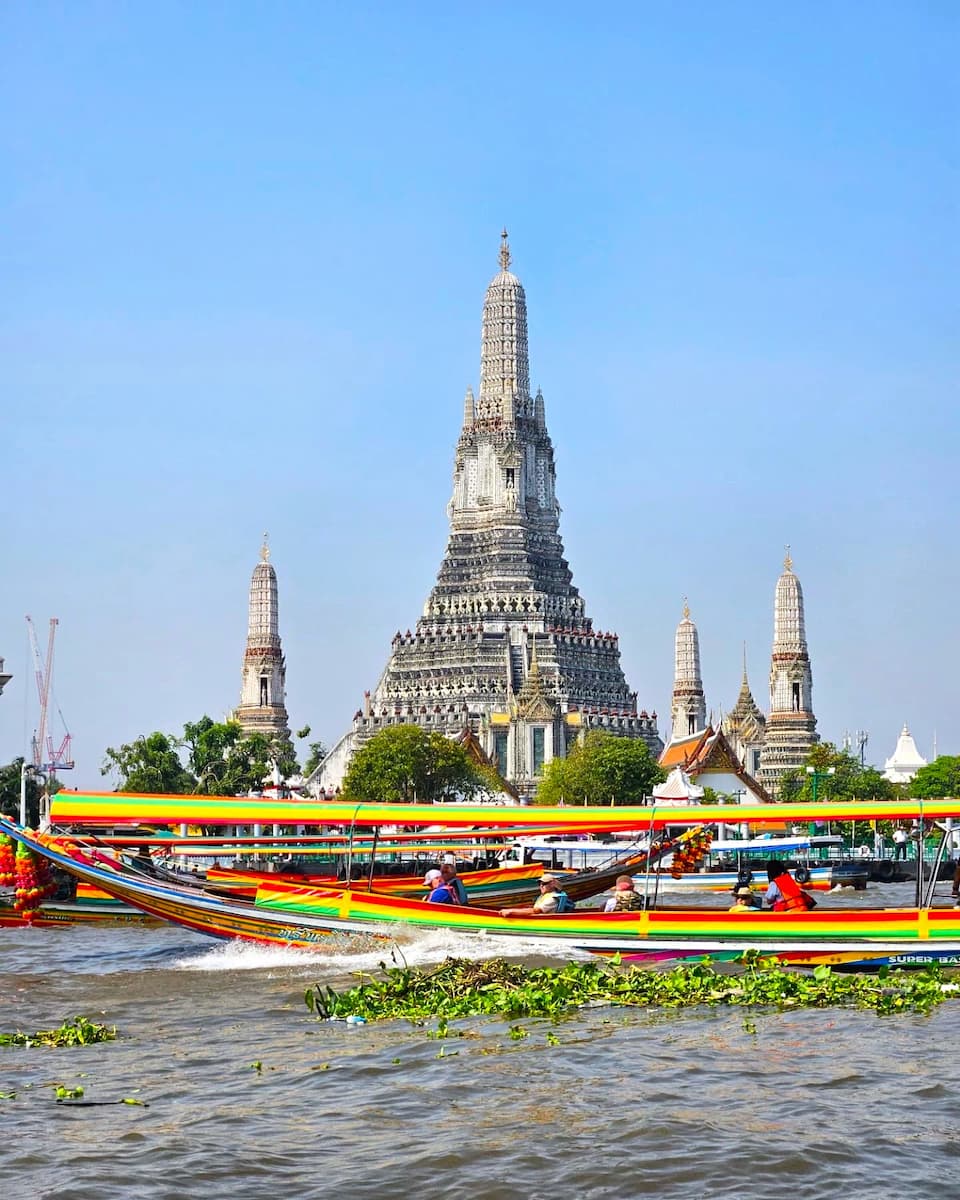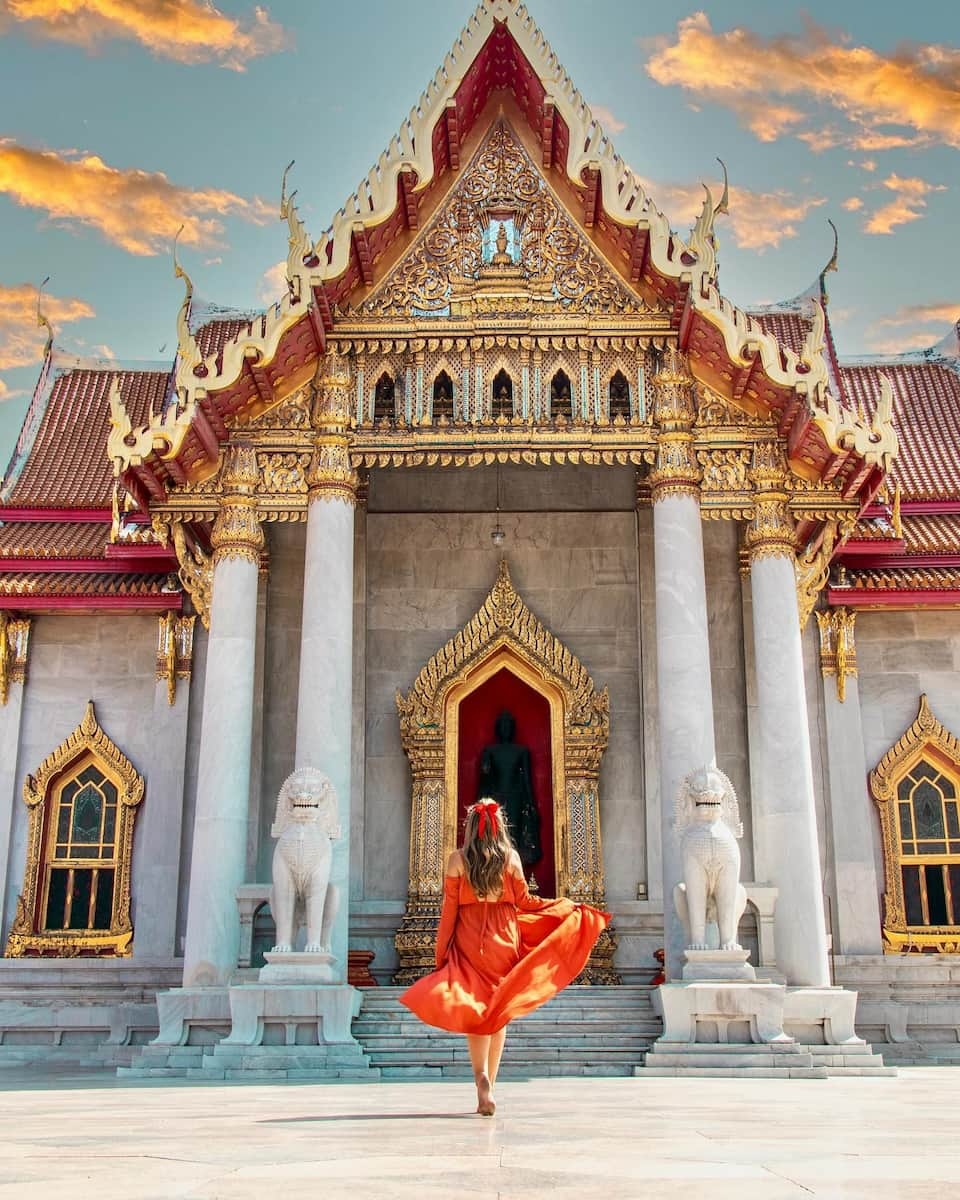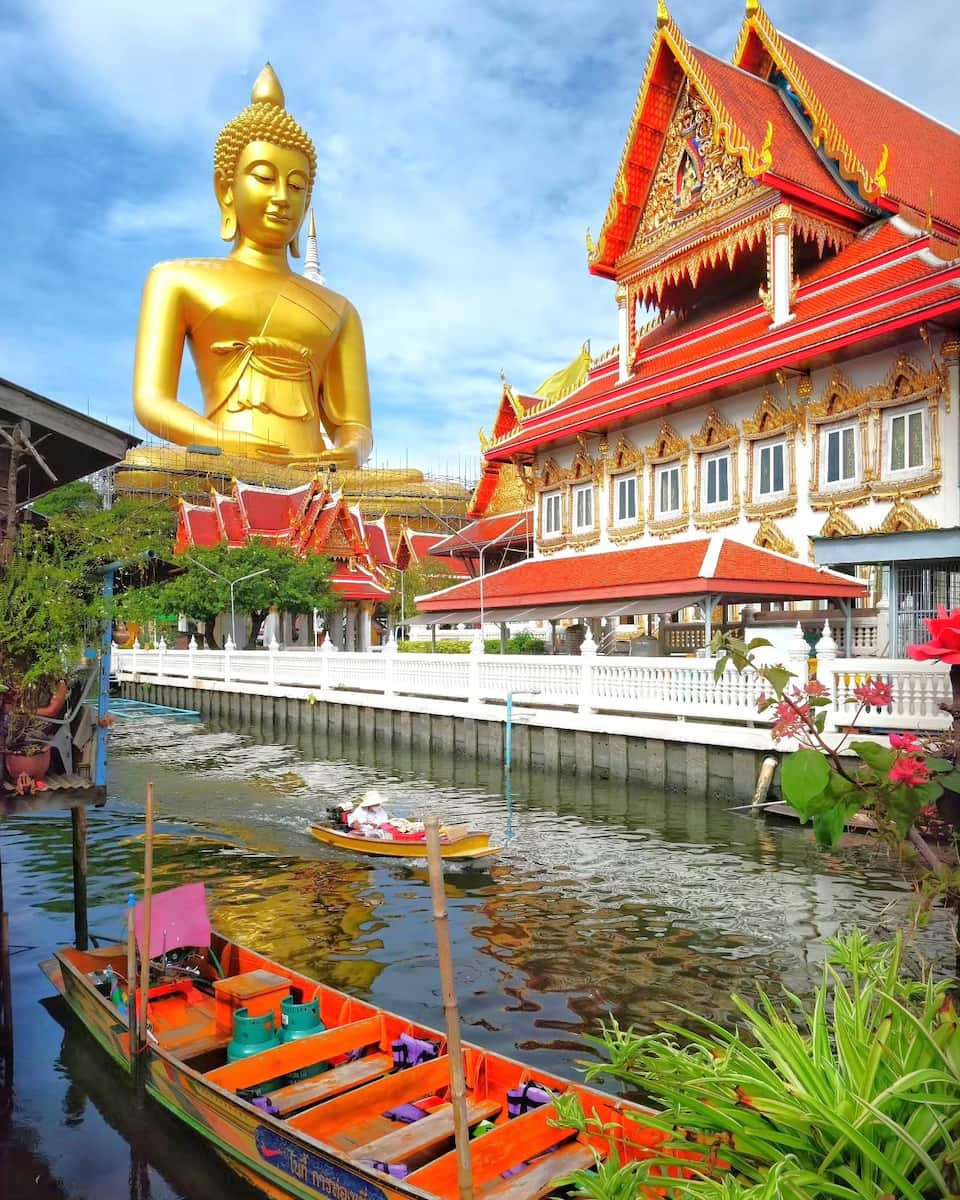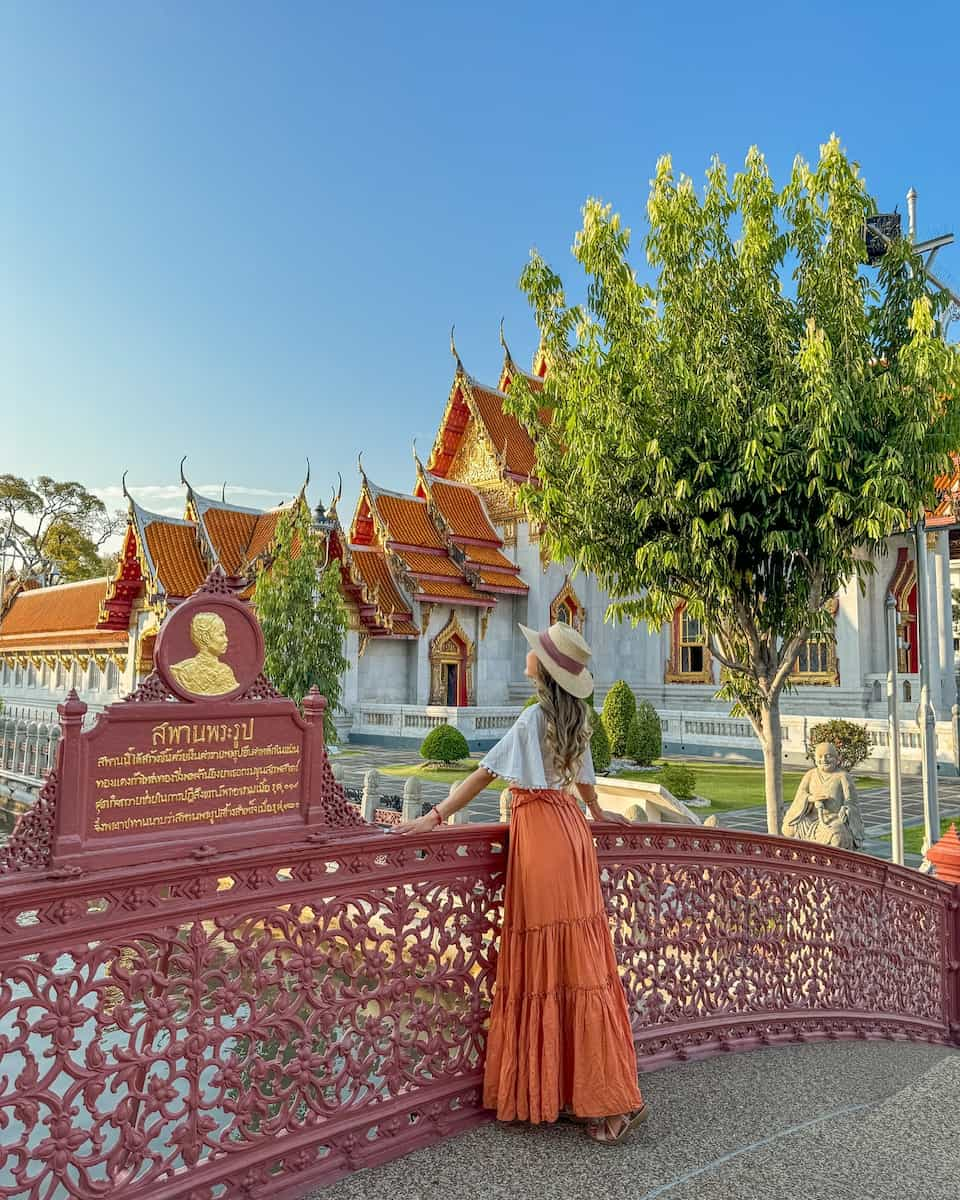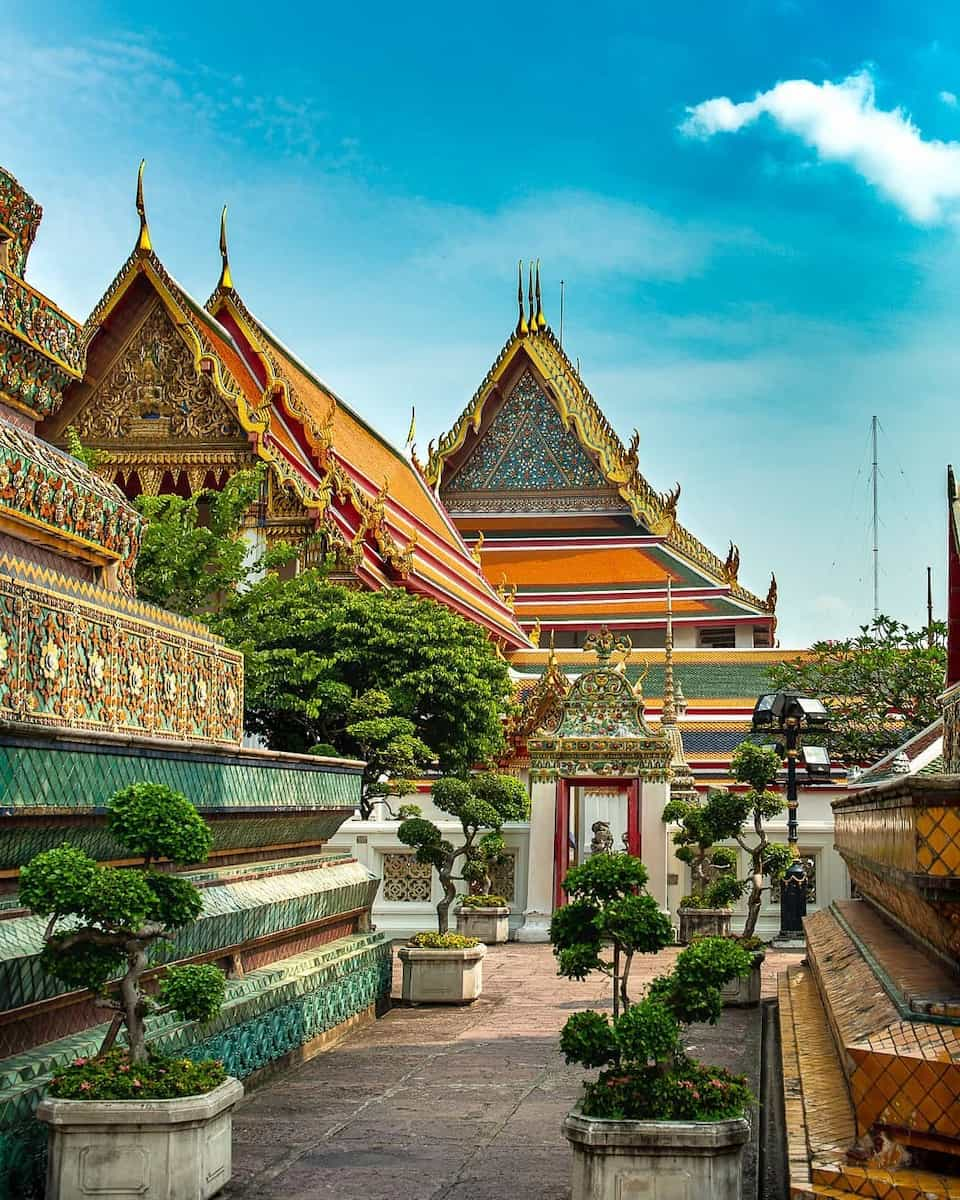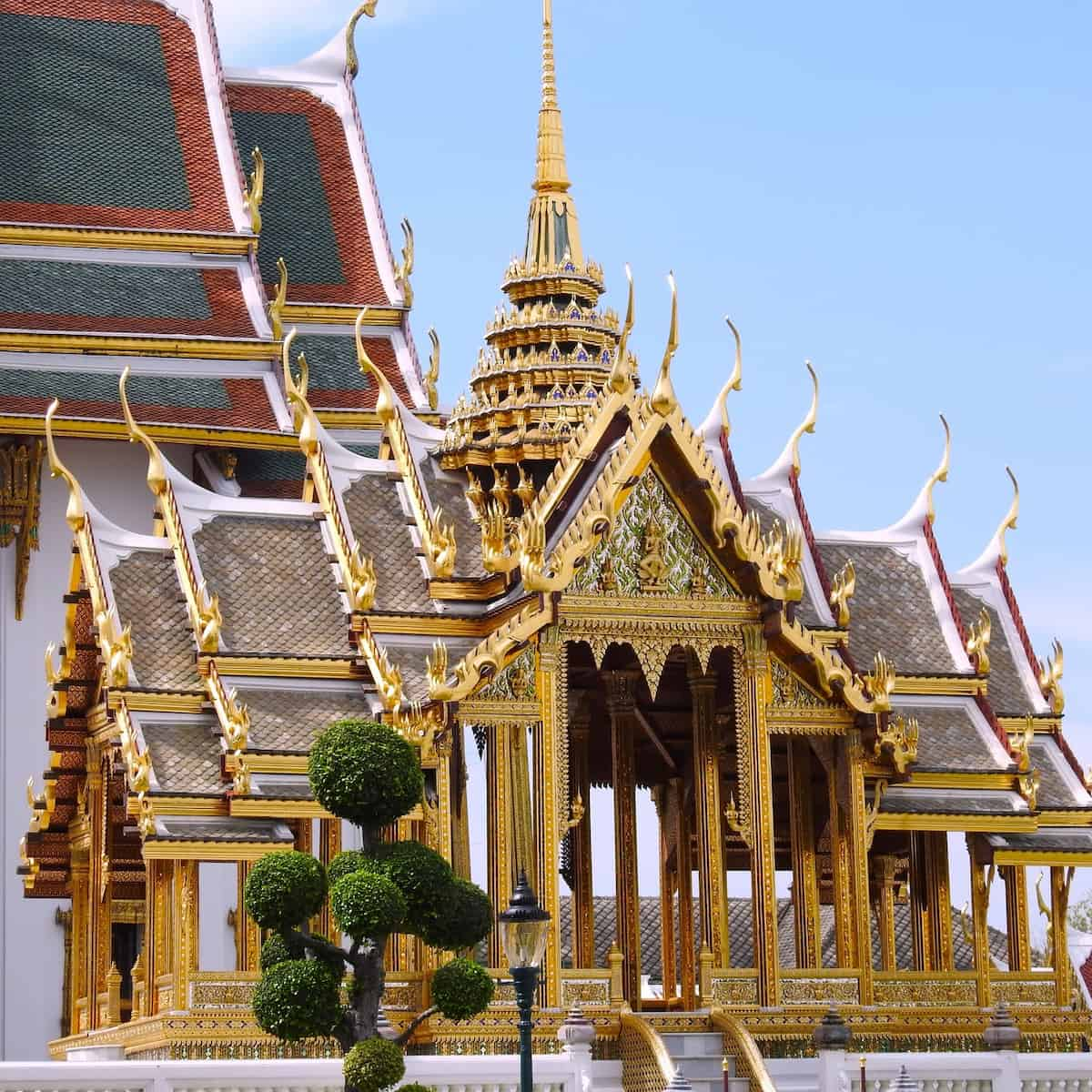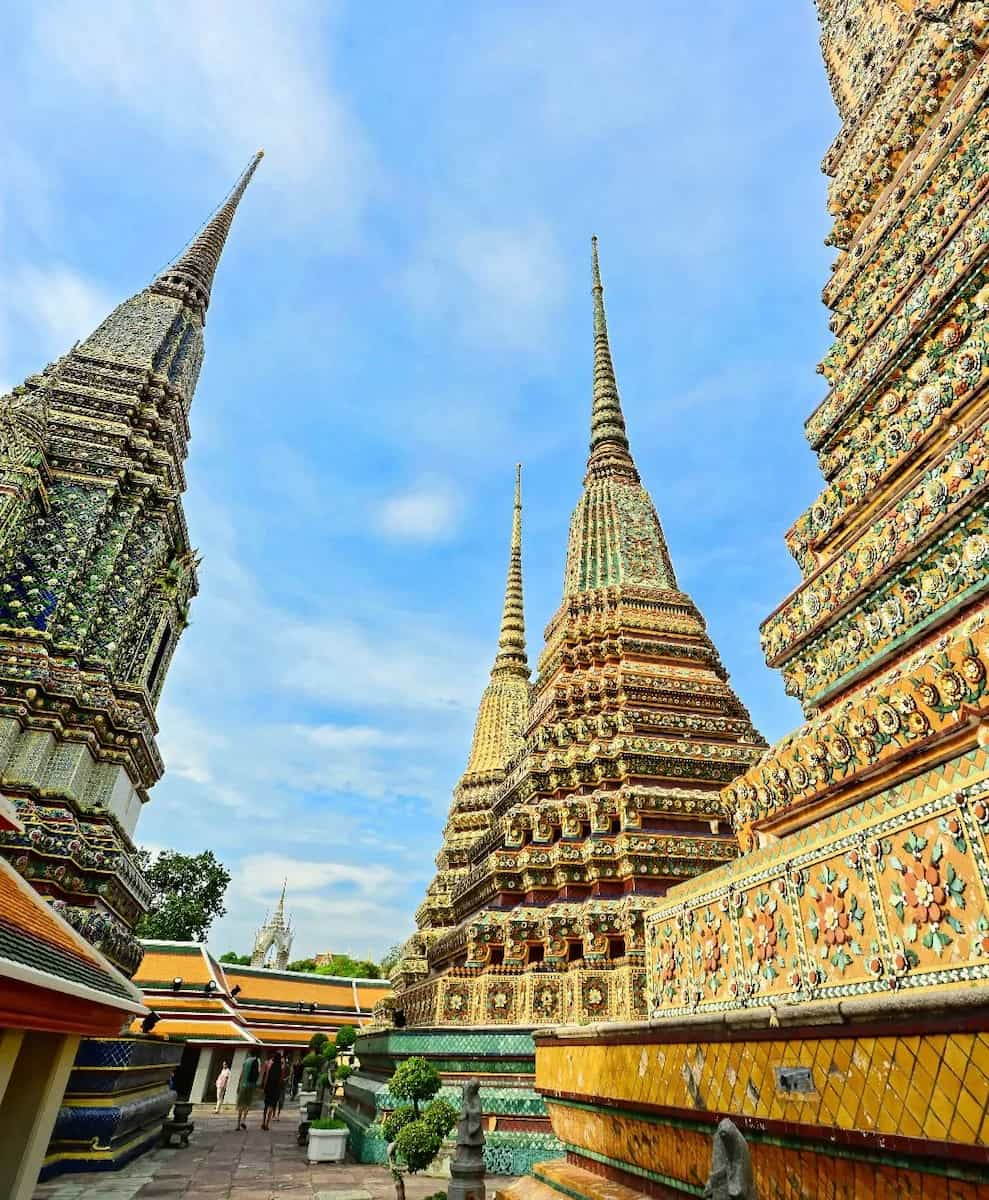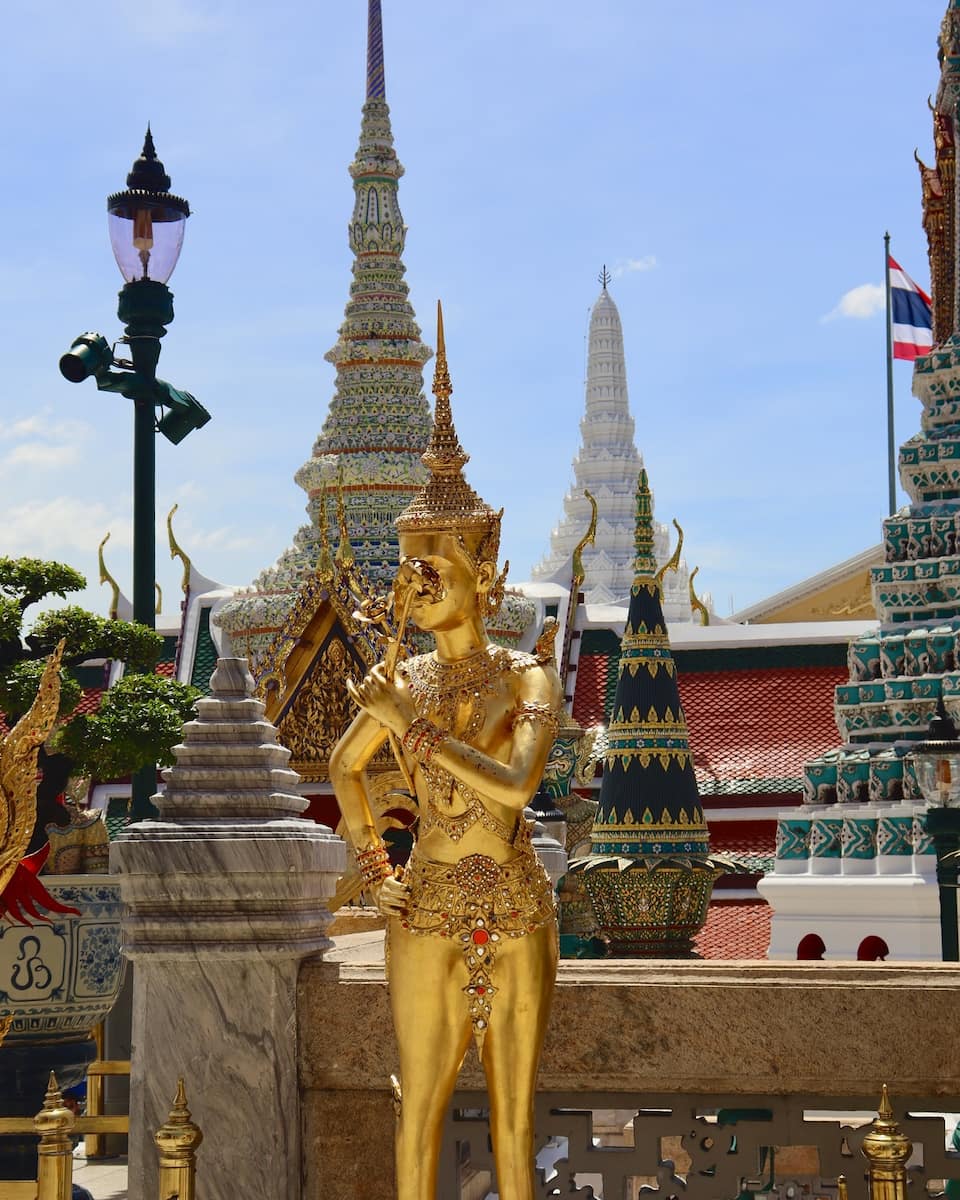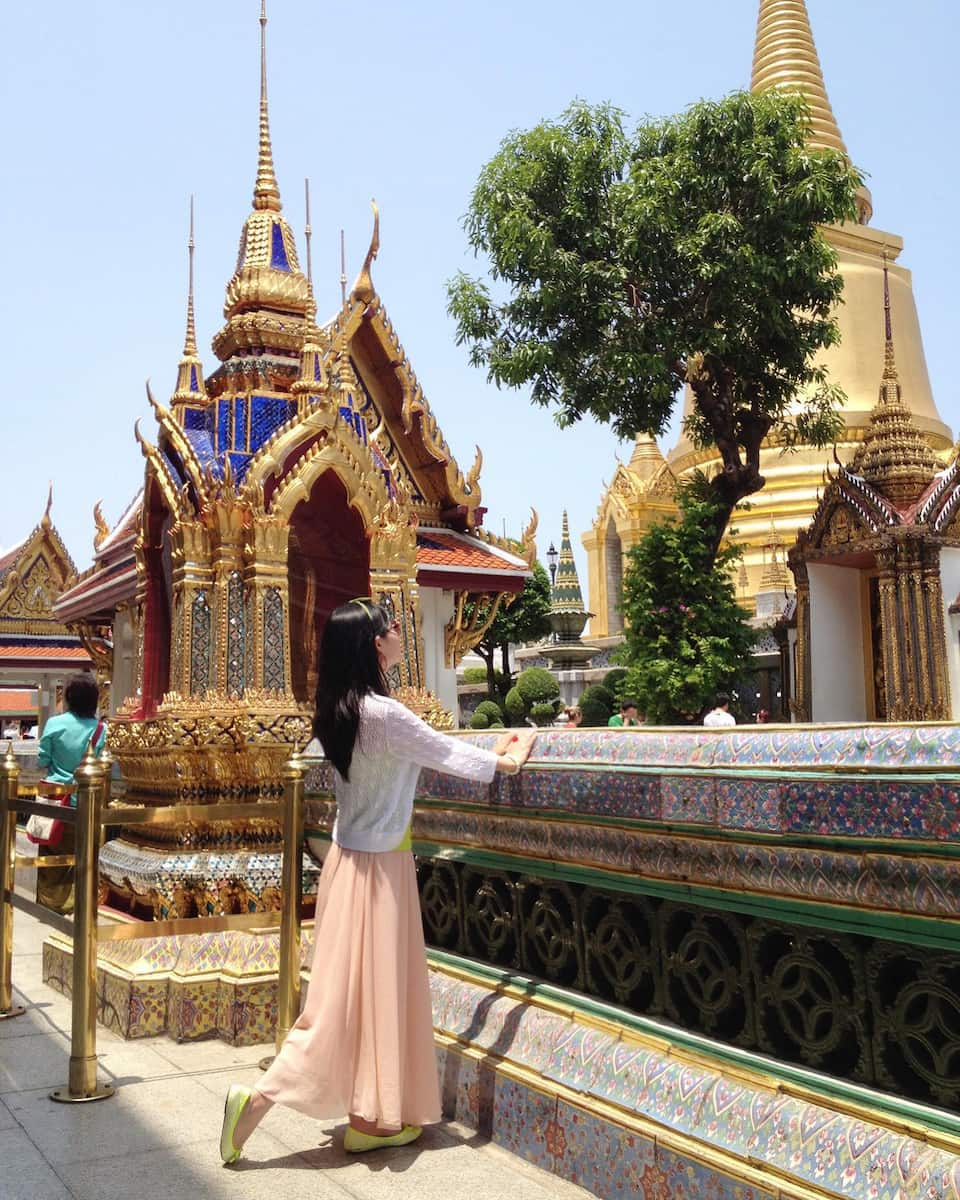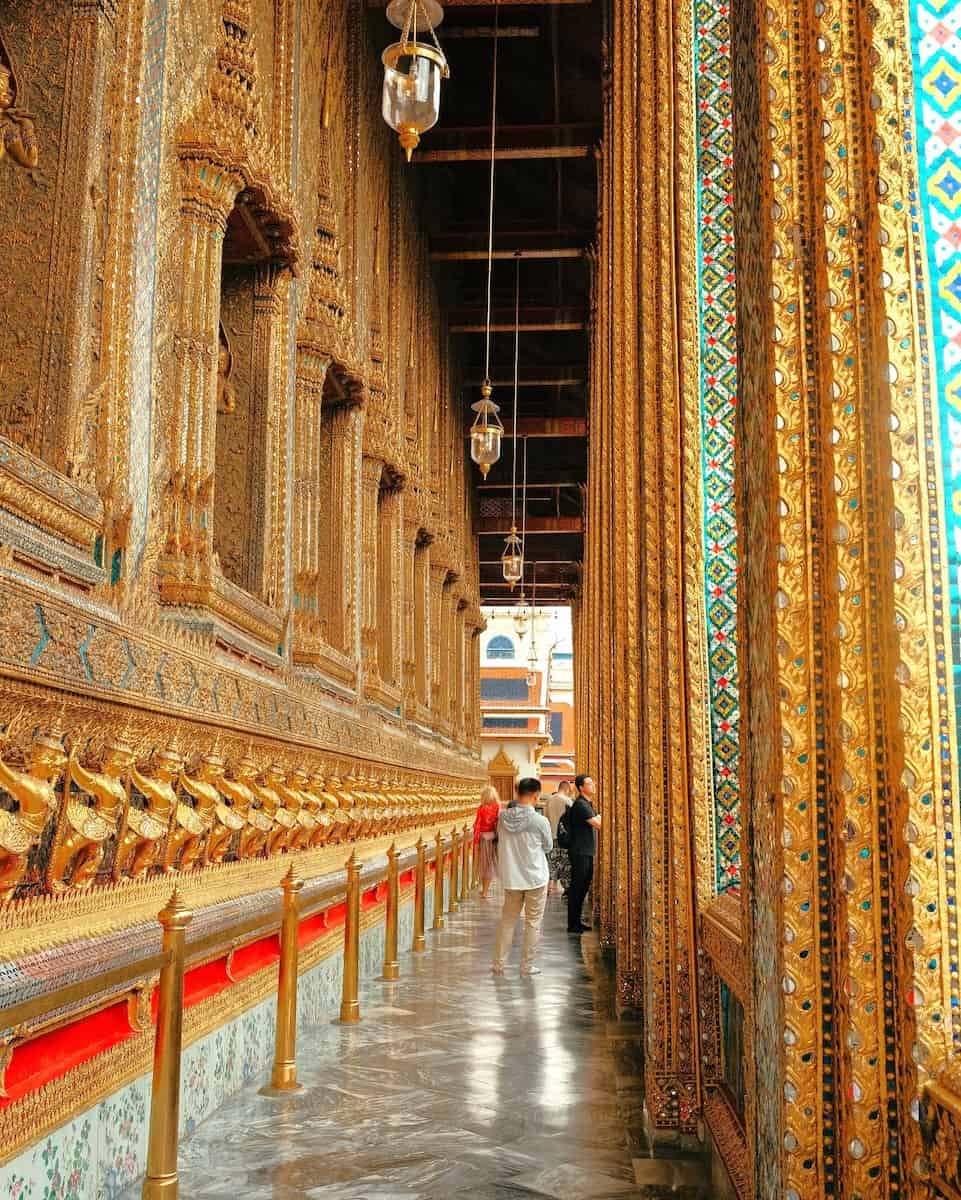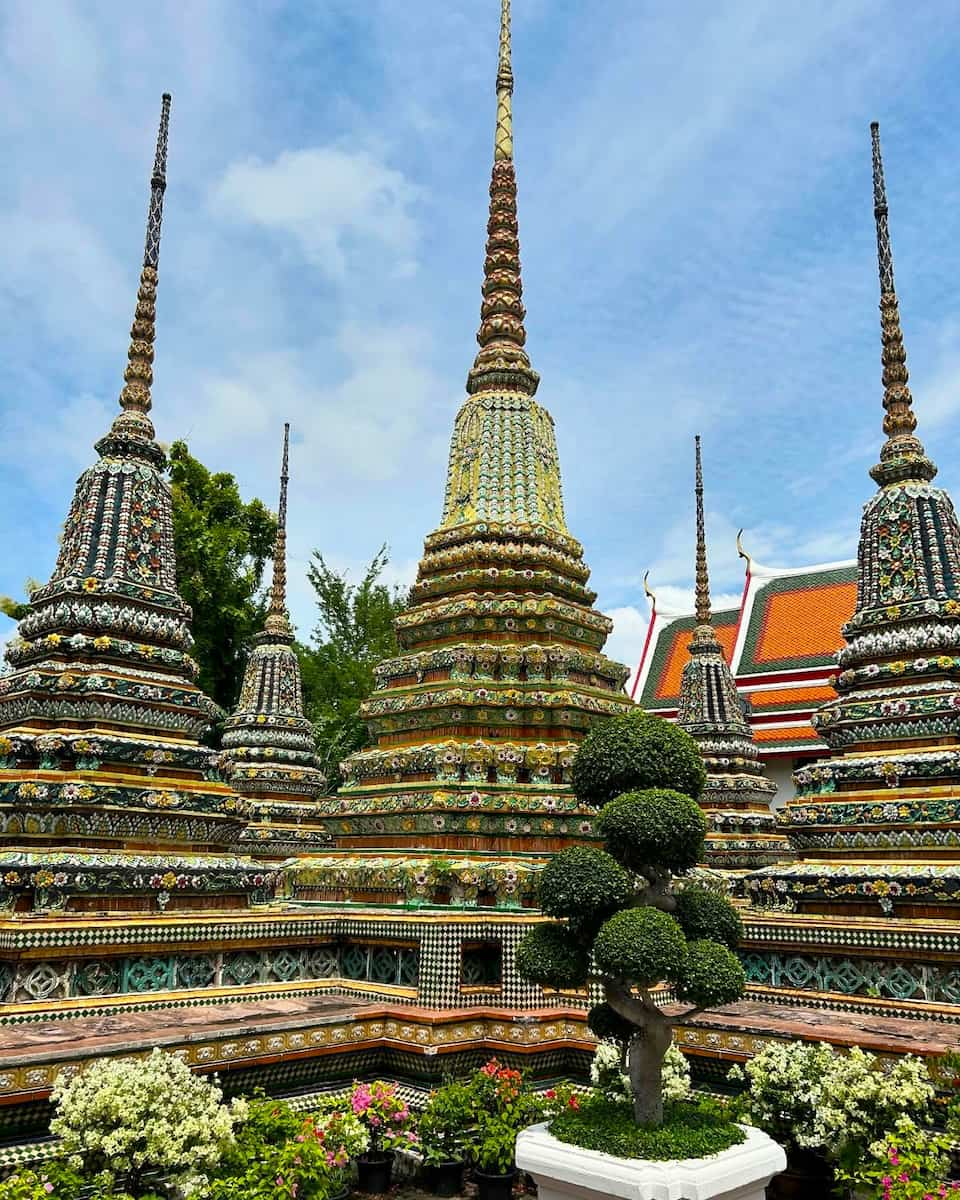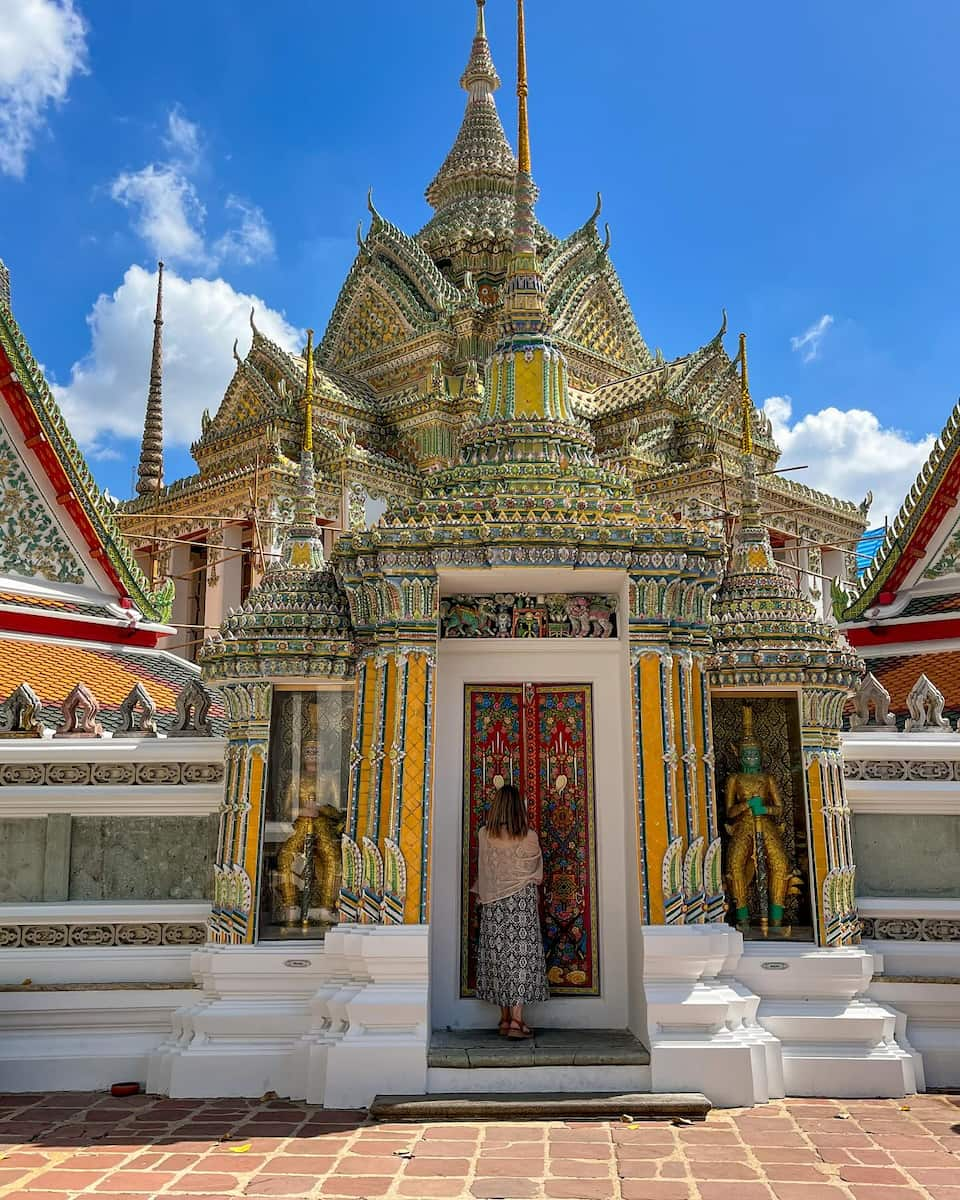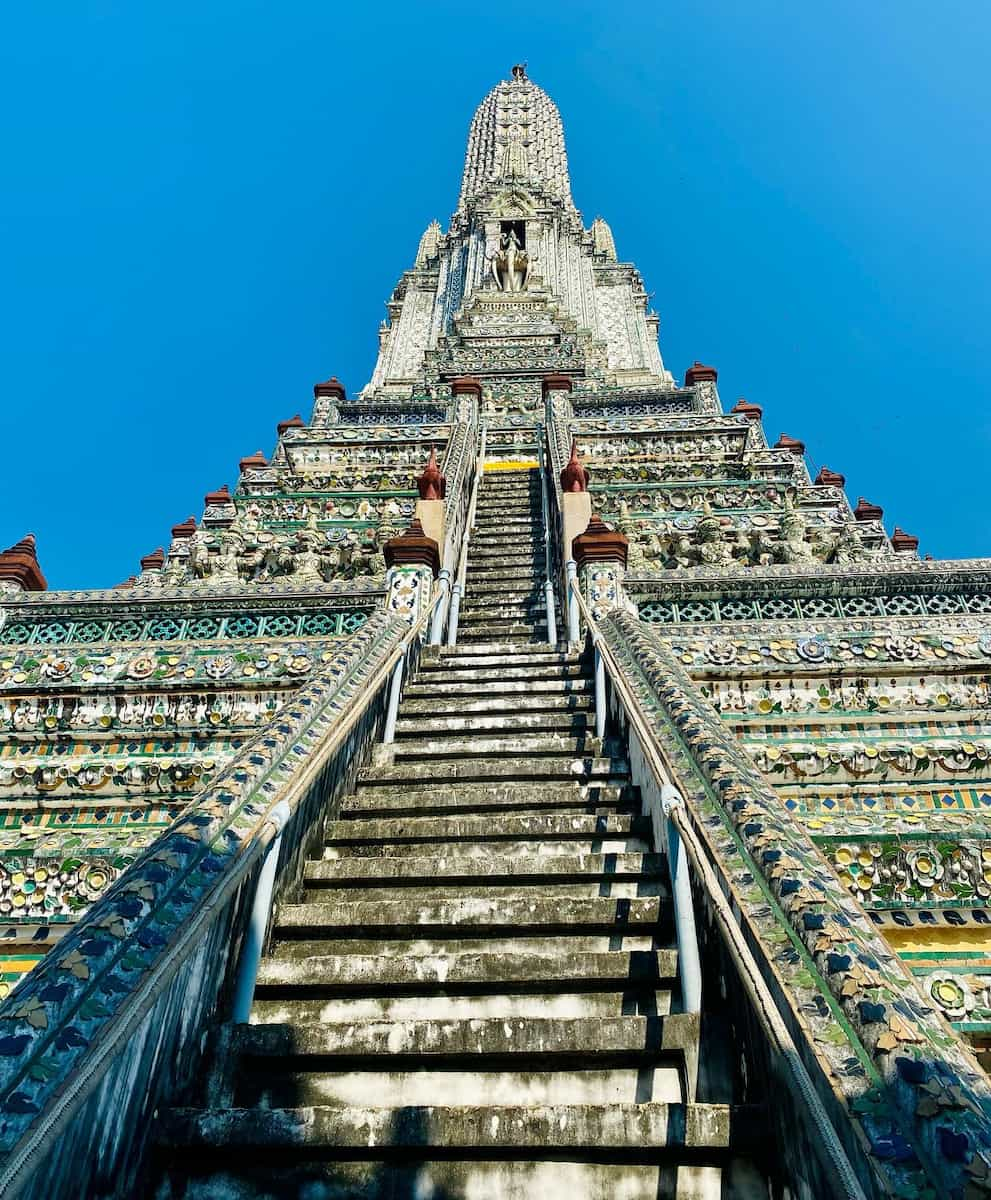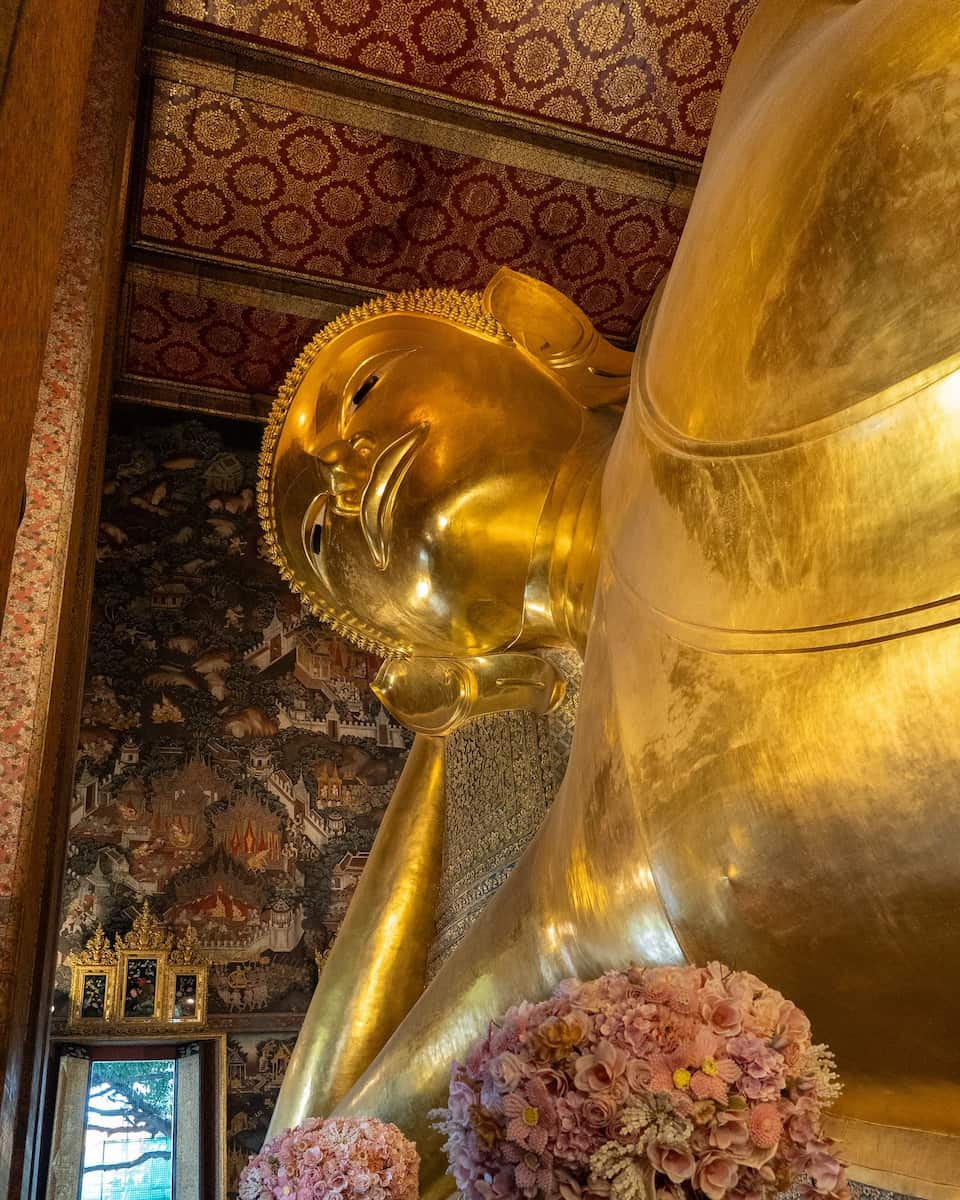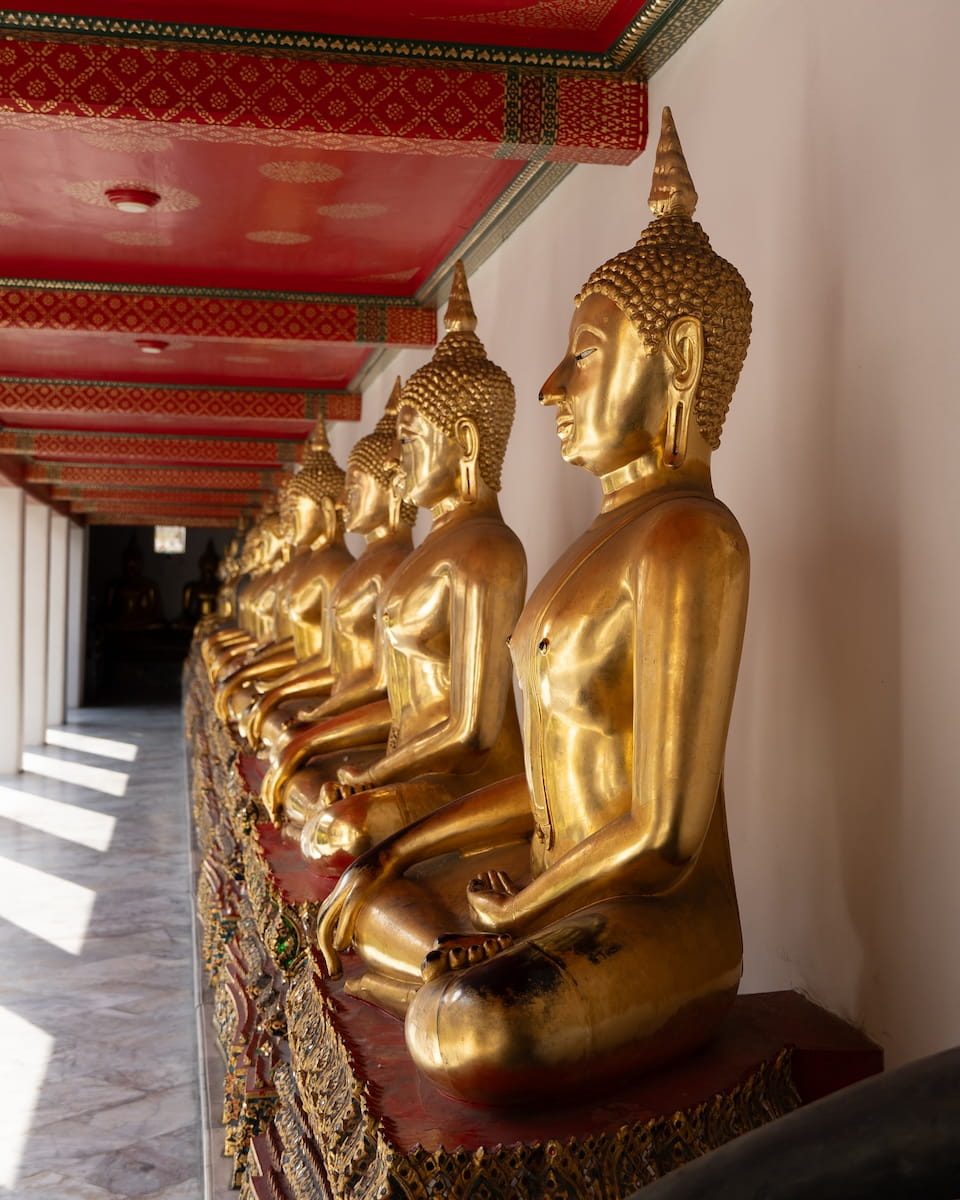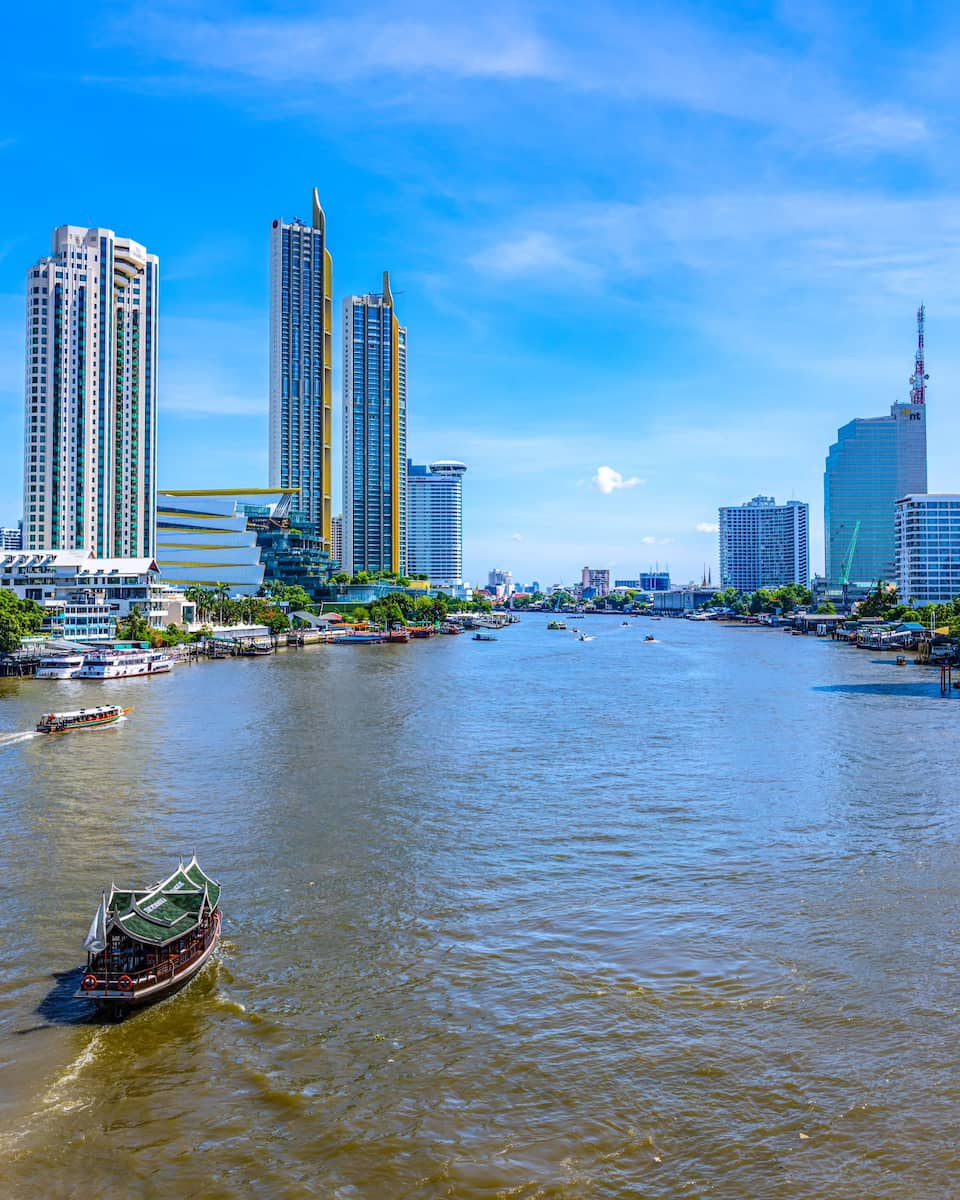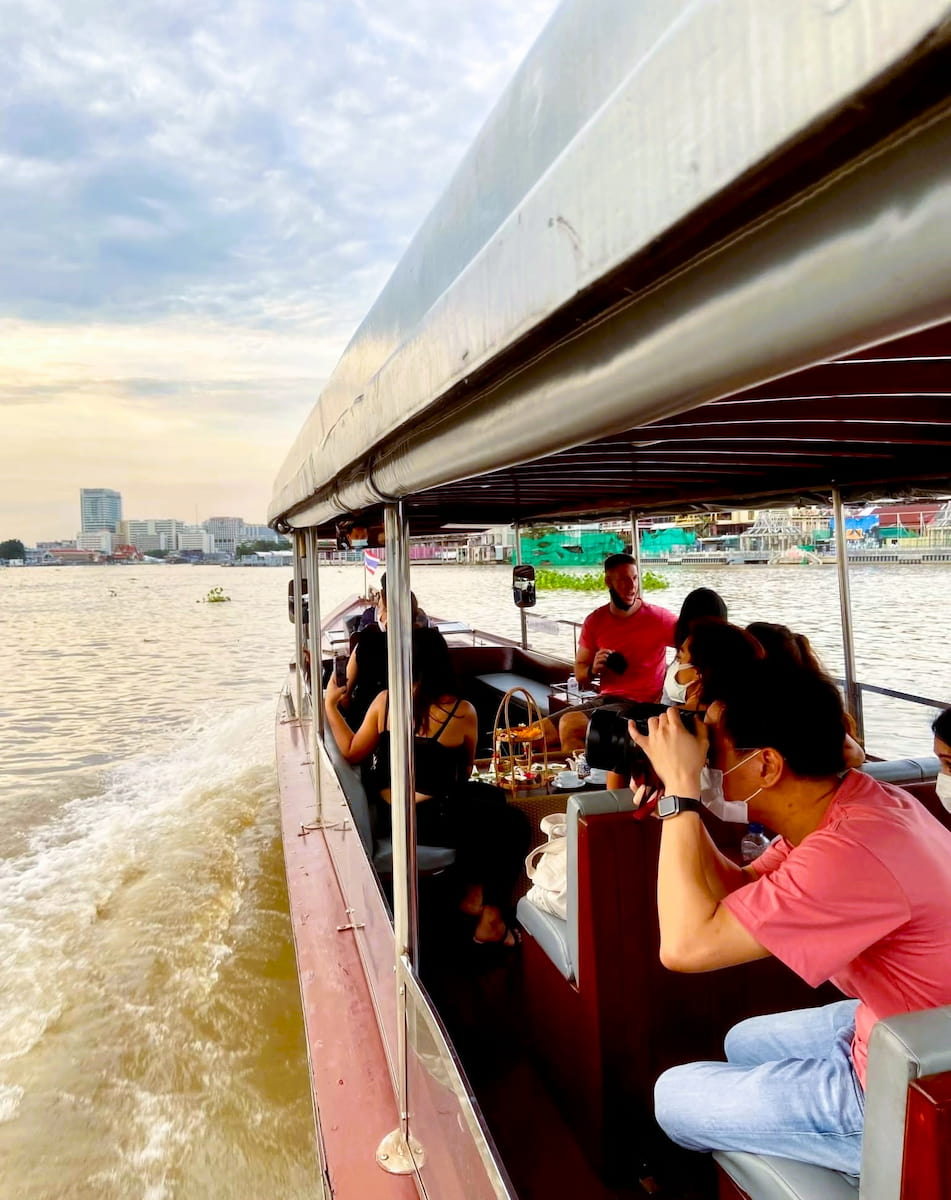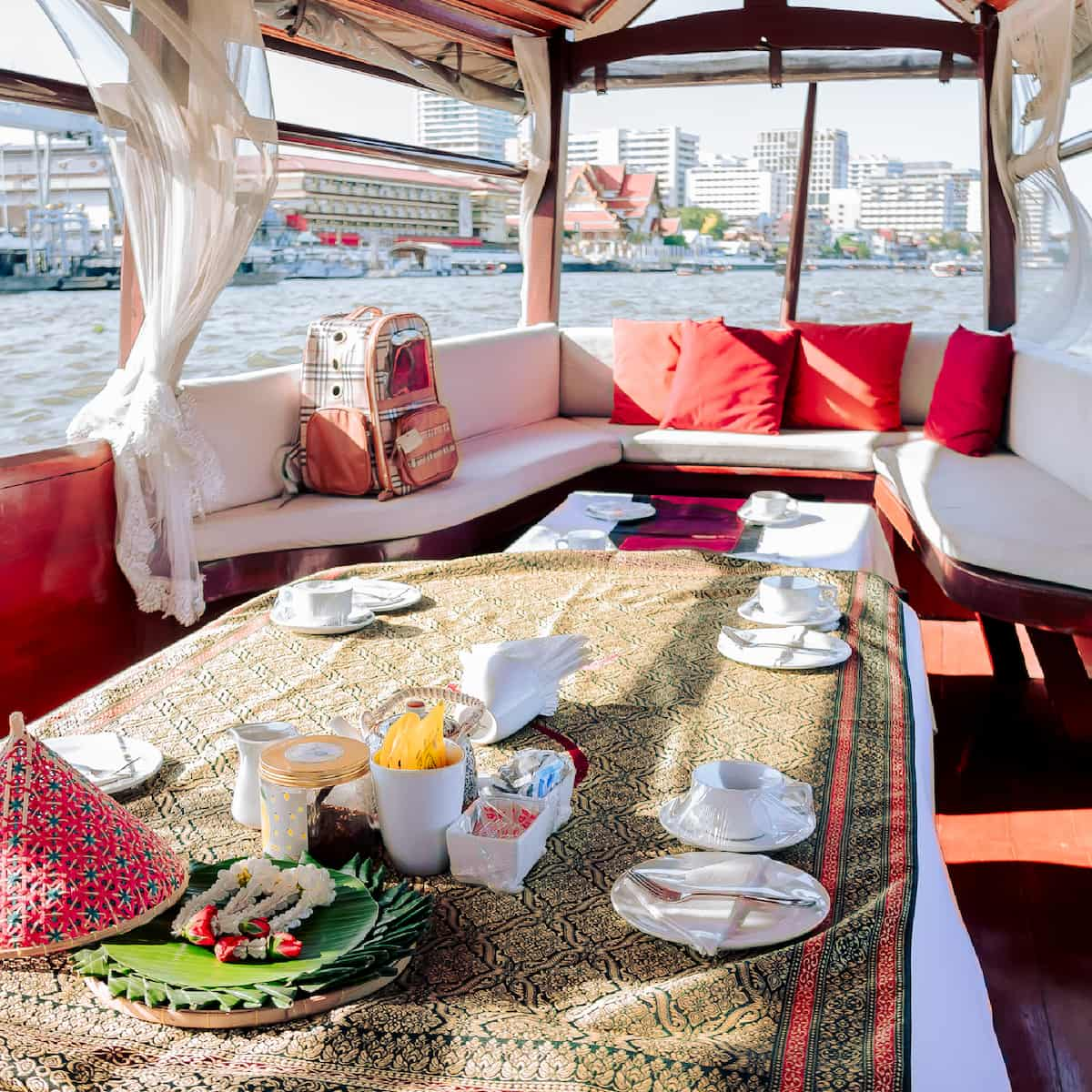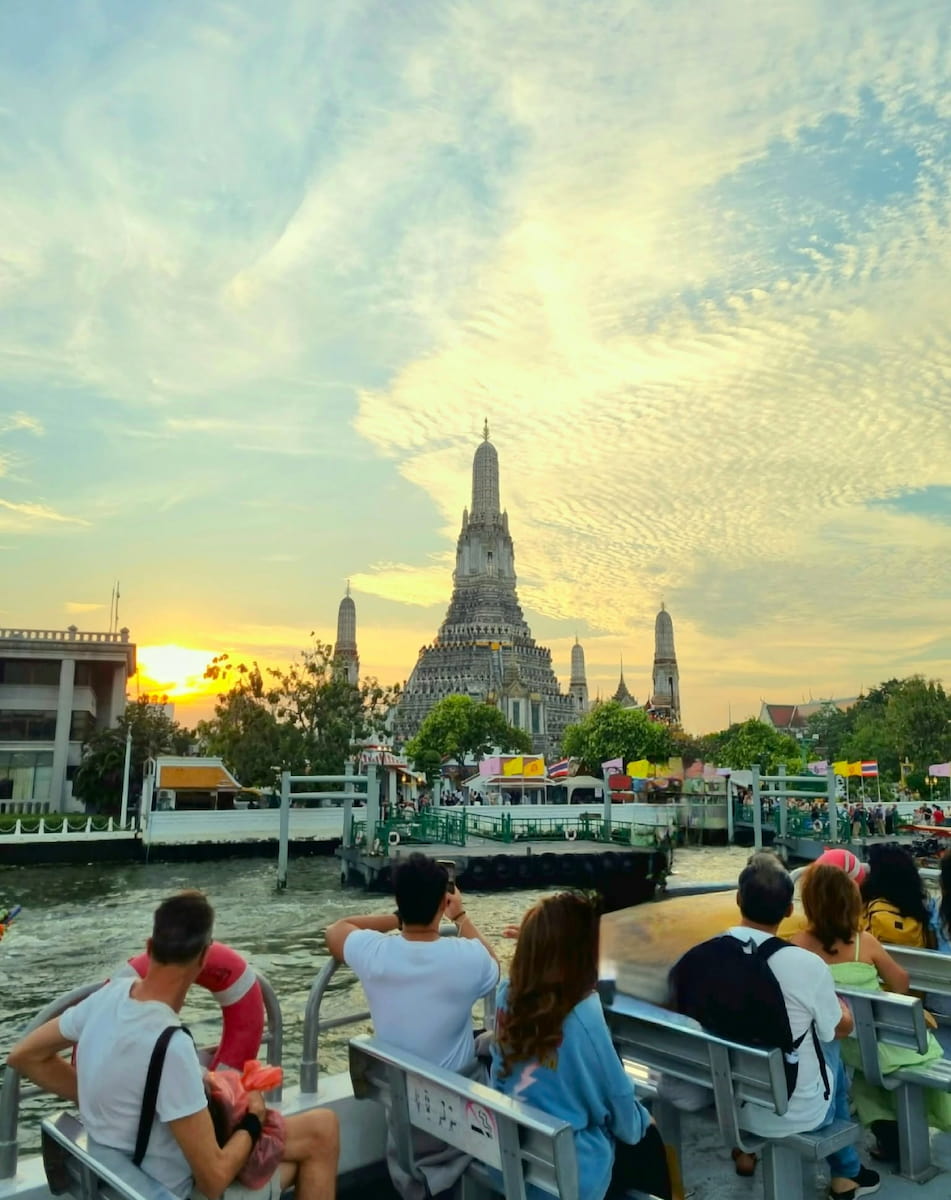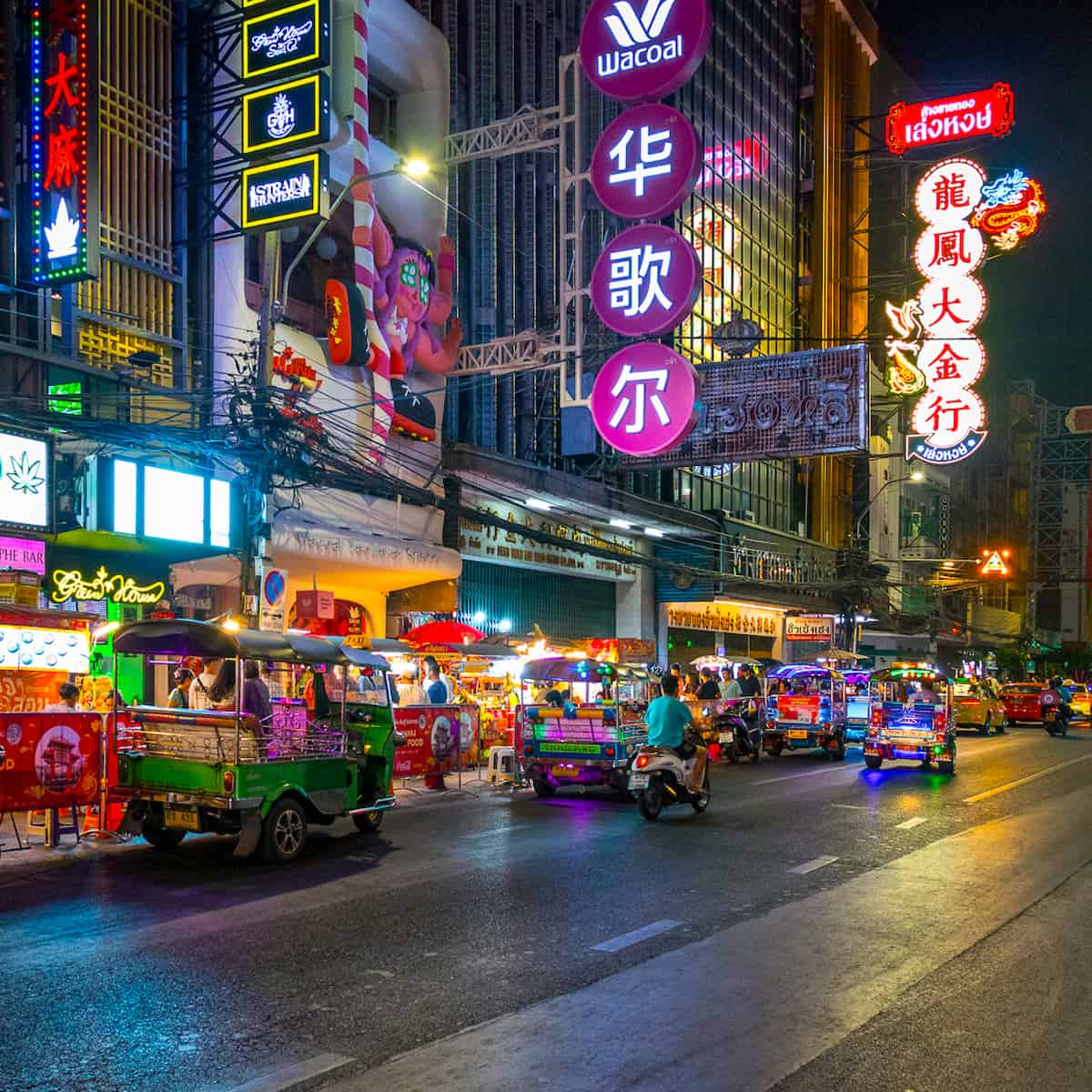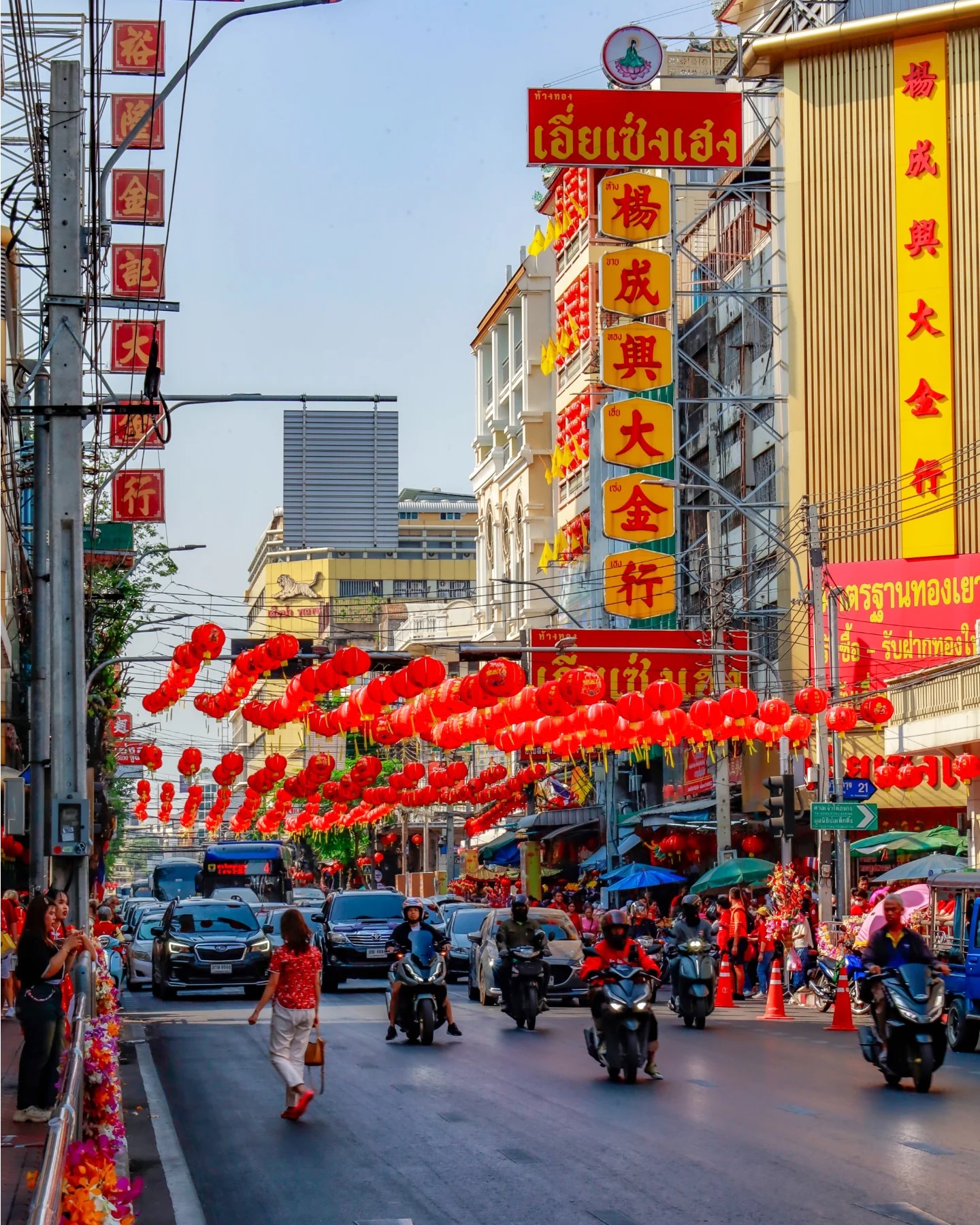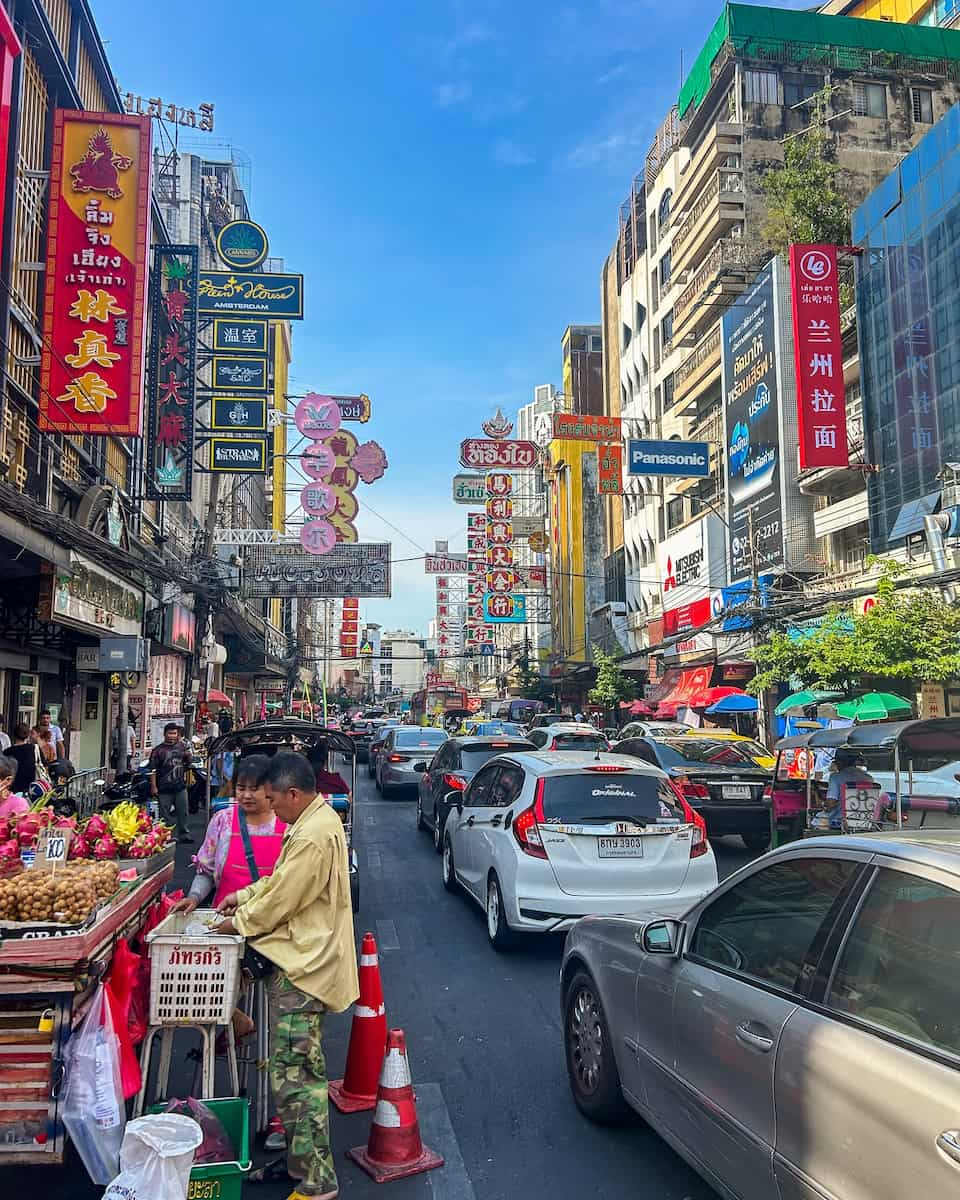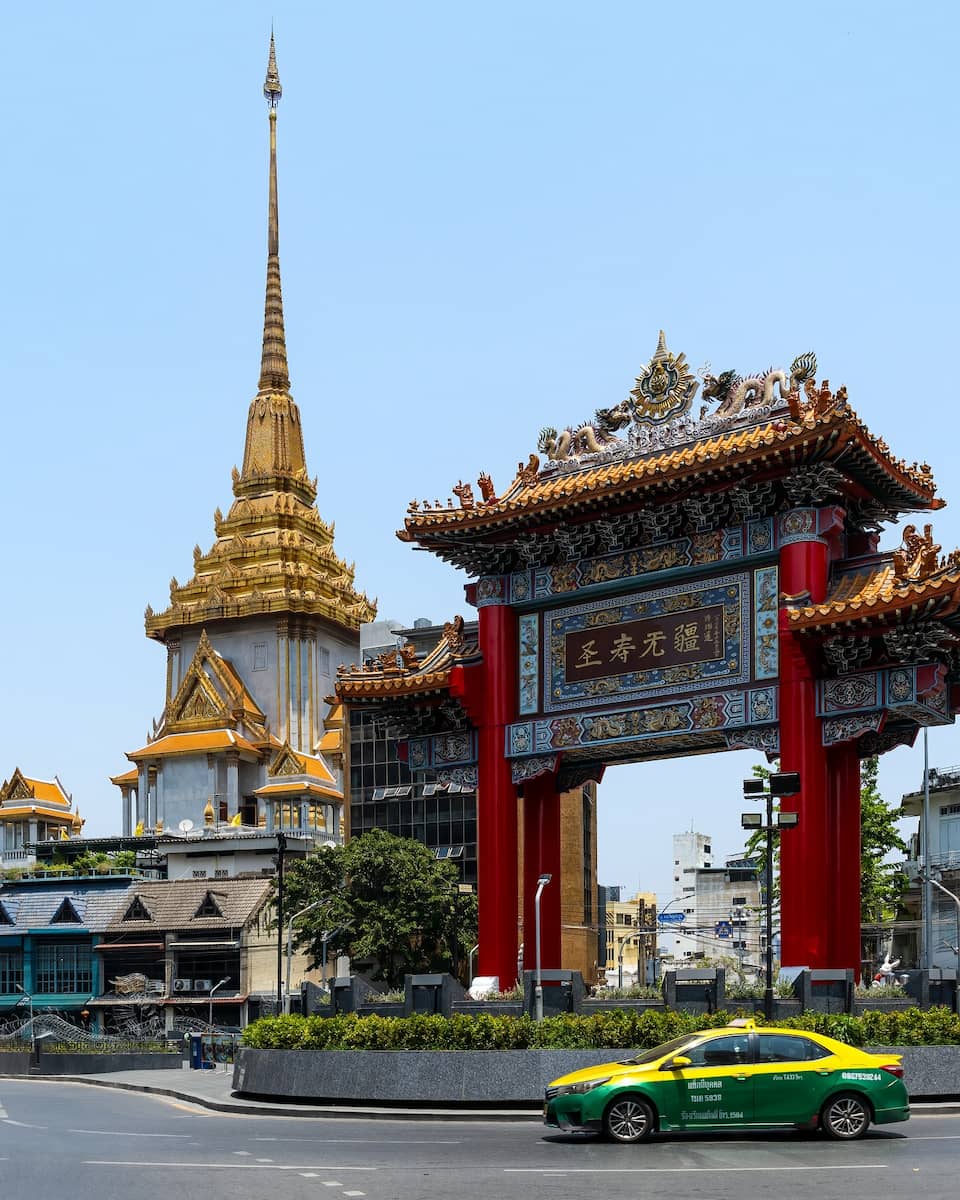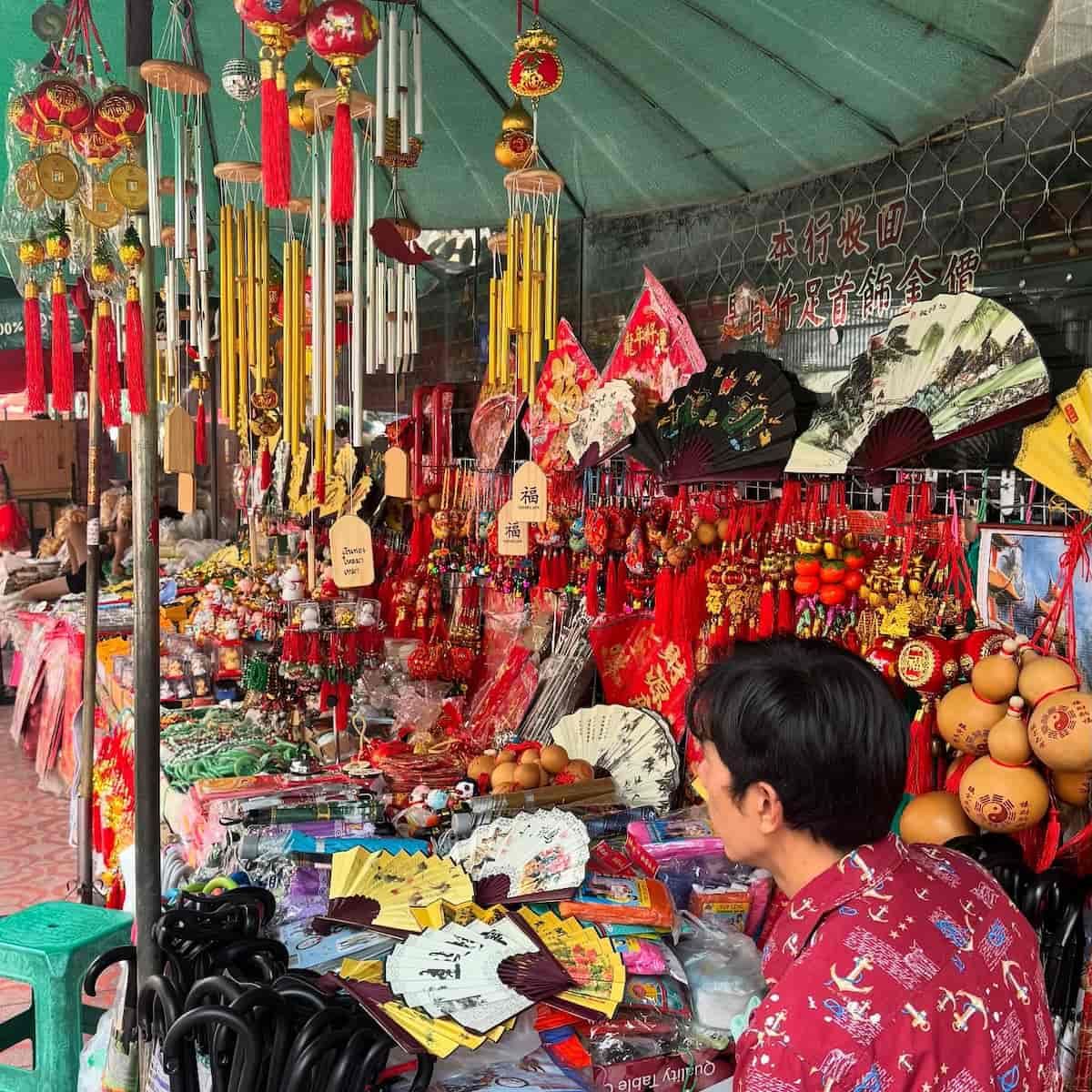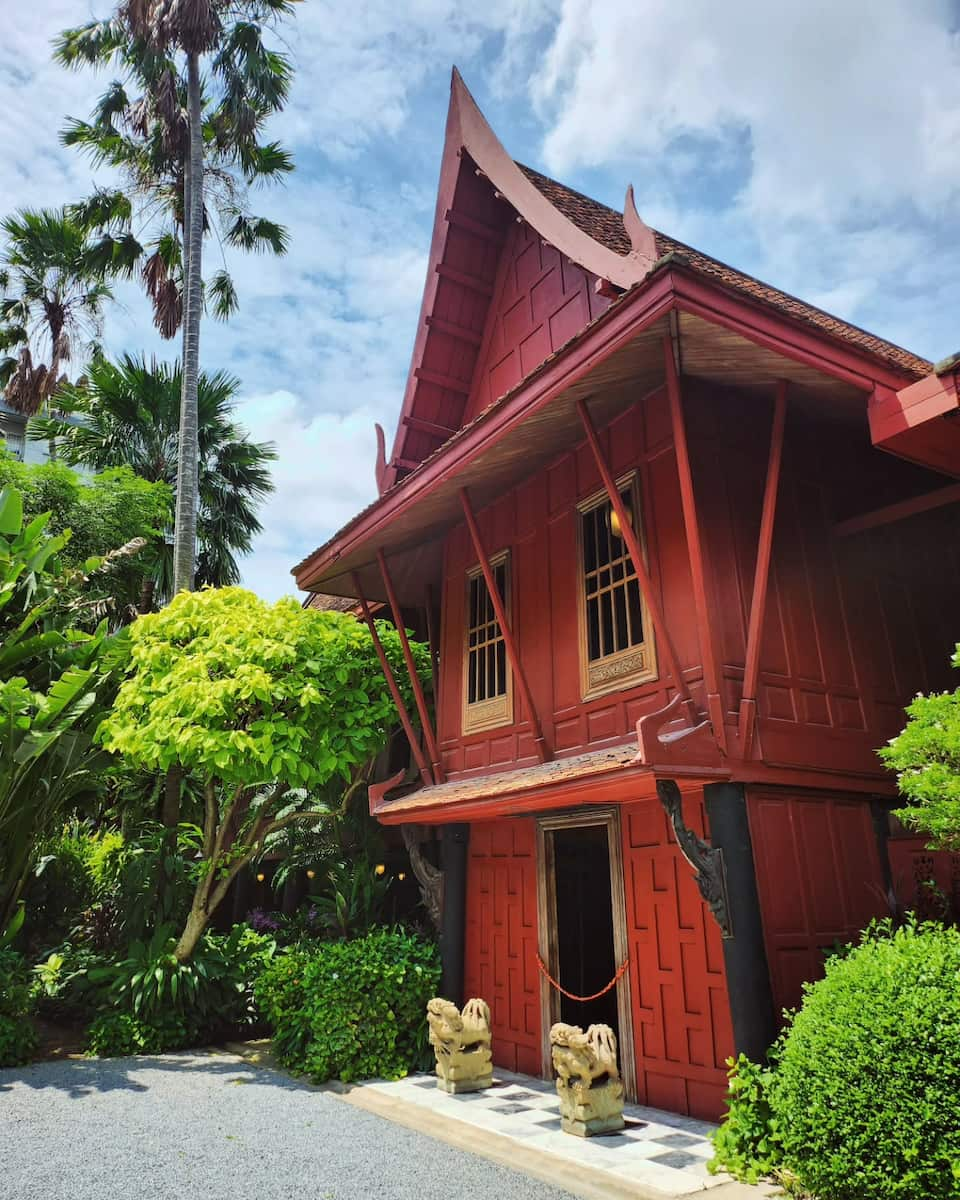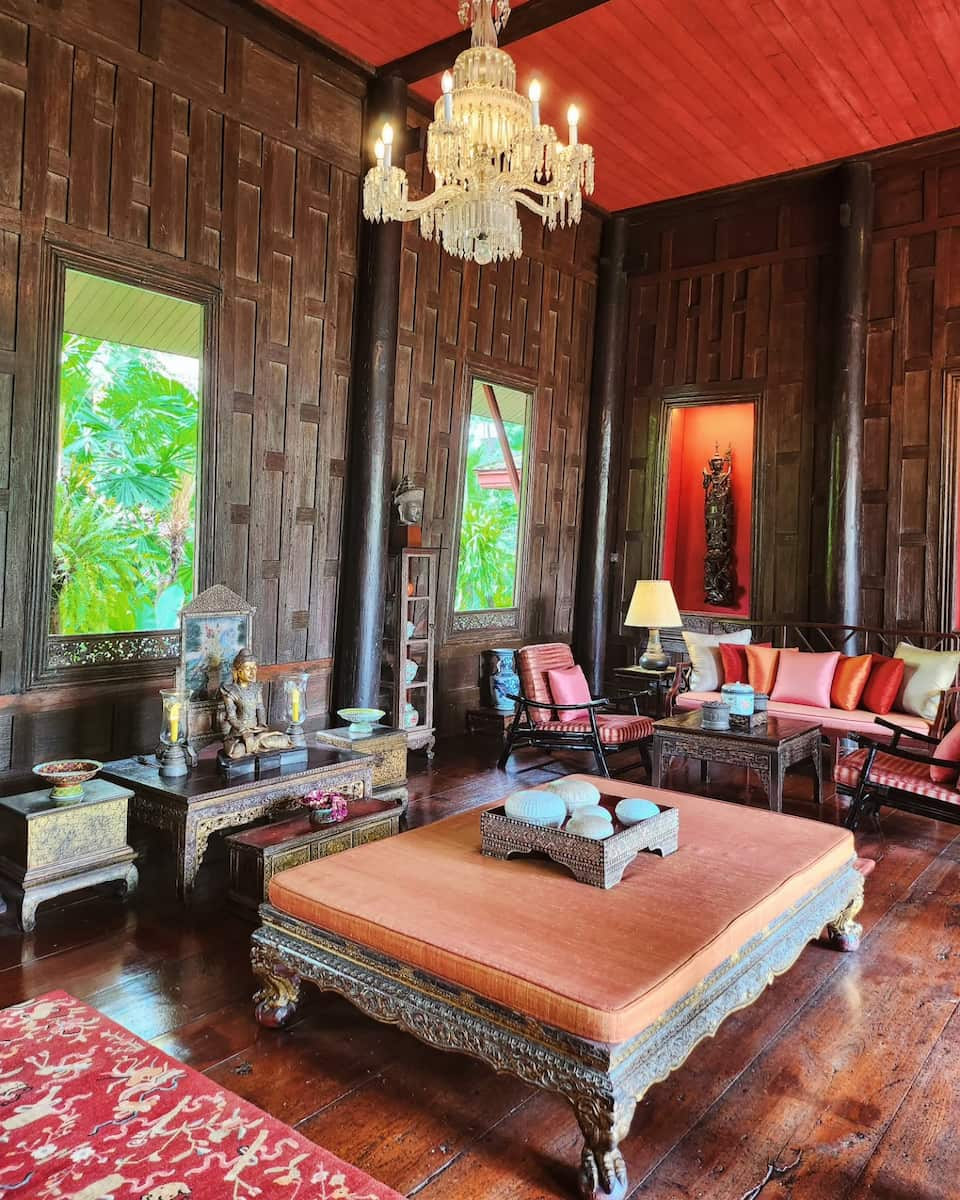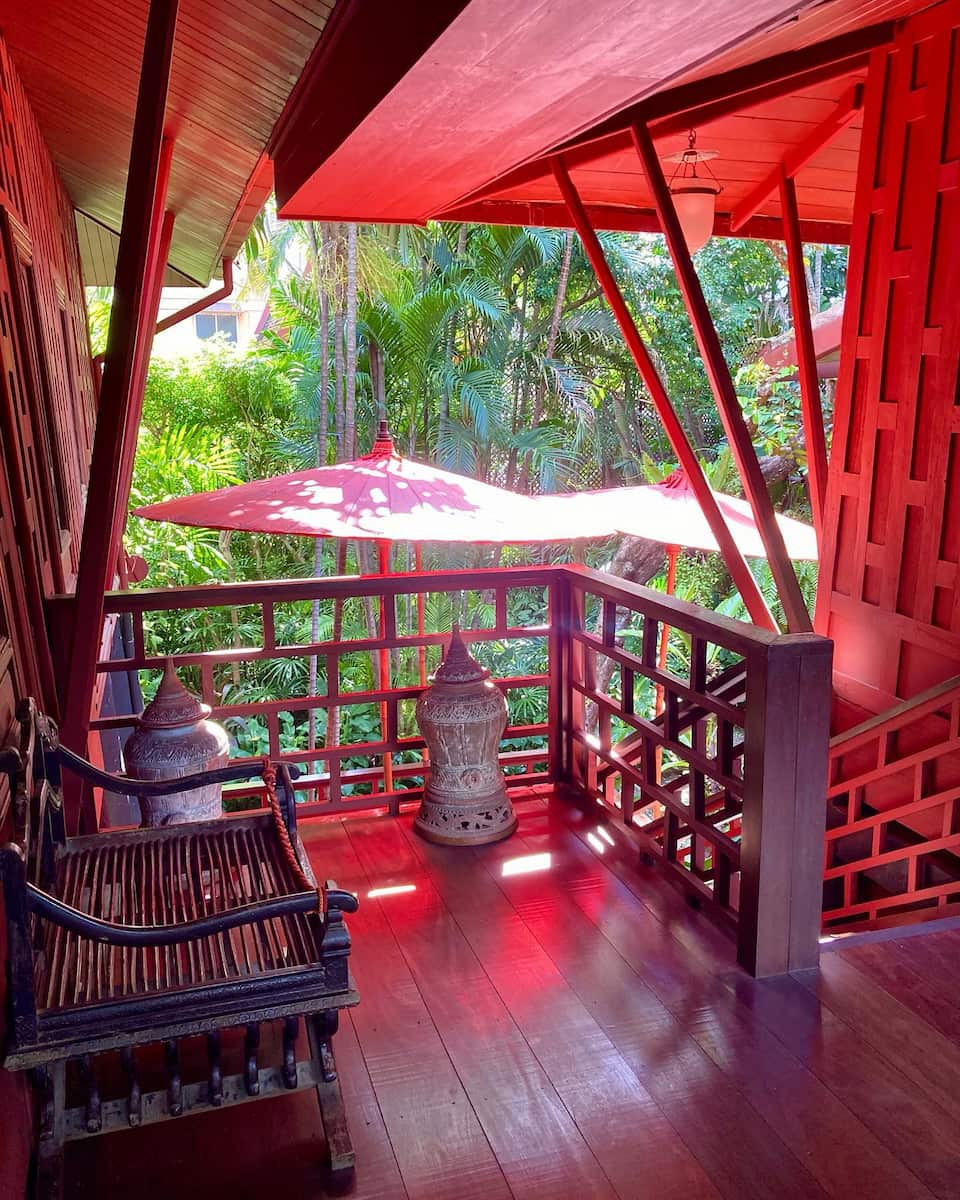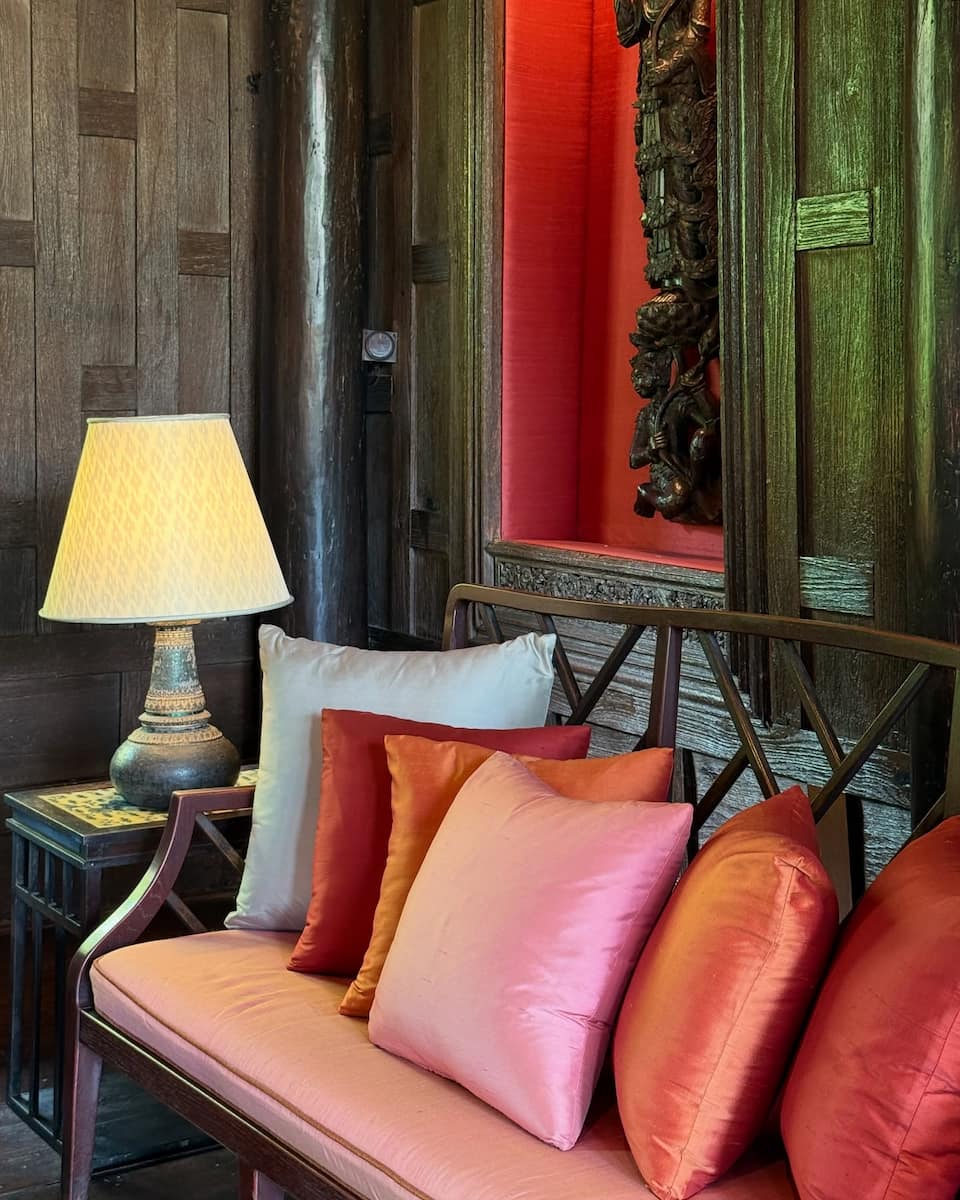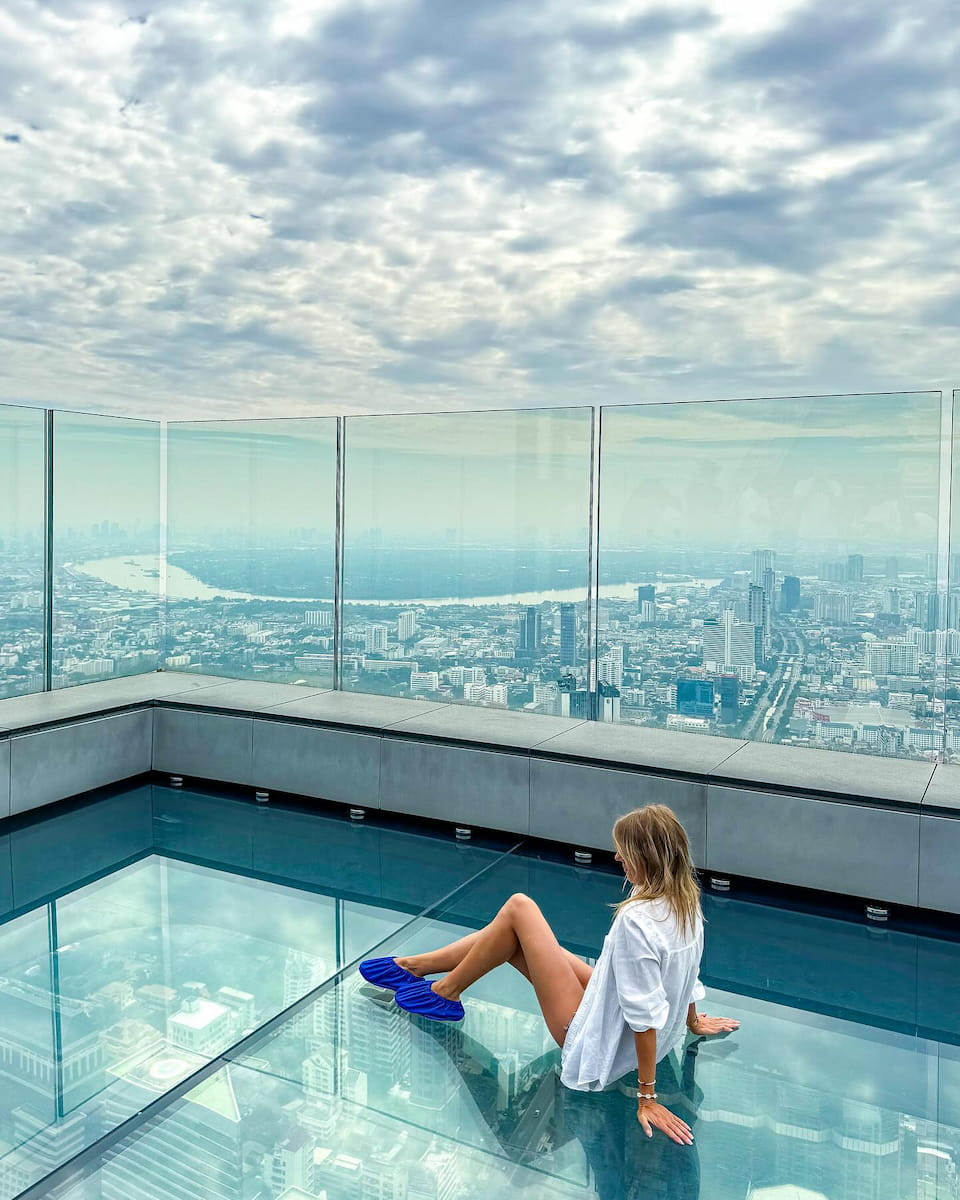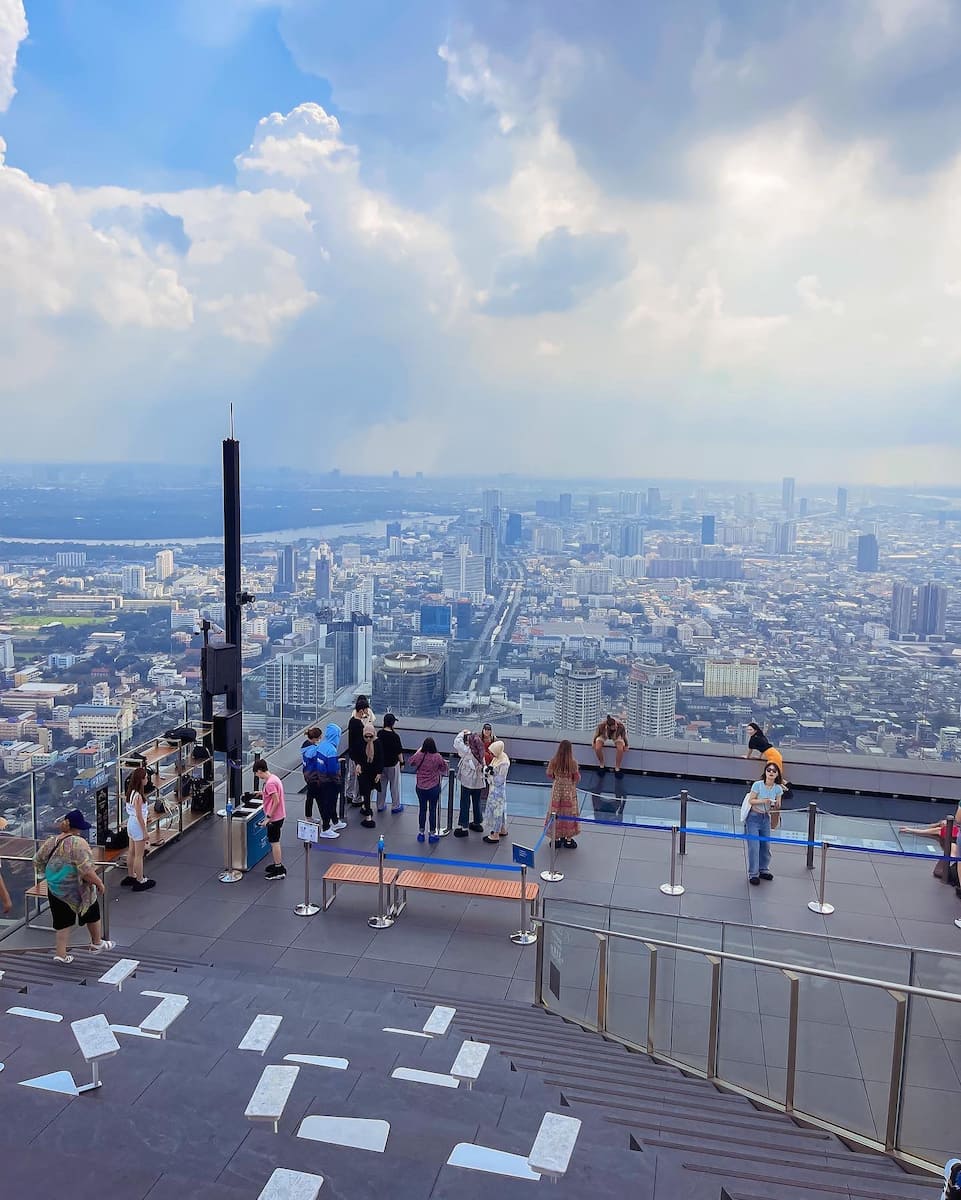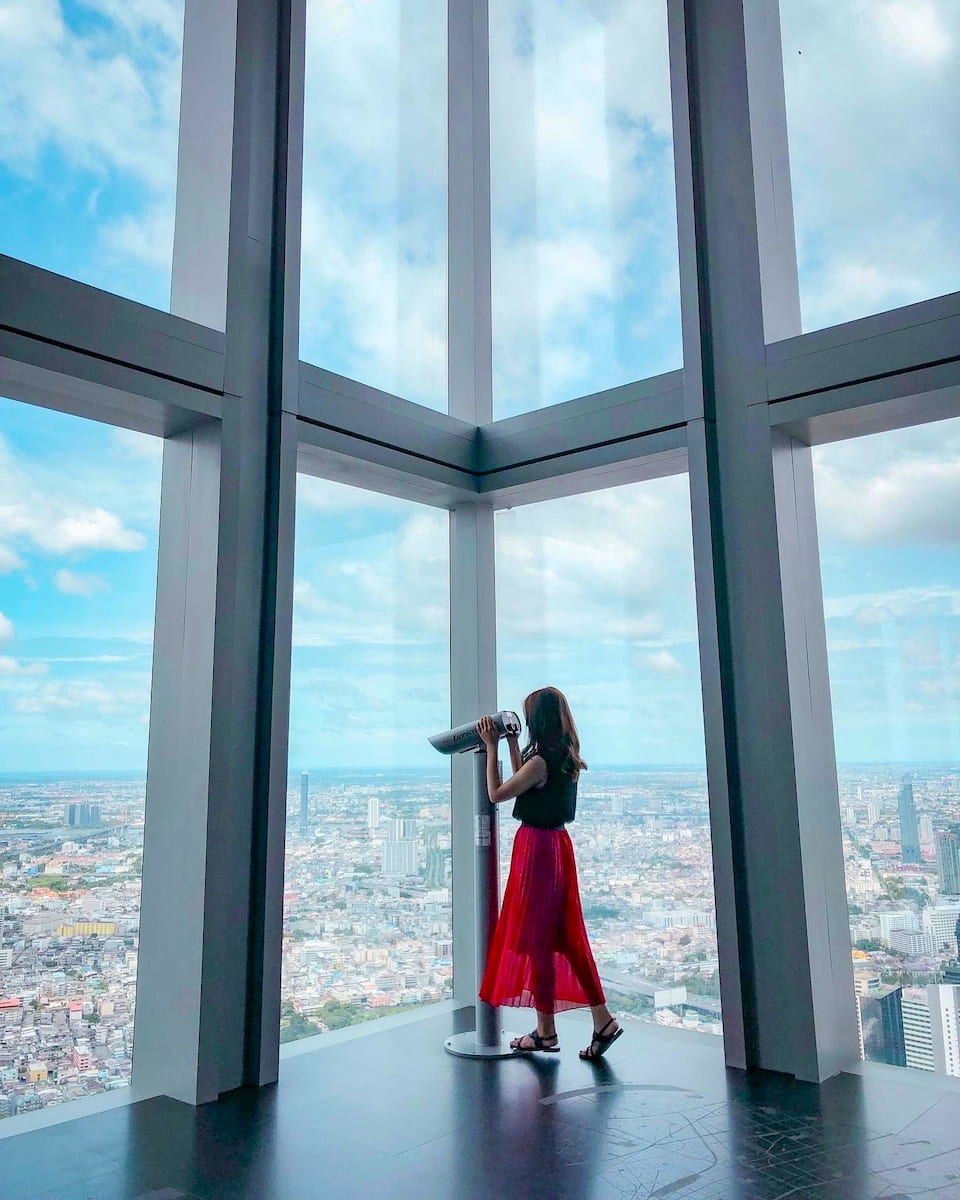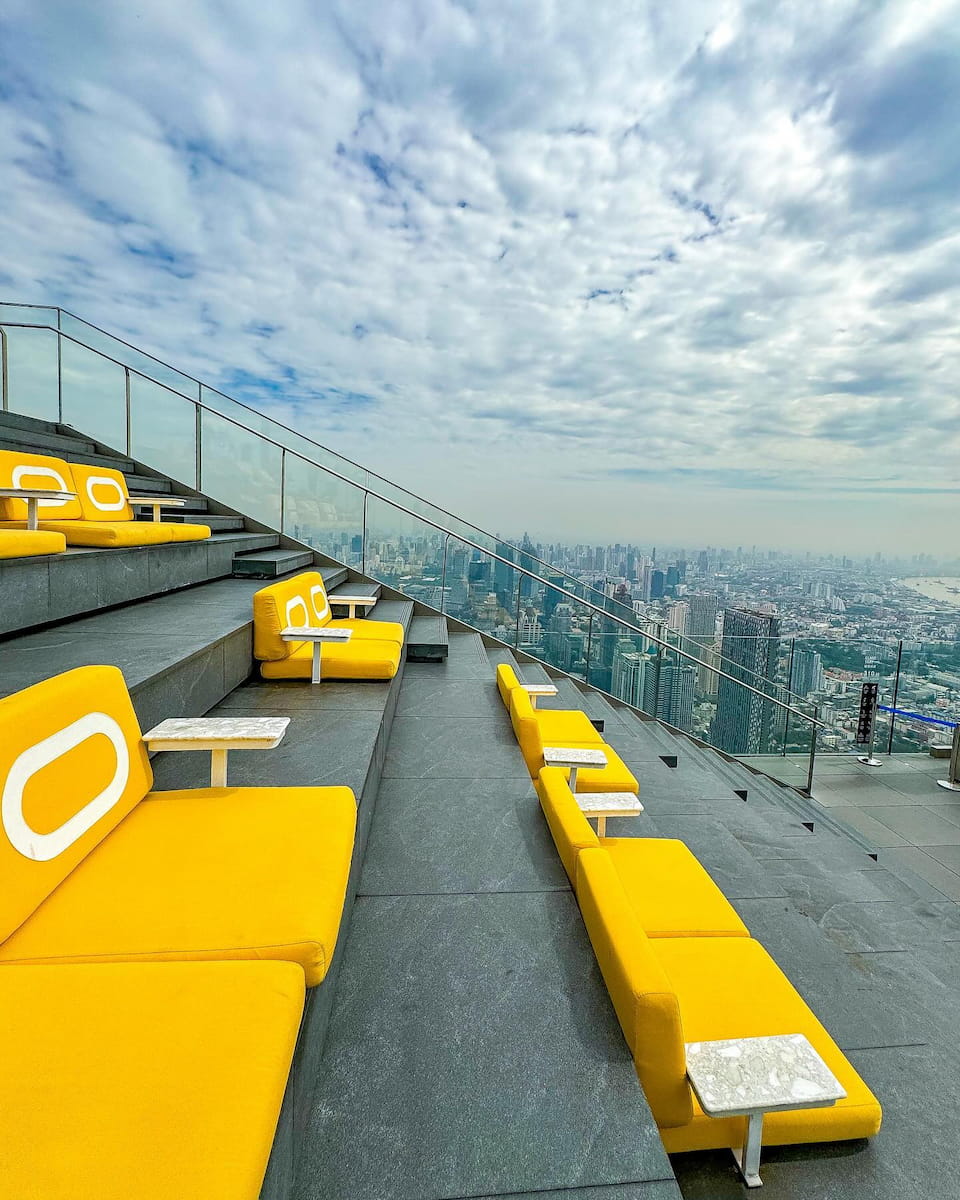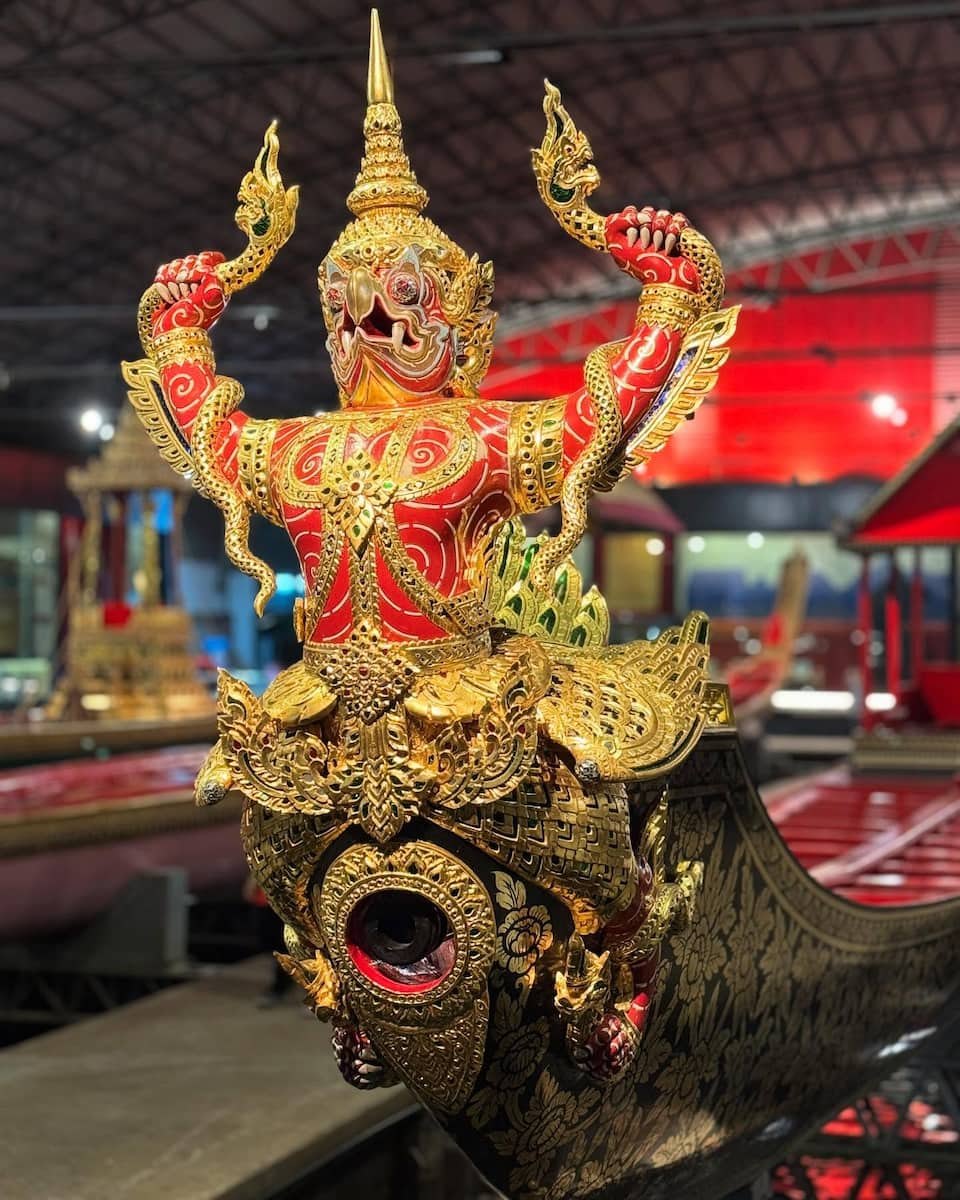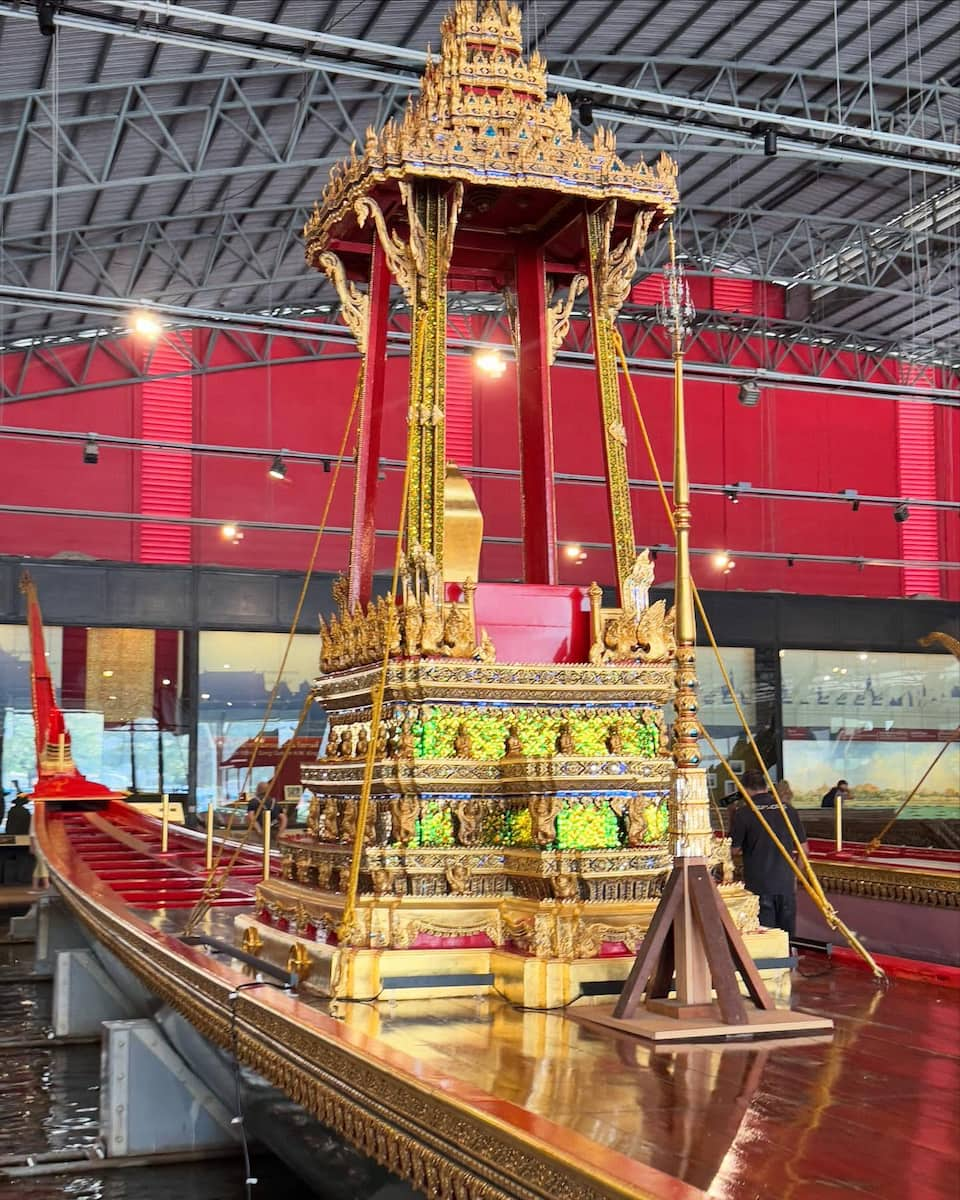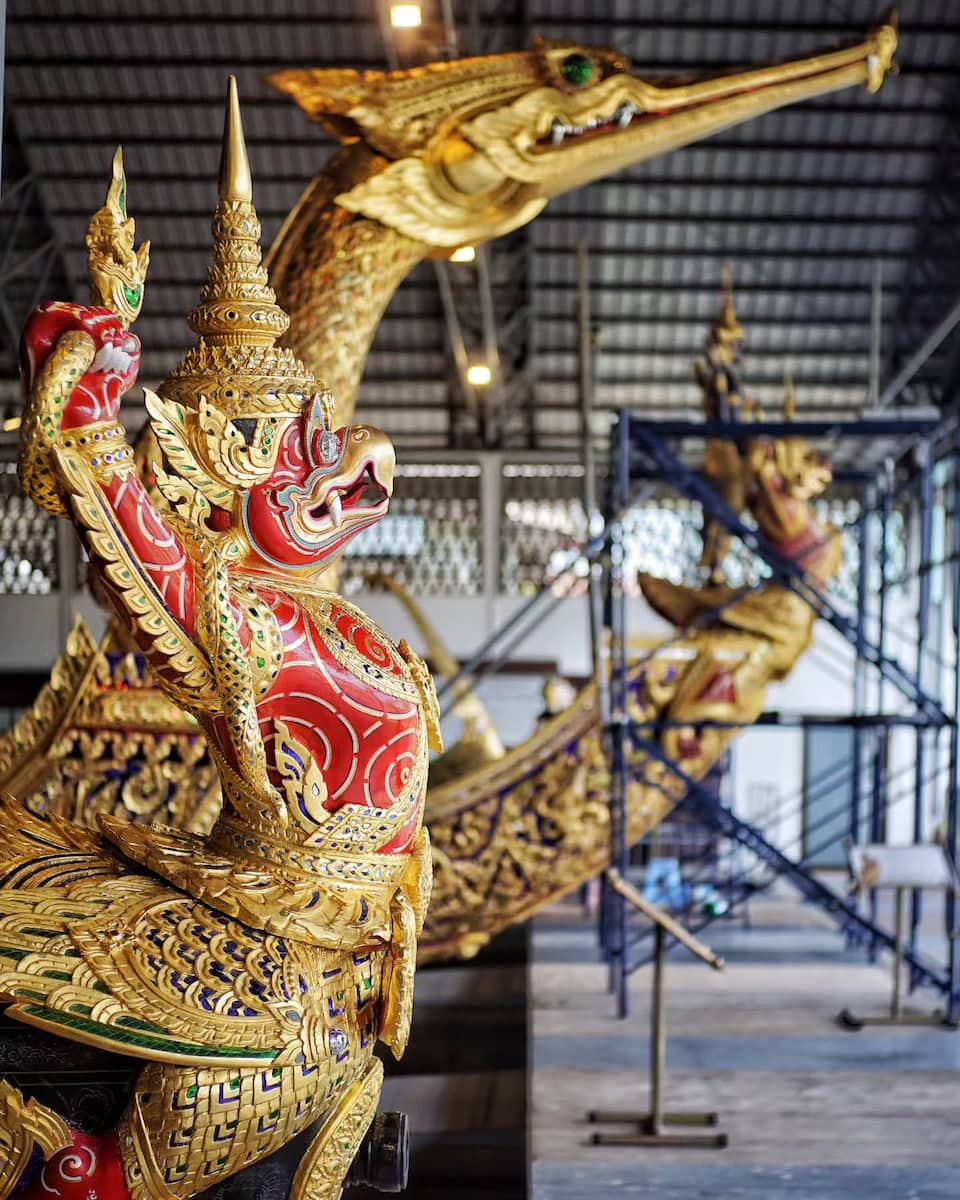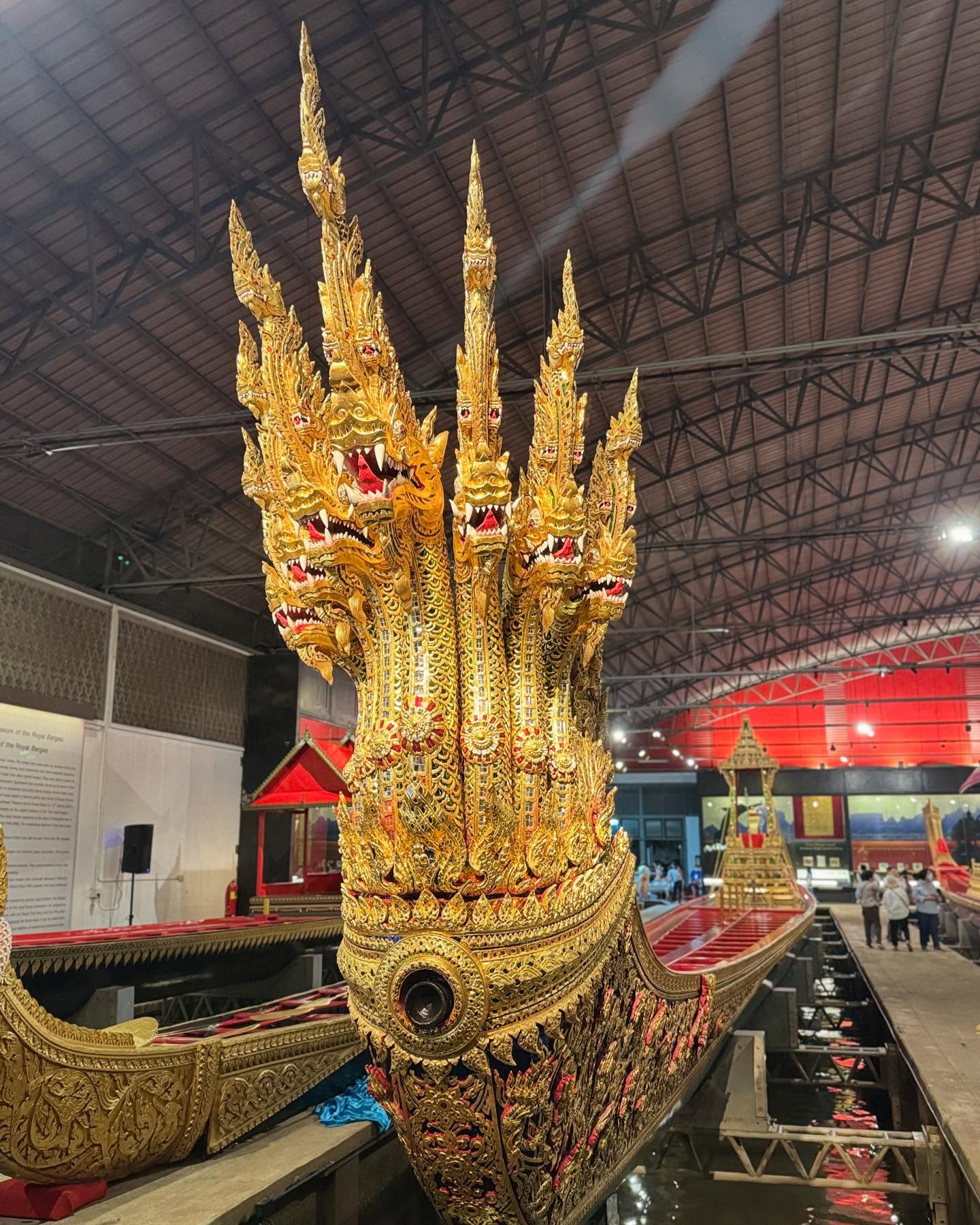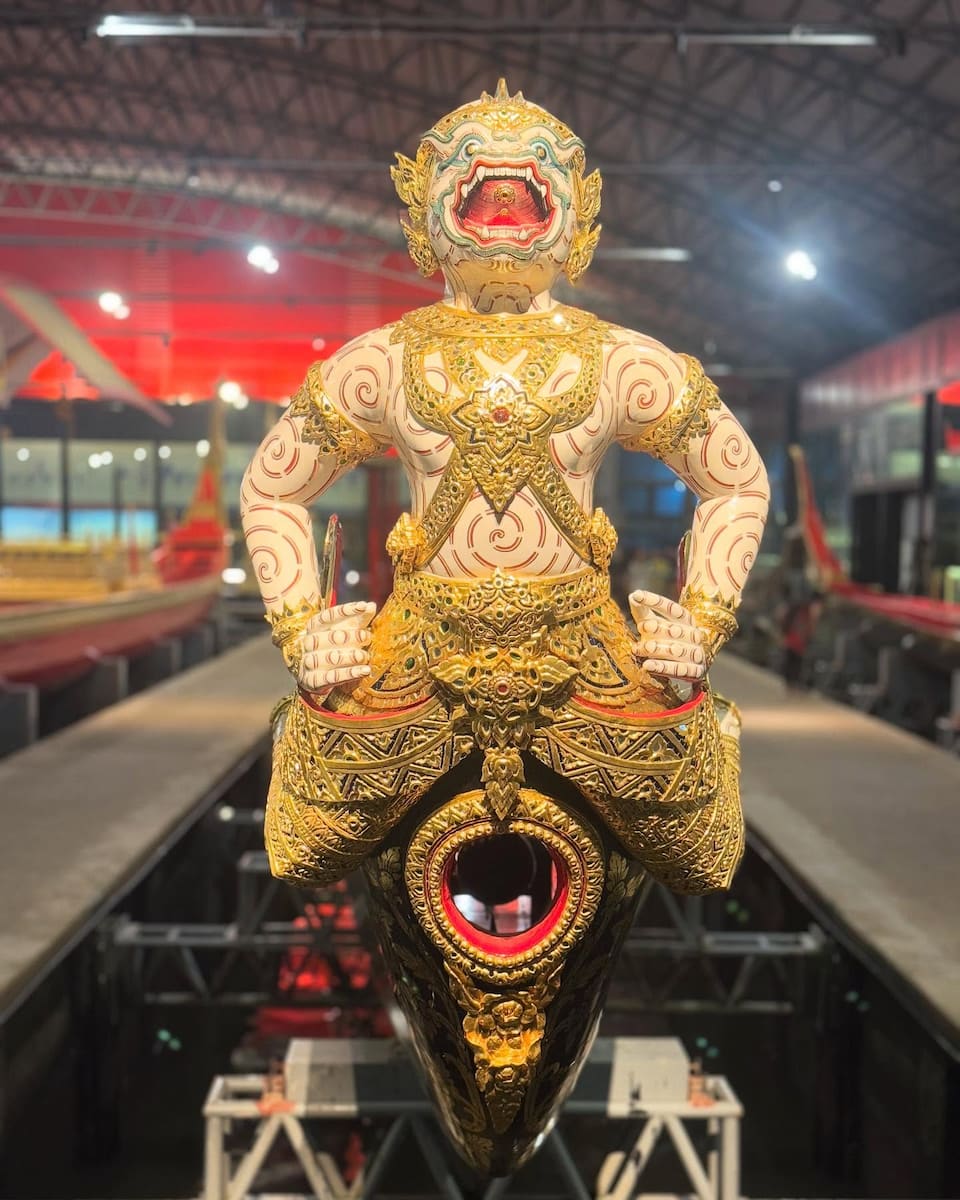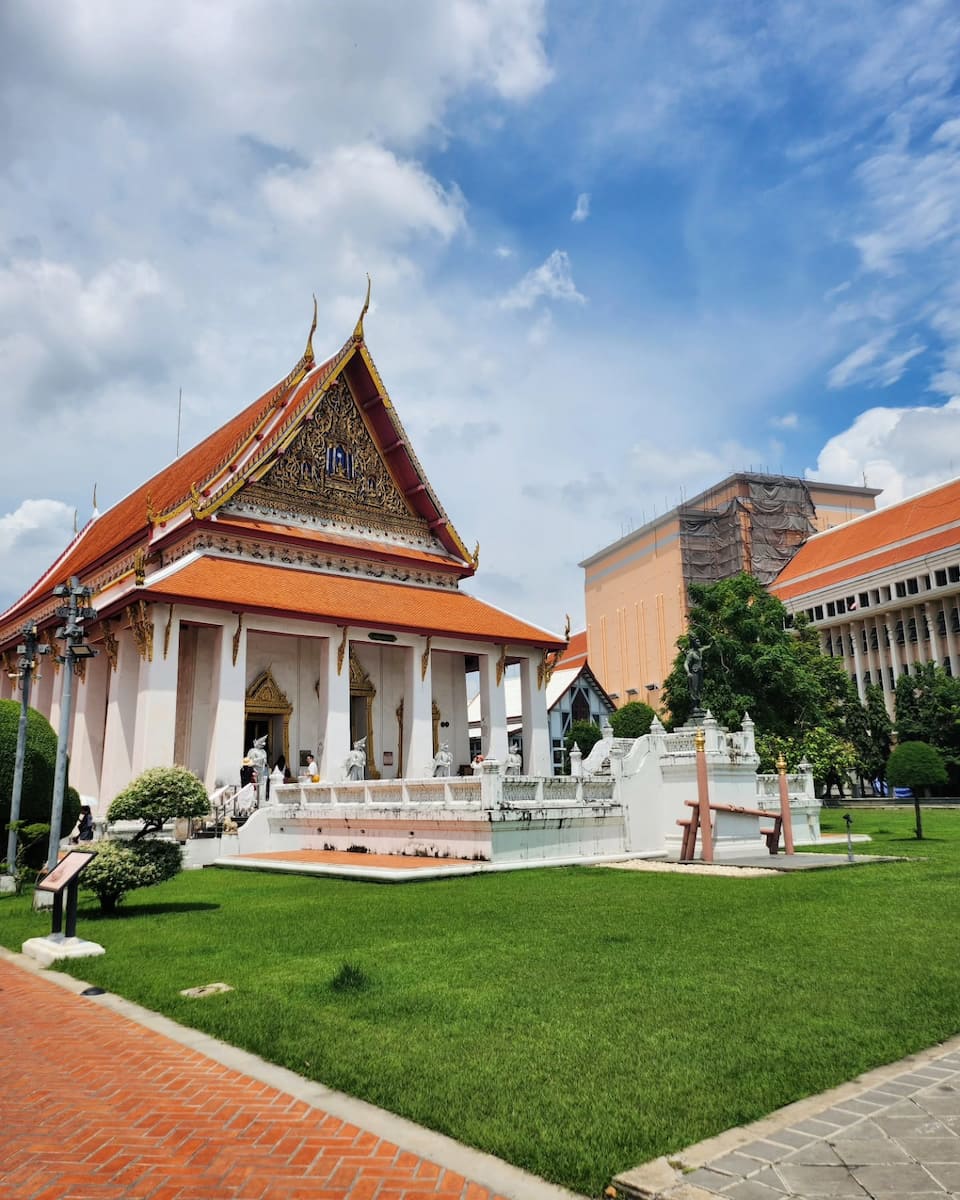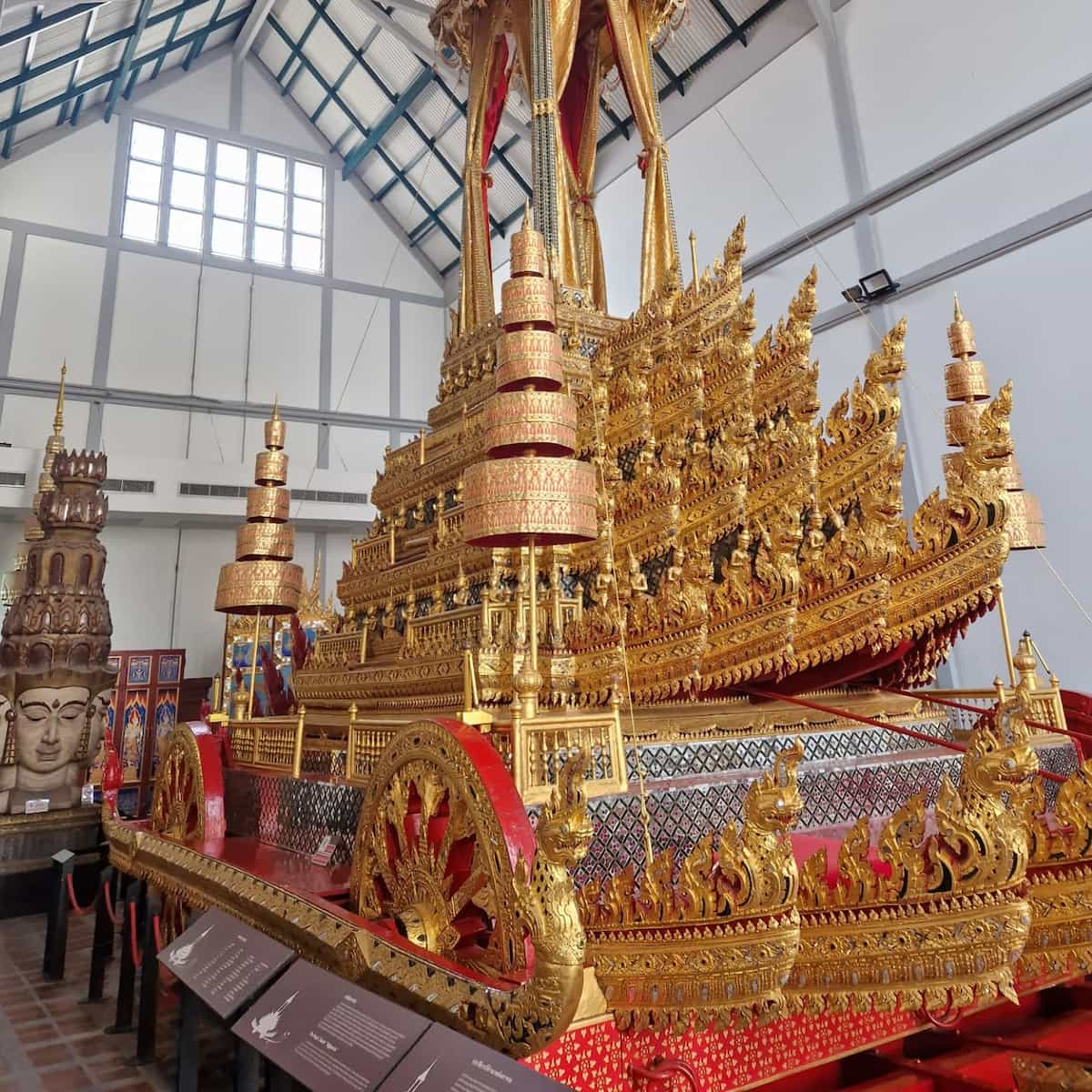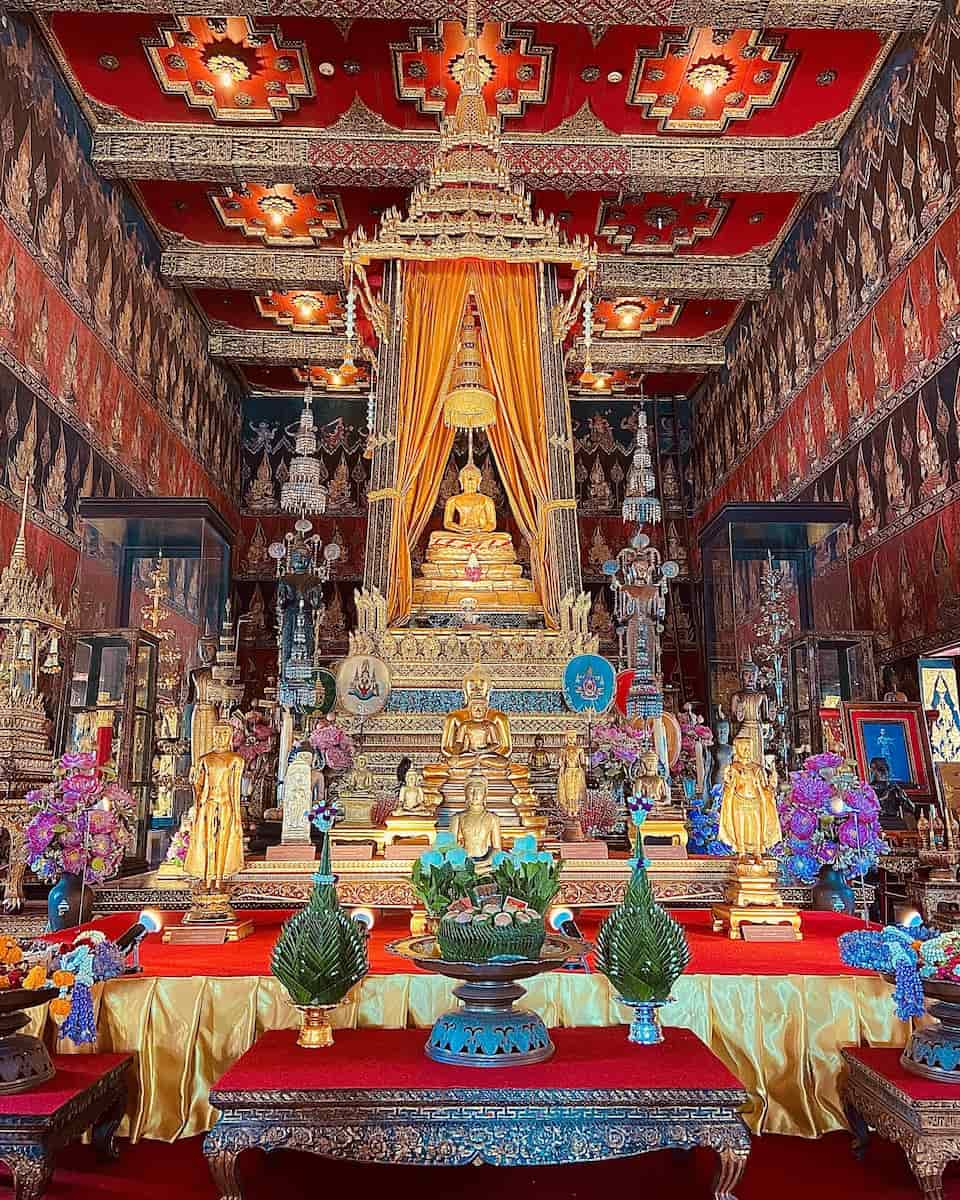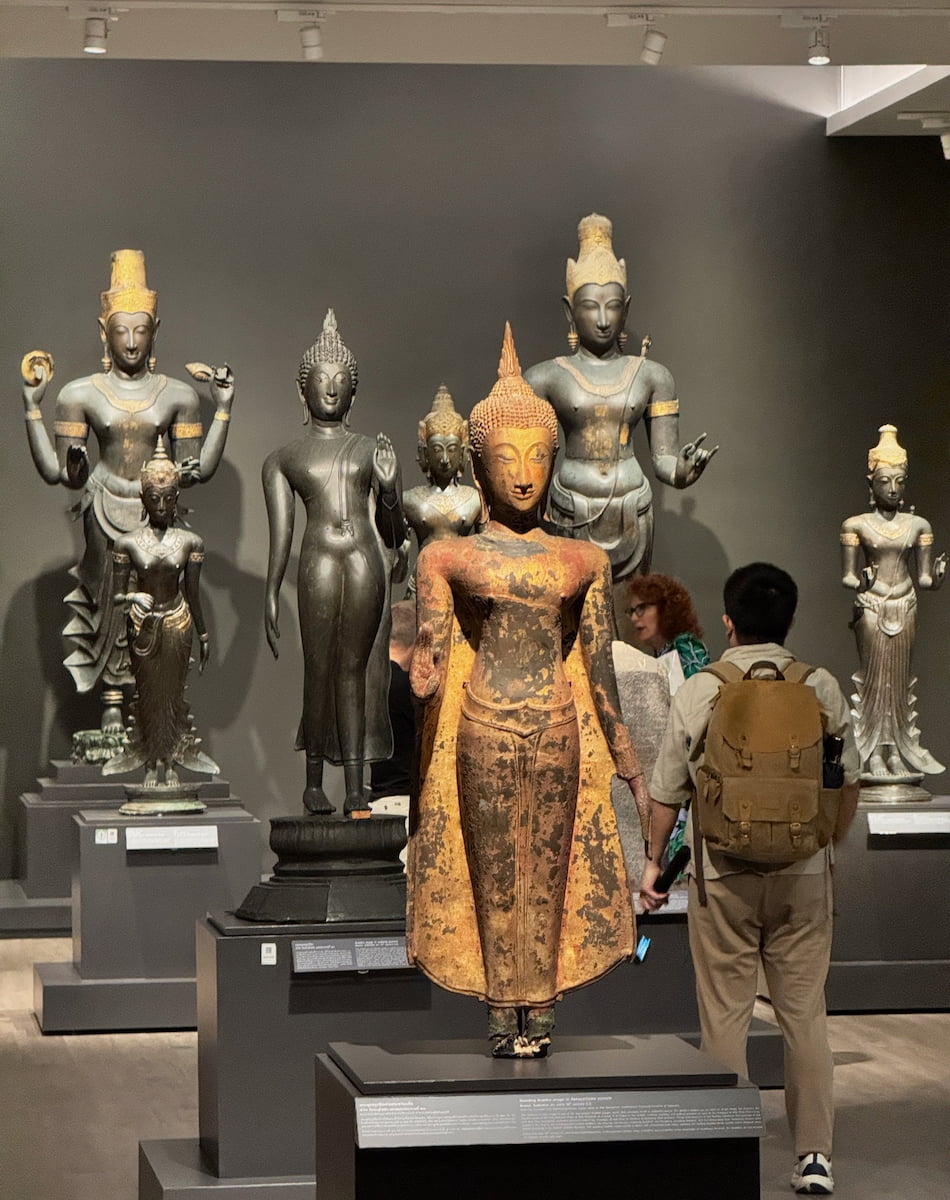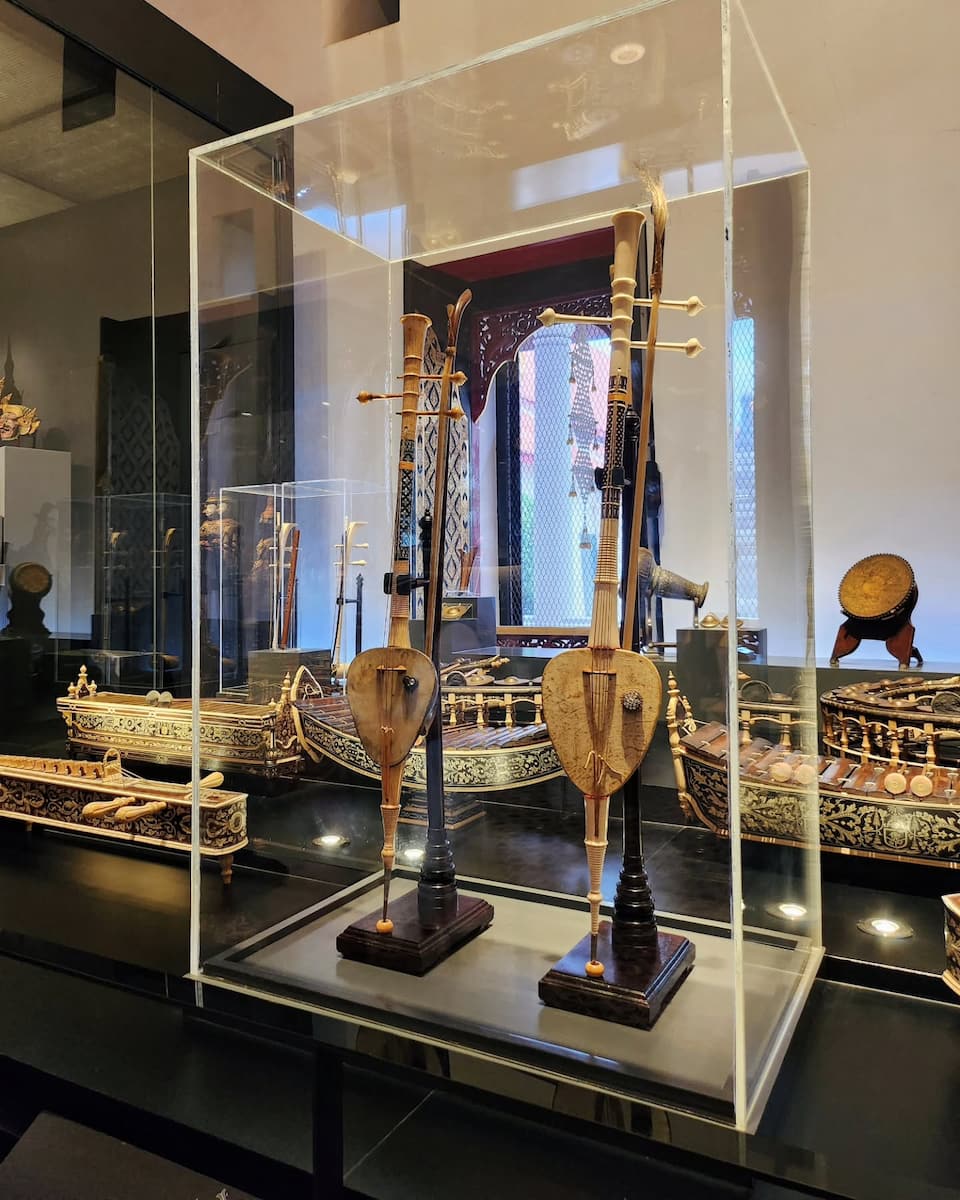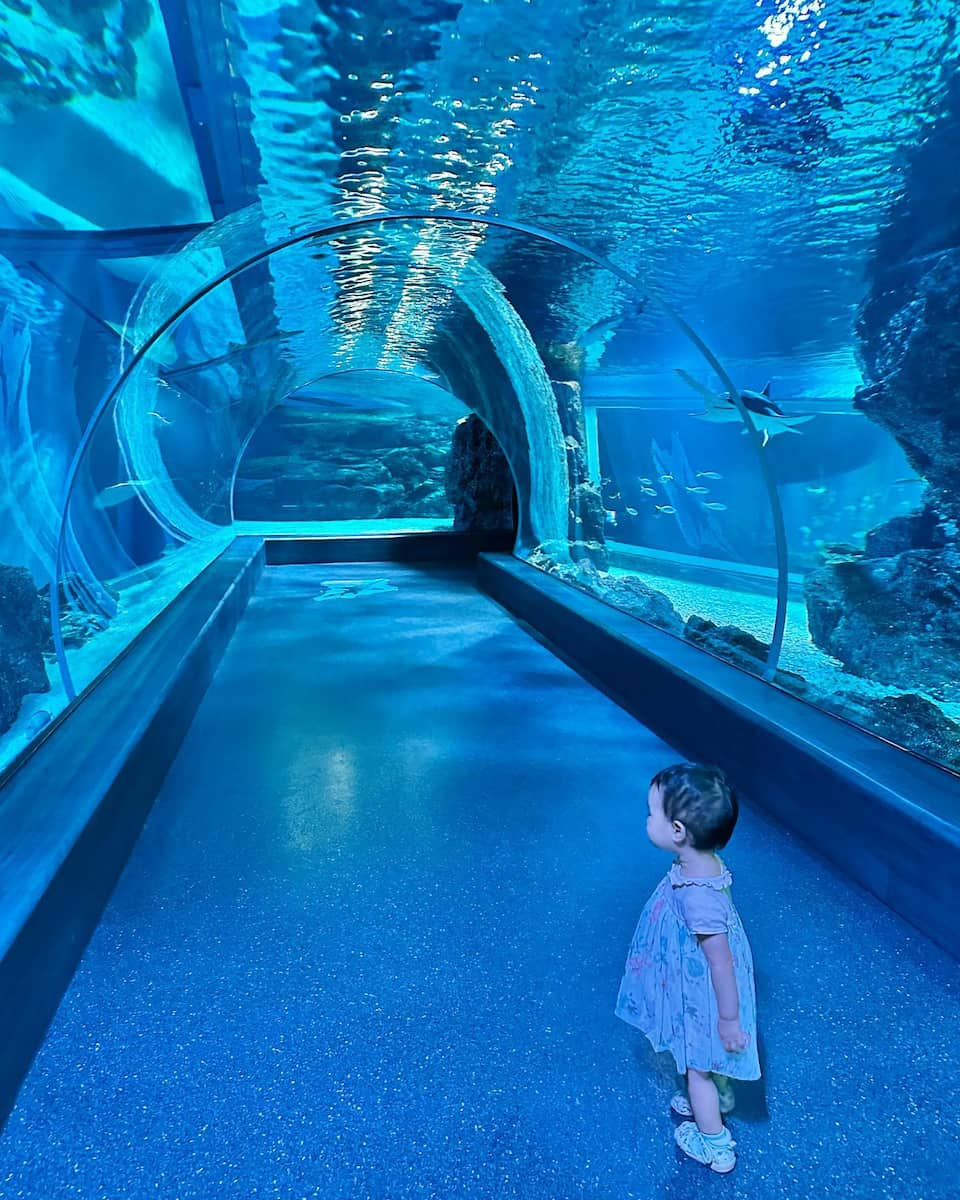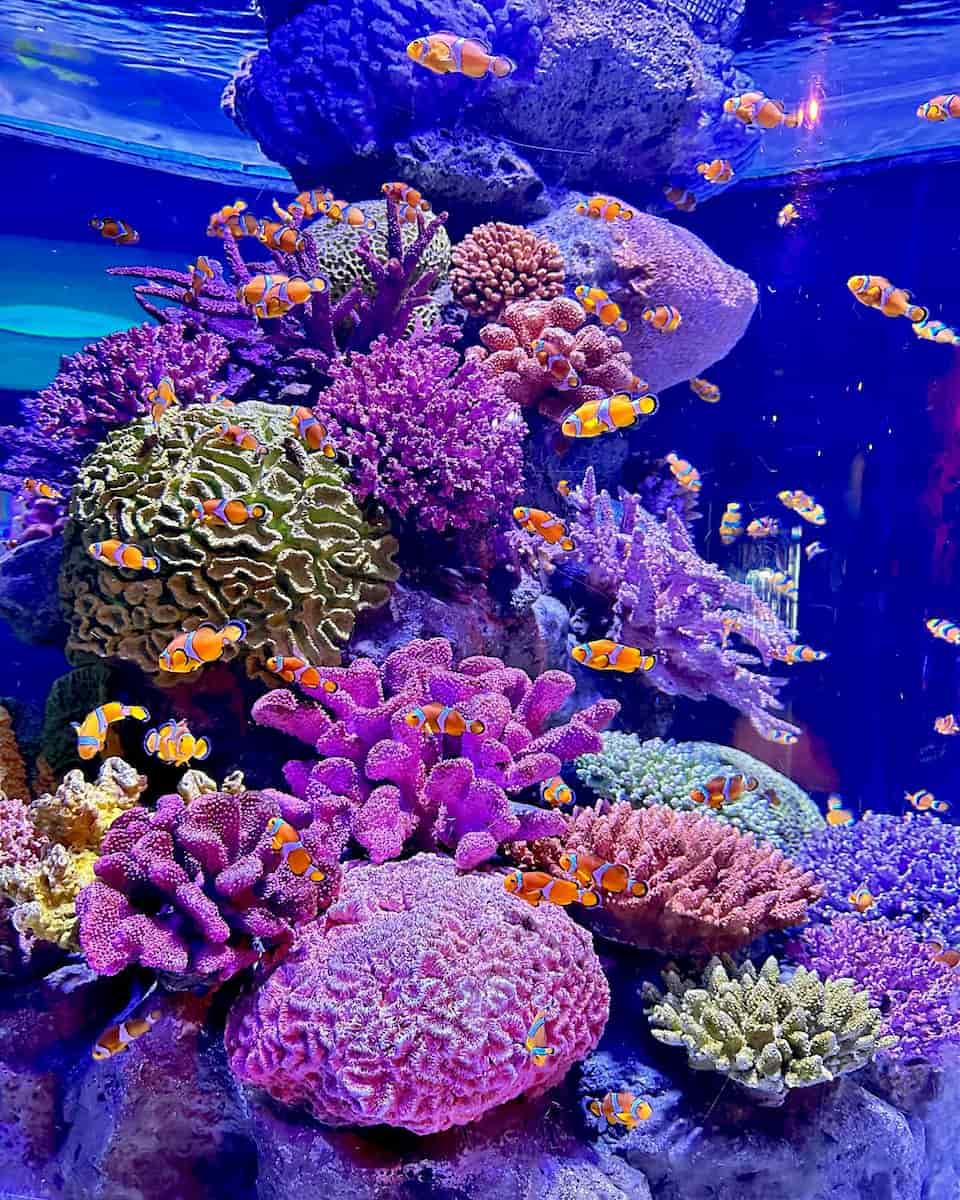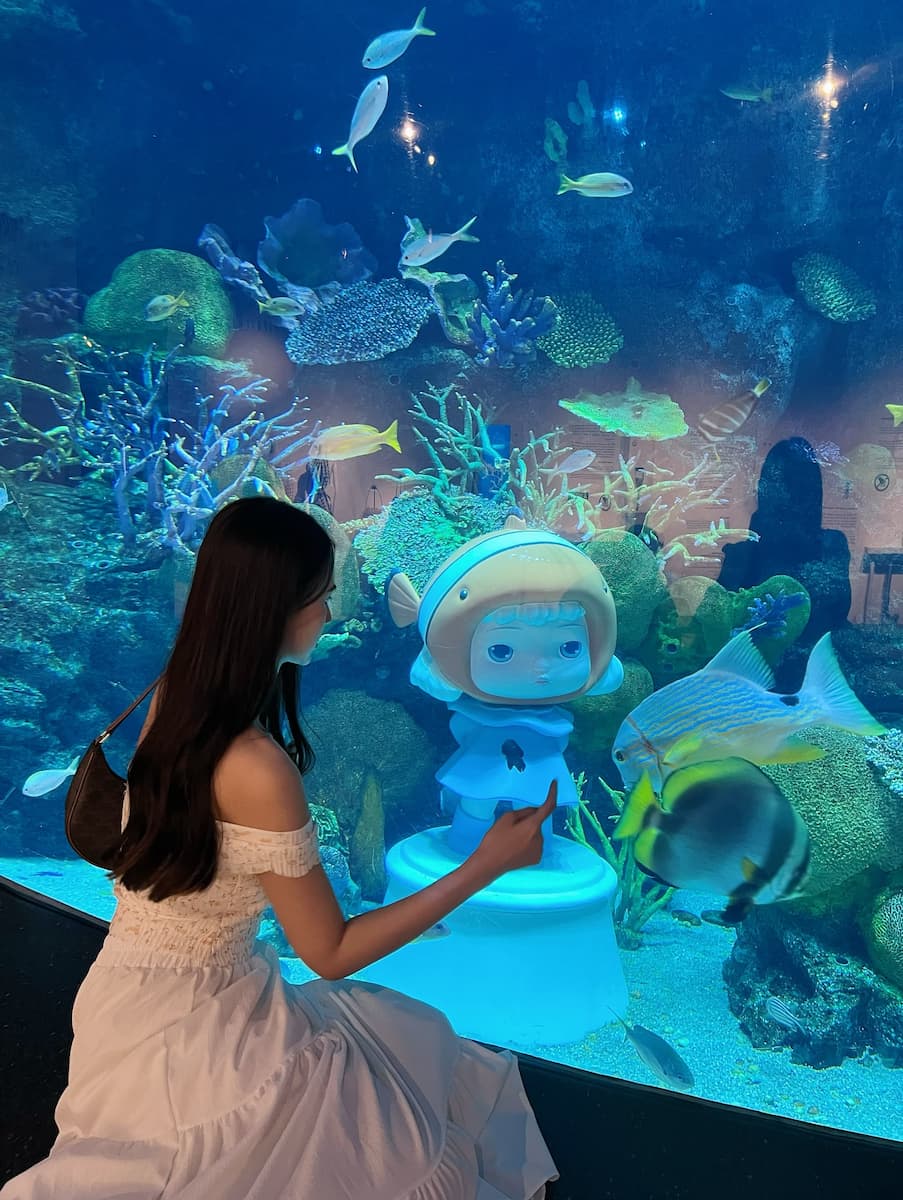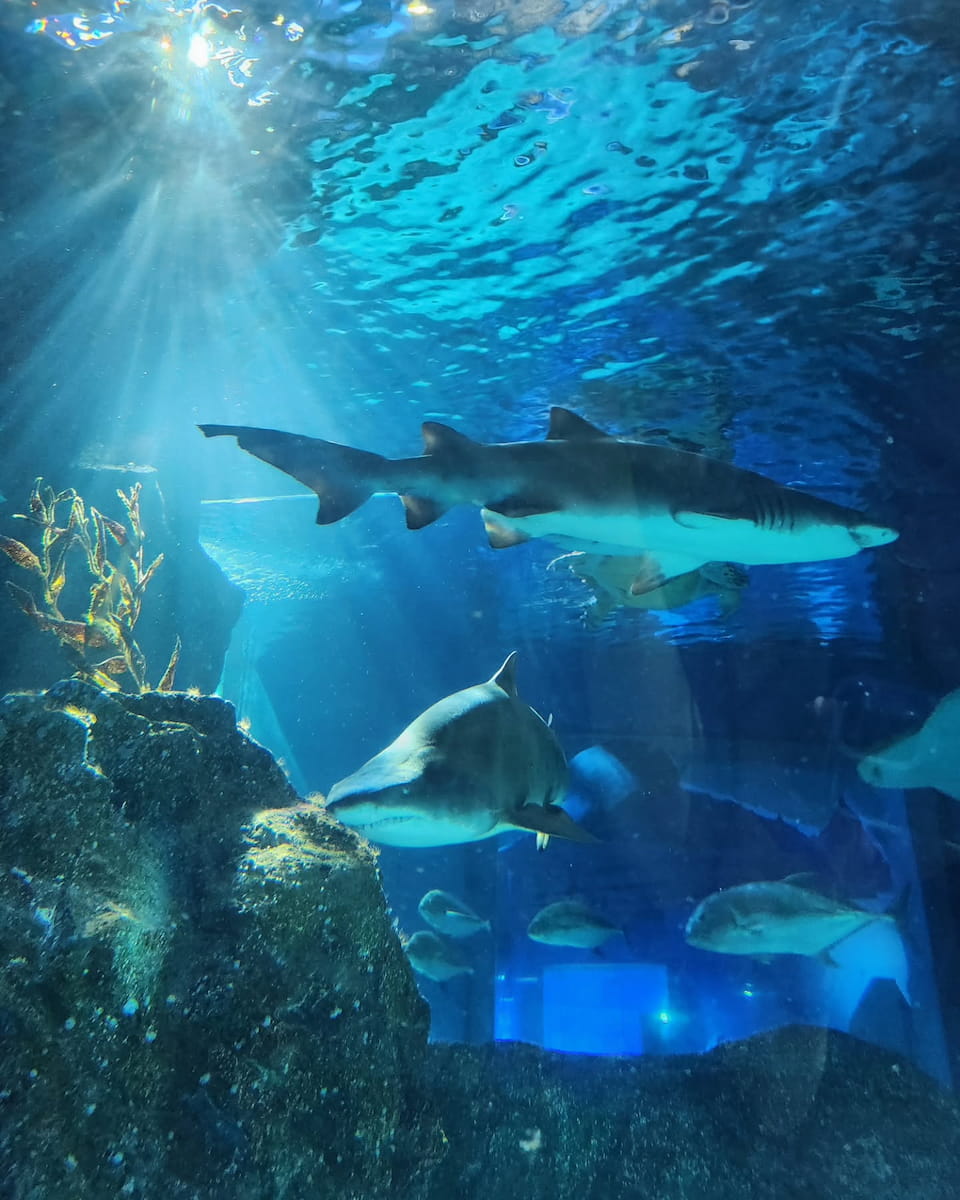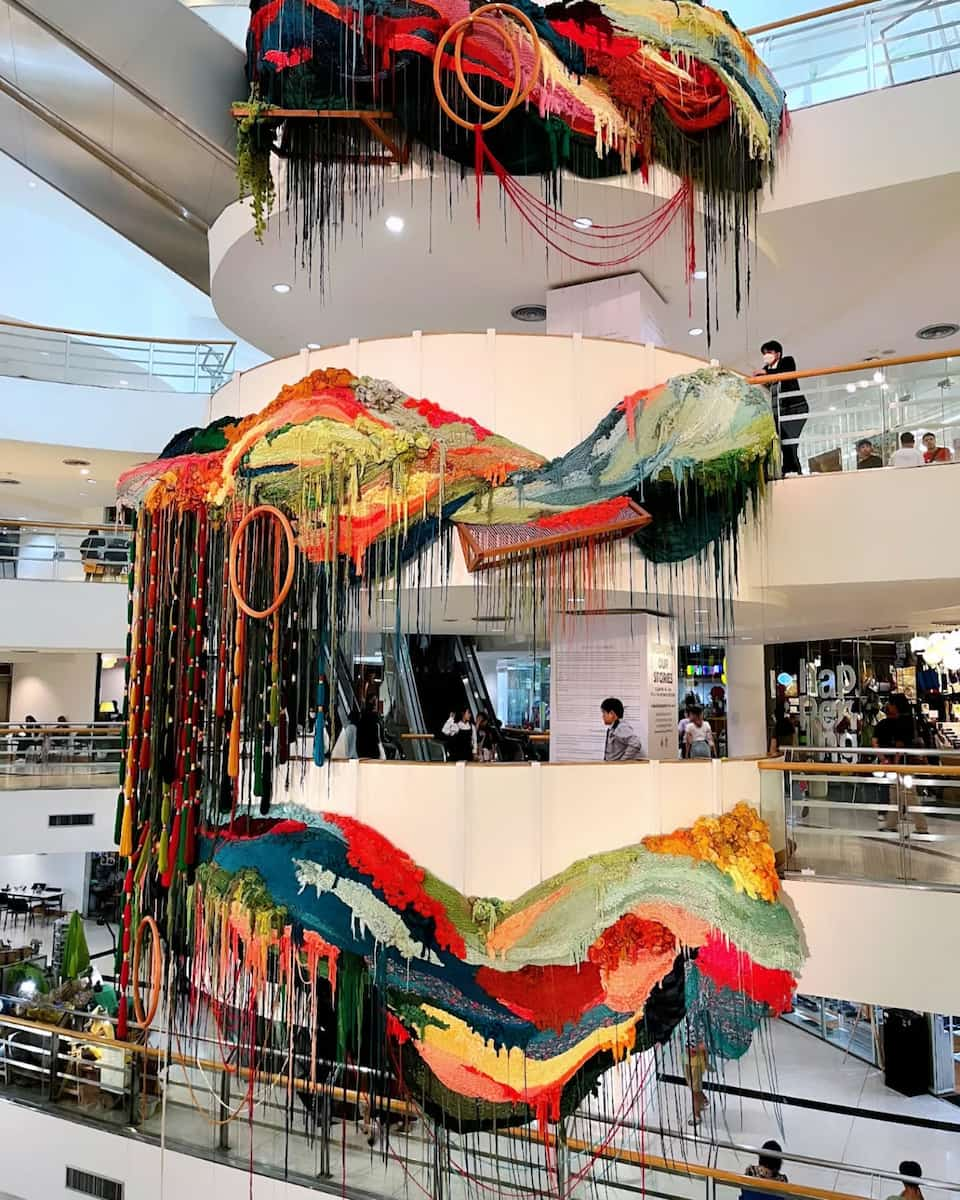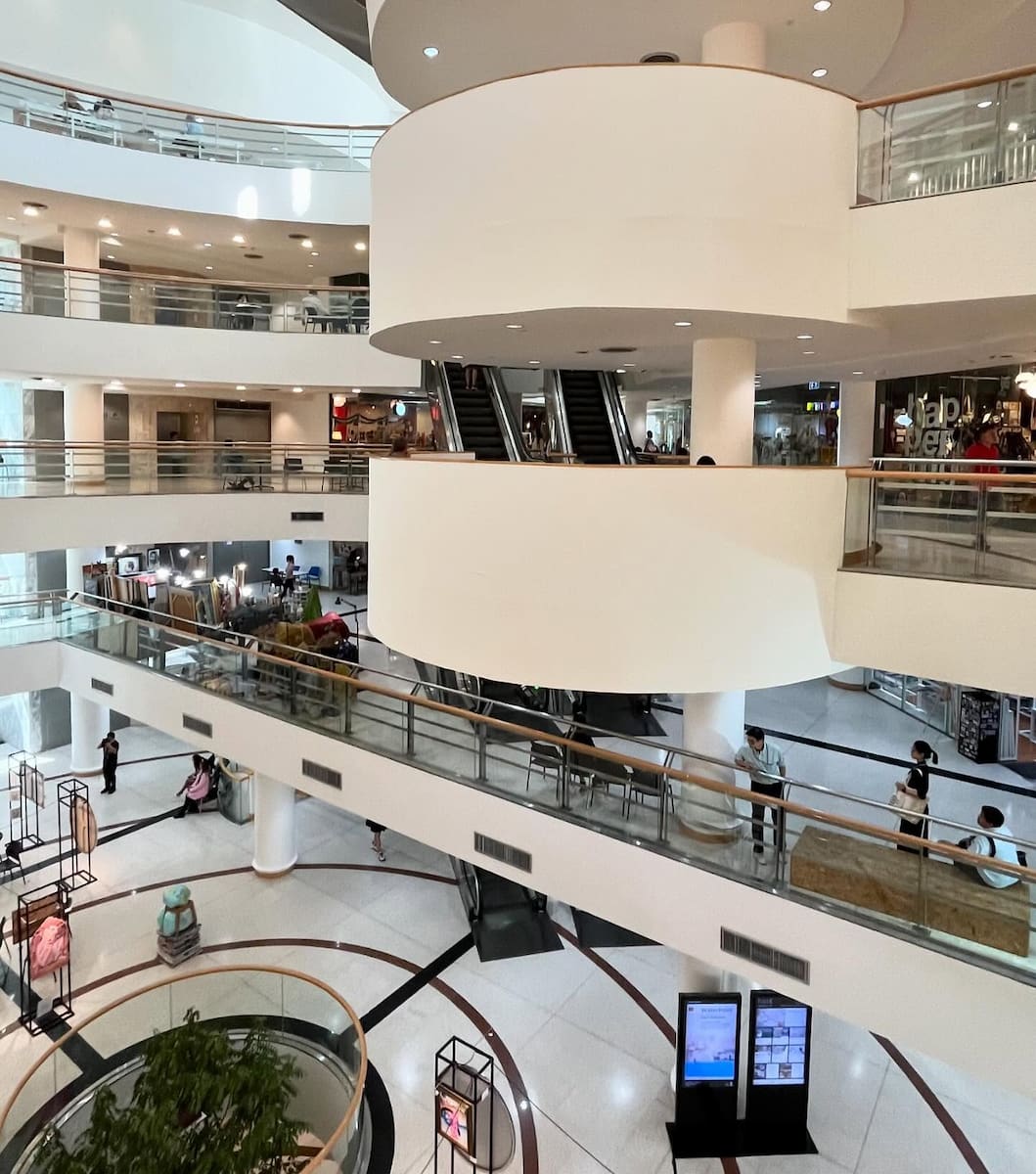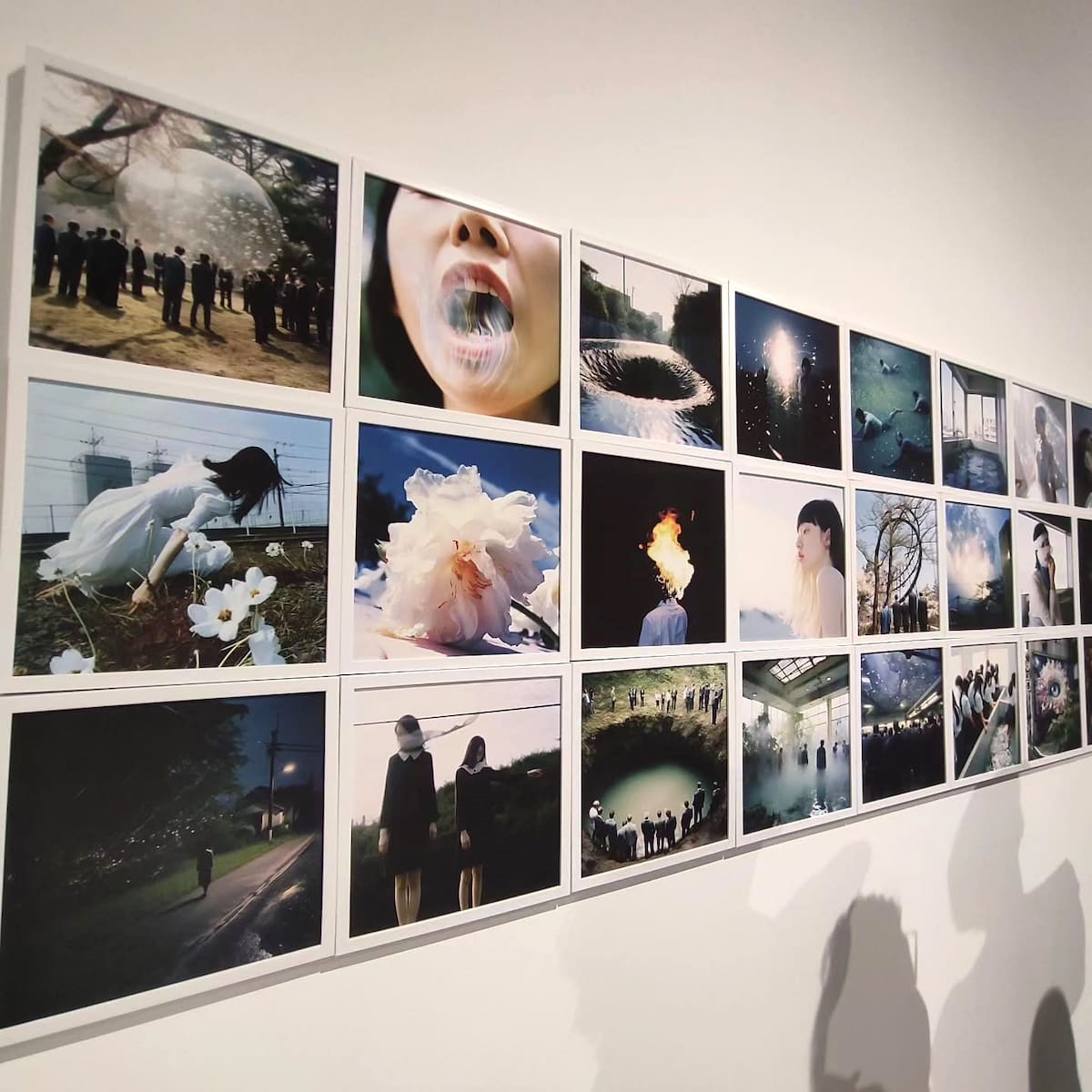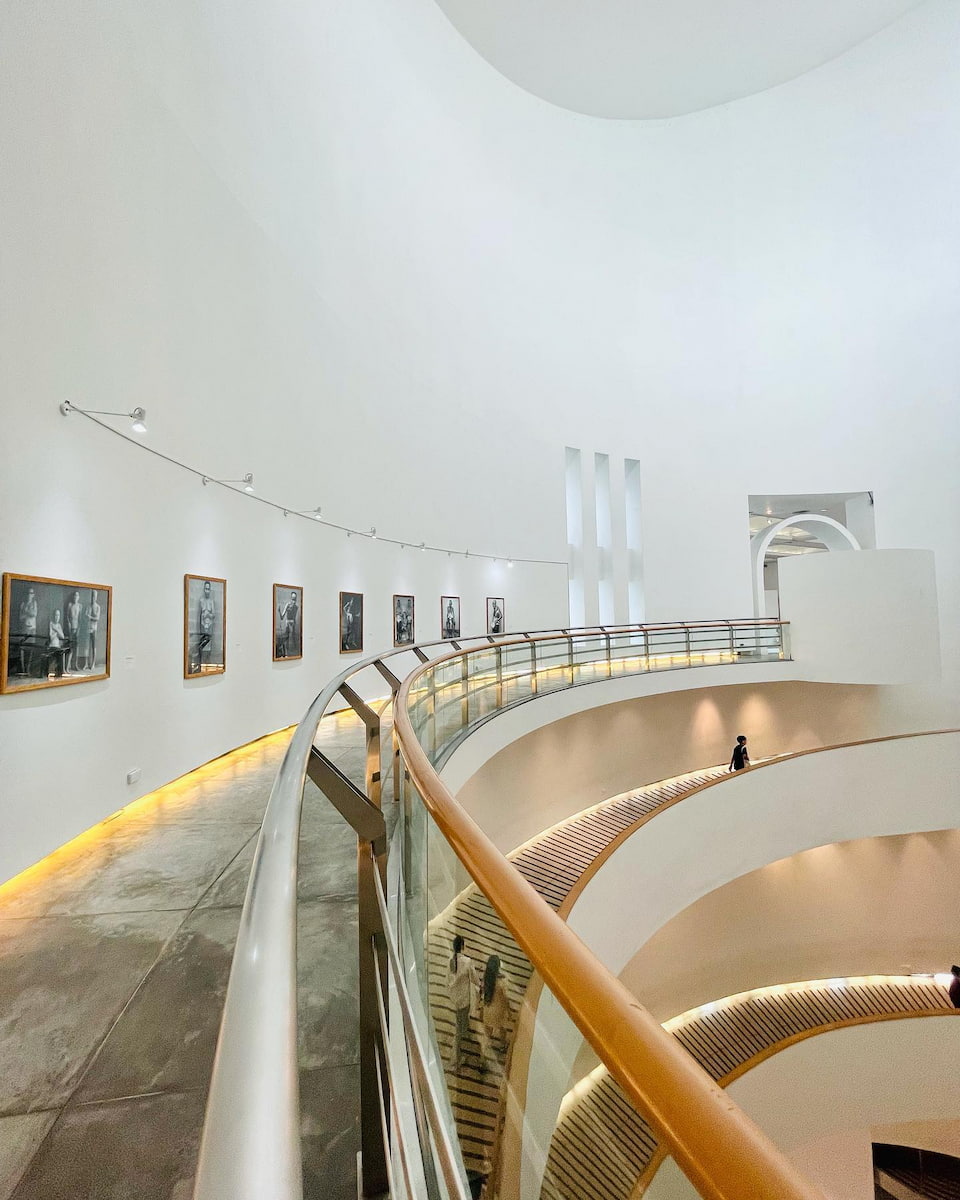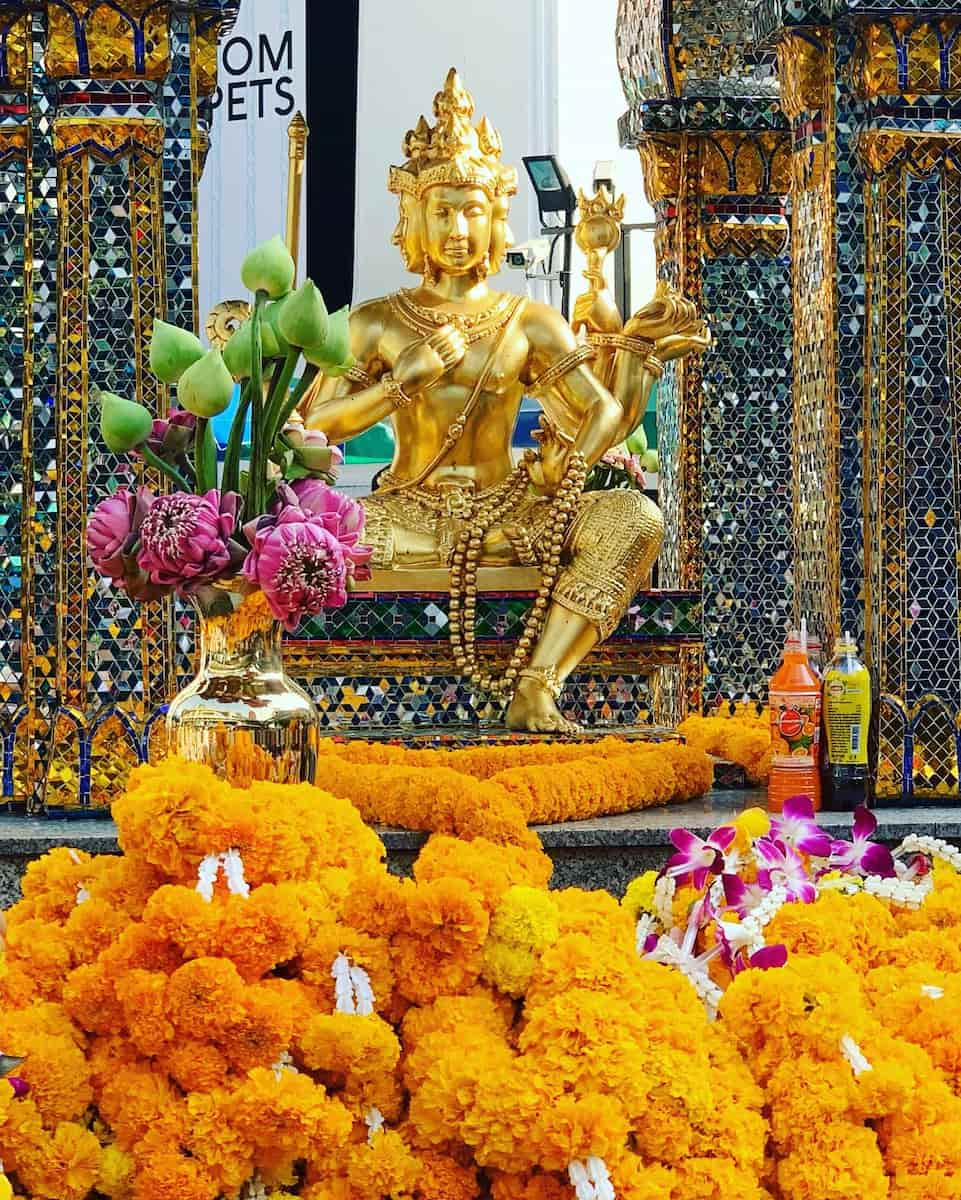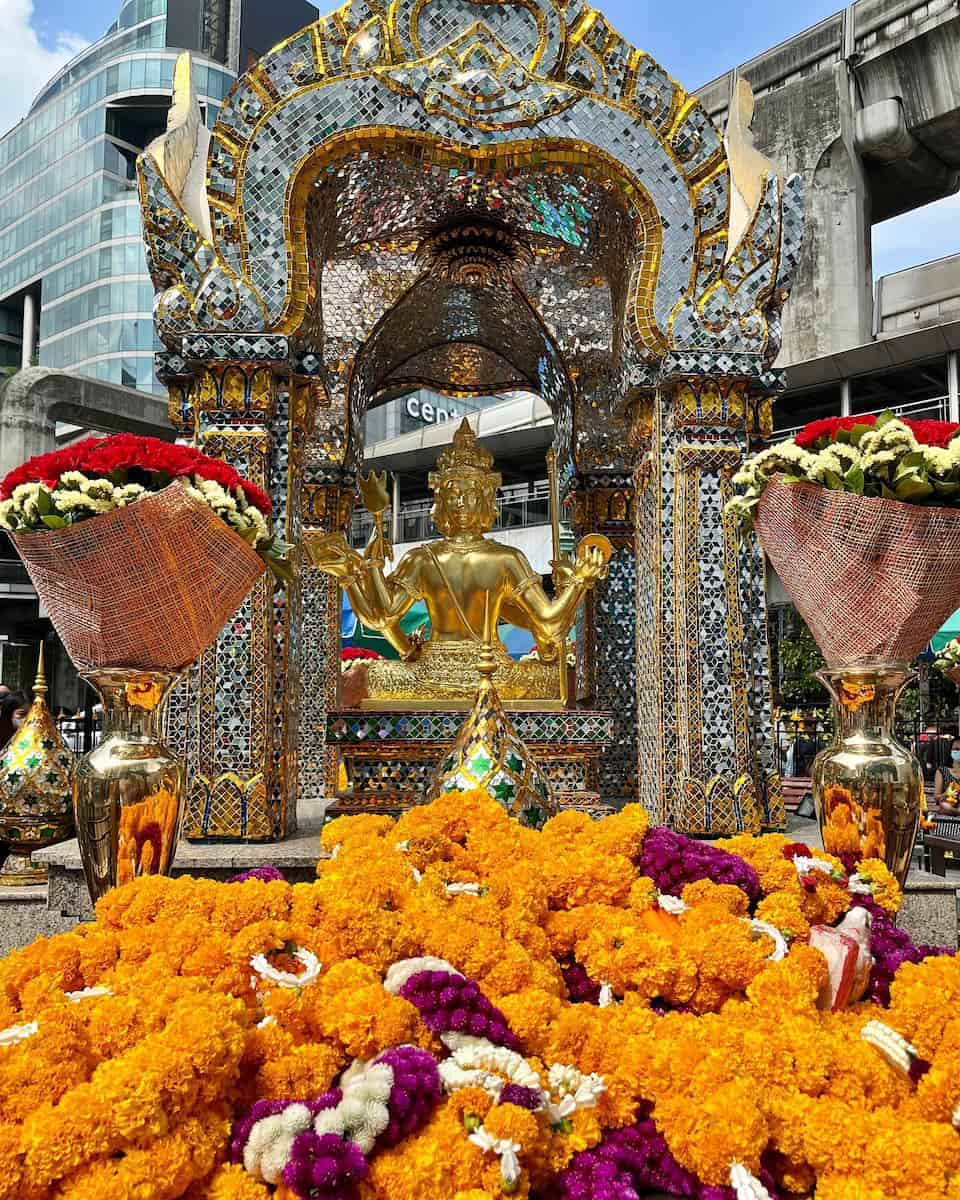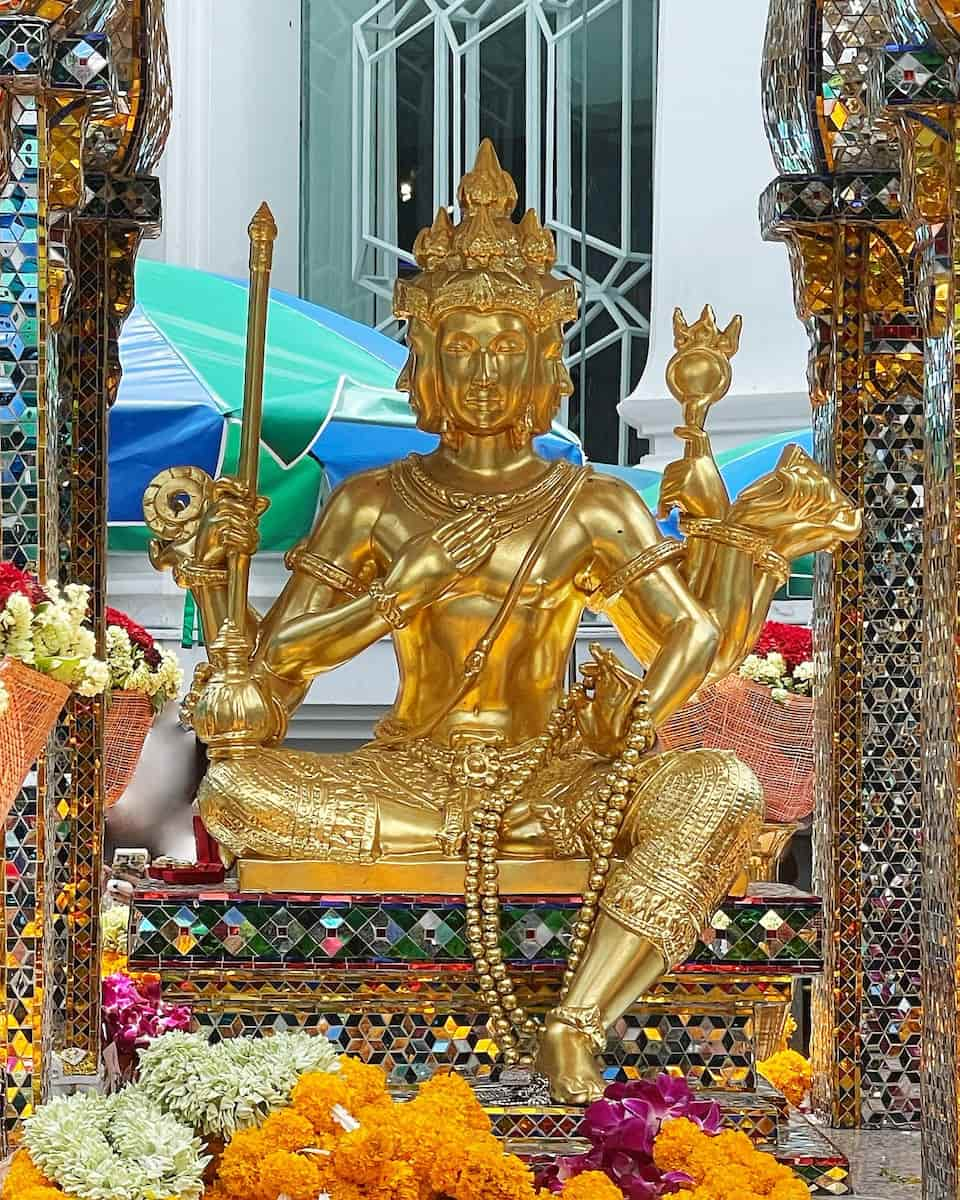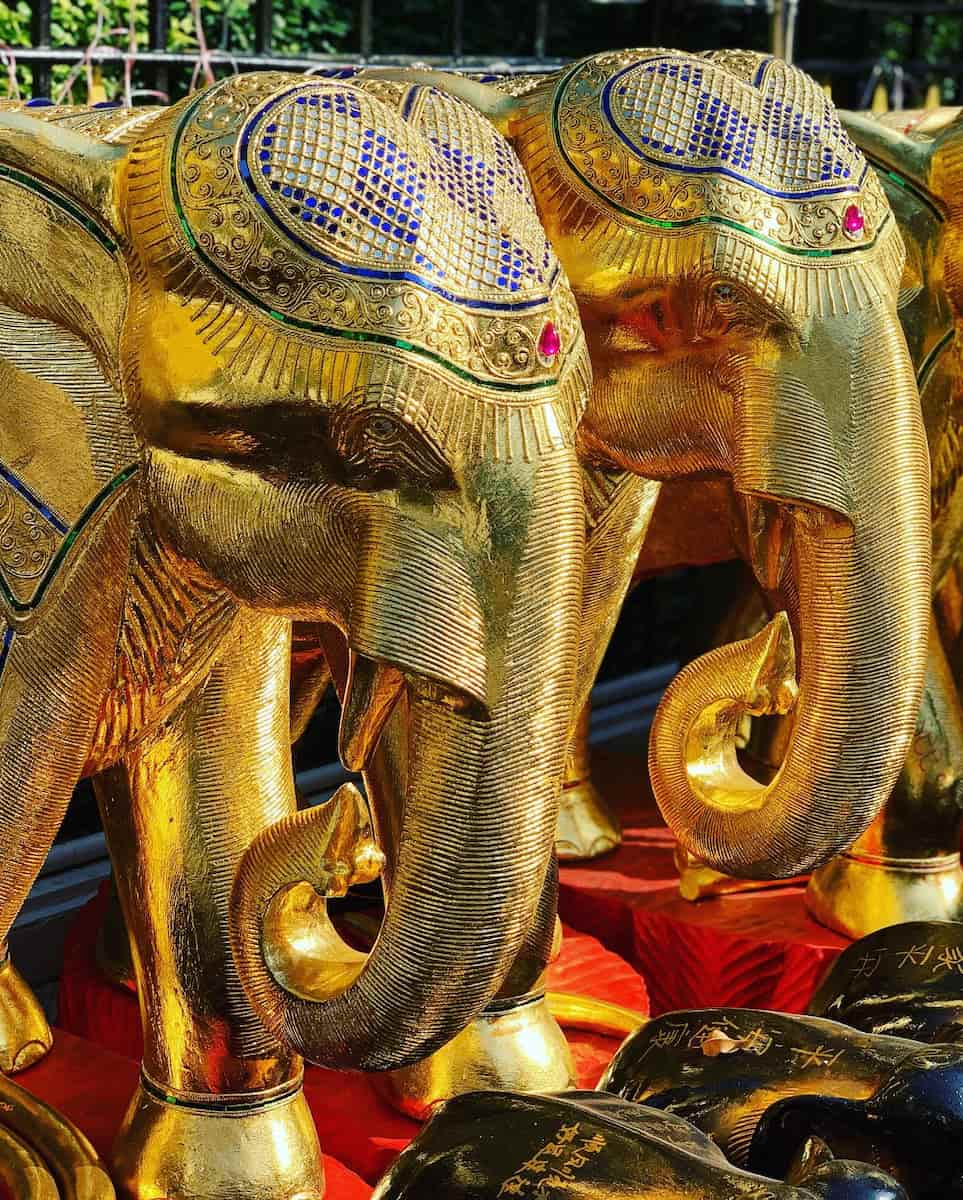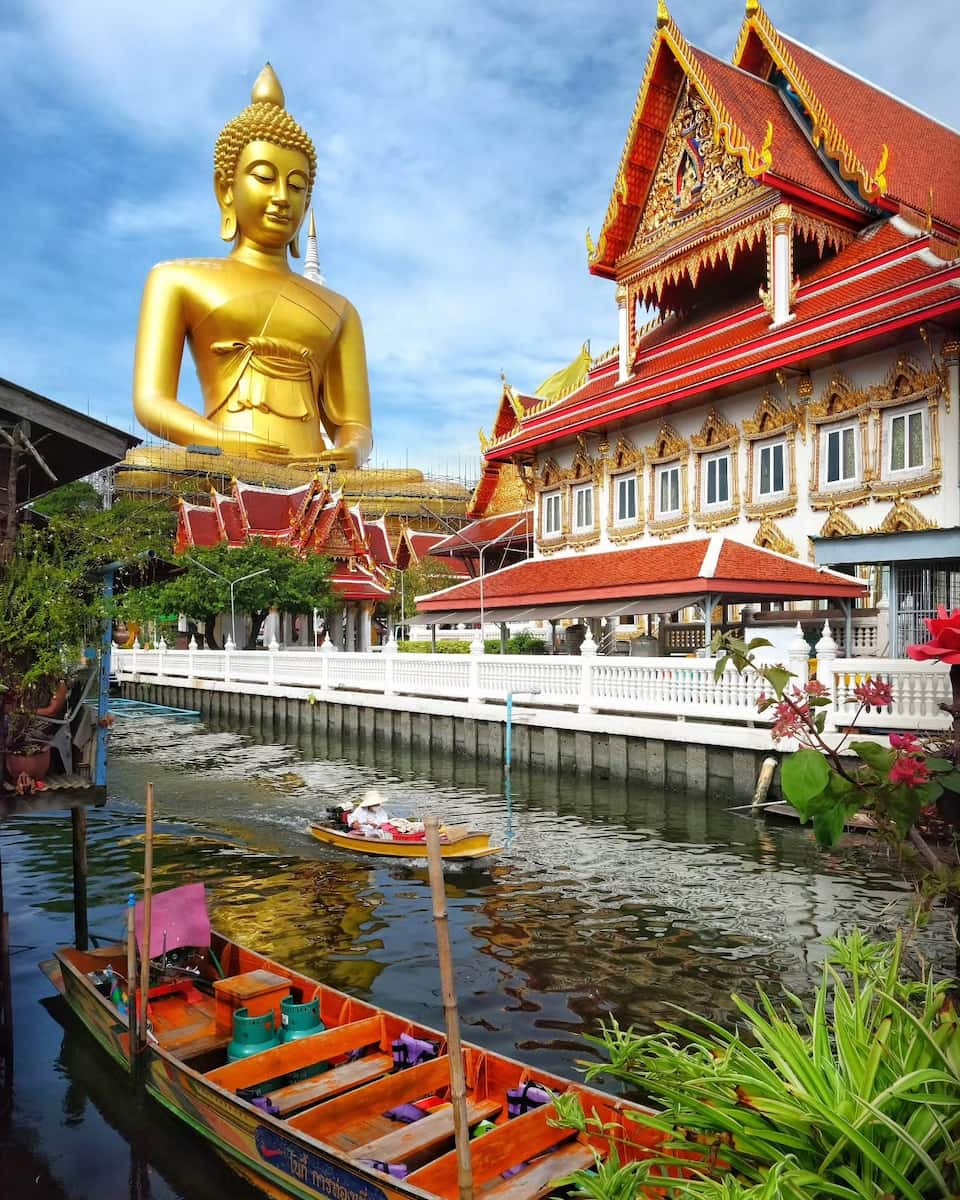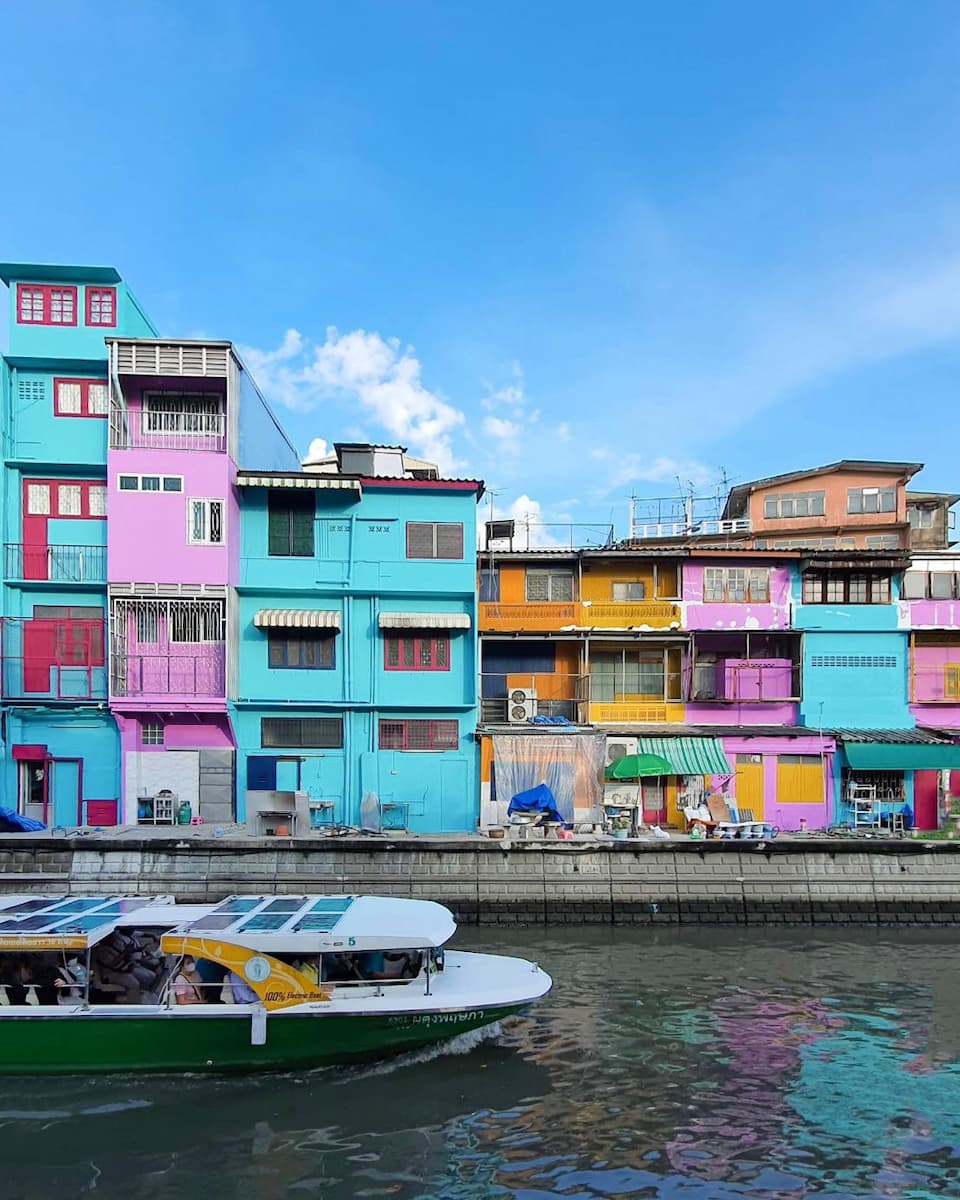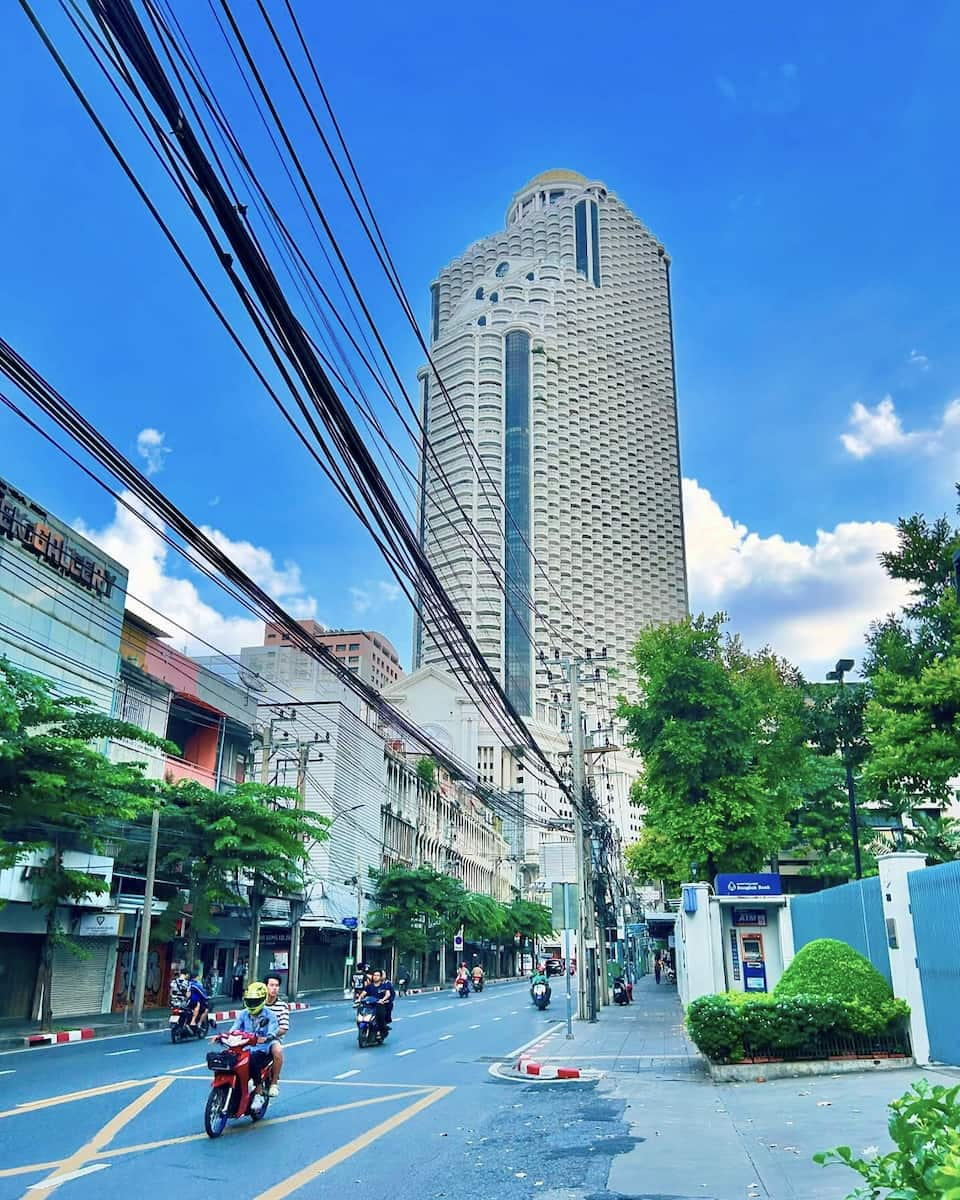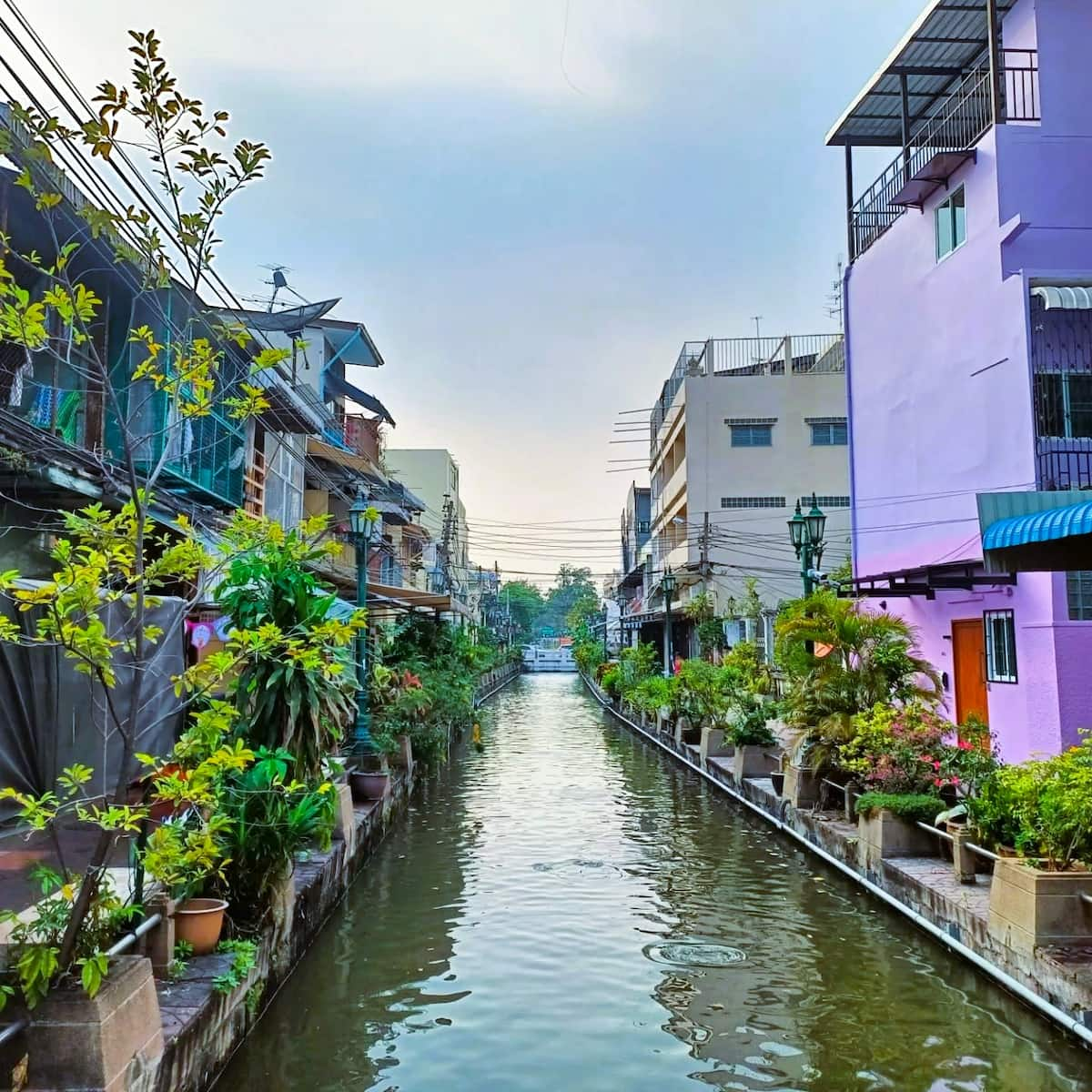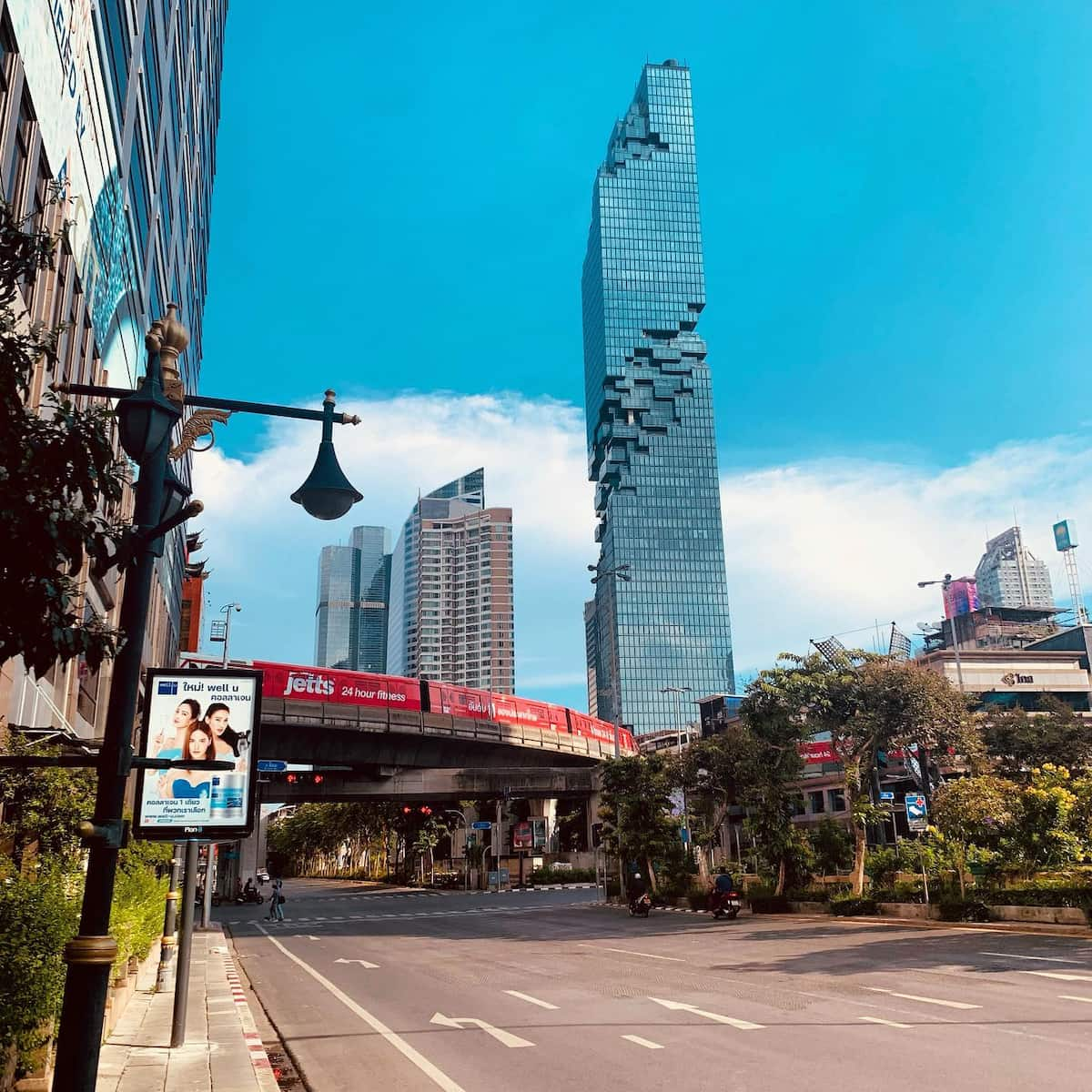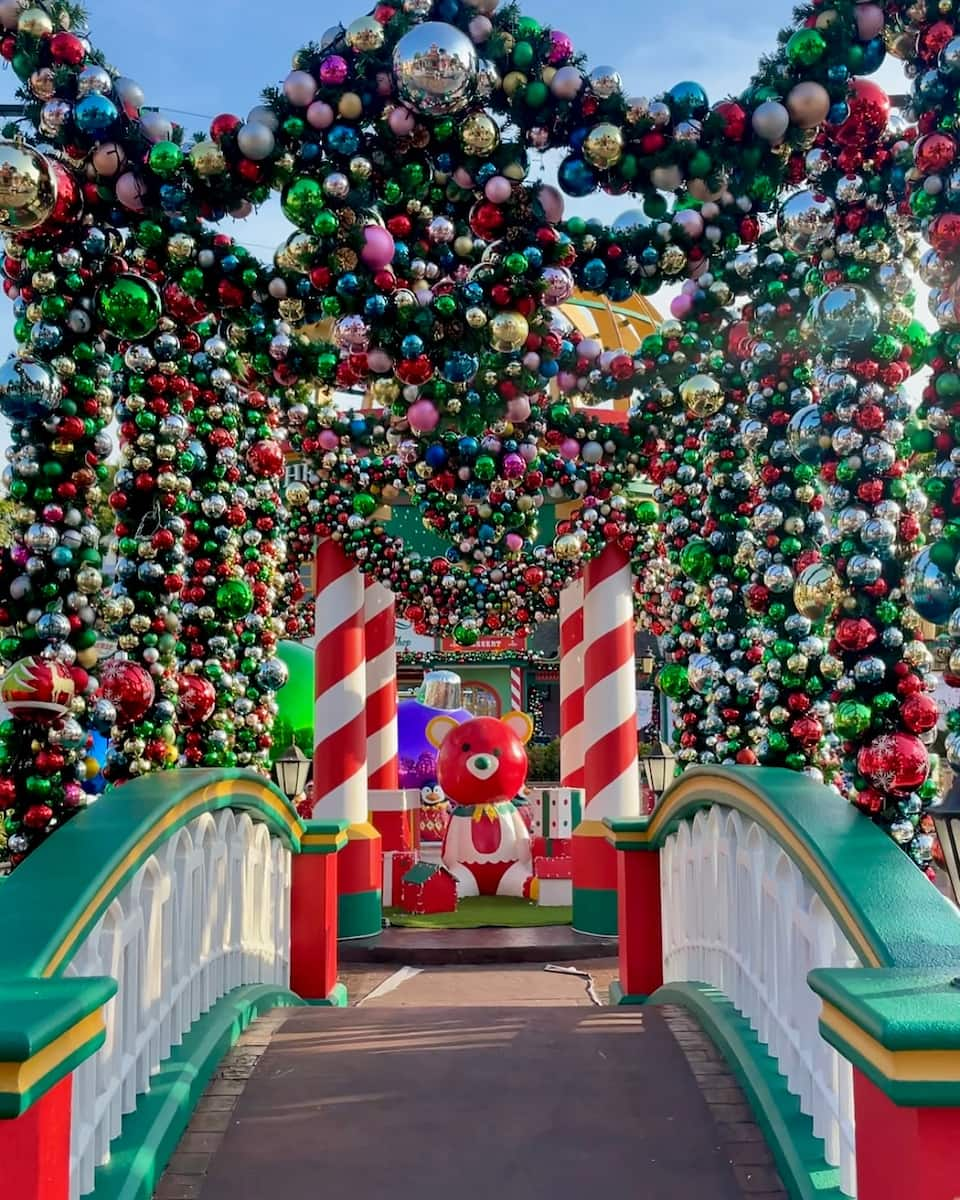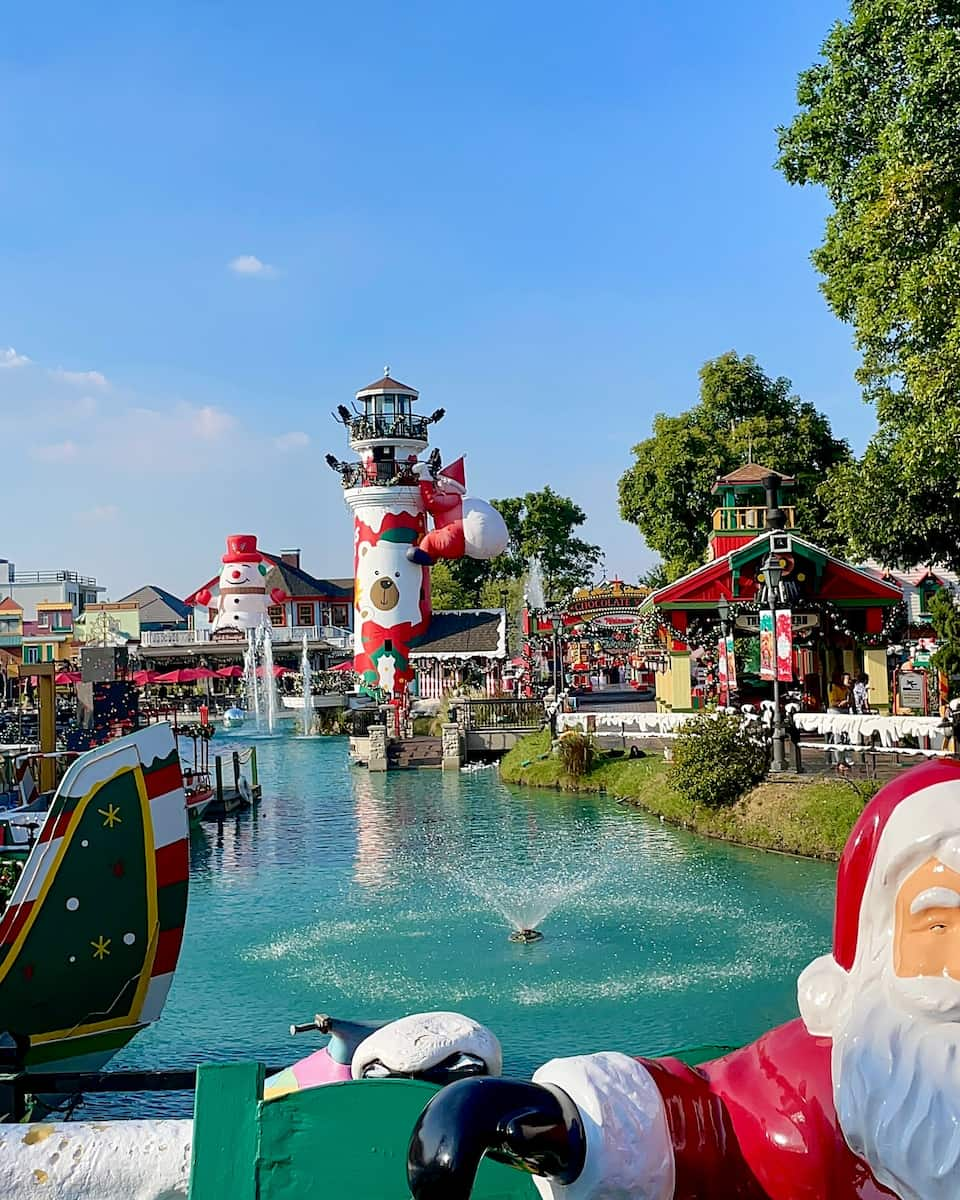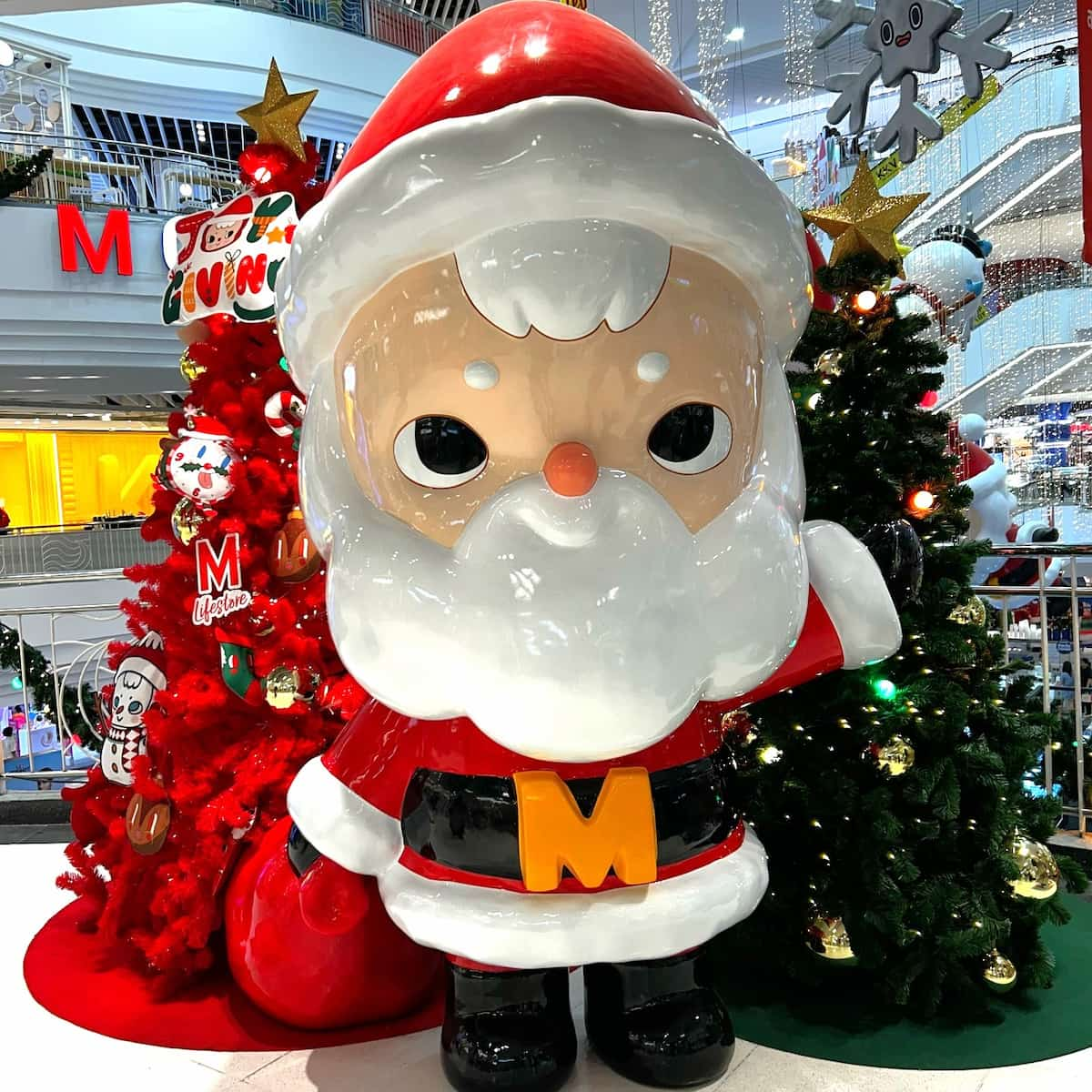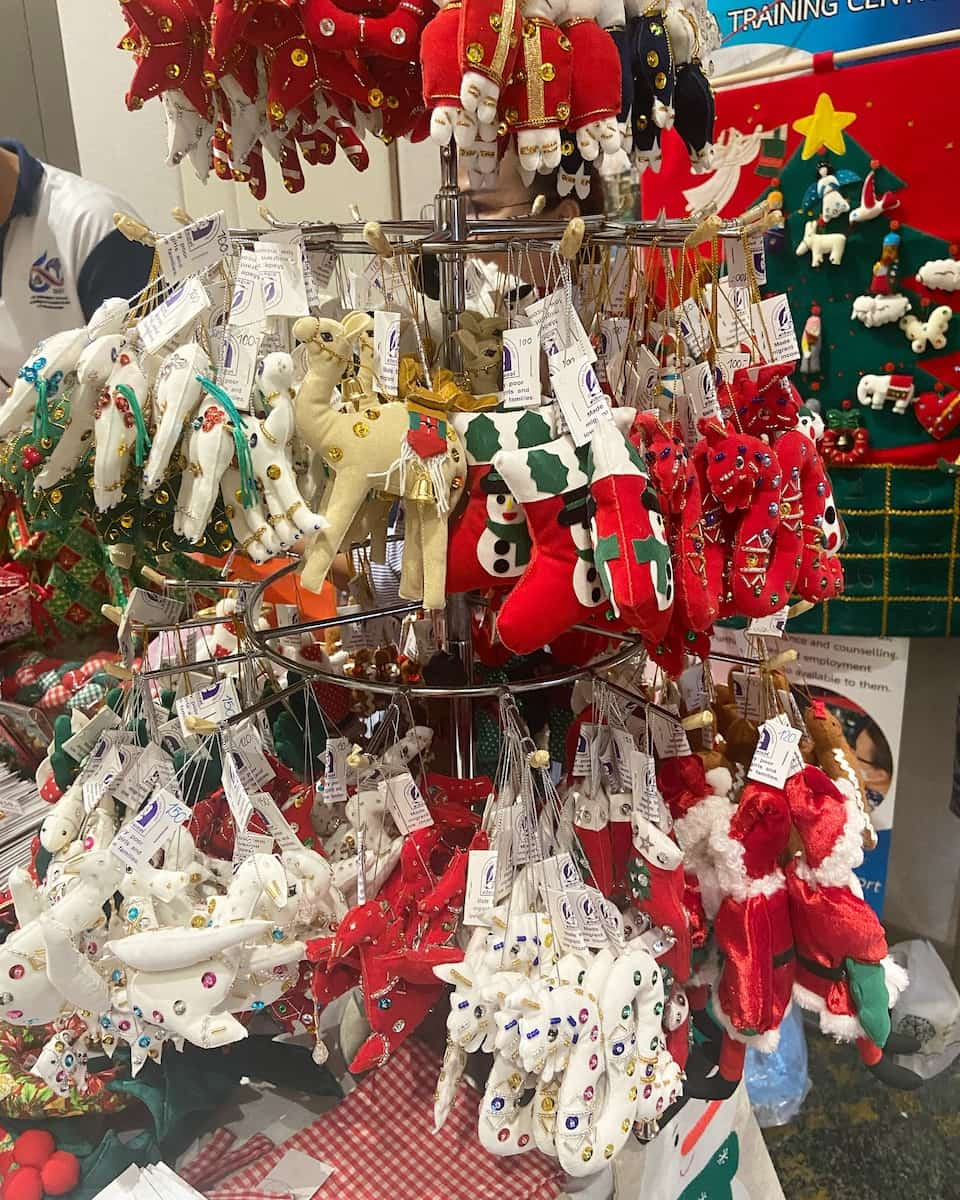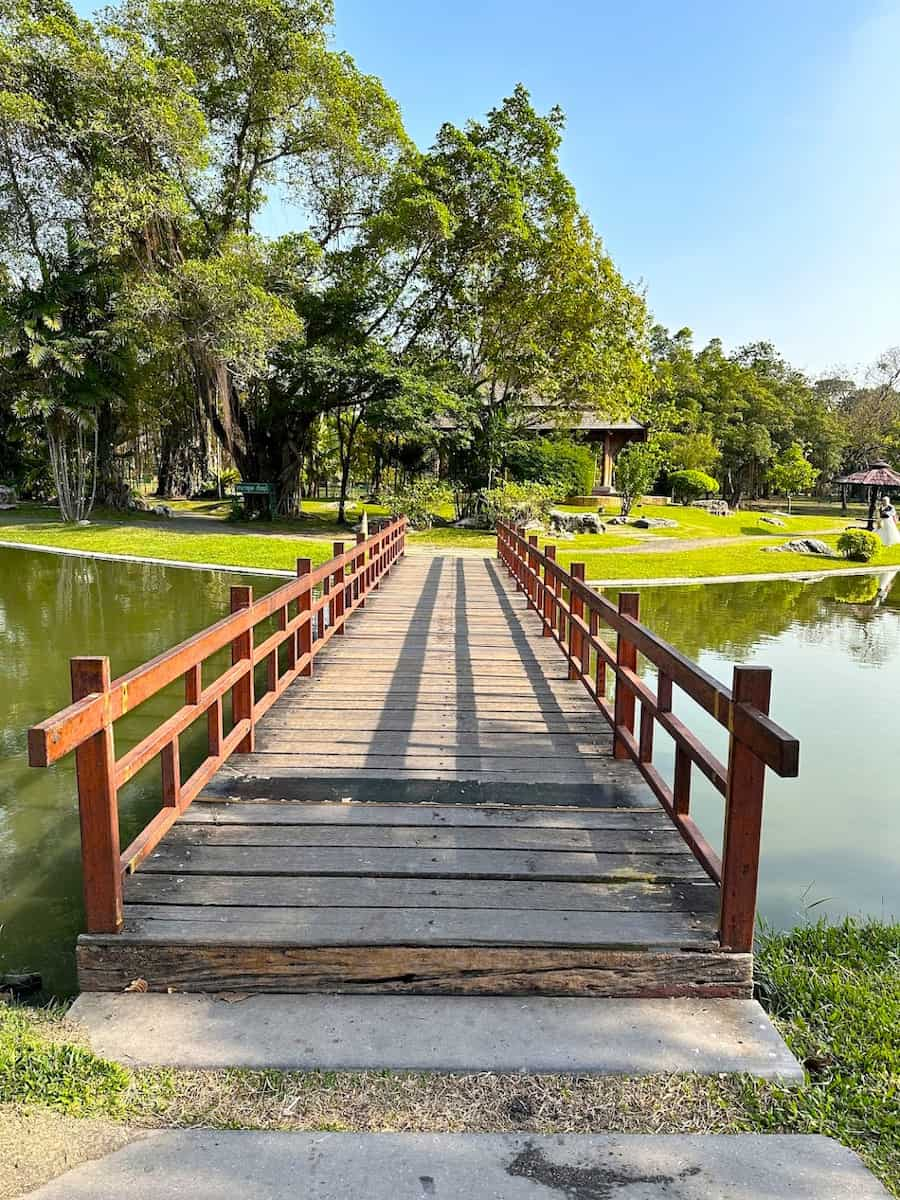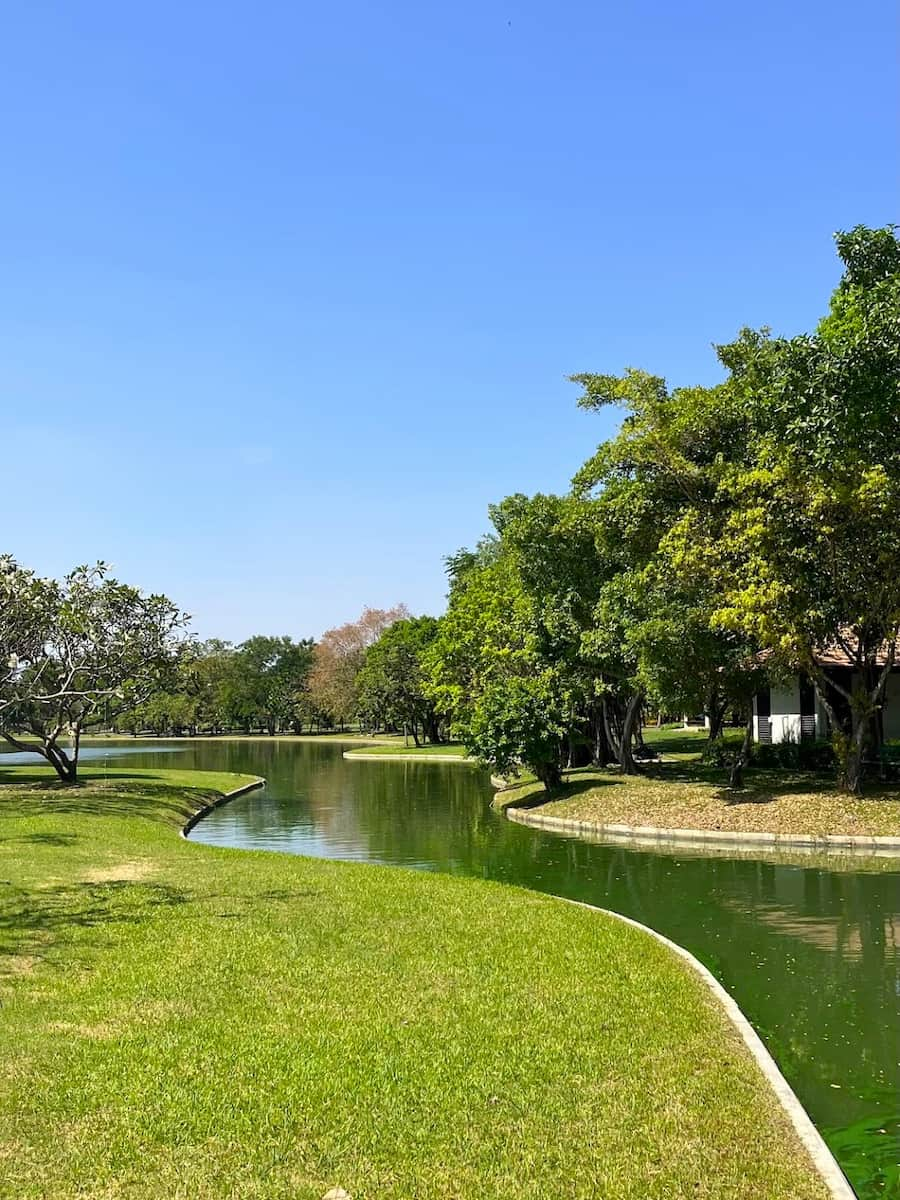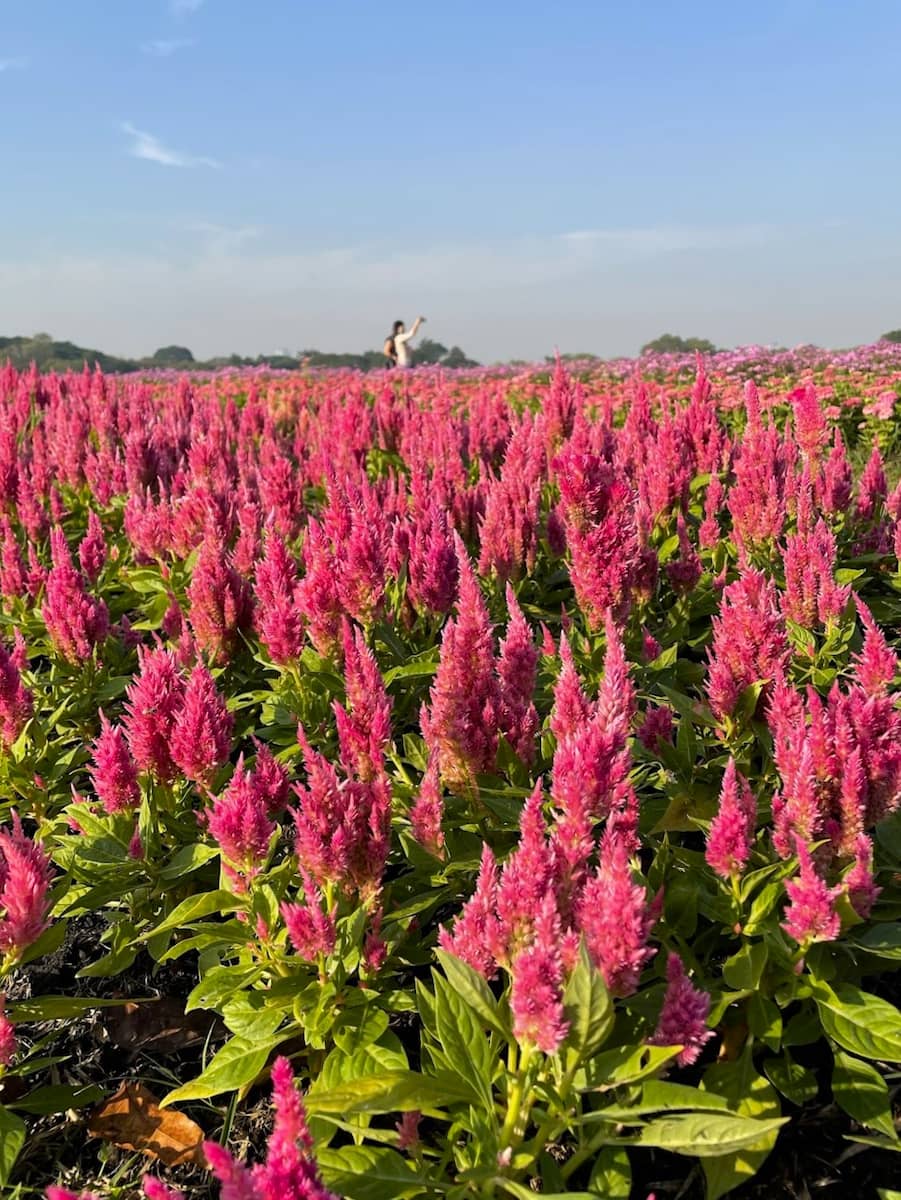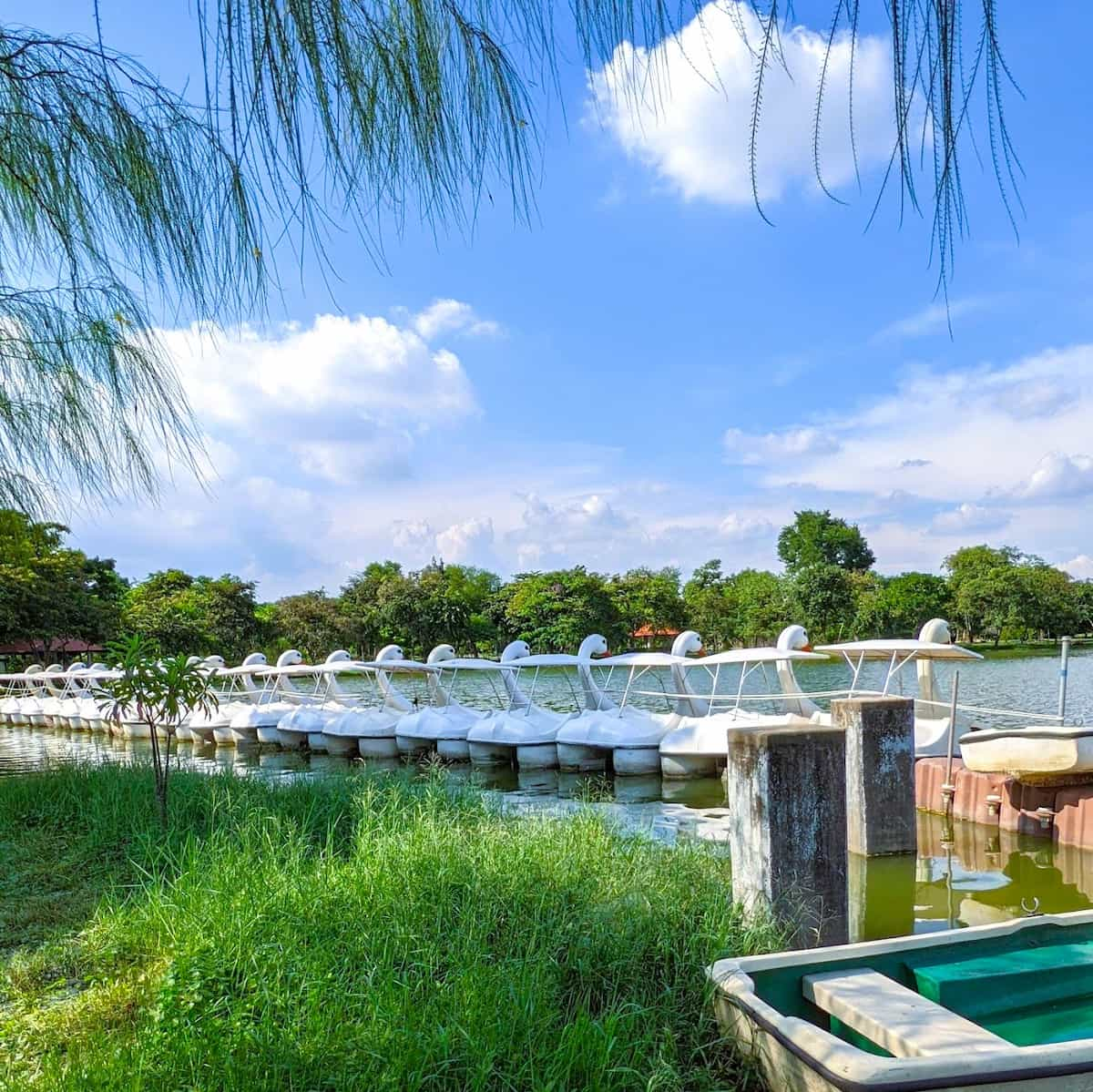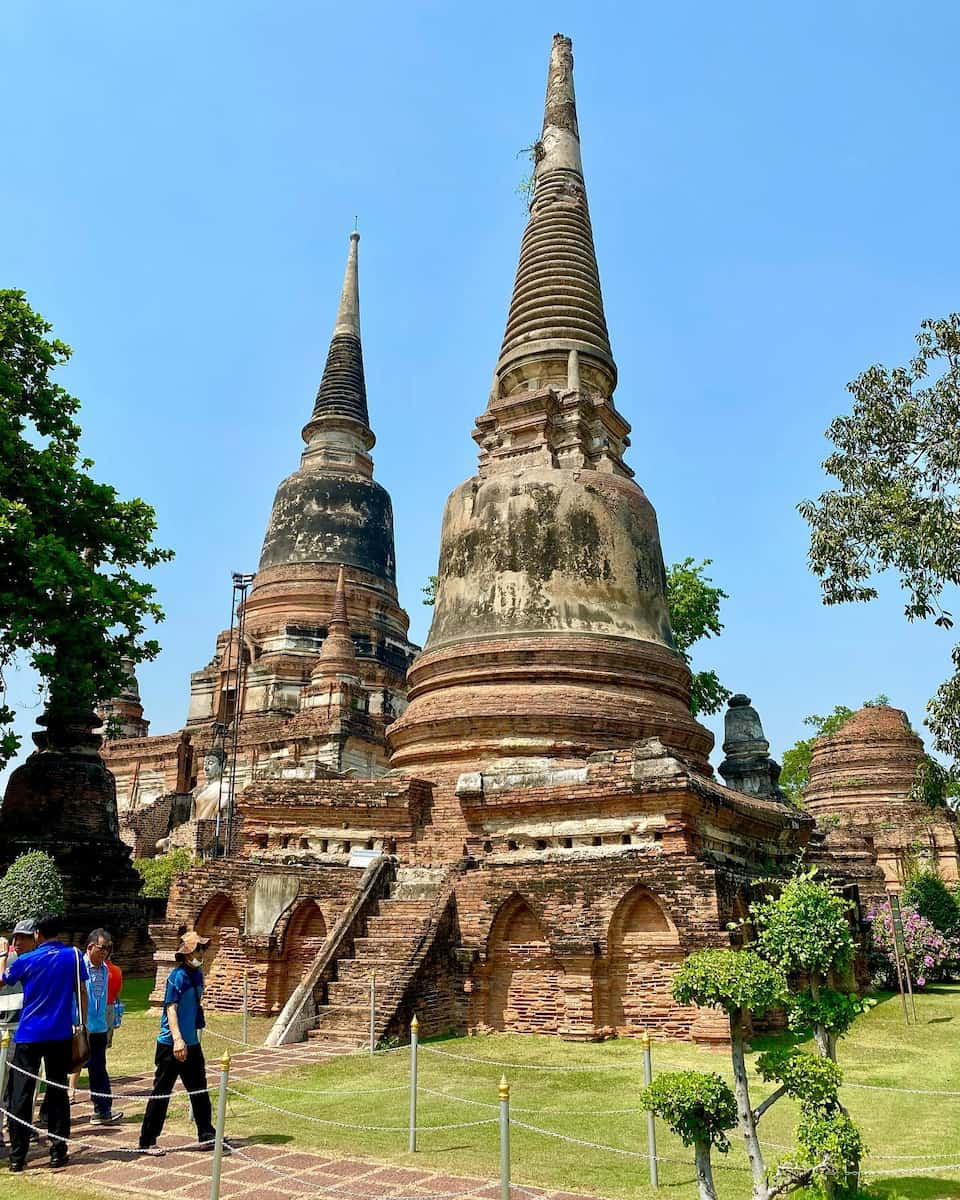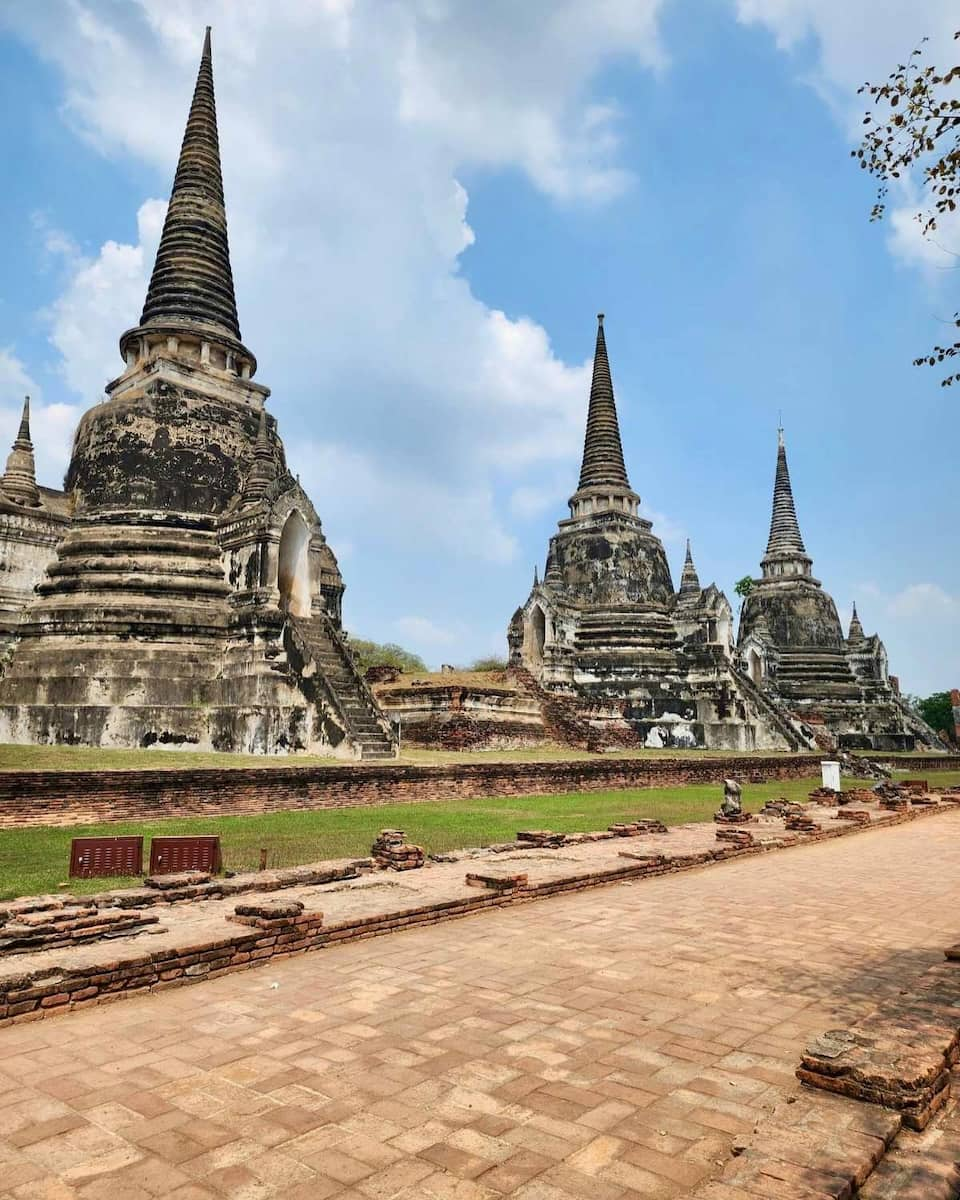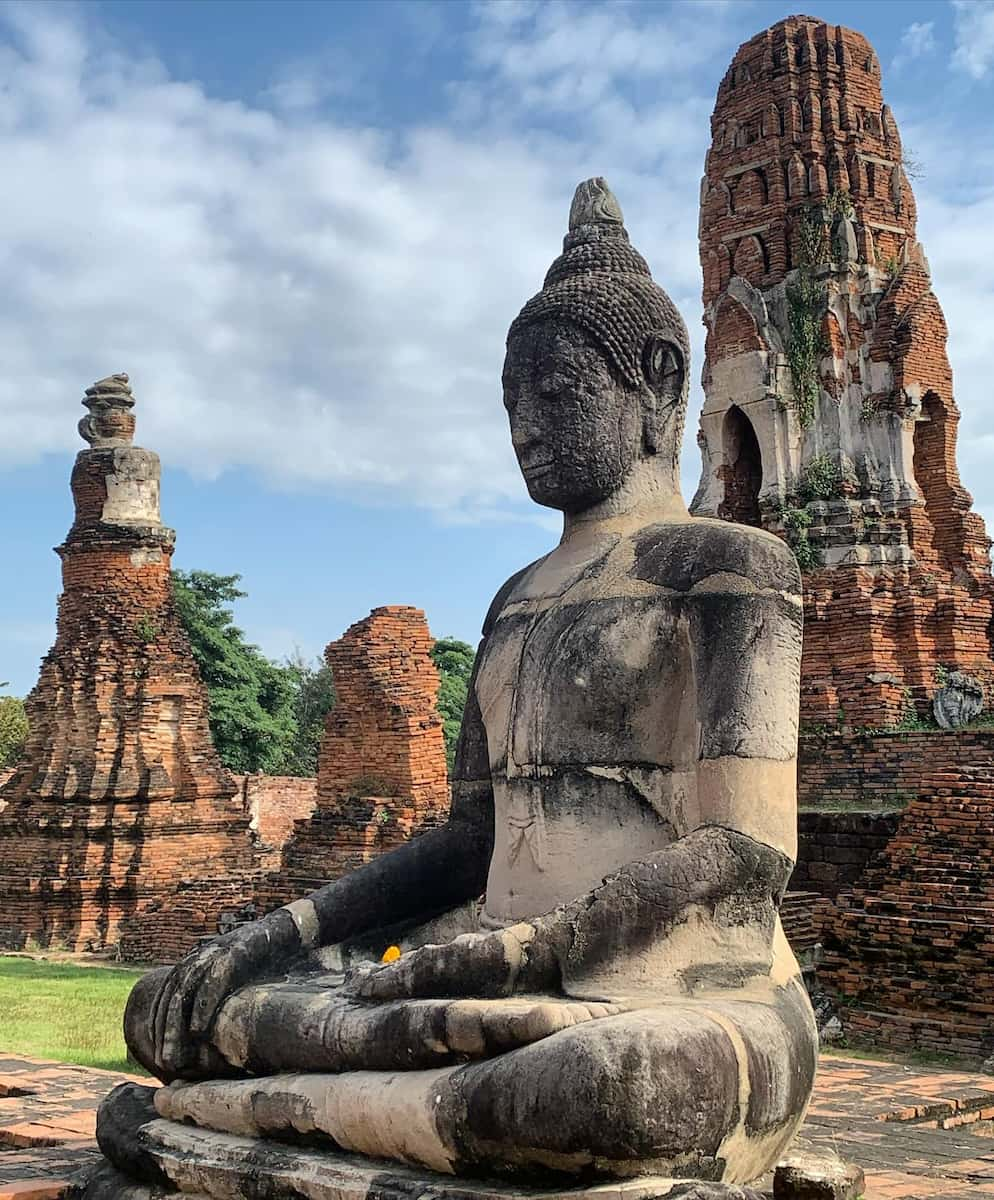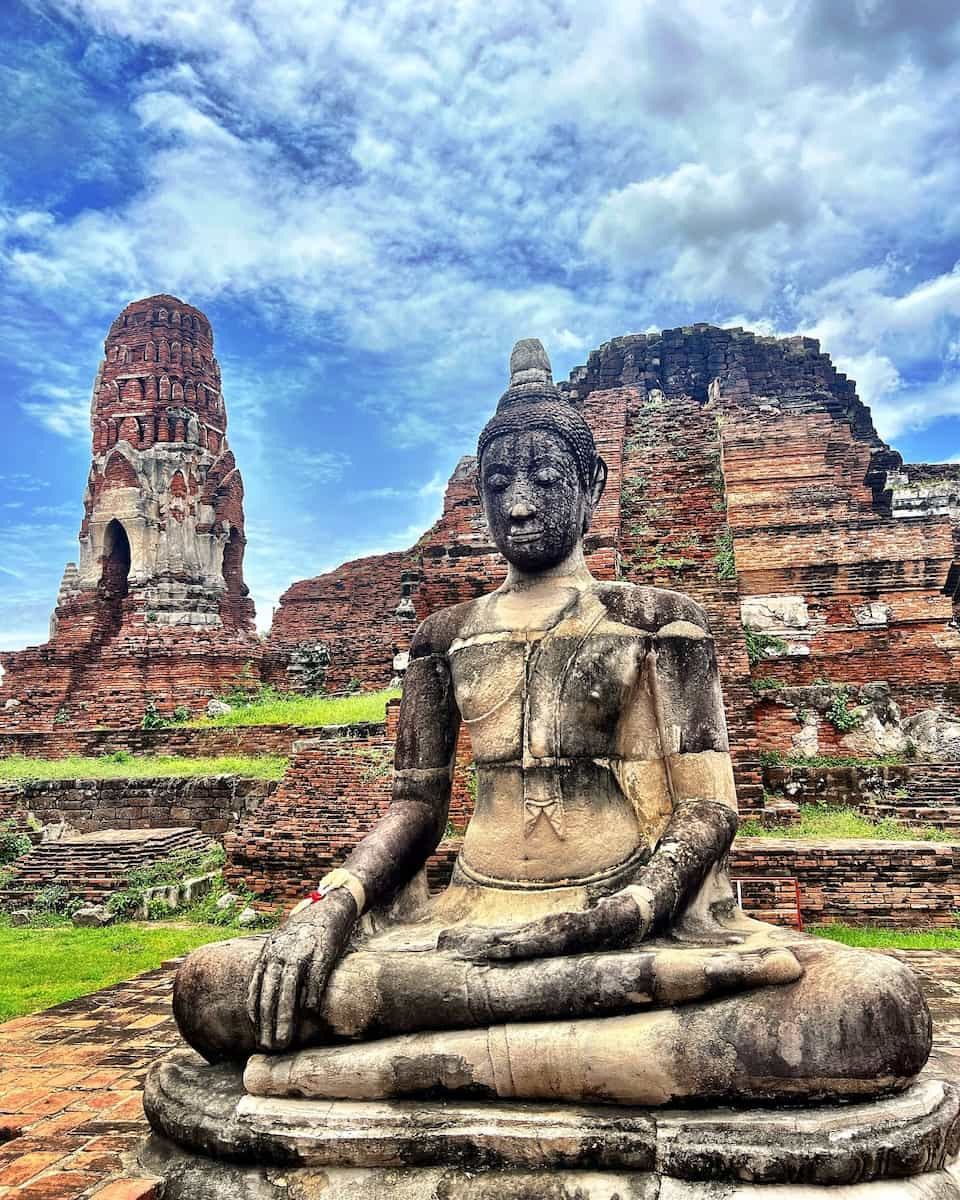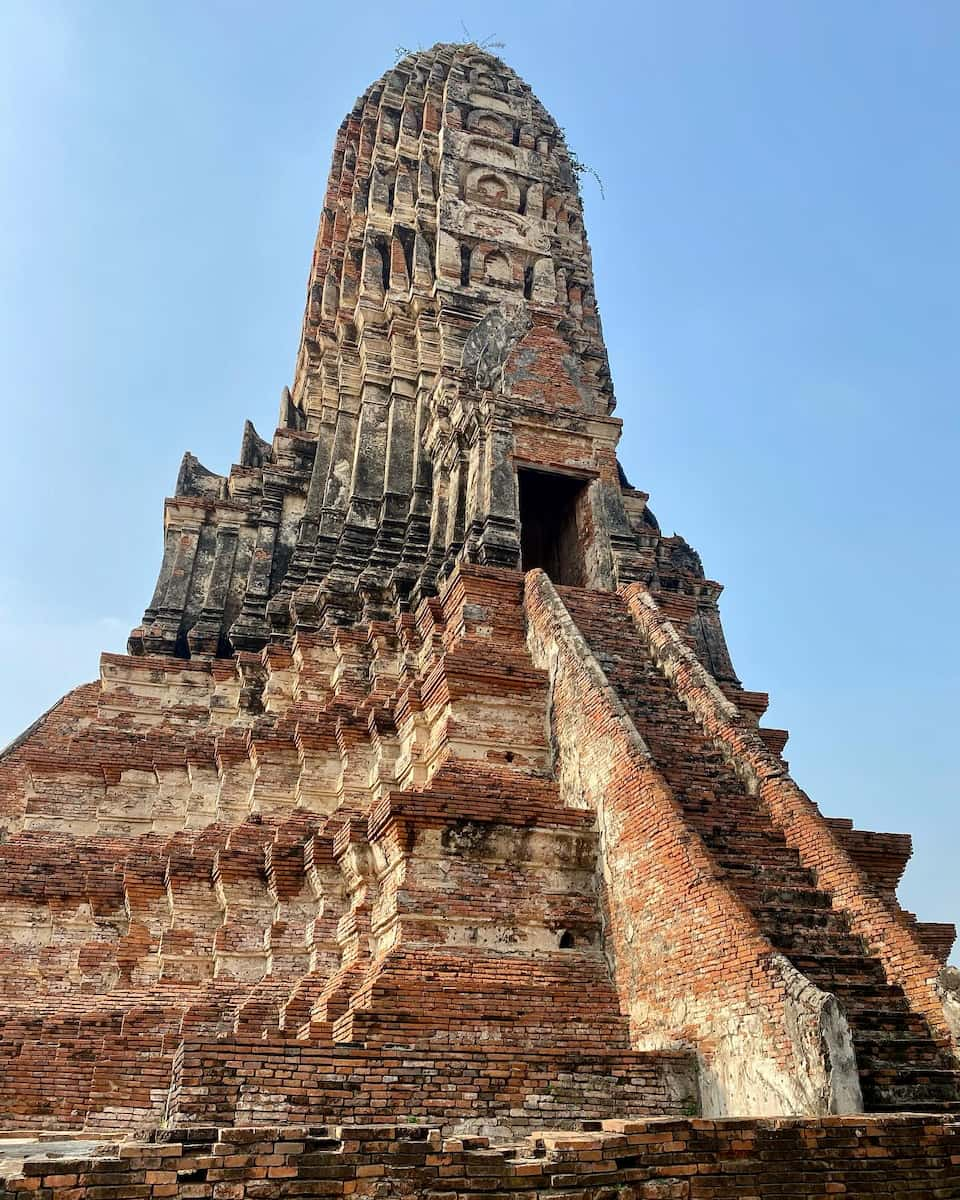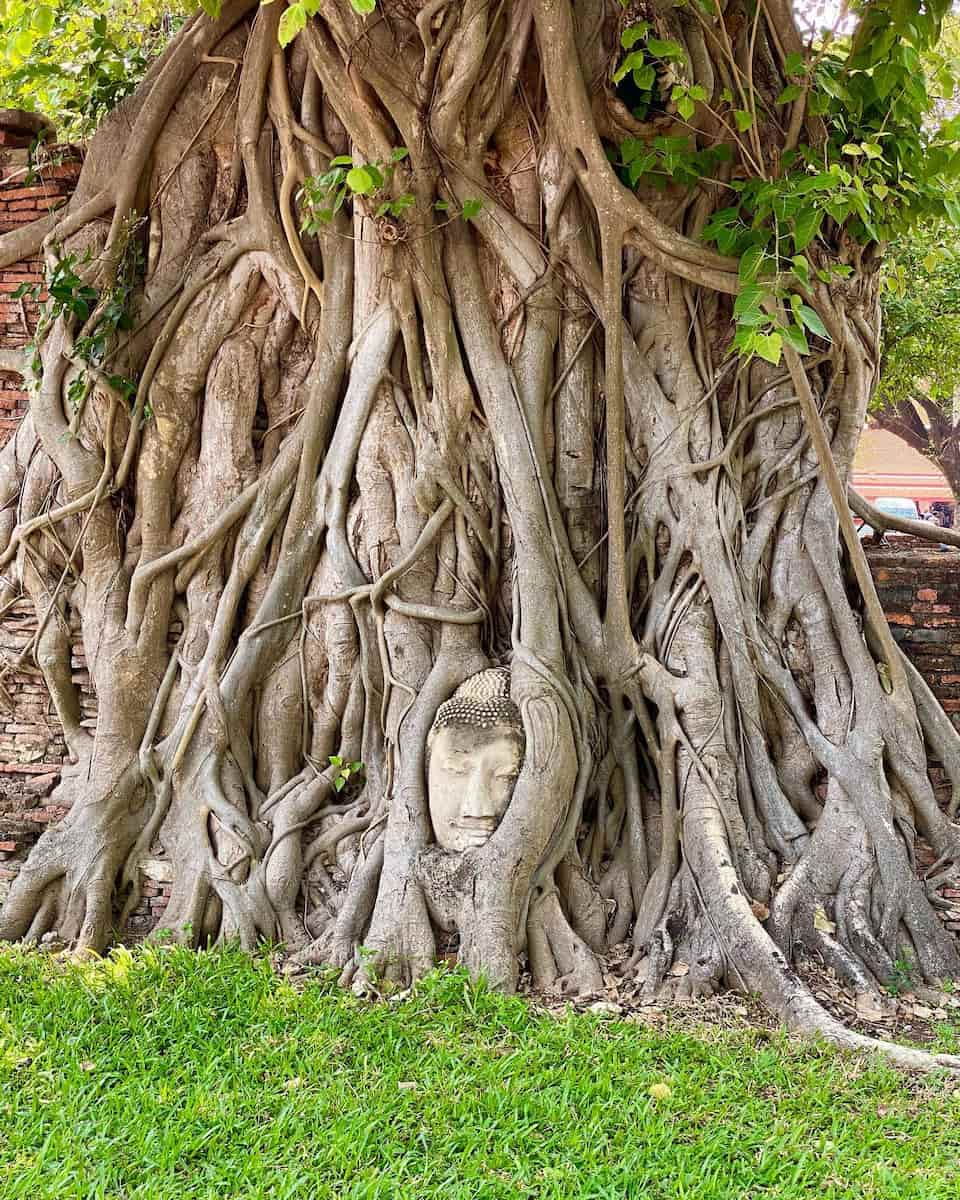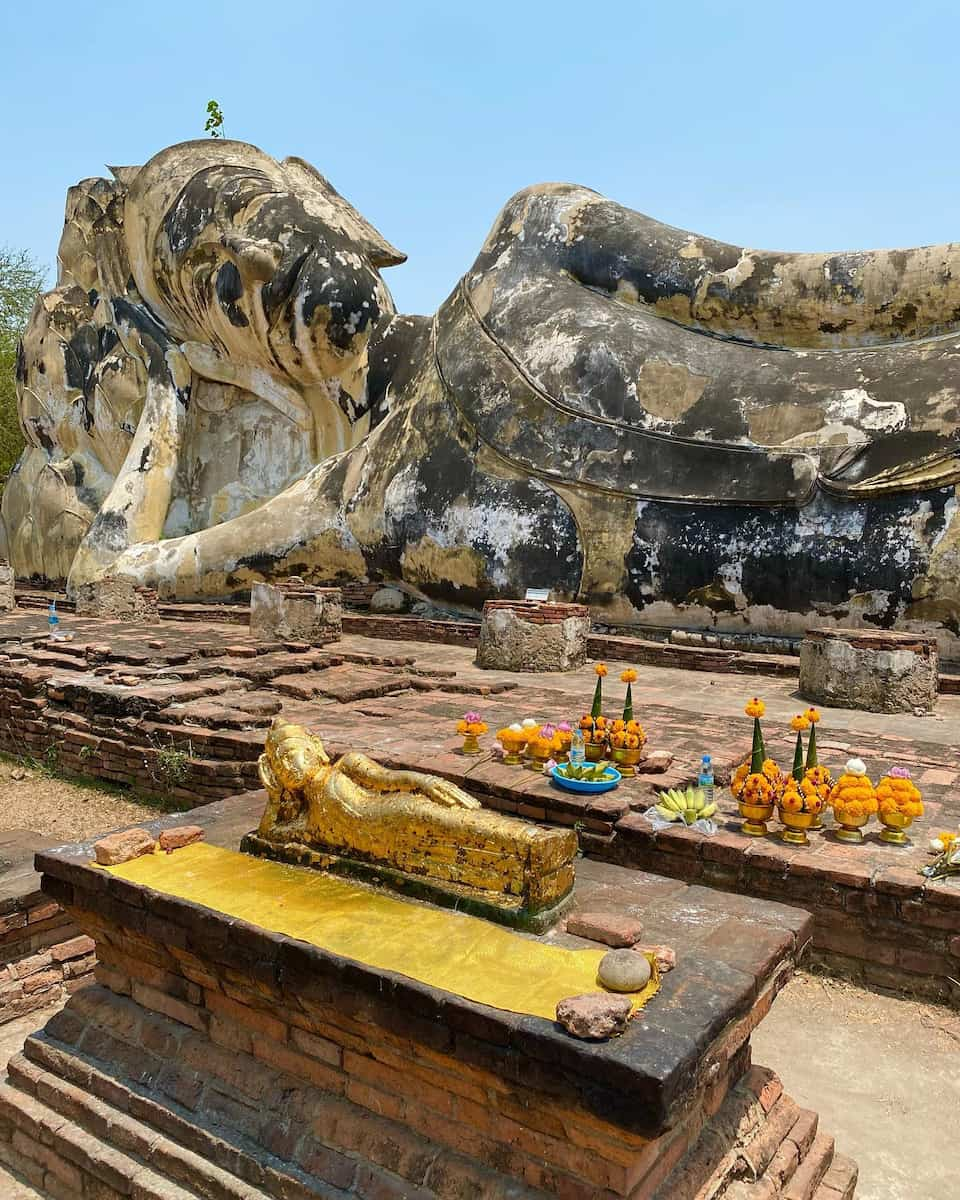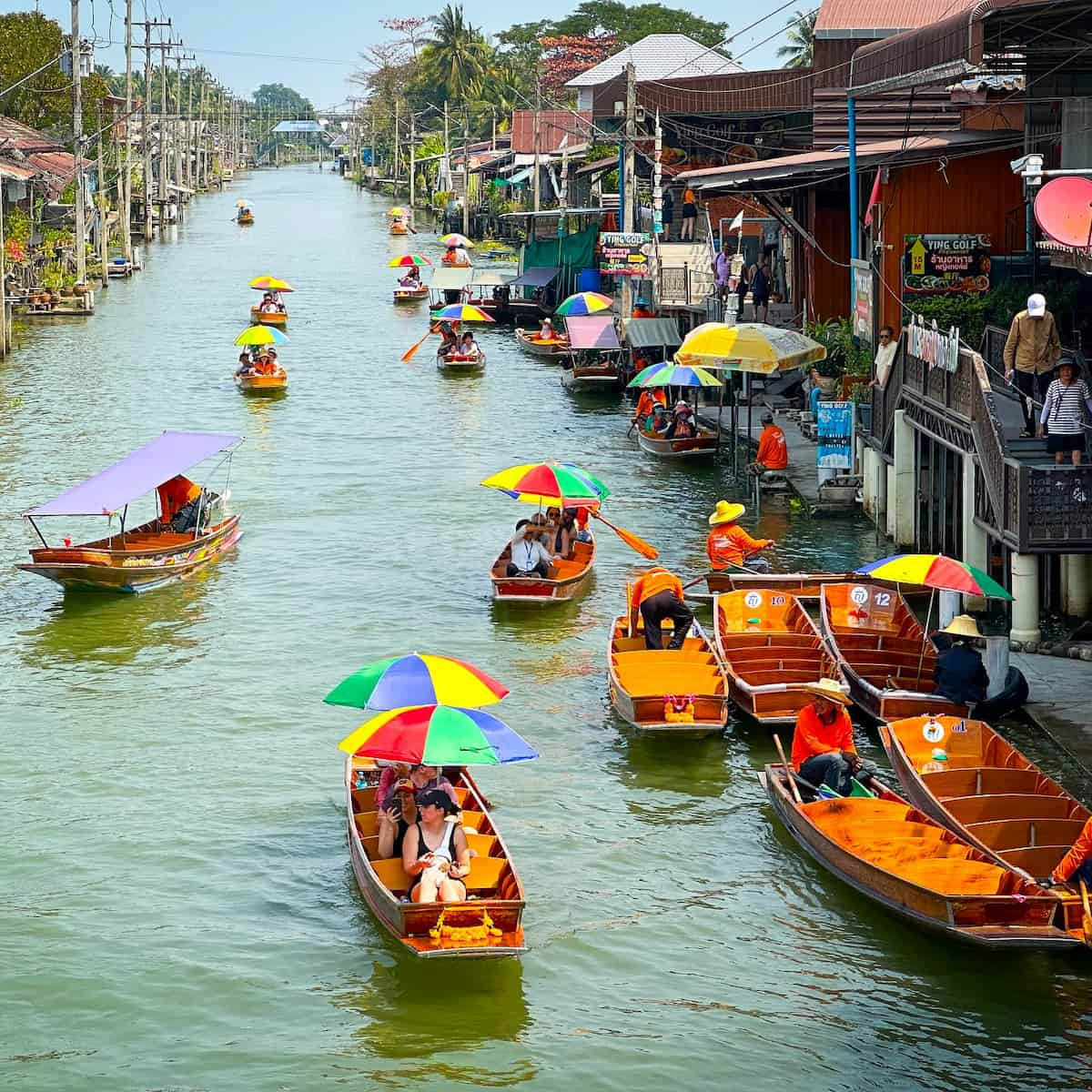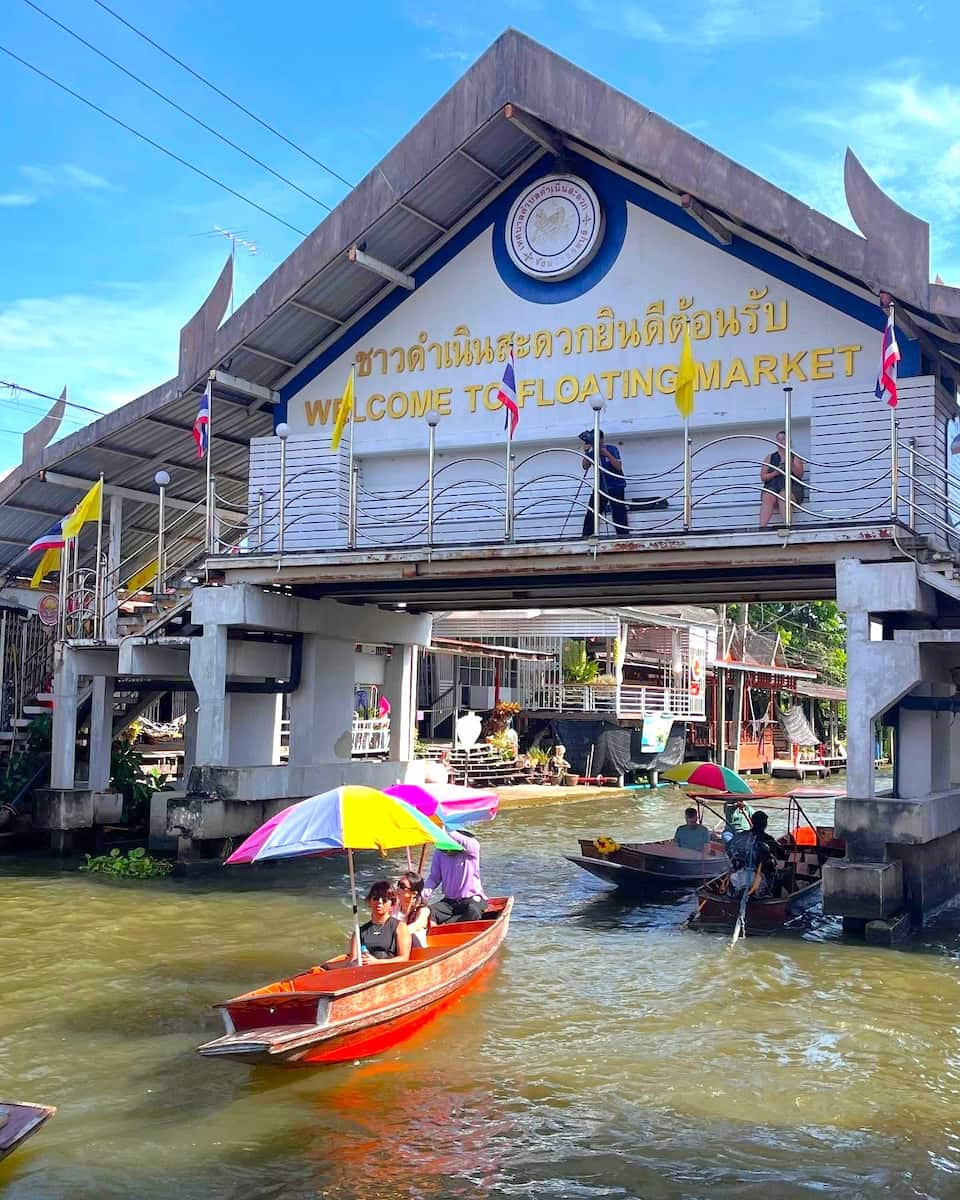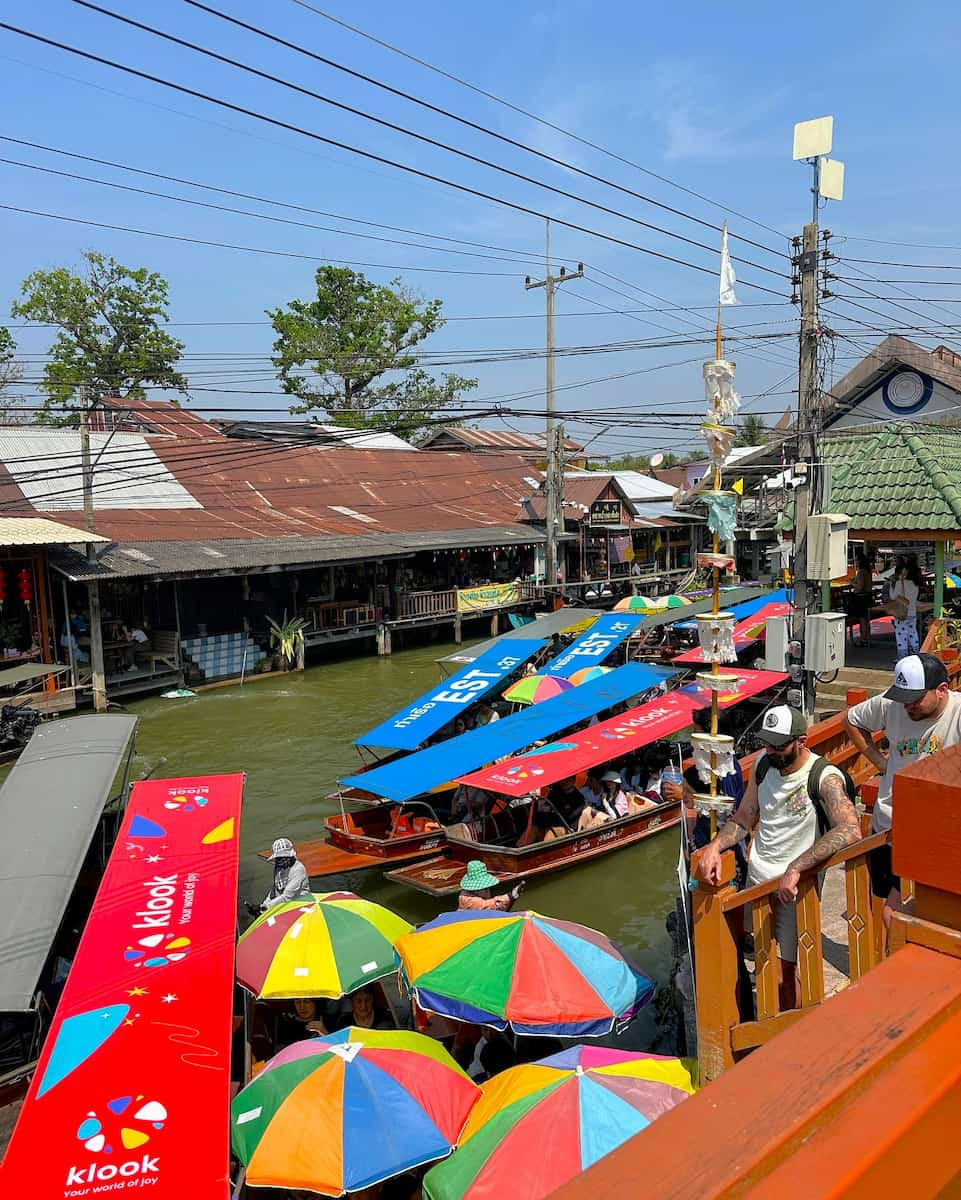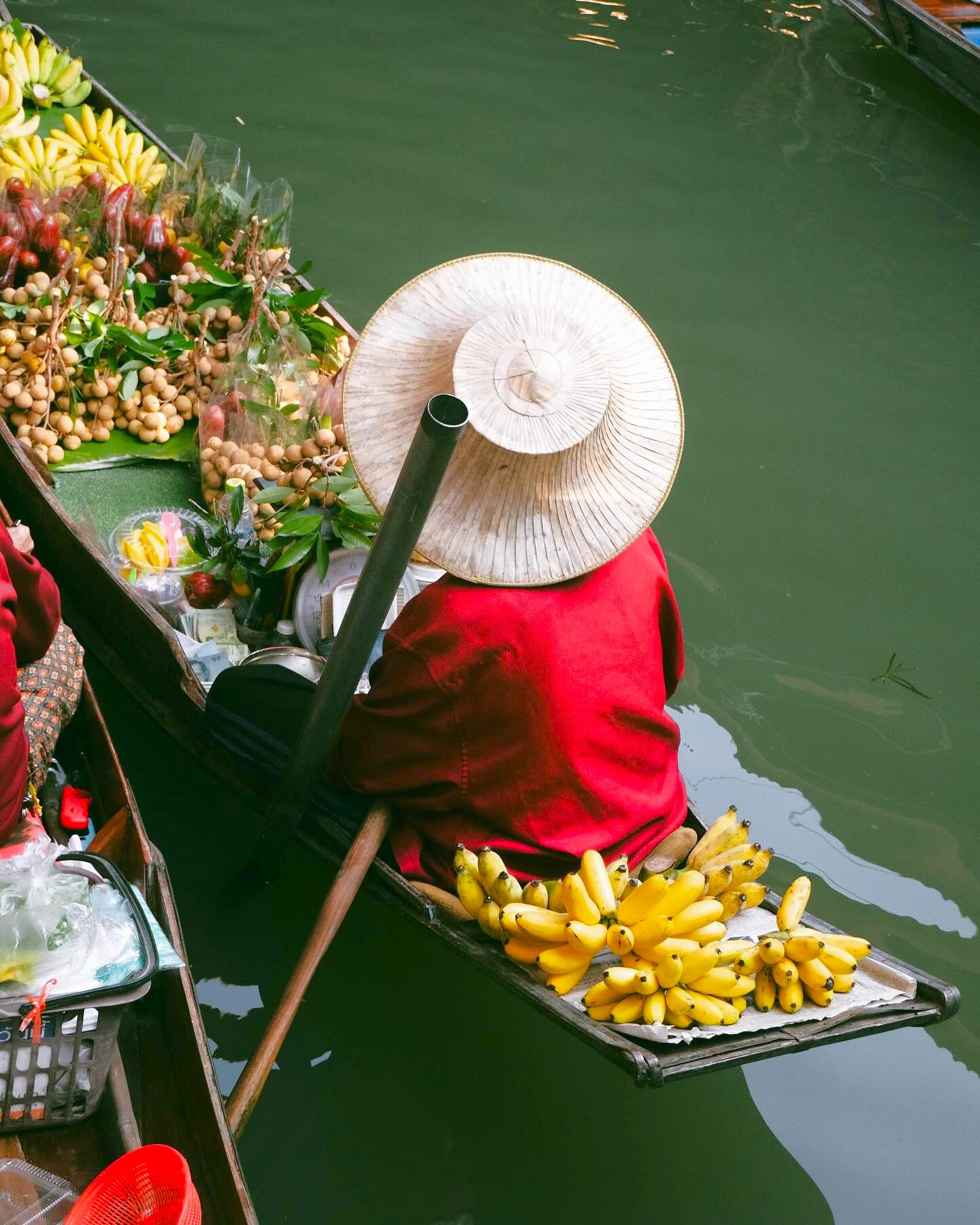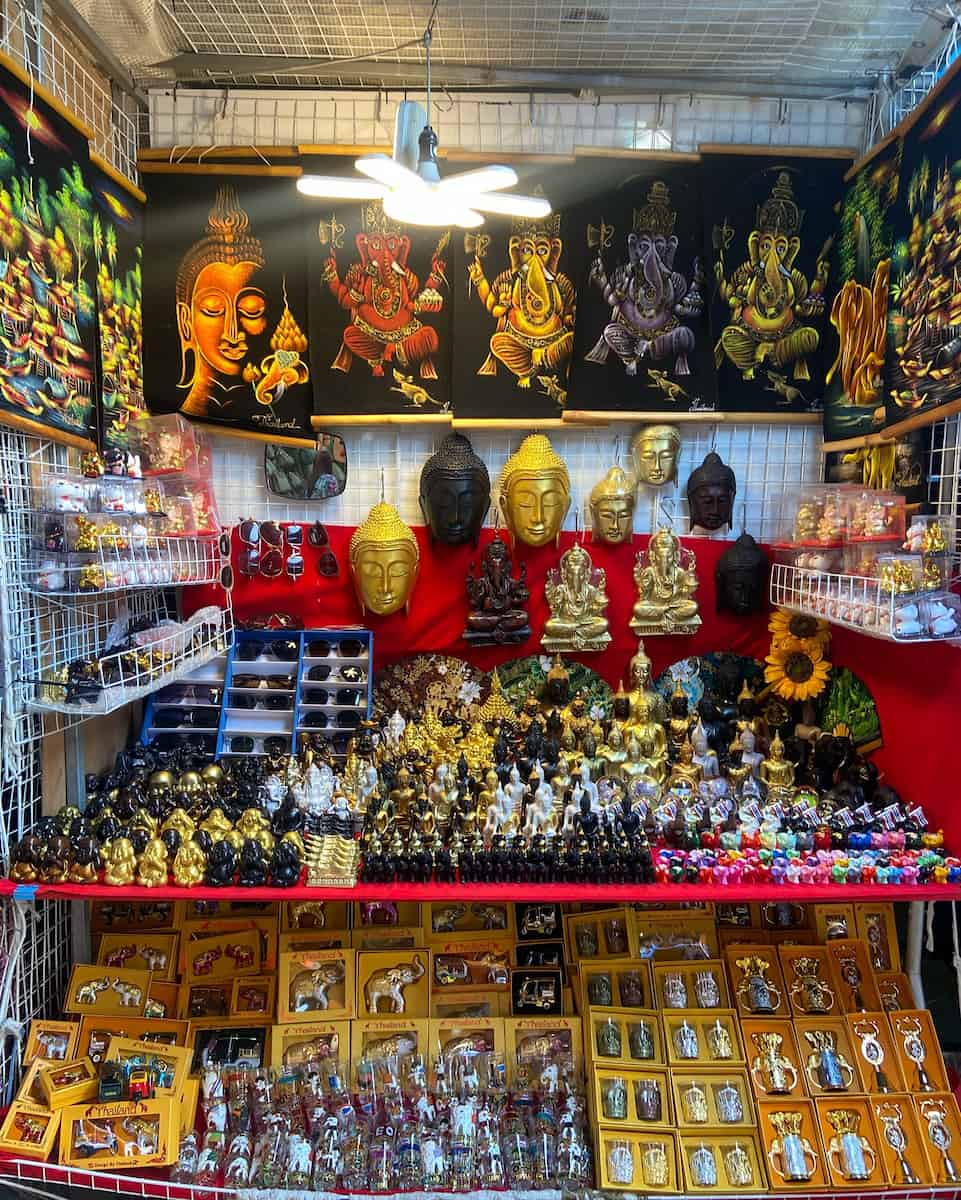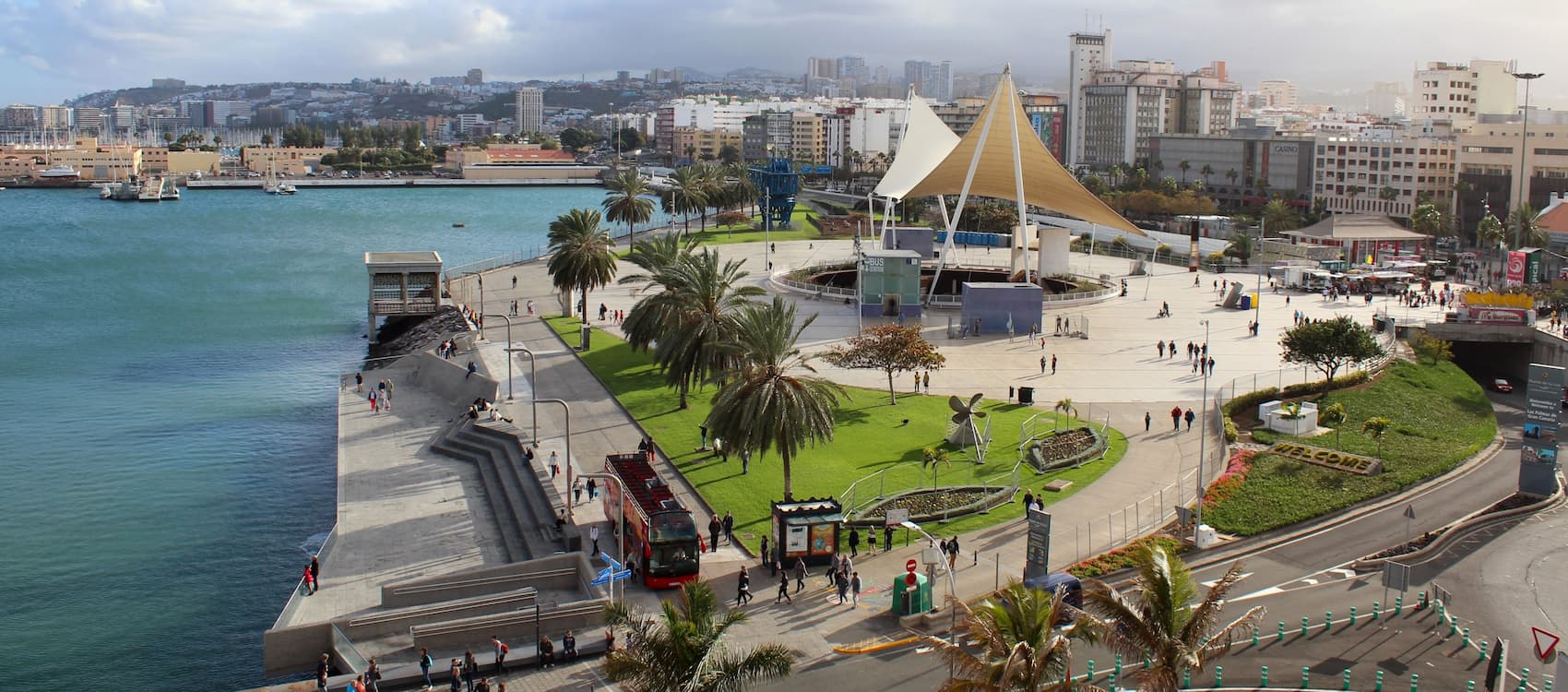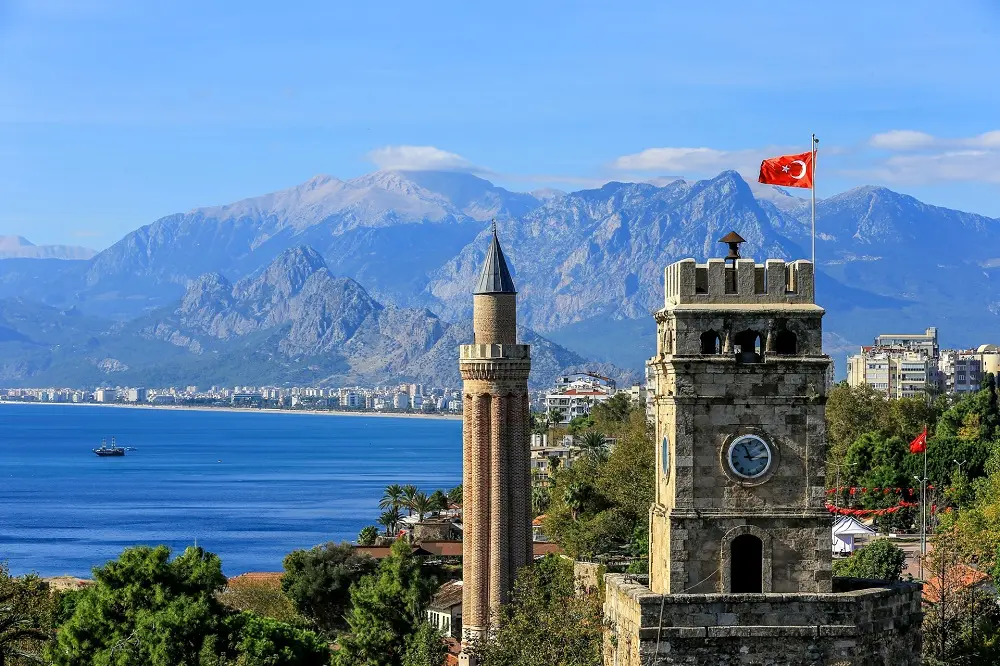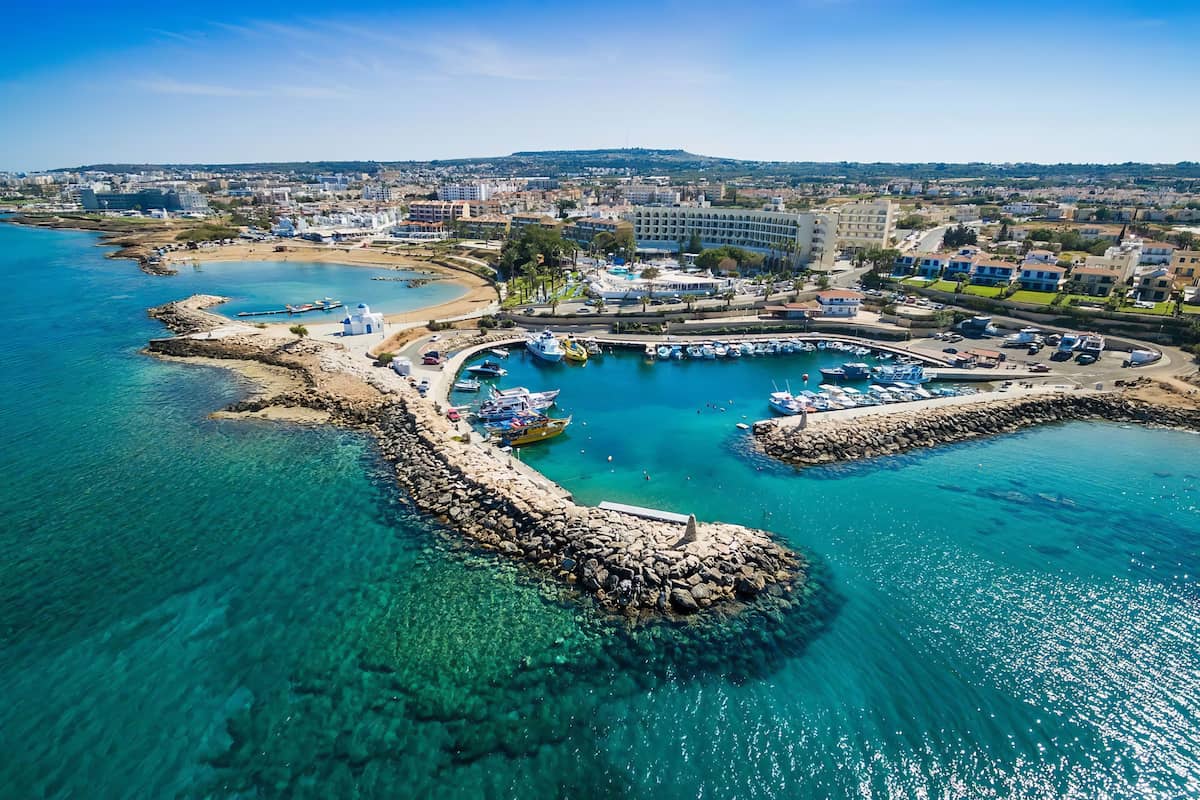Bangkok pulses with an energy that captivates millions of visitors each year, blending ancient temples with gleaming skyscrapers and street food vendors with luxury shopping malls. I’ve wandered through floating markets at dawn, climbed golden temple steps in the afternoon heat, and watched the city transform into a neon wonderland after dark. This sprawling metropolis offers experiences that range from spiritual temple visits to adrenaline-pumping rooftop adventures, ensuring every traveler finds their perfect Bangkok moment.
Whether you’re planning your first visit or returning to discover hidden gems, this comprehensive guide reveals the city’s most rewarding experiences across all seasons and budgets. From free temple walks and park strolls to family-friendly attractions and exciting day trips, you’ll find practical advice for creating unforgettable memories in Thailand’s vibrant capital. The following sections will help you navigate Bangkok’s diverse neighborhoods, understand the best timing for different activities, and maximize your time in this fascinating city where tradition and modernity dance together on every street corner.
🏠 Where to Stay in Bangkok
- 💎 Luxury Hotel: Eastin Grand Hotel Sathorn
- ✨ 5-Star: AKYRA Thonglor Bangkok
- 🏨 4-Star: Gardina Asoke
- 🛏️ 3-Star: Dear Sunday Hometel Bangkok Bang Rak
- 💸 Cheap: Happy 3 Hotel
- 🏢 Apartment: Park 19 Residence
- 👨👩👧👦 For Families: ASAI Bangkok Chinatown
- 🏩 For Couples: Shanghai Inn
💁 Best Guided Tours
- Small Group Tour to Ayutthaya Temples from Bangkok with Lunch from $40 (⭐️4.7/5)
- Bridge on the River Kwai and Thailand-Burma Railway Tour from $90 (⭐️4.4/5)
- Bangkok Night Tour Food Temple and Tuk-Tuk from $79 (⭐️4.8/5)
- Bangkok Three Temples and Grand Palace Tour from $71 (⭐️4.6/5)
Best Things to Do in Bangkok
1. Grand Palace and Wat Phra Kaew
Royal Splendor. The Grand Palace stands as Thailand’s most magnificent architectural complex, housing the sacred Temple of the Emerald Buddha (Wat Phra Kaew). I discovered this isn’t just another temple visit – it’s stepping into the heart of Bangkok’s royal heritage. The intricate golden spires and detailed murals tell stories of Thai mythology that captivate every visitor. When you’re in Bangkok for the first time, this complex offers the perfect introduction to temples in Thailand.
| Detail | Information |
|---|---|
| Entry Fee | 500 THB (~$14 USD) |
| Hours | 8:30 AM – 3:30 PM |
| Location | Na Phra Lan Road, Phra Nakhon |
Temple of the Emerald Buddha. Inside the palace grounds, Wat Phra Kaew houses Thailand’s most revered Buddha statue carved from a single jade block. The emerald buddha sits high on a golden altar, changed seasonally by the King himself. I spent nearly an hour just observing the detailed craftsmanship of the surrounding walls. This sacred space represents the spiritual center of the capital of Thailand.
Practical Wisdom. Dress codes are strictly enforced – cover shoulders, knees, and wear closed shoes or face the rental booth fees. I recommend arriving early since crowds build quickly after 10 AM. The audio guide costs an additional 200 THB but provides essential context for understanding the complex’s significance. Plan at least 2-3 hours to properly explore this cornerstone of any bangkok itinerary.
⭐️ Best Activities
- Bangkok Grand Palace With Wat Phra Kaew – Explore Thailand’s most sacred temple complex and former royal residence with its stunning golden architecture and the revered Emerald Buddha.
2. Wat Pho
Ancient Healing Sanctuary. Wat Pho houses Thailand’s largest reclining buddha statue, stretching 46 meters in gleaming gold leaf. The temple complex serves as the birthplace of traditional Thai massage, where monks still practice ancient healing techniques. I watched visitors quietly marvel at the intricate mother-of-pearl inlays decorating the Buddha’s feet. This sacred space represents one of the oldest temples in Bangkok and a cornerstone of any trip to bangkok.
| Detail | Information |
|---|---|
| Entry Fee | 200 THB (~$6 USD) |
| Massage | 420 THB (~$12 USD) |
| Hours | 8:00 AM – 6:30 PM |
Traditional Massage Experience. The temple’s massage school offers authentic Thai treatments in open-air pavilions surrounded by ancient stupas. I experienced the therapeutic benefits firsthand – skilled practitioners use pressure points and stretching techniques passed down through generations. The 30-minute session left me completely relaxed and understanding why this temple attracts wellness seekers from around the world. Book early as slots fill quickly, especially during peak season when planning a trip to bangkok.
Cultural Immersion. Beyond the famous reclining buddha, Wat Pho contains over 1,000 Buddha images and serves as a living monastery. The temple grounds buzz with monks conducting daily prayers and visitors seeking blessings. I spent time observing the intricate tile work and stone guardians that protect each entrance. This temple perfectly captures the spiritual essence that makes thailand travel so transformative for visitors seeking authentic cultural experiences.
⭐️ Best Activities
- Wat Pho The Reclining Buddha Ticket with Transfer – Visit the famous 46-meter golden reclining Buddha statue at one of Bangkok’s oldest temples, including convenient hotel transfers.
3. Wat Arun
Riverside Majesty. Wat Arun rises 70 meters above the Chao Phraya River, its central prang decorated with colorful porcelain and seashells. The temple’s unique Khmer-style architecture distinguishes it from other temples in thailand, creating dramatic silhouettes against the bangkok skyline. I climbed the steep steps to reach viewing platforms that offer panoramic views across central bangkok. The temple’s name honors Aruna, the Hindu god of dawn, though it’s equally stunning throughout the day.
| Detail | Information |
|---|---|
| Entry Fee | 100 THB (~$3 USD) |
| River Ferry | 4 THB (~$0.12 USD) |
| Hours | 8:00 AM – 6:00 PM |
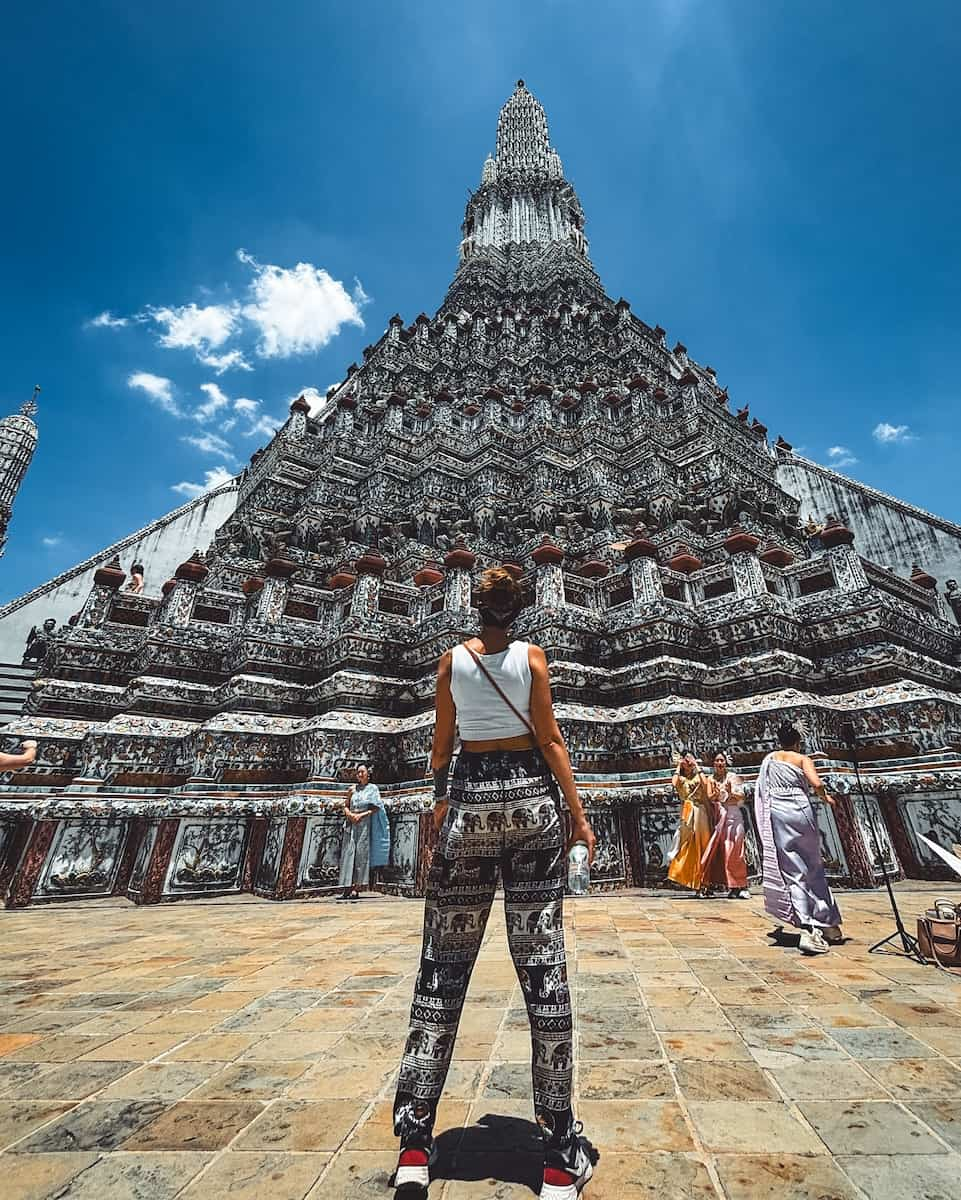
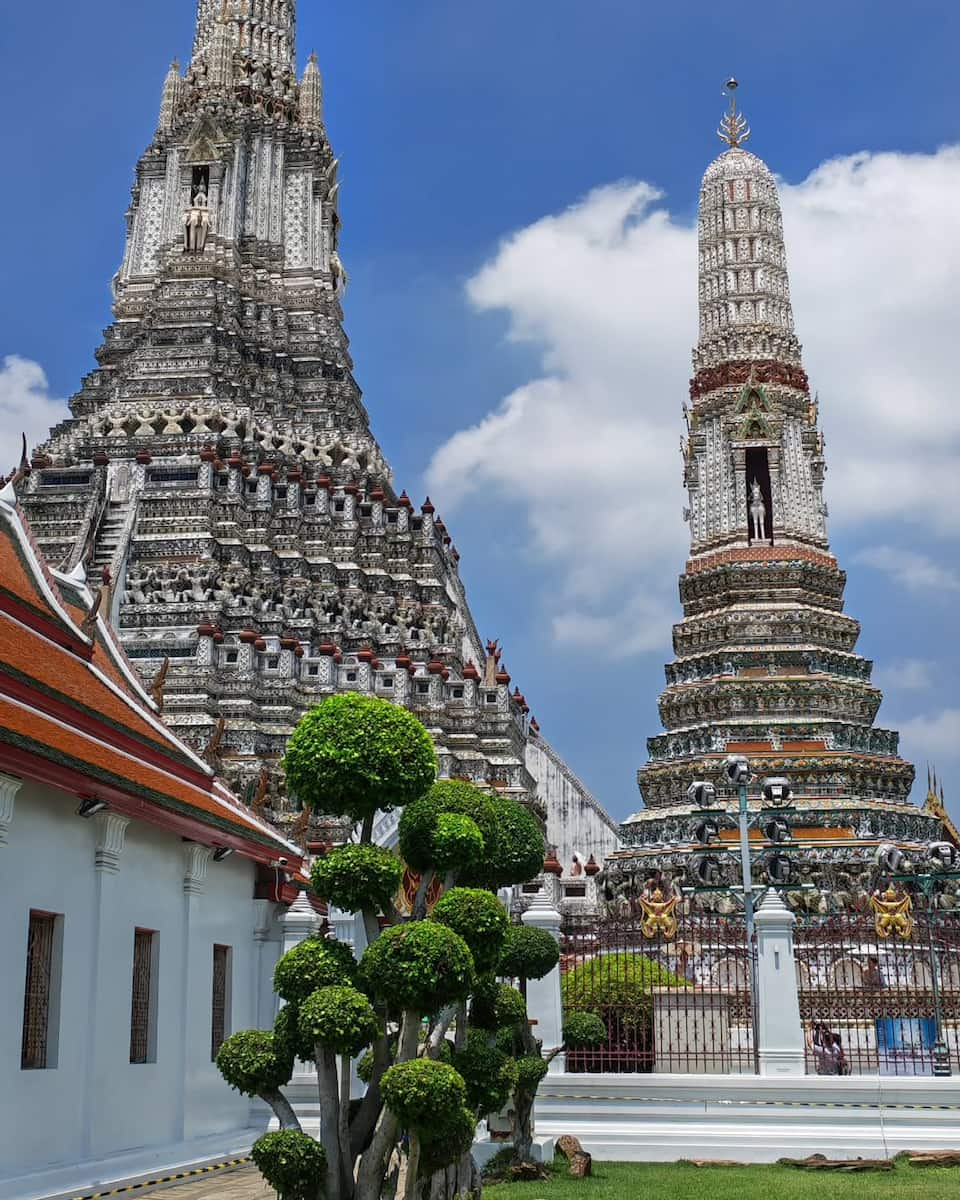
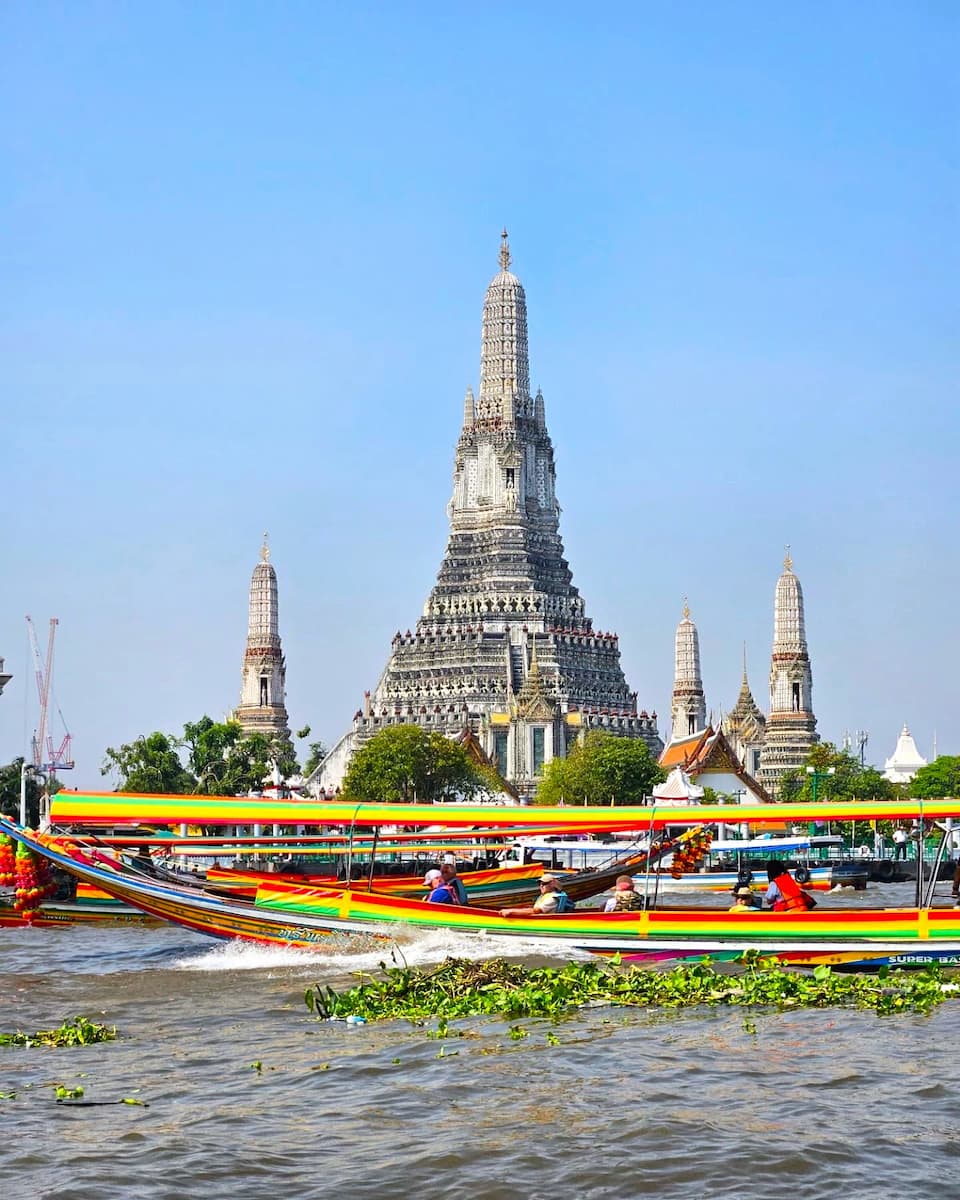
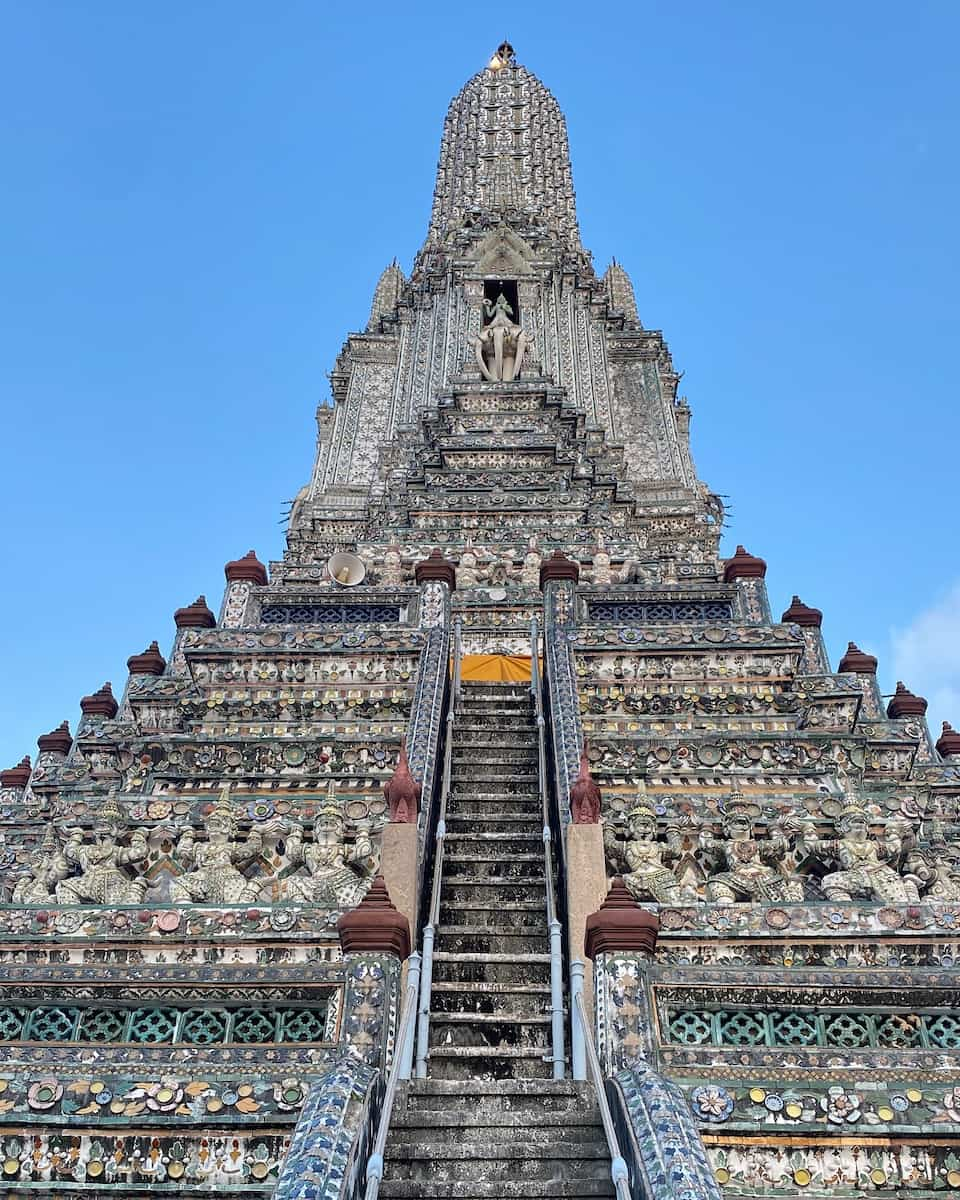
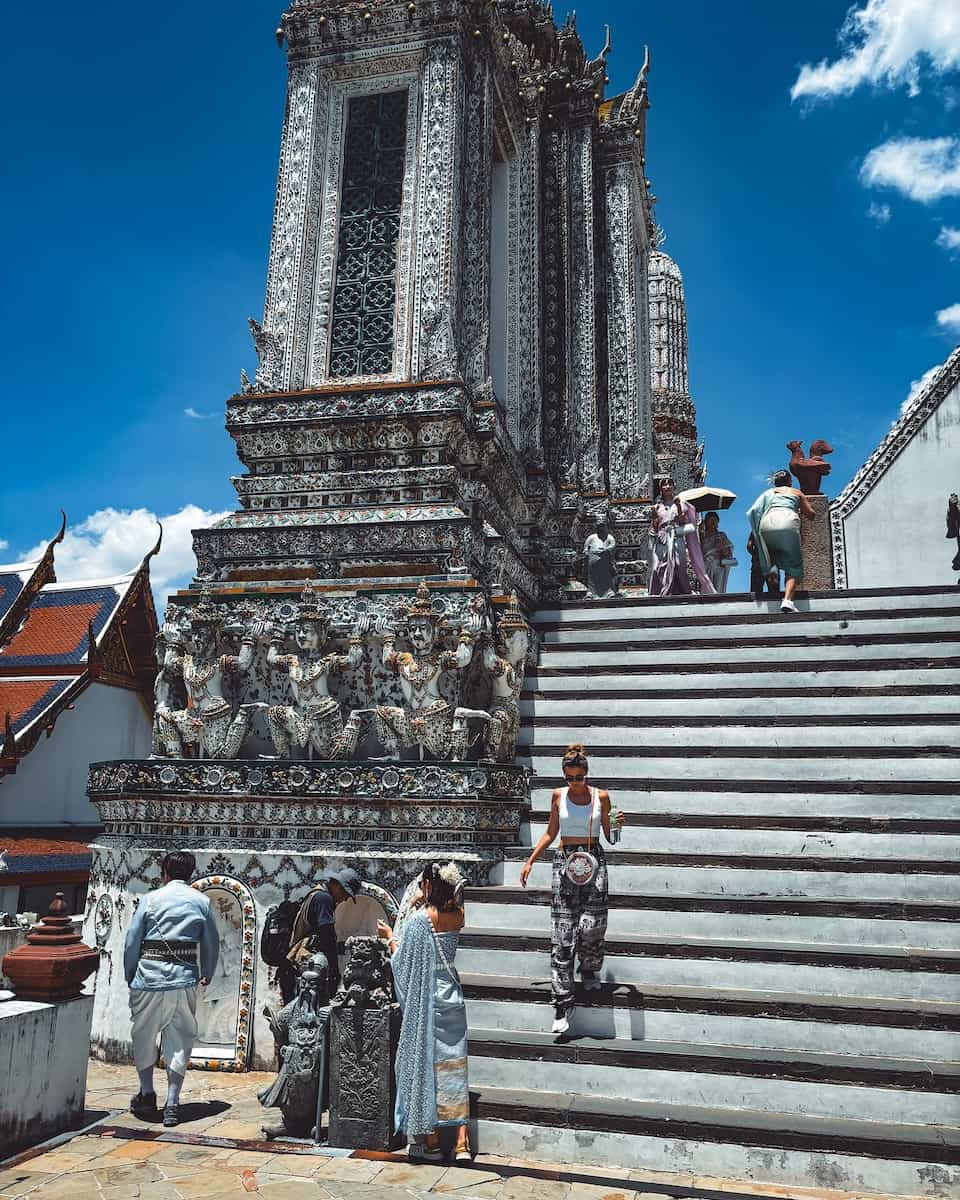
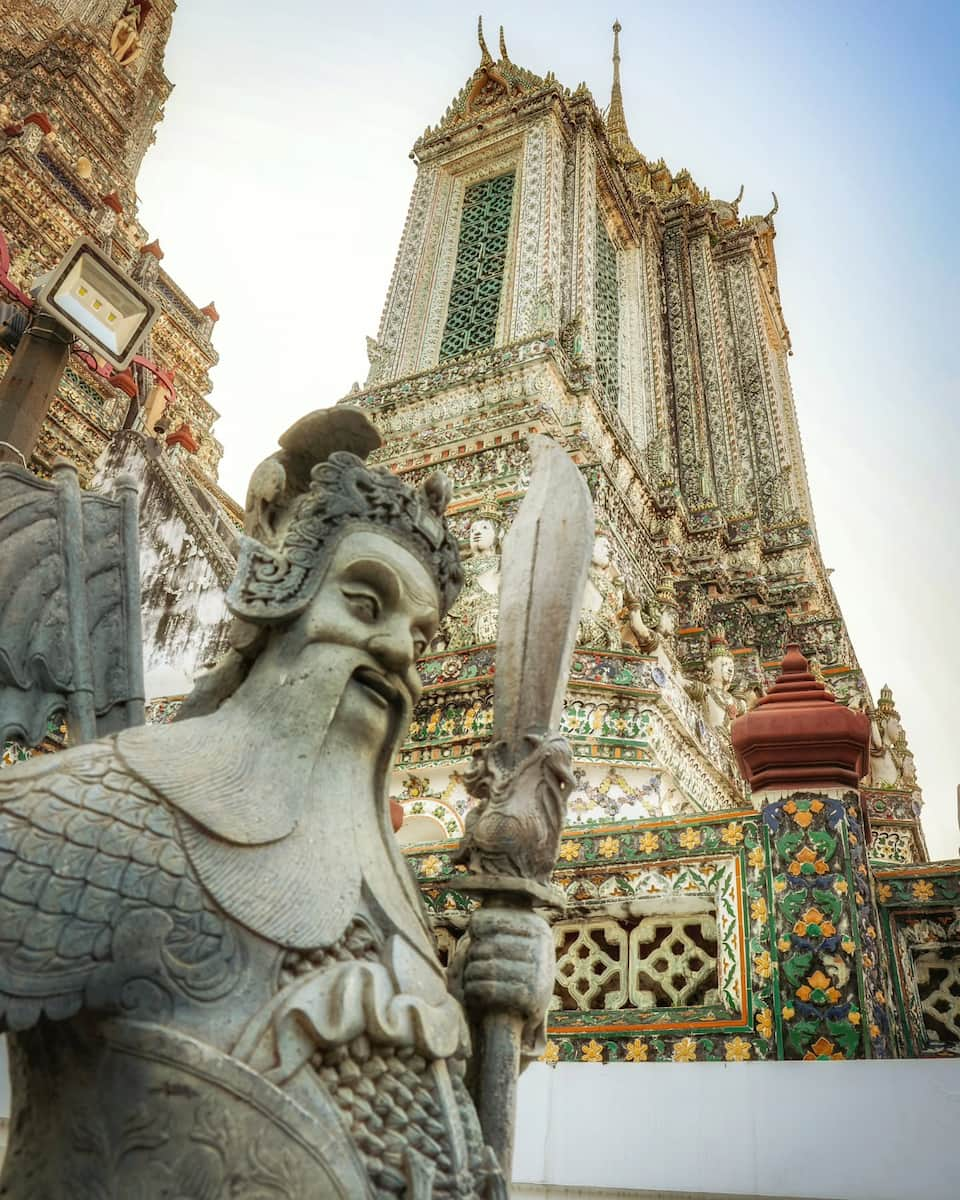
Architectural Wonder. The temple’s four smaller prangs surround the central tower, each adorned with mythical creatures and floral motifs made from broken Chinese porcelain. I discovered these decorative elements were originally ballast from trading ships, transformed into beautiful art by skilled craftsmen. The steep climb requires careful footing, but the effort rewards visitors with unmatched views of the Grand Palace across the river. This perspective helps visitors truly see bangkok from a unique vantage point.
River Access Adventure. Reaching Wat Arun requires a short ferry ride across the chao phraya river, adding an element of adventure to the temple visit. The orange flag boats operate frequently throughout the day, connecting this iconic temple to the main tourist areas. I enjoyed watching longtail boats navigate the busy waterway while approaching this architectural masterpiece. The ferry journey itself becomes part of the temple experience, offering glimpses of traditional riverside life in the capital of thailand.
⭐️ Best Activities
- Damnoen Saduak Floating Market River Kwai and Train Ride – Experience traditional Thai commerce on the water and enjoy a scenic train journey through Thailand’s countryside.
4. Chao Phraya River Cruise
Waterway Discovery. The chao phraya river serves as Bangkok’s main artery, connecting major temples, palaces, and neighborhoods through scenic boat routes. I chose the tourist boat service that stops at key attractions, allowing flexible exploration of riverside landmarks. The commentary provides historical context while passing iconic sites like the Grand Palace and Wat Arun. This water-based perspective reveals a different side of bangkok that many visitors miss when relying solely on land transportation.
| Detail | Information |
|---|---|
| Day Pass | 180 THB (~$5 USD) |
| Express Boat | 15-32 THB (~$0.50-1 USD) |
| Operating Hours | 6:00 AM – 7:00 PM |
Cultural Immersion. The river cruise passes traditional stilt houses, modern skyscrapers, and ancient temples, showcasing Bangkok’s evolution through centuries. I watched local commuters using express boats for daily transportation while tourists photograph the changing scenery. The boat stops include Wat Pho, the Grand Palace, and Chinatown, making it an efficient way to visit multiple attractions. This transportation method helps visitors get around bangkok while experiencing the city’s maritime heritage.
Practical Navigation. Different colored flags indicate various boat services – orange flags serve tourists with English announcements, while other colors cater to local commuters. I learned to identify the correct boats quickly, avoiding confusion during busy periods. The boats run frequently throughout the day, though afternoon services can become crowded with both locals and tourists. Purchase tickets at each pier rather than onboard to save time and ensure smoother boarding during your day in bangkok.
⭐️ Best Activities
- Bangkok Madame Tussauds Entry Ticket include Ice Ace 4D movie – Get up close with lifelike wax figures of celebrities and enjoy an immersive 4D cinema experience.
5. Chinatown
Culinary Paradise. Yaowarat Road transforms into one of Asia’s most vibrant street food destinations, where vendors serve authentic Chinese-Thai fusion dishes. I navigated narrow alleys filled with the aromas of roasting duck, fresh noodles, and exotic spices. The area buzzes with activity from early morning until late night, offering endless opportunities to sample street food in bangkok. Local families have operated the same stalls for generations, maintaining recipes and traditions that define this neighborhood’s character.
| Detail | Information |
|---|---|
| Street Food | 30-150 THB (~$1-4 USD) |
| Gold Shops | Variable pricing |
| Temple Entry | Free-50 THB |
Golden Heritage. The neighborhood houses numerous gold shops, traditional medicine stores, and Chinese temples that serve the local community. I explored Wat Mangkon Kamalawat, where incense smoke creates an atmospheric backdrop for prayer and meditation. The temple’s architecture blends Chinese and Thai elements, reflecting the cultural fusion that characterizes this area of bangkok. Red lanterns and traditional signage create a distinctly different atmosphere from other parts of the city.
Night Market Energy. After sunset, Yaowarat transforms into a bustling night market where street vendors set up tables directly on the road. I joined locals sampling everything from bird’s nest soup to mango sticky rice while navigating the crowded sidewalks. The area’s energy peaks during weekends when families gather for communal dining experiences. This authentic side of bangkok offers visitors a chance to experience local culture beyond typical tourist attractions.
⭐️ Best Activities
- Tuk-tuk Tour Bangkok by Night – Discover Bangkok’s vibrant nightlife and illuminated landmarks on an authentic tuk-tuk adventure through the city streets.
6. Siam Paragon и MBK Center
Shopping Extremes. Siam Paragon represents luxury shopping in thailand, housing international brands, gourmet food courts, and Southeast Asia’s largest aquarium. I contrasted this experience with MBK Center, a seven-story maze of local vendors selling everything from electronics to handmade crafts. Both malls connect via the BTS Skytrain system, making it easy to experience different shopping cultures within walking distance. The air conditioning provides welcome relief during hot afternoons while exploring central bangkok.
| Detail | Information |
|---|---|
| SEA LIFE Entry | 990 THB (~$28 USD) |
| Food Court | 80-300 THB (~$2-8 USD) |
| BTS Connection | Siam Station |
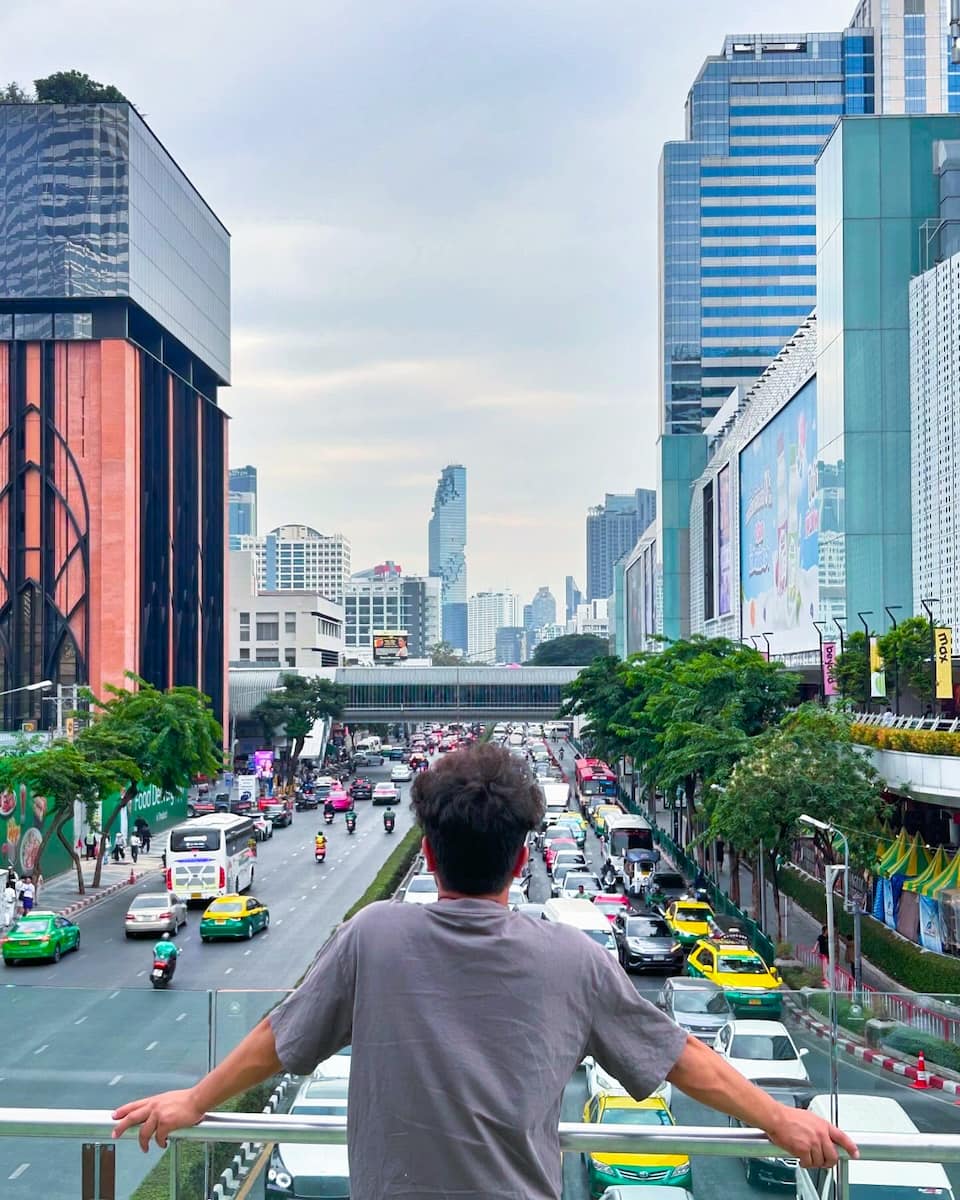
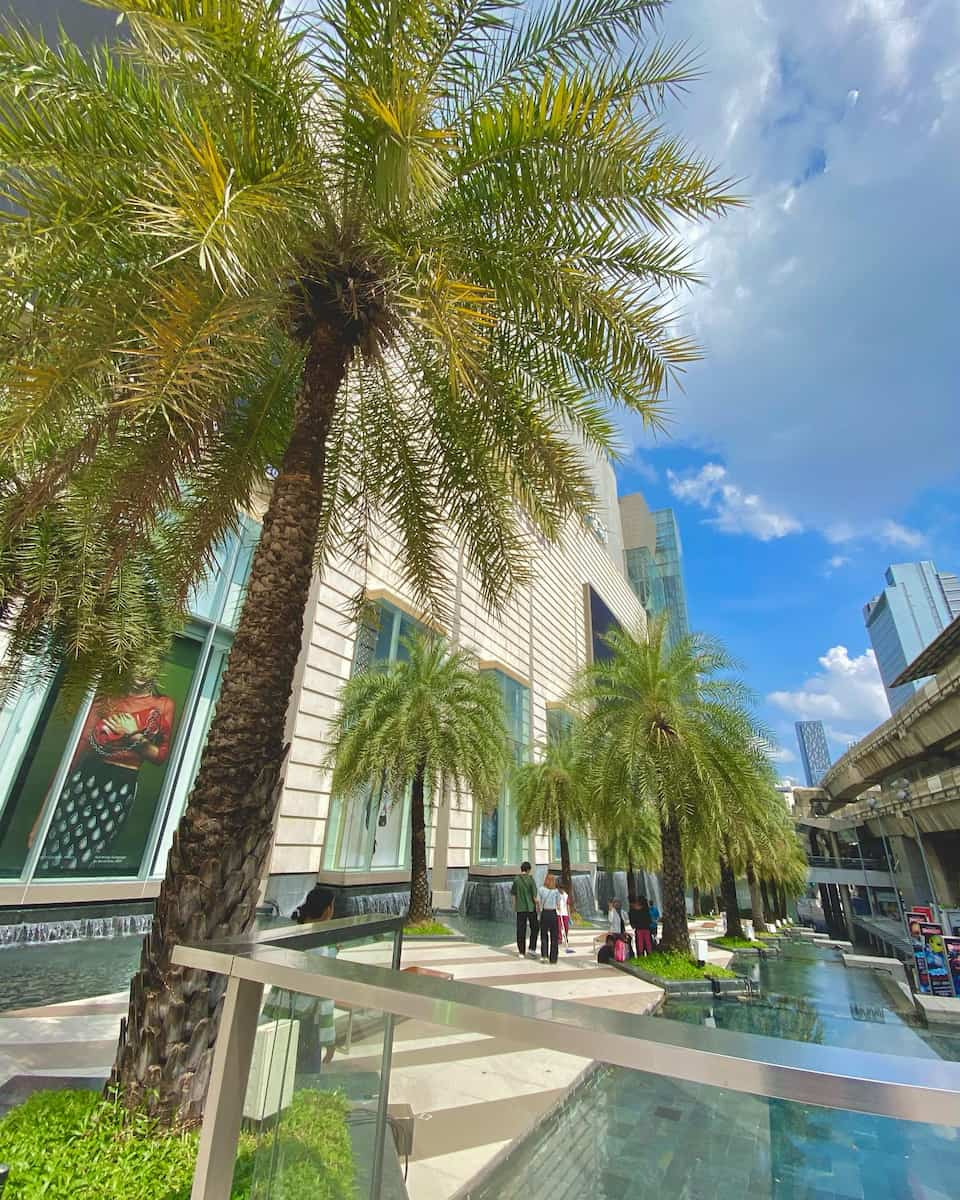
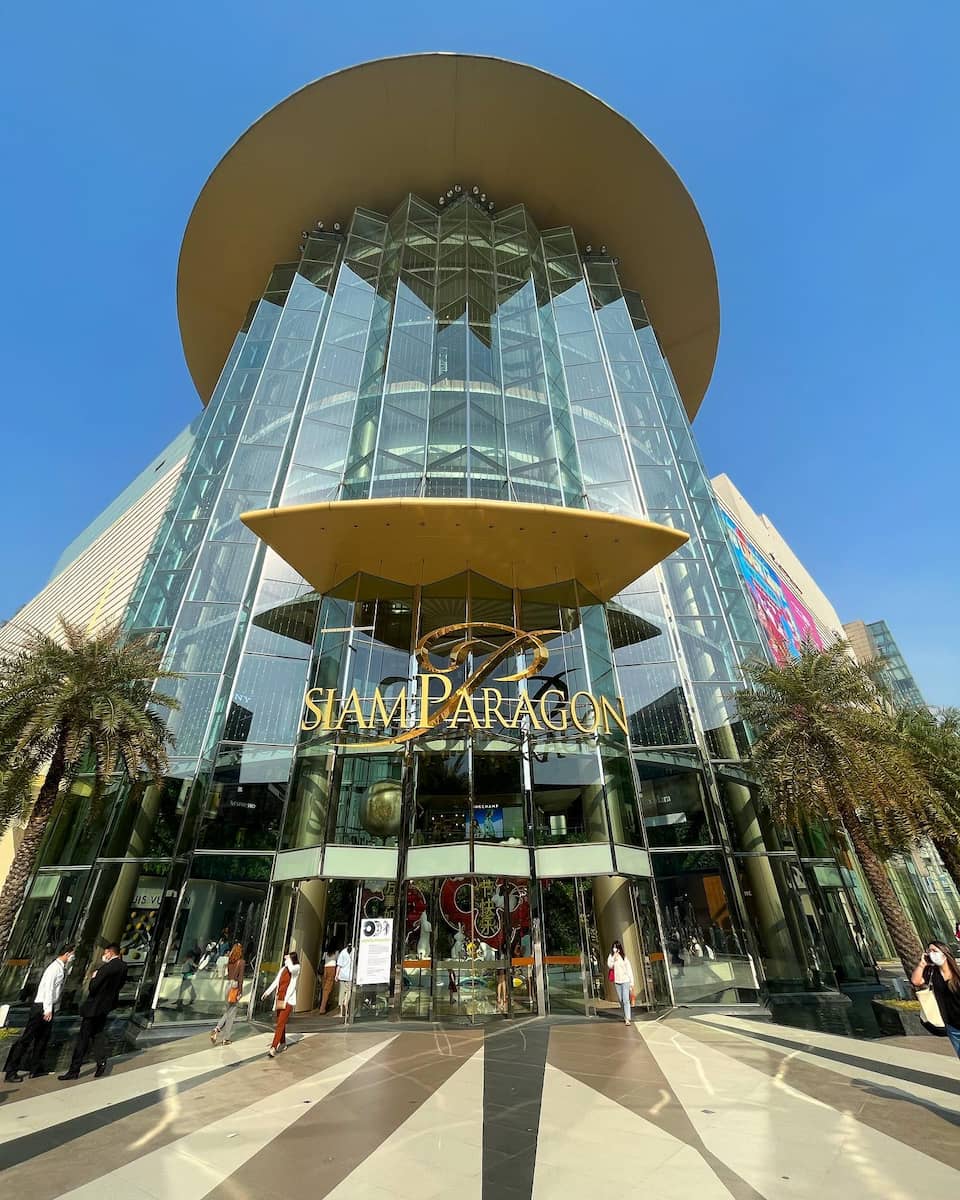
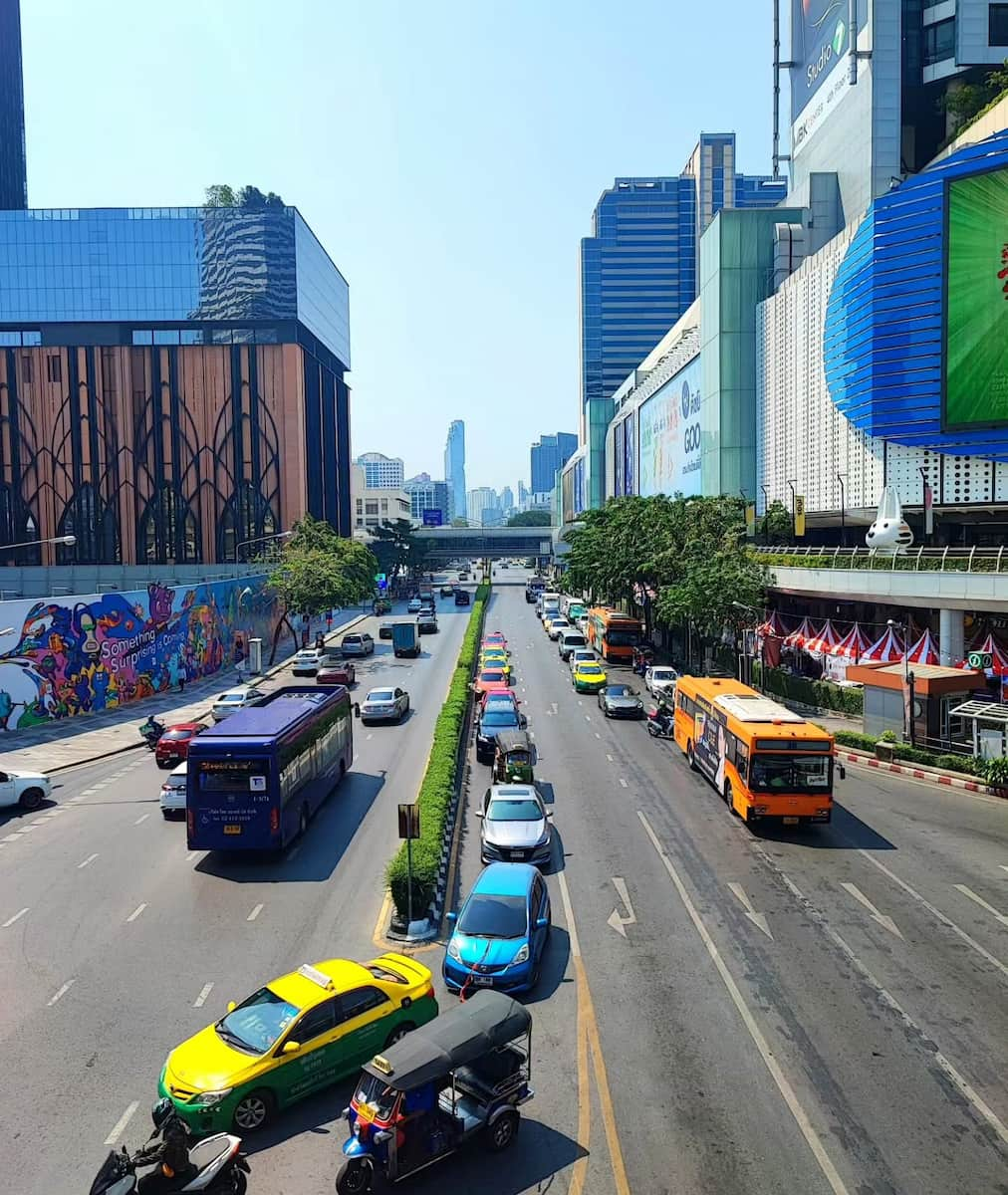
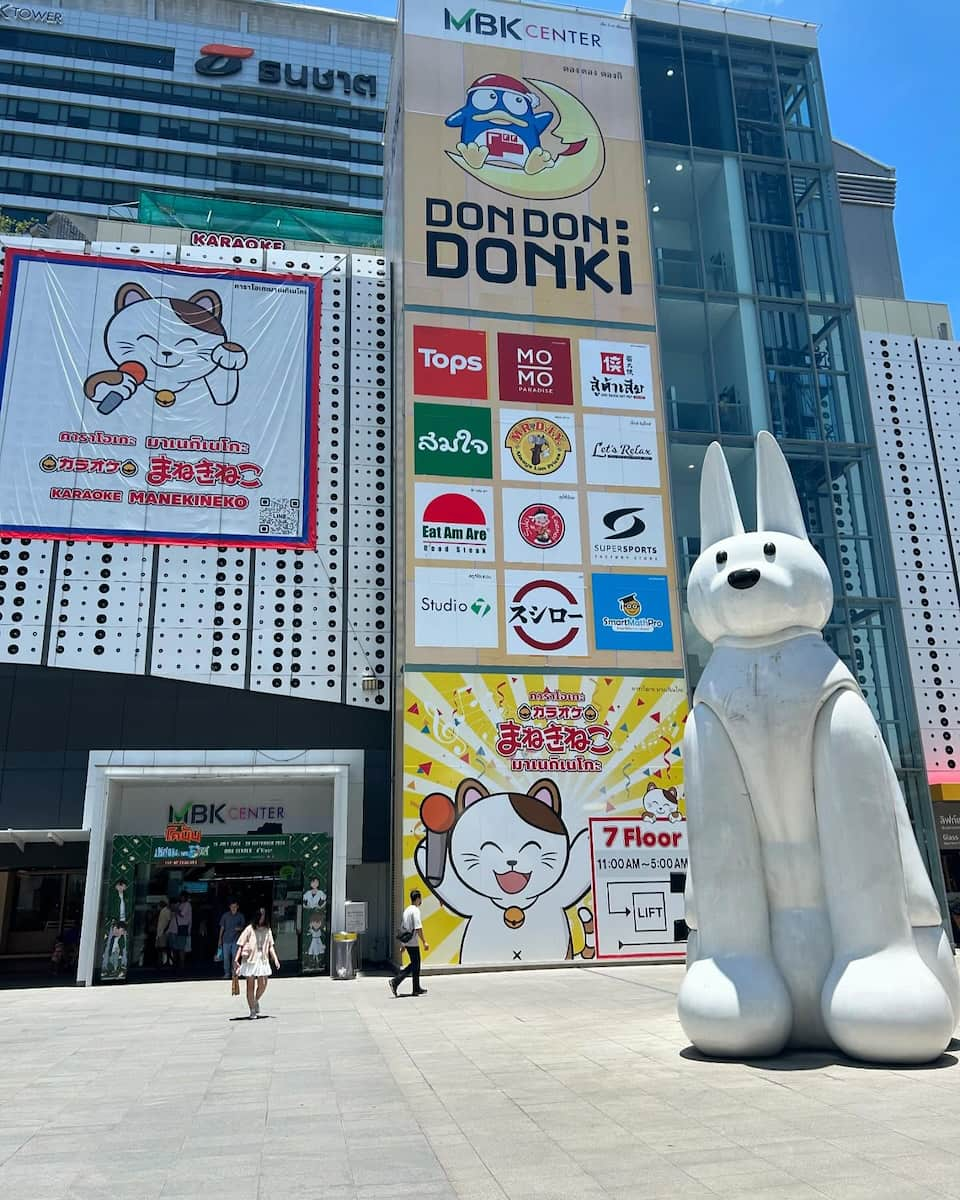
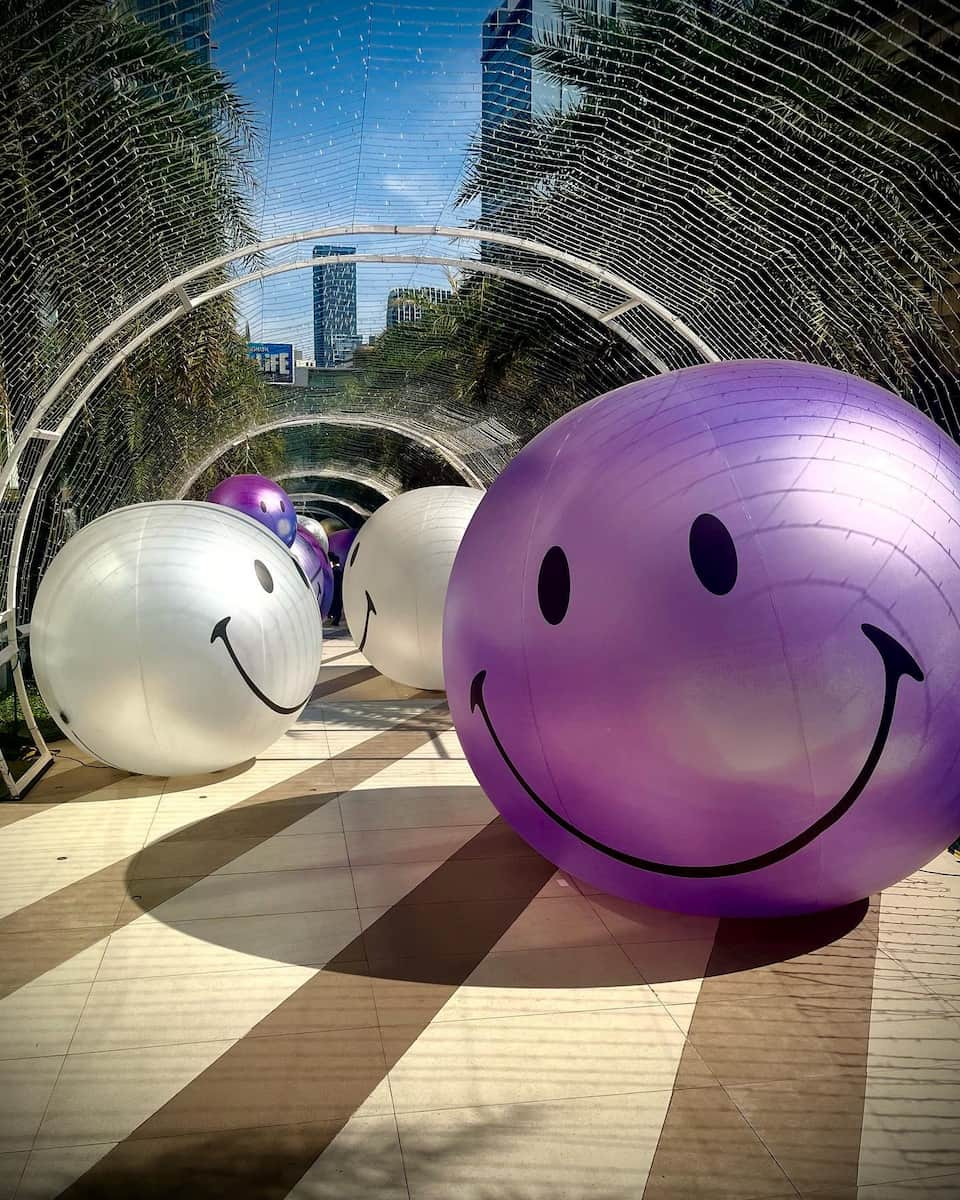
Cultural Contrast. MBK Center offers a more authentic local shopping experience where bargaining is expected and vendors sell unique Thai products. I spent hours exploring different floors, each specializing in specific products from mobile phones to traditional handicrafts. The center’s food court serves affordable Thai dishes alongside international options, catering to diverse tastes. This shopping experience helps visitors understand how locals shop and socialize in modern thailand.
Entertainment Hub. Siam Paragon’s entertainment options include a multiplex cinema, bowling alley, and the impressive SEA LIFE Bangkok Ocean World aquarium. I watched families enjoying weekend outings while teenagers gathered in the central court area. The mall’s design incorporates Thai artistic elements alongside international retail concepts, creating a uniquely Bangkok shopping environment. Both centers serve as social gathering places where locals meet friends and families spend quality time together.
⭐️ Best Activities
- Bangkok Oishi Grand Siam Paragon FB Packages – Enjoy premium dining experiences at one of Bangkok’s most luxurious shopping destinations.
7. Jim Thompson House
Silk Legacy. The Jim Thompson House preserves the home and art collection of the American entrepreneur who revitalized Thailand’s silk industry. I toured the traditional Thai wooden structures, elevated on stilts and connected by covered walkways through lush gardens. The guided tour reveals Thompson’s mysterious disappearance in Malaysia and his impact on Thai cultural preservation. This museum offers insight into mid-century Bangkok life and the intersection of Eastern and Western cultures.
| Detail | Information |
|---|---|
| Entry Fee | 200 THB (~$6 USD) |
| Guided Tour | Included |
| Hours | 9:00 AM – 6:00 PM |
Art Collection. Thompson’s personal collection includes ancient Buddha statues, traditional paintings, and rare ceramics gathered from across Southeast Asia. I admired the careful curation that reflects both aesthetic appreciation and cultural understanding. The house itself demonstrates traditional Thai architecture adapted for tropical living, with high ceilings and cross-ventilation systems. Each room tells part of Thompson’s story while showcasing the artistic heritage of thailand.
Garden Sanctuary. The property’s tropical gardens provide a peaceful escape from Bangkok’s urban intensity, featuring native plants and traditional landscaping techniques. I enjoyed the contrast between the bustling city outside and the serene atmosphere within the compound walls. The museum shop sells authentic Jim Thompson silk products, allowing visitors to take home pieces of this cultural legacy. This attraction perfectly balances historical education with aesthetic appreciation for visitors seeking to understand bangkok’s cultural evolution.
⭐️ Best Activities
- Private Tour Jim Thompson House and Suan Pakkad Palace Museum – Explore the silk merchant’s traditional Thai house and discover royal artifacts at this private cultural tour.
8. Wat Saket
Hilltop Sanctuary. Wat Saket sits atop an artificial hill offering panoramic views across the city of bangkok, reached by climbing 344 steps through peaceful gardens. I paused at various levels to catch my breath while admiring the temple bells and statues lining the pathway. The golden chedi at the summit houses Buddha relics and serves as a meditation space for both monks and visitors. This temple provides a unique elevated perspective on the sprawling capital of thailand.
| Detail | Information |
|---|---|
| Entry Fee | 50 THB (~$1.50 USD) |
| Steps to Summit | 344 steps |
| Hours | 7:30 AM – 7:30 PM |
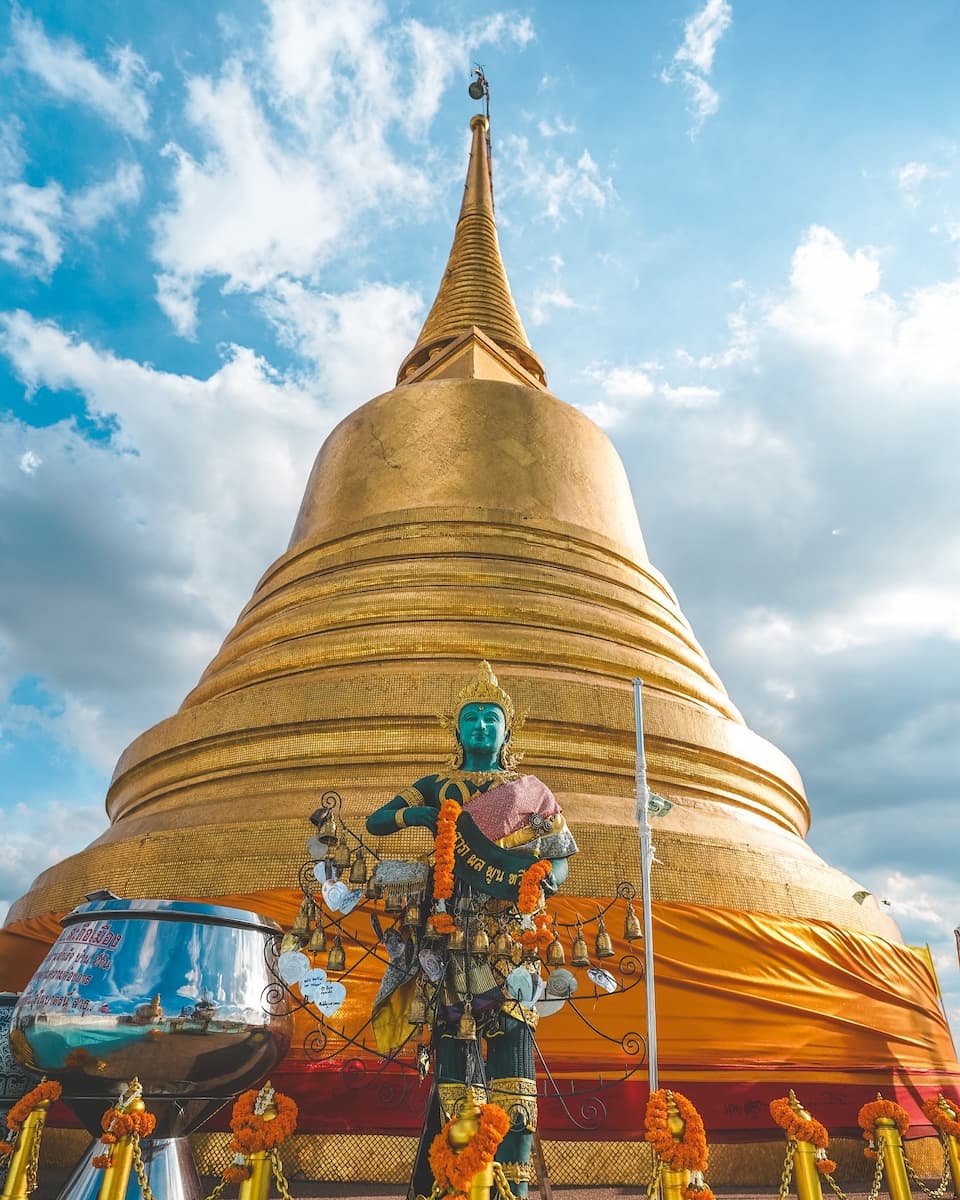
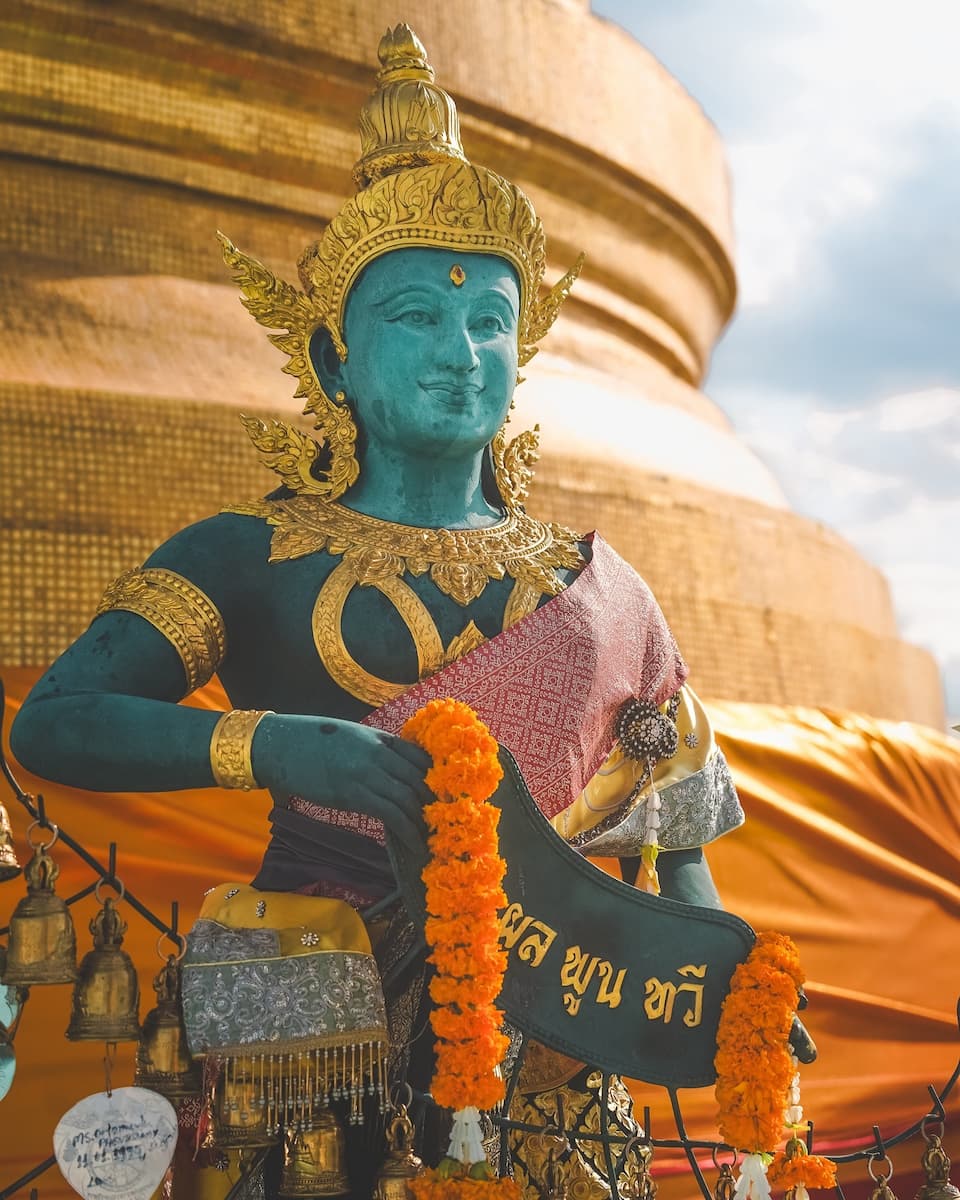
Festival Traditions. During November’s Loy Krathong festival, Wat Saket becomes the center of Bangkok’s largest temple fair, attracting thousands of devotees and visitors. I learned about the annual procession that carries a giant red cloth to wrap around the golden chedi. The temple’s elevated position makes it visible from many parts of bangkok, serving as a landmark for navigation. Local residents consider this one of the most auspicious temples for making merit and seeking blessings.
Peaceful Ascent. The climb to the summit passes through shaded areas with benches for rest, making it accessible for most fitness levels. I encountered other visitors from around the world, all drawn by the promise of spectacular city views and spiritual tranquility. The temple grounds include traditional buildings housing monks’ quarters and meditation halls. This experience combines physical activity with cultural immersion, offering visitors a different perspective on temple visits in thailand.
⭐️ Best Activities
- Bangkok Temples Instagram Tour Wat Arun Wat Pho and Wat Saket Small Group – Capture stunning photos at Bangkok’s most photogenic temples on this social media-focused temple tour.
9. Wat Benchamabophit
Architectural Masterpiece. Wat Benchamabophit earned its nickname “Marble Temple” from the Italian Carrara marble used in its construction, creating a unique fusion of European materials and Thai design. I studied the intricate details of the ordination hall, where traditional Thai architecture incorporates Western elements like stained glass windows. The temple houses a significant collection of Buddha images representing different artistic periods and regional styles. This architectural innovation demonstrates thailand’s ability to blend international influences with local traditions.
| Detail | Information |
|---|---|
| Entry Fee | 50 THB (~$1.50 USD) |
| Best Photography | 8:00-10:00 AM |
| Hours | 8:00 AM – 5:30 PM |
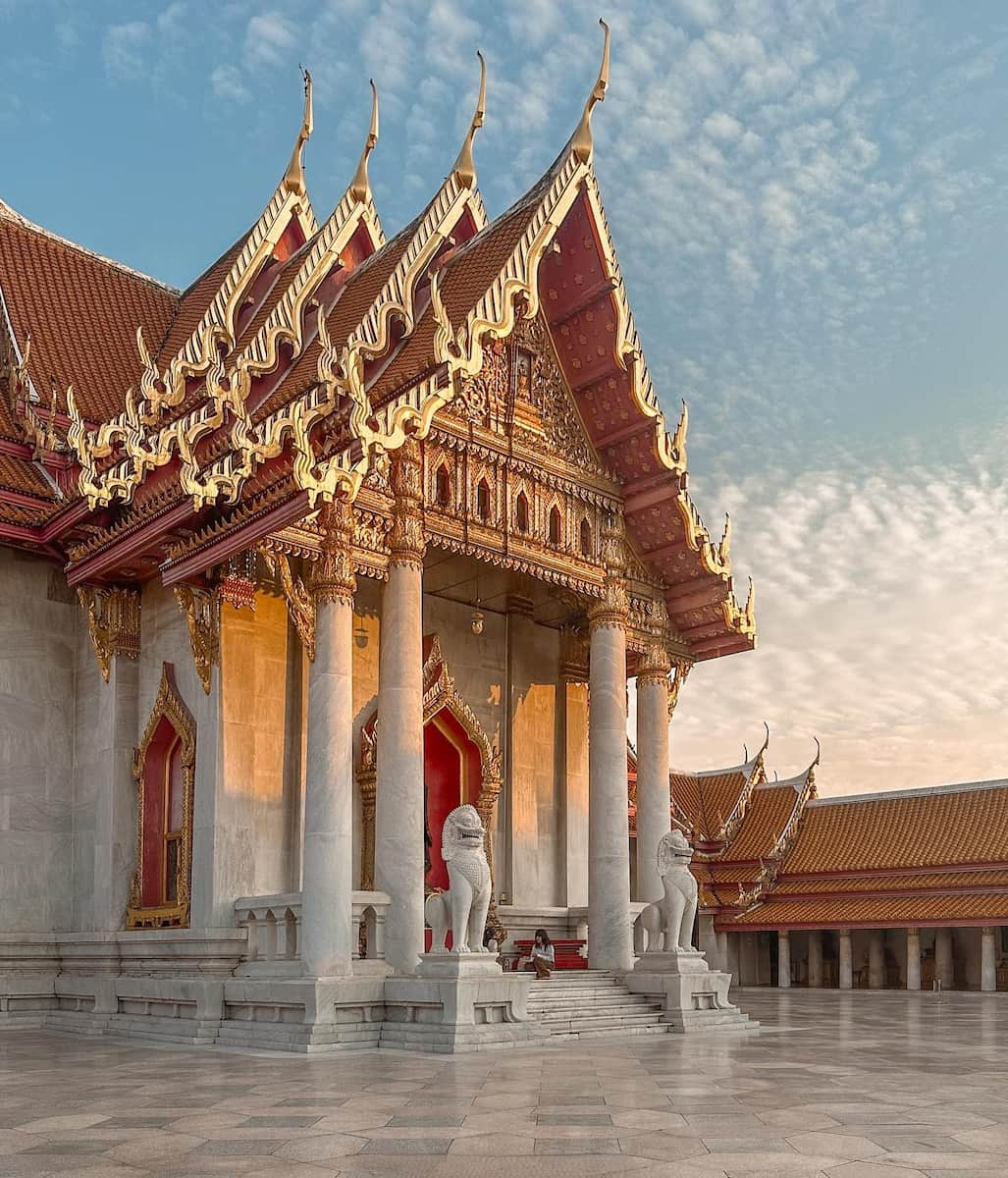
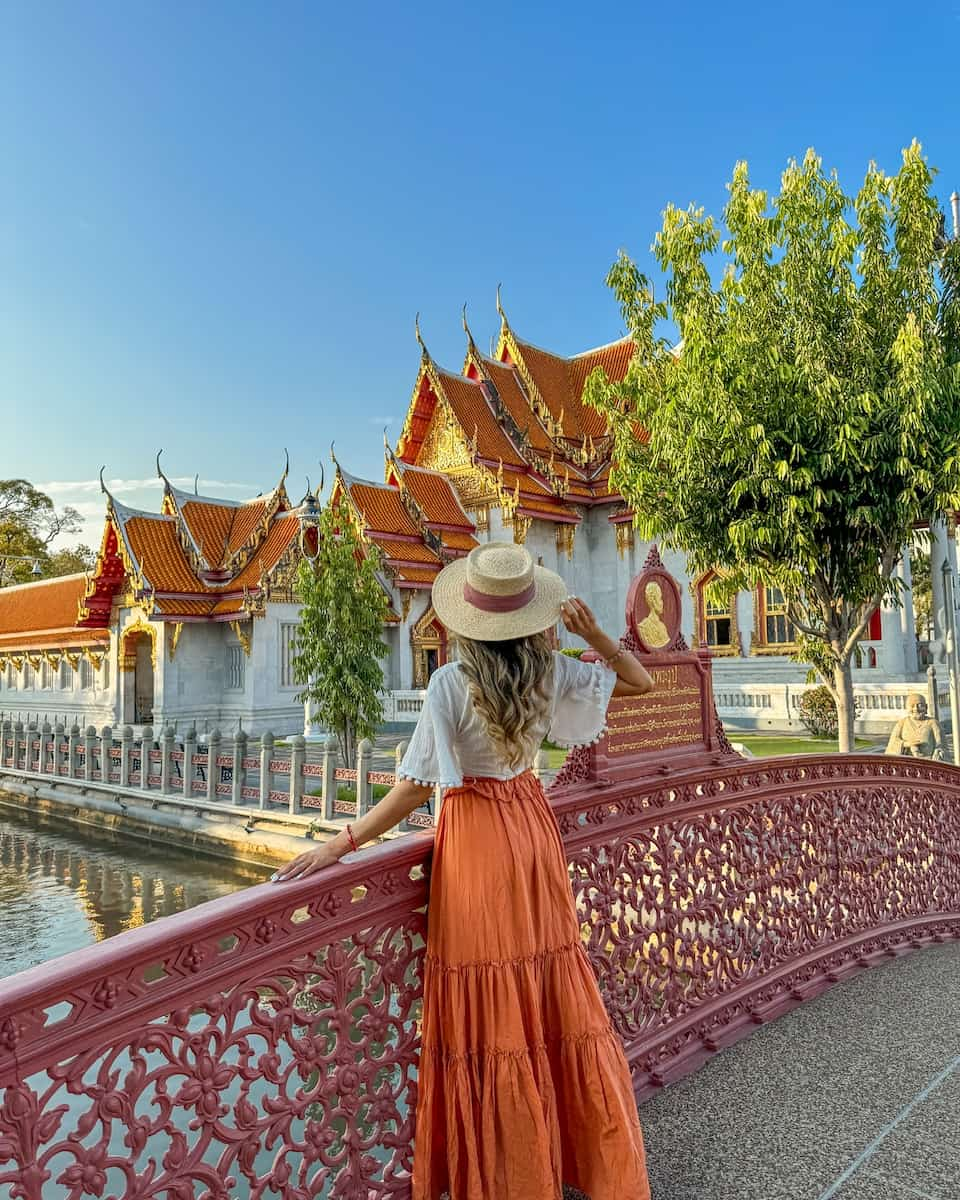
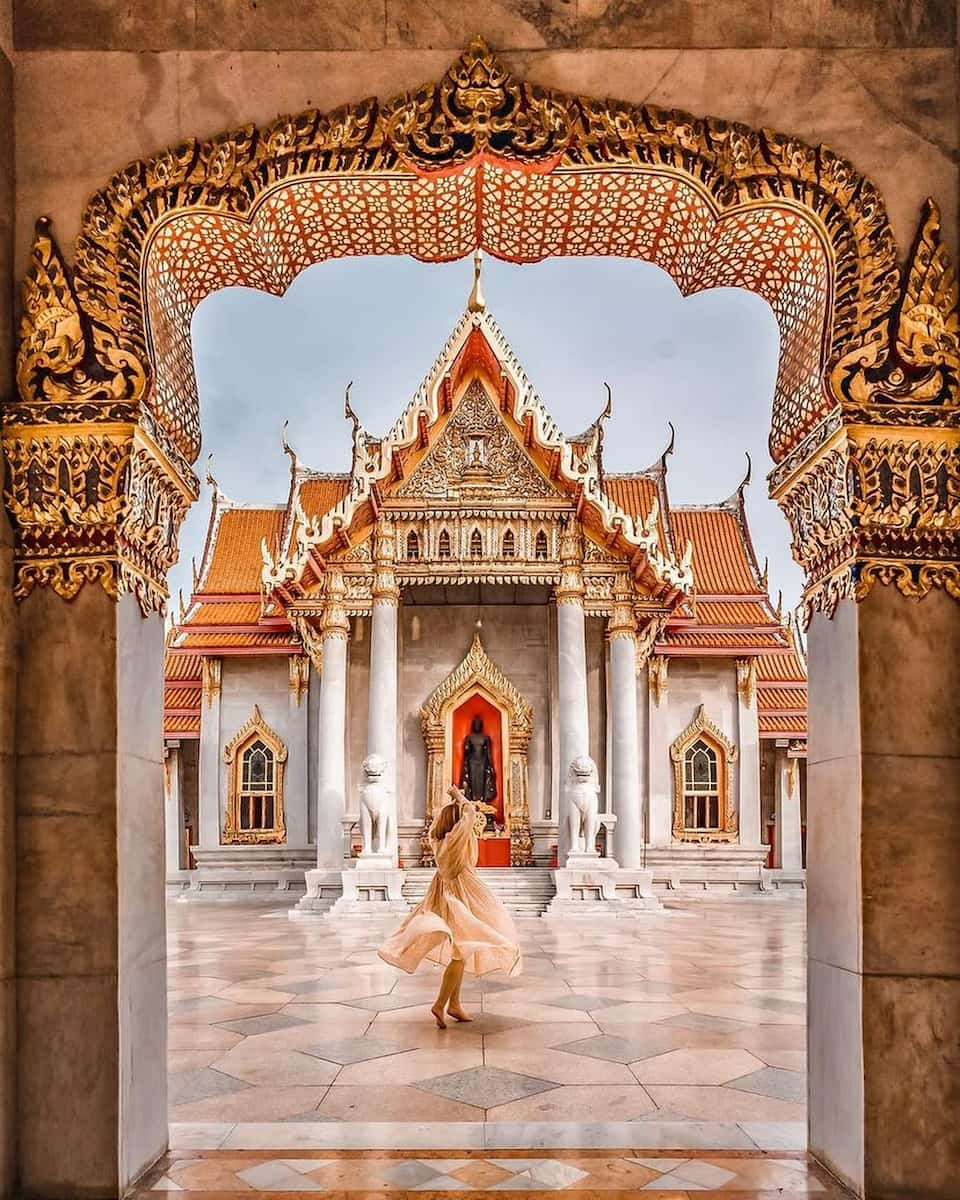
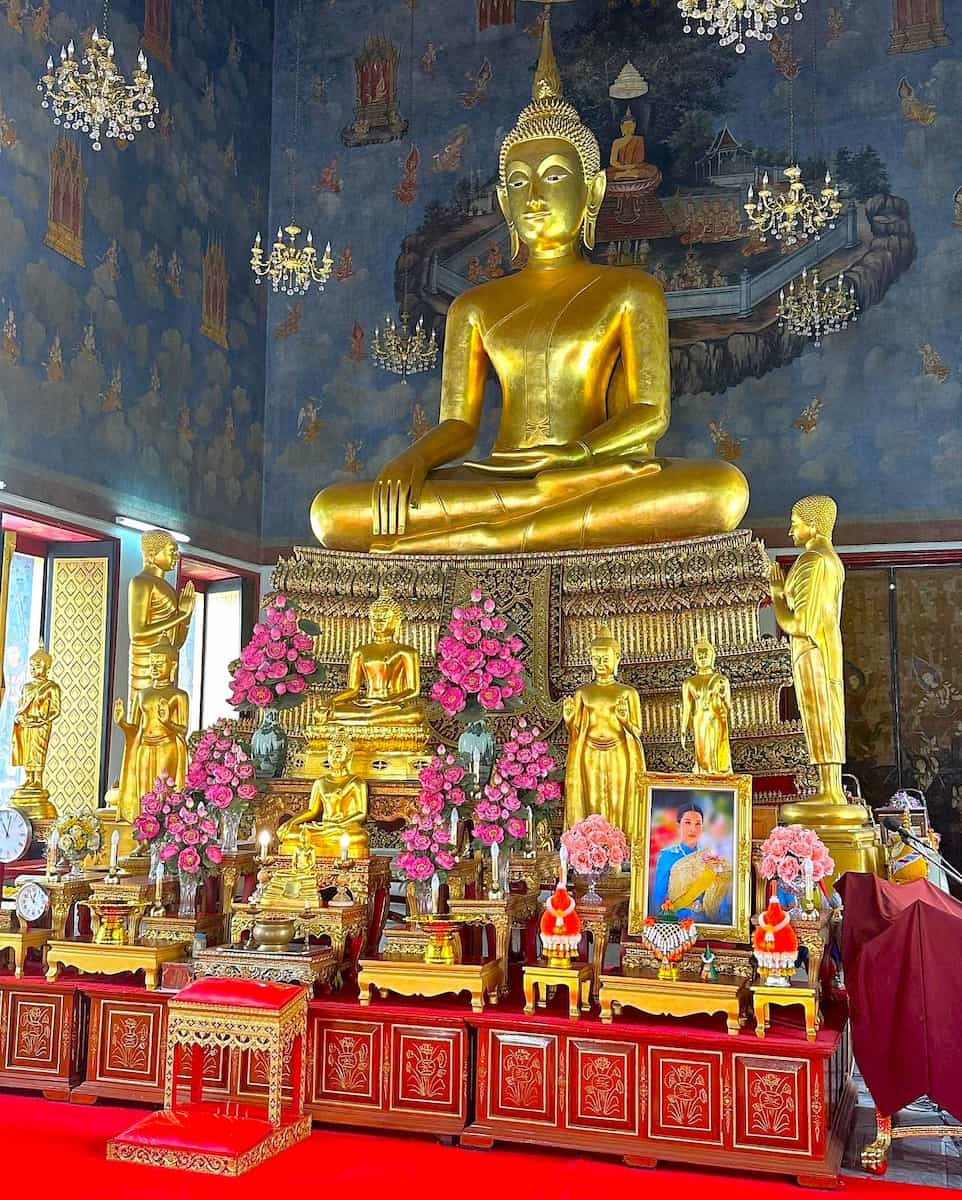
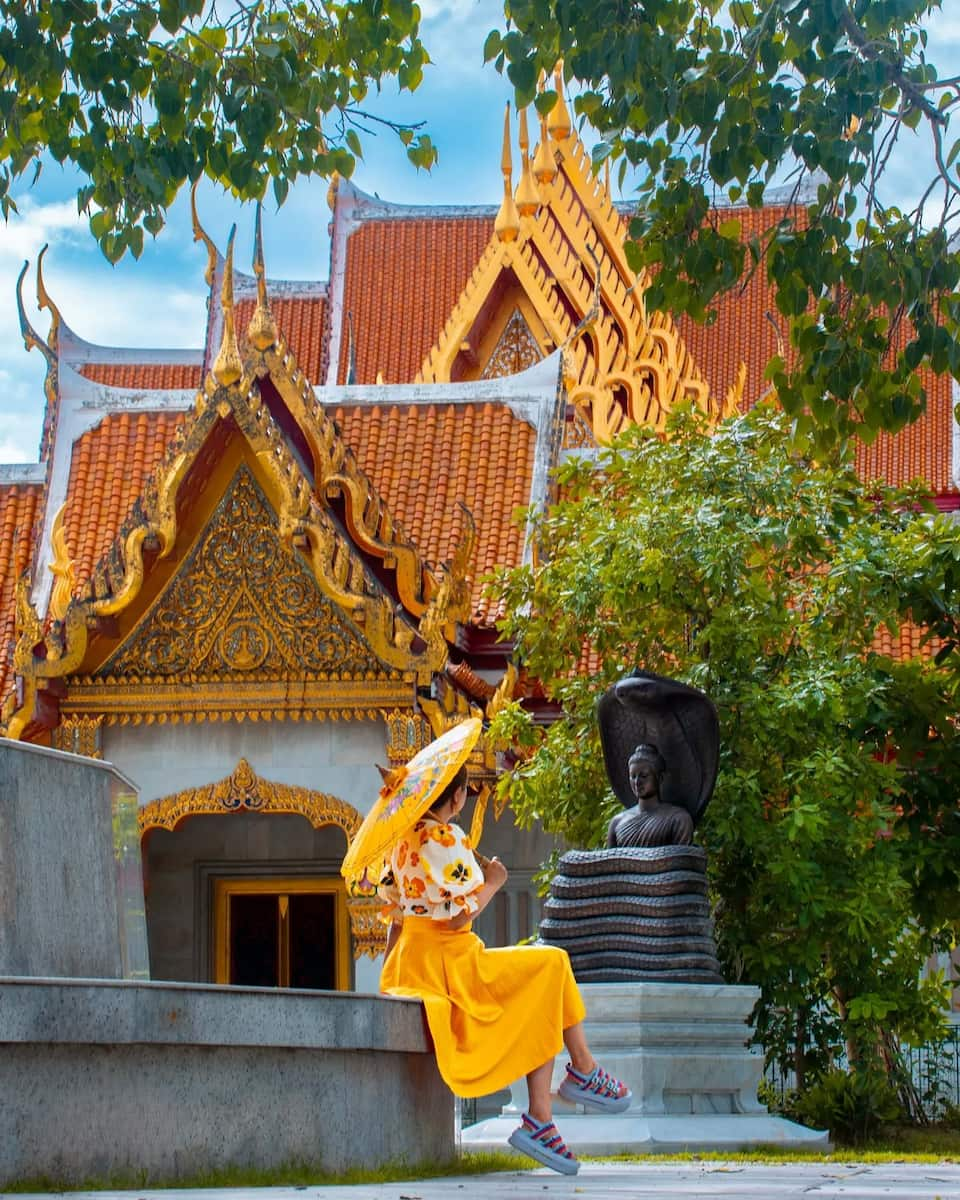
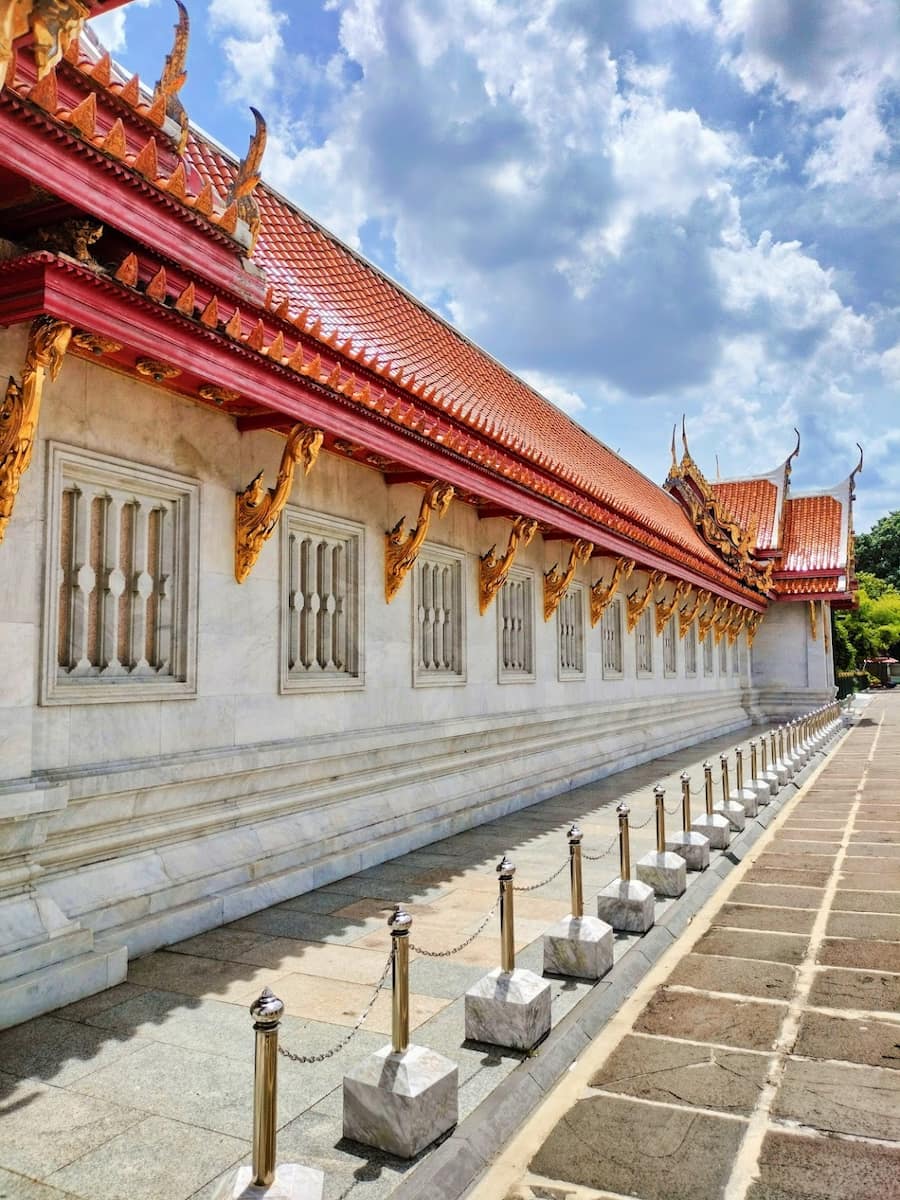
Buddha Gallery. The temple’s cloister contains 52 Buddha images representing various artistic styles from across Asia, creating an outdoor museum of Buddhist art. I spent considerable time examining the different poses, expressions, and craftsmanship techniques displayed in this remarkable collection. Each statue tells a story about Buddhist artistic evolution and cultural exchange throughout the region. The covered walkway protects both visitors and artwork while providing comfortable viewing conditions.
Royal Connections. King Chulalongkorn commissioned this temple as part of his modernization efforts, incorporating contemporary construction techniques with traditional religious purposes. I learned about the temple’s role in royal ceremonies and its continued importance to the Thai monarchy. The peaceful courtyards and well-maintained gardens reflect the care and respect accorded to this significant religious site. Morning visits offer the best lighting for photography and fewer crowds for contemplative exploration.
⭐️ Best Activities
- Wat Pho Wat Traimit and Wat Benchamabophit Guided Walking Tour – Discover three magnificent temples including the Golden Buddha and Marble Temple on this comprehensive walking tour.
10. King Power Mahanakhon Skywalk
Sky-High Thrills. King Power Mahanakhon’s observation deck and glass skywalk provide the highest viewpoint in thailand, offering 360-degree views of the bangkok skyline. I experienced the adrenaline rush of standing on transparent glass floors 314 meters above street level. The building’s distinctive pixelated design makes it instantly recognizable from across the city. Interactive displays and augmented reality features enhance the viewing experience while educating visitors about Bangkok’s urban development.
| Detail | Information |
|---|---|
| Standard Ticket | 880 THB (~$25 USD) |
| Peak Hours | 1,050 THB (~$30 USD) |
| Hours | 10:00 AM – 11:00 PM |
Urban Perspective. The observation deck reveals Bangkok’s vast scale, from ancient temples to modern skyscrapers, providing context for the city’s rapid growth and development. I identified major landmarks like the Grand Palace, Wat Arun, and the chao phraya river from this elevated vantage point. The experience includes both indoor and outdoor viewing areas, accommodating different weather conditions and photography preferences. Sunset visits offer spectacular lighting but require advance booking due to popularity.
Technology Integration. The skywalk incorporates cutting-edge technology including augmented reality experiences that overlay historical information onto the current cityscape. I used the interactive displays to learn about Bangkok’s evolution from a small trading post to a major metropolitan center. The building also houses restaurants, bars, and retail spaces, making it a complete entertainment destination. This modern attraction represents Bangkok’s embrace of innovation while maintaining connections to its cultural heritage.
⭐️ Best Activities
- King Power MahaNakhon SkyWalk at Bangkok Admission Ticket – Experience breathtaking 360-degree views from Thailand’s tallest building and walk on the glass skywalk.
11. Royal Barges National Museum
Maritime Heritage. The Royal Barges National Museum preserves eight magnificent ceremonial vessels used in royal processions along the chao phraya river. I marveled at the intricate wood carvings, gold leaf decorations, and mythical creature figureheads that adorn these floating works of art. The museum explains the craftsmanship techniques and cultural significance of each barge in Thailand’s royal traditions. These vessels represent centuries of maritime heritage and artistic excellence in the capital of thailand.
| Detail | Information |
|---|---|
| Entry Fee | 100 THB (~$3 USD) |
| Audio Guide | 100 THB (~$3 USD) |
| Hours | 9:00 AM – 5:00 PM |
Royal Ceremonies. The barges participate in rare royal processions, most recently during the late King’s birthday celebrations and other significant state occasions. I learned about the complex choreography required to coordinate dozens of rowers and the spiritual significance of water-based ceremonies in Thai culture. Each barge has specific roles and positions within the procession, reflecting ancient protocols and hierarchies. The museum’s displays include historical photographs and videos of actual ceremonies.
Artistic Details. The Suphannahong (Golden Swan) serves as the king’s personal barge, featuring a golden swan figurehead and intricate lacquerwork throughout its 46-meter length. I examined the detailed craftsmanship that required years to complete, involving master artisans specializing in wood carving, gold leafing, and traditional painting techniques. The museum’s climate-controlled environment preserves these treasures while allowing close examination of the artistic details. This collection represents one of the world’s finest examples of ceremonial watercraft.
⭐️ Best Activities
- Bangkok Flower Market Klongs and Royal Barges Tour – Explore Bangkok’s colorful flower market and navigate traditional canals to see the magnificent royal barges.
12. Rattanakosin Exhibition Hall
Interactive History. Rattanakosin Exhibition Hall uses multimedia technology to tell the story of Bangkok’s historic district through immersive displays and interactive experiences. I explored different themed zones covering royal history, religious traditions, and cultural evolution in the heart of bangkok. The museum’s modern approach makes complex historical information accessible to visitors of all ages and backgrounds. Touch screens, holographic displays, and audio-visual presentations bring Bangkok’s past to life.
| Detail | Information |
|---|---|
| Entry Fee | 100 THB (~$3 USD) |
| Duration | 2-3 hours |
| Hours | 10:00 AM – 7:00 PM |
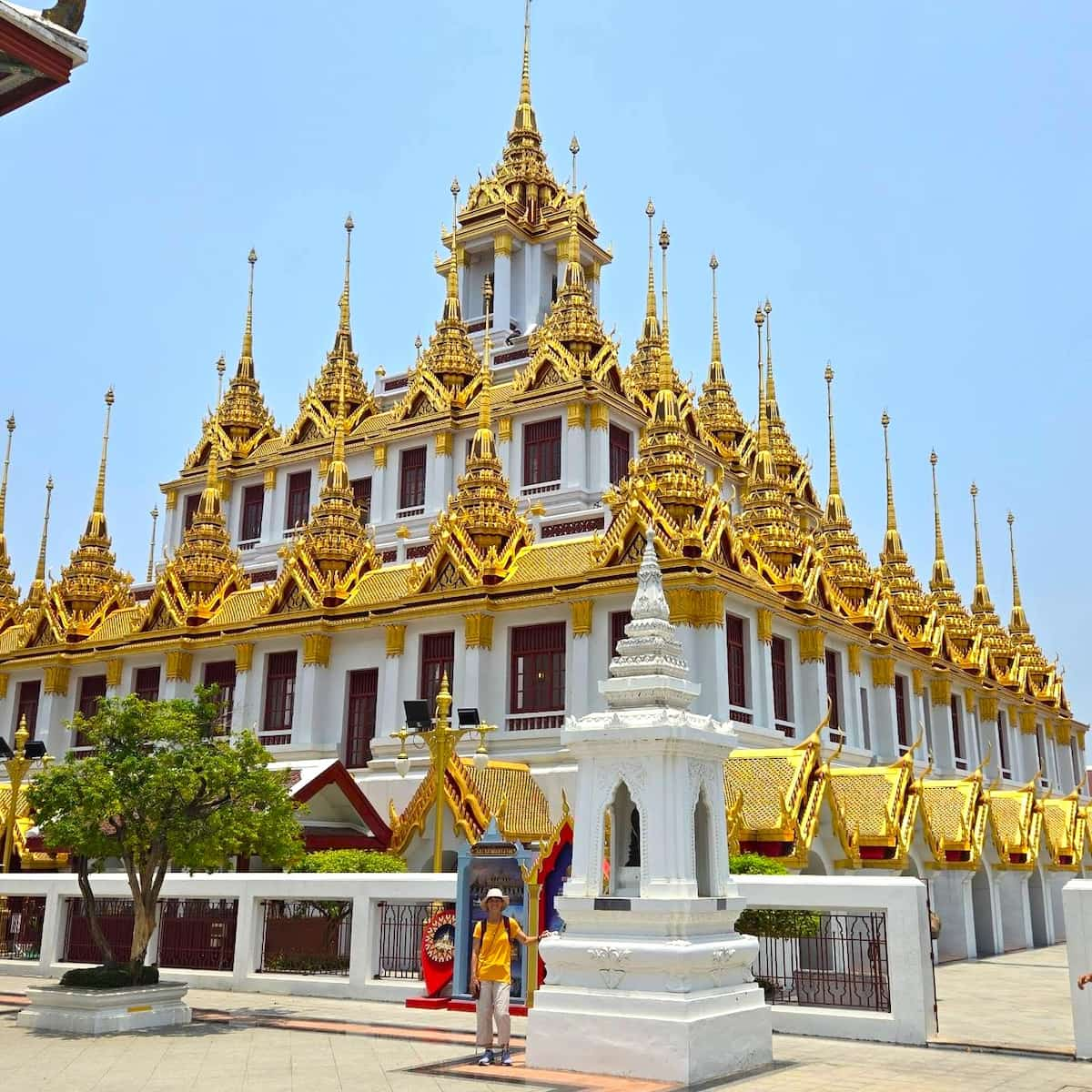
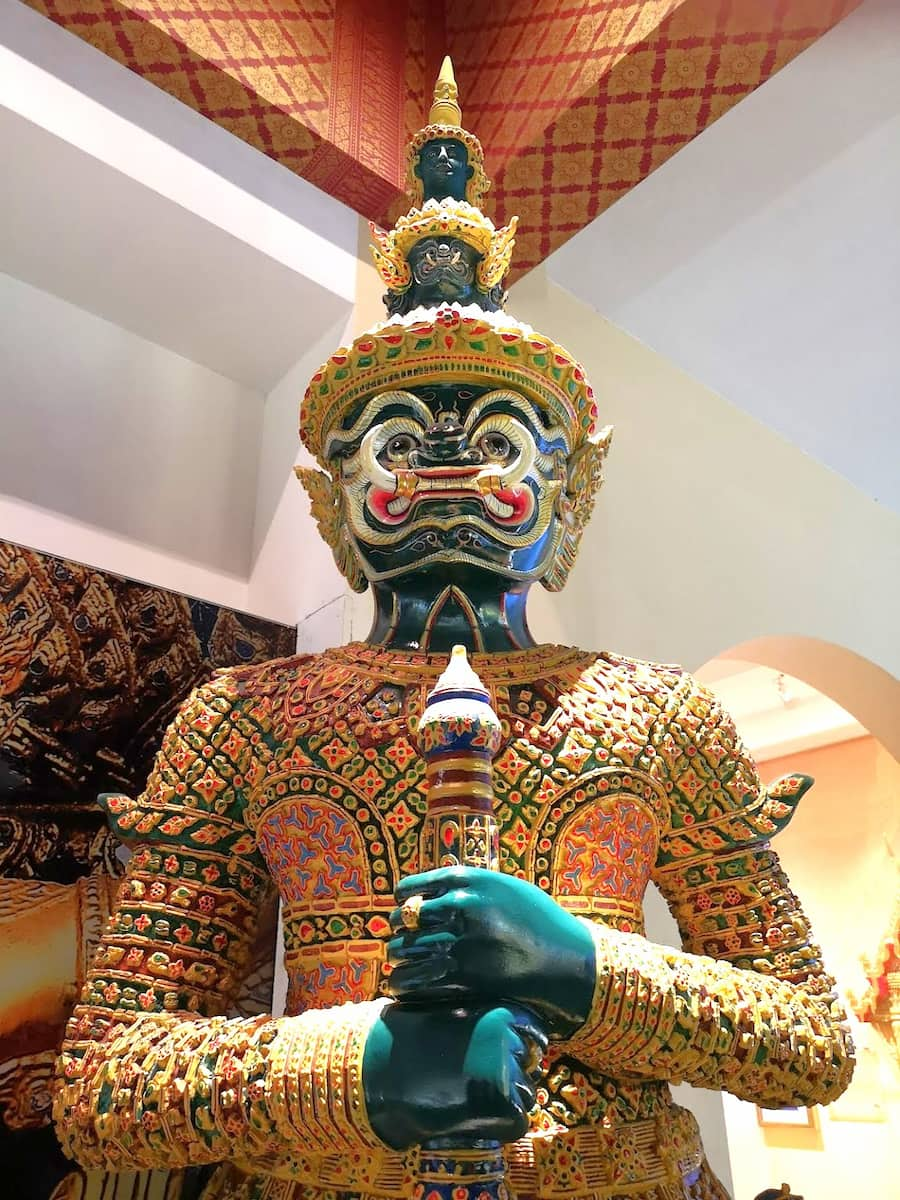
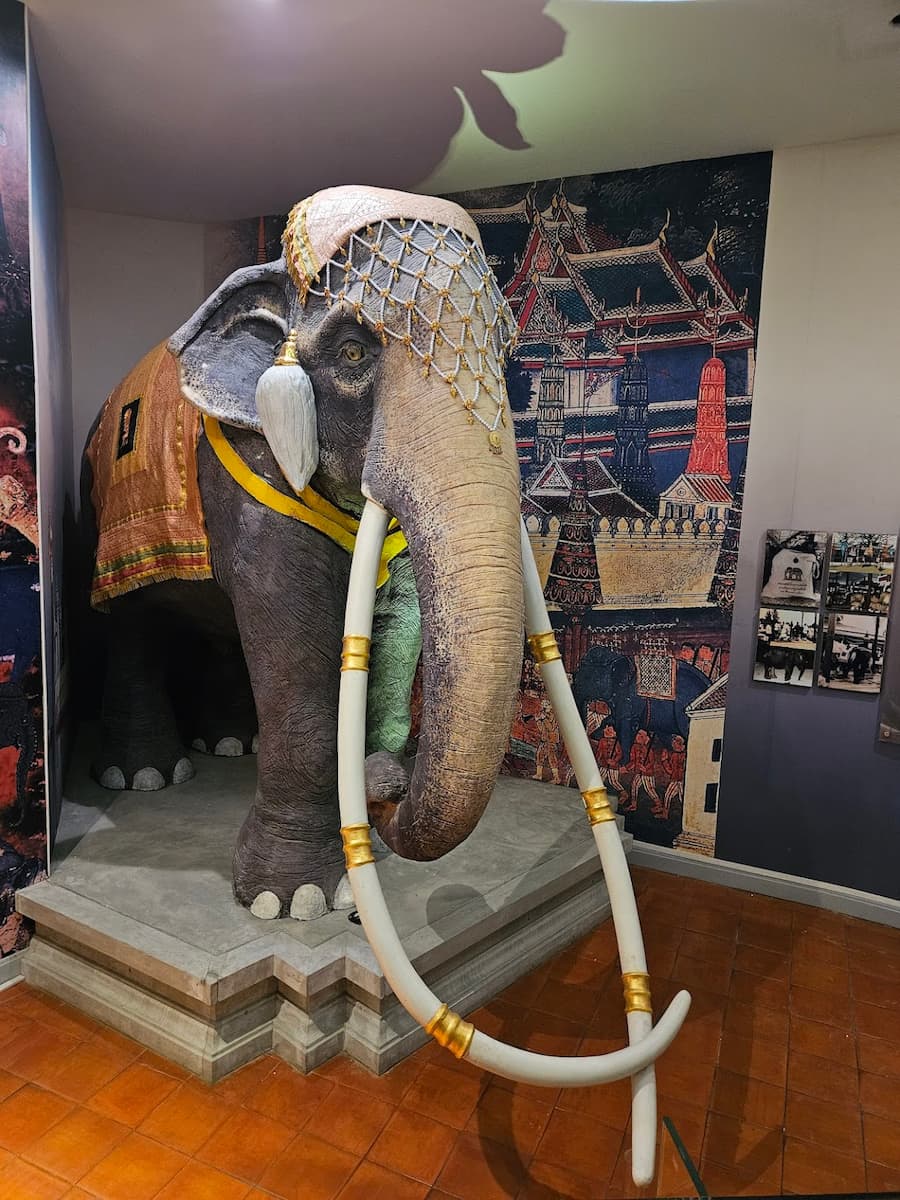
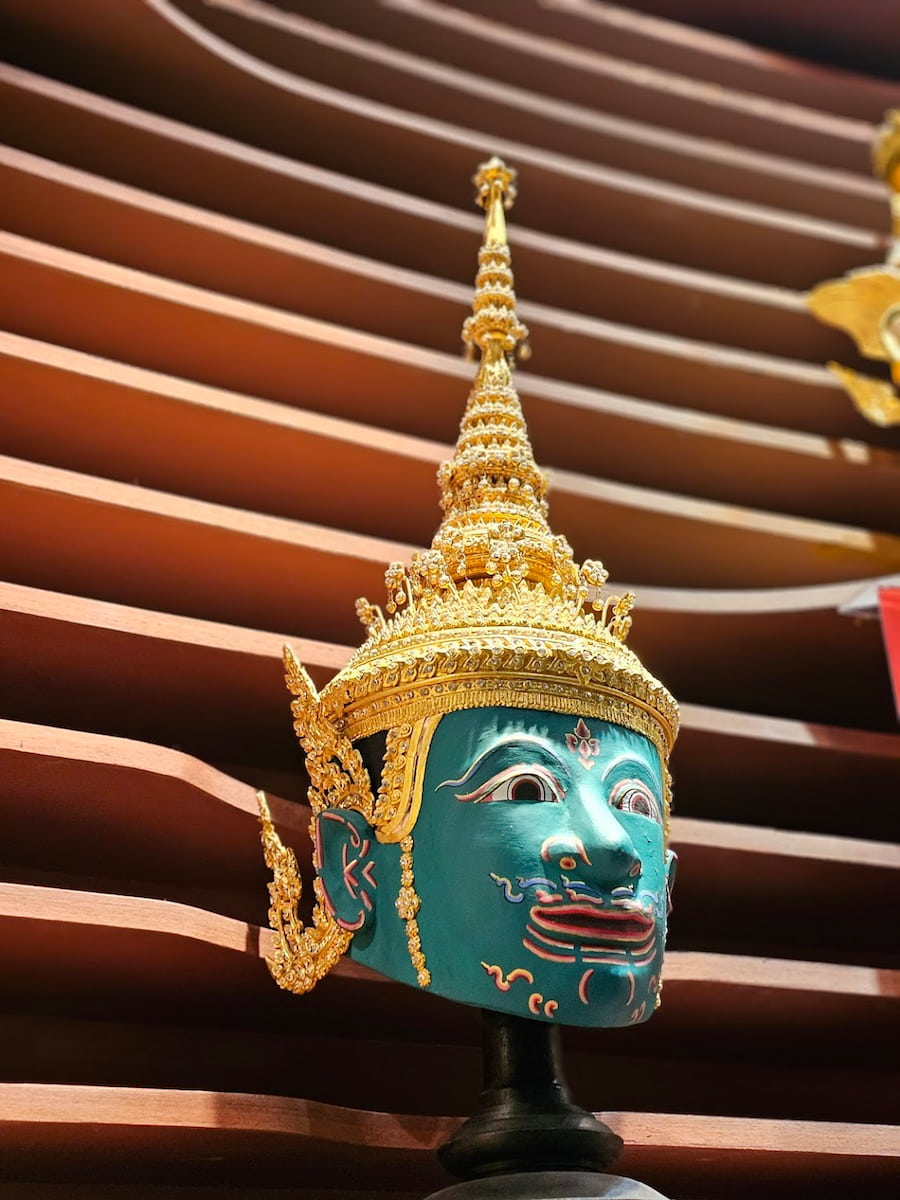
Cultural Context. The exhibition provides essential background information for understanding the temples, palaces, and traditions visitors encounter throughout the oldest parts of bangkok. I appreciated how the displays connect historical events to contemporary Thai culture and society. The museum covers topics from the founding of Bangkok to modern royal ceremonies, creating a comprehensive overview of the city’s development. This educational experience enhances appreciation for other cultural sites in the area.
Modern Presentation. The museum’s design incorporates traditional Thai architectural elements with contemporary exhibition techniques, creating an engaging learning environment. I found the combination of artifacts, replicas, and digital presentations particularly effective for understanding complex cultural concepts. The facility includes a gift shop featuring books, handicrafts, and educational materials related to Thai history and culture. This attraction serves as an excellent introduction for visitors planning to explore Bangkok’s historic district.
⭐️ Best Activities
- The Old City Rattanakosin and Longtail Boat Tour With Lunch – Discover Bangkok’s historic district and cruise the Chao Phraya River on a traditional longtail boat with lunch included.
13. Bangkok National Museum
Cultural Treasury. Bangkok National Museum houses thailand’s most comprehensive collection of art, artifacts, and historical objects spanning thousands of years of Thai civilization. I explored galleries dedicated to different periods, from prehistoric tools to royal regalia and contemporary art. The museum’s collection includes rare Buddha images, traditional musical instruments, and examples of classical Thai painting and sculpture. This institution serves as the country’s premier repository of cultural heritage and artistic achievement.
| Detail | Information |
|---|---|
| Entry Fee | 200 THB (~$6 USD) |
| Free Tours | Wednesday & Thursday |
| Hours | 9:00 AM – 4:00 PM |
Artistic Evolution. The museum traces the development of Thai art from ancient Khmer influences through the distinctive styles of different kingdoms and regions. I studied examples of bronze casting, ceramic work, and textile arts that demonstrate the technical skills and aesthetic sensibilities of Thai artisans. The collection includes pieces from major archaeological sites across thailand, providing context for the country’s rich cultural heritage. Each gallery offers insights into different aspects of Thai civilization and artistic expression.
Educational Resources. Free guided tours in English provide expert commentary on major pieces and cultural contexts, enhancing the museum experience significantly. I joined a tour that covered highlights from each major collection, learning about the historical significance and artistic techniques represented. The museum also offers educational programs, lectures, and special exhibitions that delve deeper into specific aspects of Thai culture. This resource proves invaluable for visitors seeking to understand the cultural foundations of modern thailand.
14. Chatuchak Weekend Market
Shopping Paradise. Chatuchak Weekend Market sprawls across 35 acres with over 15,000 stalls selling everything from vintage clothing to handmade crafts. I navigated the maze-like sections using the official map, discovering unique finds in each specialized area from antiques to contemporary art. The market operates Saturday-Sunday 9 AM-6 PM, though plant sections open Wednesday-Thursday and wholesale trading happens Friday nights. This shopping destination represents one of the world’s largest weekend markets.
| Item Category | Price Range | Best Sections |
|---|---|---|
| Vintage T-shirts | 150-280 THB (~$4-8 USD) | Section 3-4 |
| Handmade Jewelry | 300-580 THB (~$9-17 USD) | Section 4 |
| Street Food | 20-130 THB (~$0.60-4 USD) | Food Court Areas |
| Books (Used) | 10-200 THB (~$0.30-6 USD) | Section 1 |
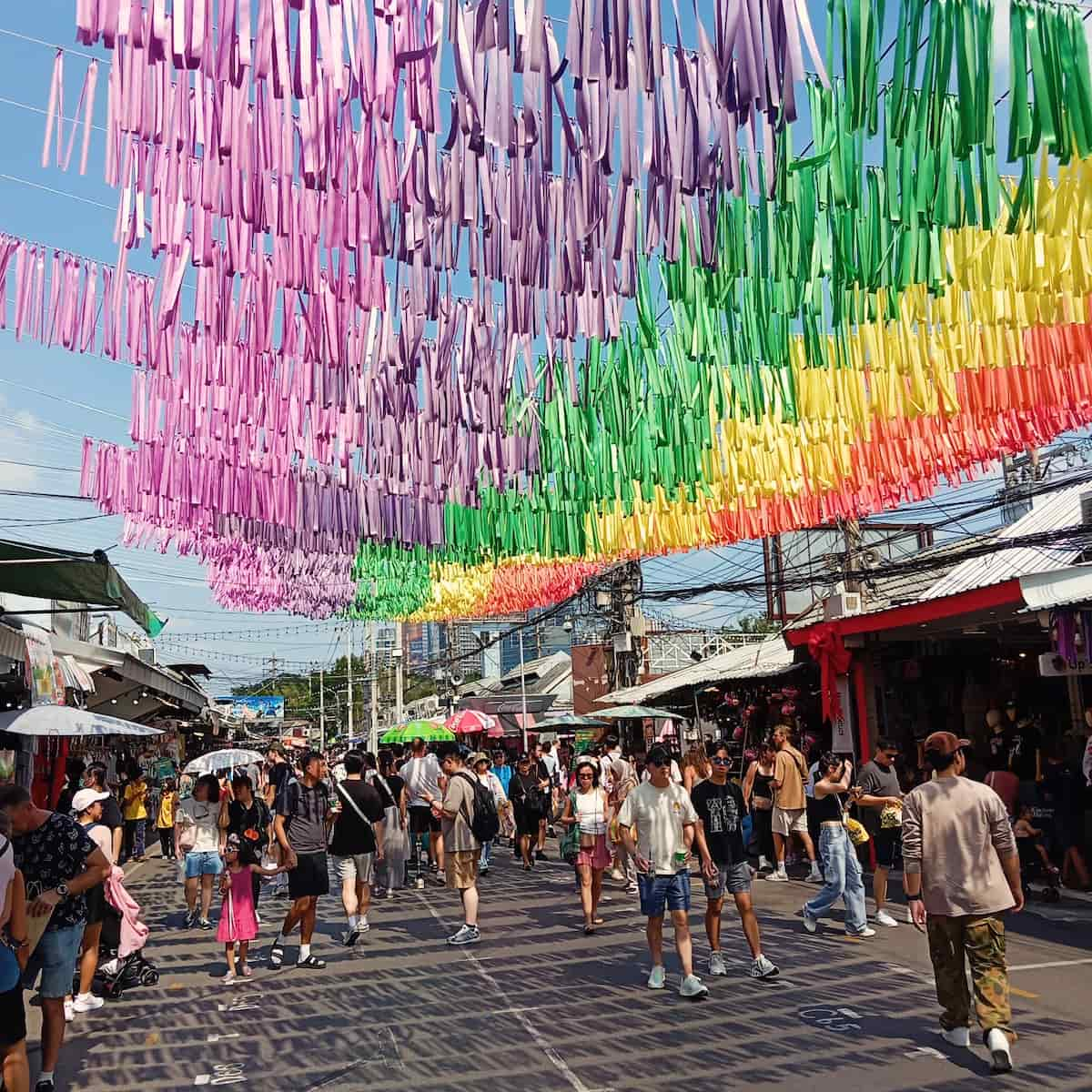
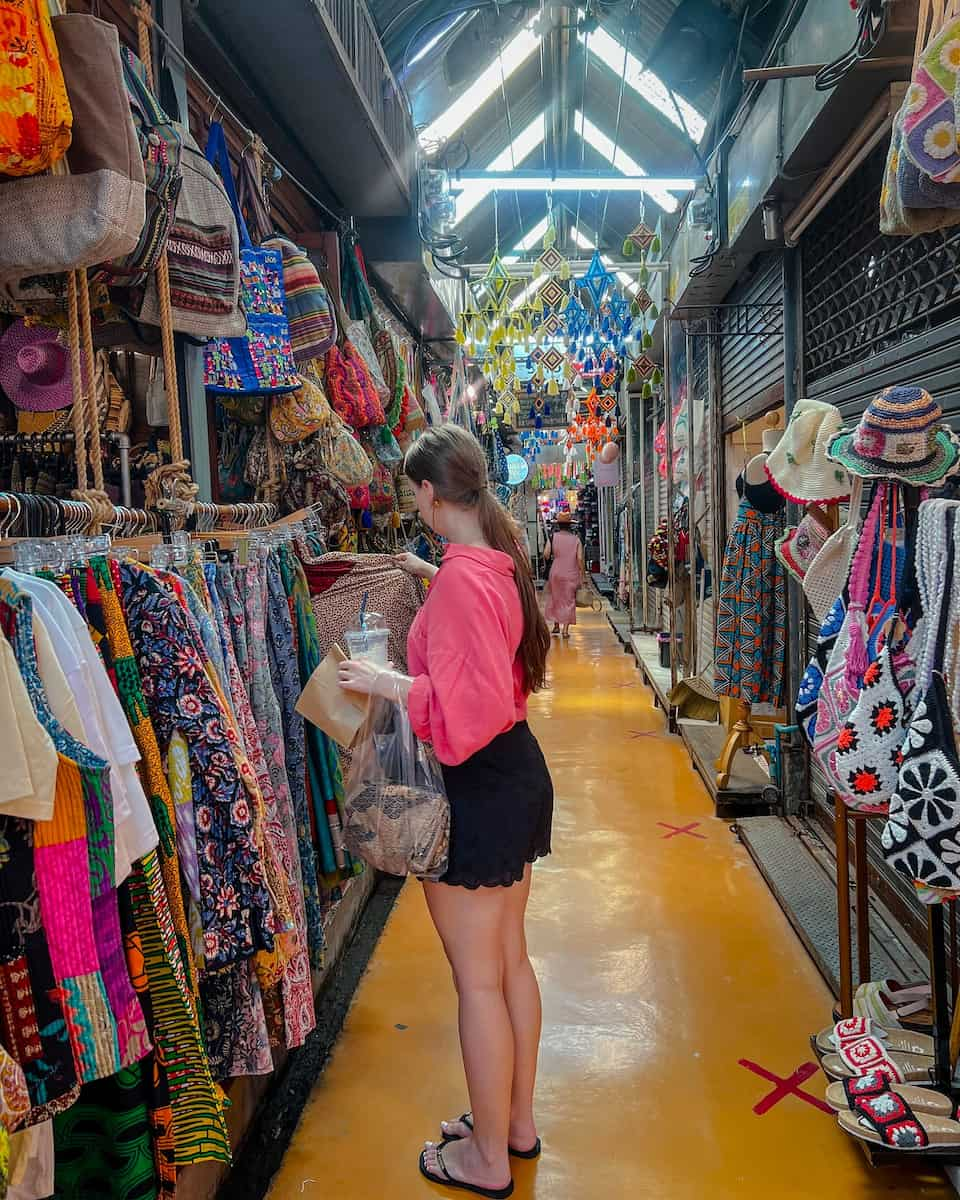
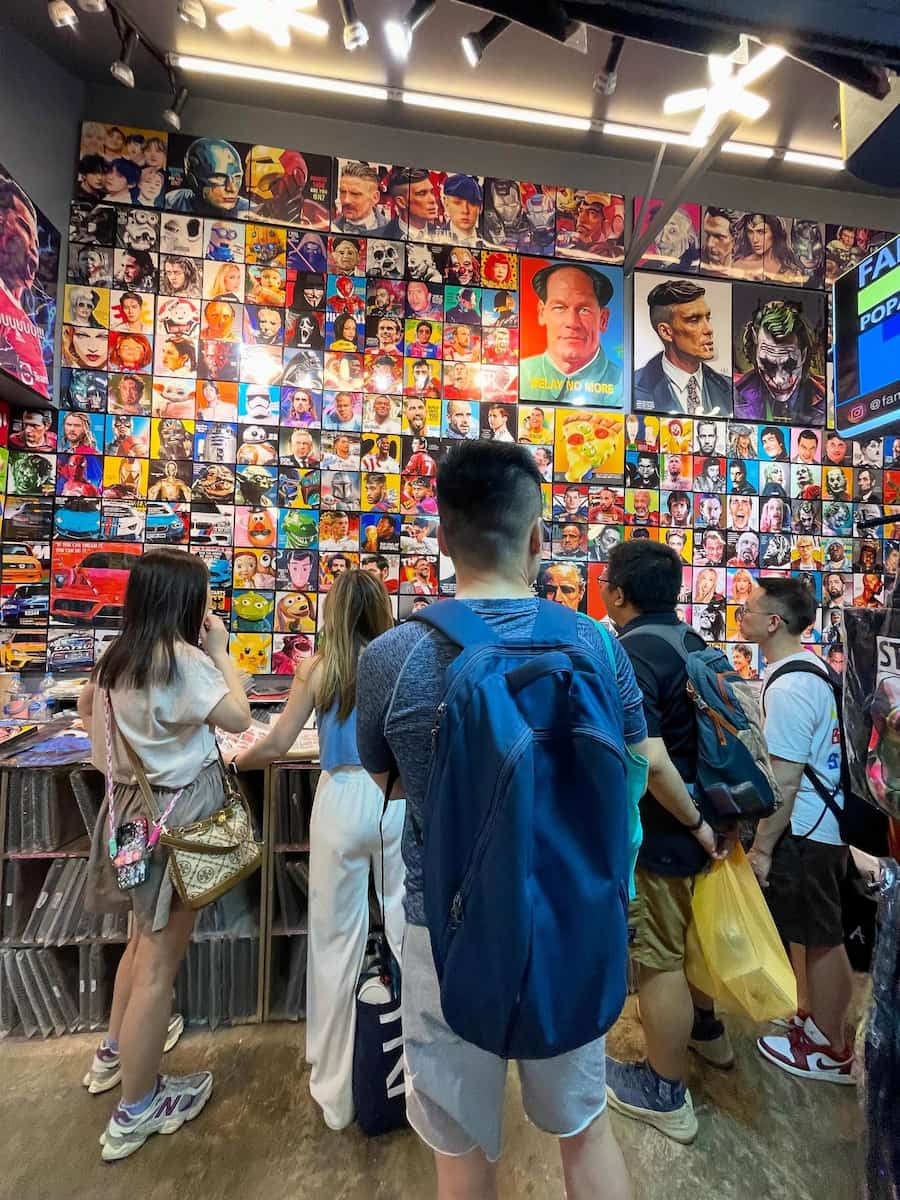
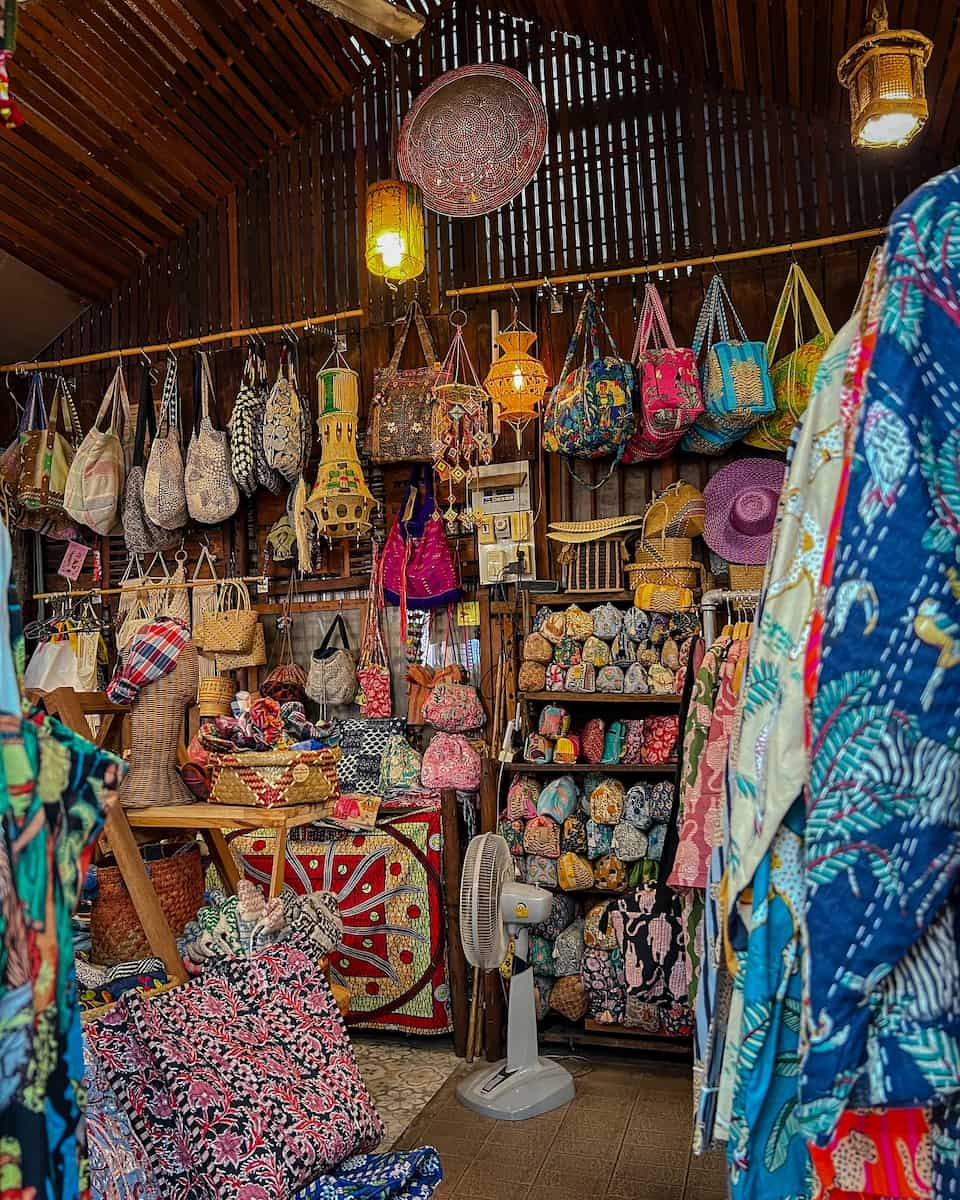
Culinary Discoveries. Coco JJ Coconut Ice Cream serves the market’s most famous dessert – creamy coconut ice cream with fresh coconut shavings for 50 THB. I waited in line at Drumstick Duck for their signature tender duck noodles, where the 130 THB drumstick portion melts in your mouth. The food courts scattered throughout offer authentic Pad Thai, Thai iced tea, and grilled honey pork at budget-friendly prices. These local vendors provide essential fuel for marathon shopping sessions.
Bargaining Culture. Vendors expect friendly negotiation, especially for multiple purchases or higher-priced items like clothing and accessories. I discovered that starting conversations about the products often leads to better deals than aggressive haggling tactics. Popular shops like YUEDPAO offer made-in-Thailand unisex clothing, while Dilok Bookstore houses Thailand’s largest collection of second-hand English books. The key to successful shopping involves arriving early, staying hydrated, and wearing comfortable walking shoes for the extensive exploration required.
Practical Navigation. The BTS Skytrain Mo Chit station provides direct access to the market’s main entrance, connecting easily to central Bangkok attractions. I recommend dedicating at least half a day for casual browsing, though serious shoppers easily spend entire weekends exploring different sections. The clocktower at the market’s center serves as a helpful landmark for navigation and meeting points. Morning visits offer cooler temperatures and smaller crowds before the afternoon rush begins.
⭐ Best Activities
- Bangkok by Private Guide: Full Day Tour In and Around – Explore Bangkok the way you want on a customizable full-day private tour with a professional English-speaking guide. Visit temples, markets, and attractions tailored to your interests with flexible start times and hotel pickup included.
Things to Do in Bangkok with Kids
1. SEA LIFE Bangkok Ocean World
Underwater Adventure. SEA LIFE Bangkok Ocean World transforms the basement of Siam Paragon into Southeast Asia’s largest aquarium, housing over 30,000 marine creatures. I watched children’s faces light up as they walked through the 270-degree ocean tunnel surrounded by sharks, rays, and tropical fish. The interactive touch pools allow kids to safely handle starfish and sea cucumbers under expert supervision. This attraction provides an educational escape from Bangkok’s heat while keeping families entertained for hours.
| Detail | Information |
|---|---|
| Entry Fee | 990 THB (~$28 USD) |
| Family Package | 2,800 THB (~$80 USD) |
| Hours | 10:00 AM – 9:00 PM |
Interactive Learning. The aquarium features themed zones including a penguin enclosure, jellyfish gallery, and a 4D cinema experience that combines marine education with entertainment. I observed how the feeding shows captivate young audiences while teaching about marine conservation and ecosystem protection. The glass-bottom boat ride offers a unique perspective of the main tank from above. Staff members speak English and provide engaging commentary that makes learning fun for international families visiting thailand.
Practical Family Tips. The aquarium connects directly to Siam Paragon’s food court and shopping areas, making it easy to combine with other family activities during your day in bangkok. I recommend purchasing tickets online to avoid queues, especially during weekends and school holidays. The facility provides stroller parking and baby-changing facilities for families with young children. This indoor attraction works perfectly during Thailand’s rainy season or when seeking air-conditioned relief from outdoor sightseeing.
⭐️ Best Activities
- Sea Life Ocean World Admission Only – Dive into Southeast Asia’s largest aquarium featuring sharks, rays, and thousands of marine creatures.
2. Traditional Thai Puppet Show
Cultural Heritage. Artist’s House (Baan Silapin) preserves traditional Thai puppet theater in a 200-year-old wooden house along Bangkok’s canals. I discovered this hidden gem showcases hun lakhon lek puppetry, where skilled performers manipulate intricate marionettes to tell classical Thai stories. The intimate setting allows children to see the puppeteers’ techniques up close while learning about Thai mythology and folklore. Weekend performances attract both locals and tourists seeking authentic cultural experiences in thailand.
| Detail | Information |
|---|---|
| Show Times | Saturday-Sunday 2:00 PM |
| Entry Fee | Free (donations welcome) |
| Duration | 30-45 minutes |
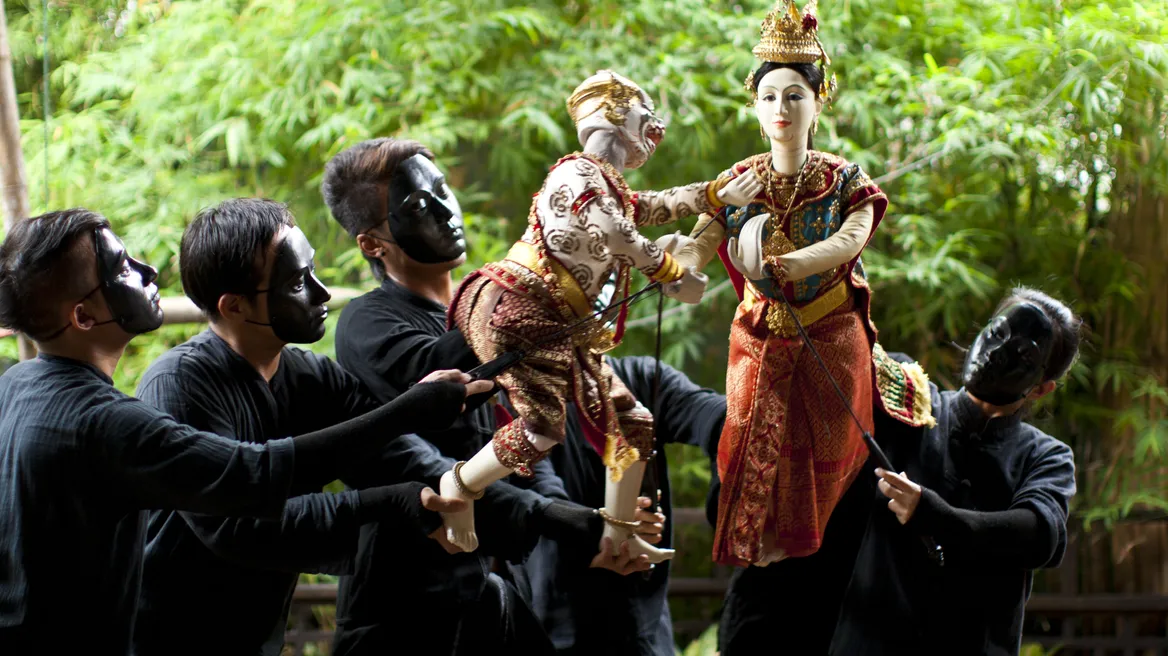
Artistic Immersion. The house doubles as an art gallery and workshop where visitors can observe traditional crafts including puppet making, painting, and wood carving. I watched children participate in hands-on activities like mask painting and simple puppet creation under local artists’ guidance. The canal-side location provides a glimpse into traditional Bangkok life away from the modern city center. This experience offers families a chance to engage with living cultural traditions rather than just observing static museum displays.
Hidden Location Adventure. Reaching Artist’s House requires a short longtail boat ride through Bangkok’s remaining canals, adding an element of adventure to the cultural experience. I found the journey itself entertaining for children who enjoy boat rides and spotting monitor lizards along the waterways. The house serves traditional Thai snacks and drinks, allowing families to extend their visit while supporting local artisans. This attraction represents one of the best places to visit for families seeking authentic cultural immersion beyond typical tourist sites.
3. Bangkok Art and Culture Centre
Creative Exploration. Bangkok Art and Culture Centre offers rotating exhibitions, workshops, and interactive installations designed to engage visitors of all ages with contemporary Thai and international art. I explored multiple floors featuring photography, sculpture, digital art, and multimedia presentations that spark children’s creativity and curiosity. The center’s family-friendly approach includes educational programs and hands-on activities during weekends and school holidays. This cultural institution demonstrates how bangkok art and culture continues evolving while remaining accessible to young audiences.
| Detail | Information |
|---|---|
| Entry Fee | Free |
| Workshop Fees | 200-500 THB (~$6-14 USD) |
| Hours | 10:00 AM – 9:00 PM |
Interactive Programs. The center regularly hosts family workshops covering traditional Thai arts, modern painting techniques, and digital media creation for different age groups. I participated in a batik-making session where children learned about traditional fabric dyeing while creating their own artistic pieces. The facility includes a children’s library, creative play areas, and spaces for quiet reflection and drawing. These programs help families understand Thailand’s artistic heritage while encouraging creative expression.
Central Location Benefits. Located at Siam Square, the center connects easily to shopping, dining, and other family attractions via the BTS Skytrain system. I appreciated how the free admission makes it accessible for families managing travel budgets while exploring central bangkok. The building’s modern architecture and air conditioning provide comfortable viewing conditions year-round. This attraction works well as part of a broader cultural itinerary that includes nearby temples and museums.
⭐️ Best Activities
- Bangkok Full Day Private Customized Tour with Transport – Create your perfect Bangkok itinerary with a private guide and comfortable transportation to your chosen attractions.
Free Things to Do in Bangkok
1. Lumpini Park
Green Sanctuary. Lumpini Park spans over 500,000 square meters in central bangkok, offering free outdoor activities from tai chi classes to aerobics sessions with techno music. I discovered monitor lizards sunbathing by the artificial lake while families enjoy picnics and office workers exercise during lunch breaks. The park’s 2.5-kilometer jogging track attracts early morning runners, creating a vibrant community atmosphere that represents the city’s best free entertainment. This green oasis proves that bangkok is home to unexpected natural sanctuaries amid urban chaos.
| Activity | Cost | Best Time |
|---|---|---|
| Park Entry | Free | 4:30 AM – 9:00 PM |
| Swan Paddle Boats | 30 THB (~$1 USD) | Afternoons |
| Outdoor Gym Equipment | Free | Early Morning/Evening |
| Tai Chi Classes | Free | 6:00-8:00 AM |
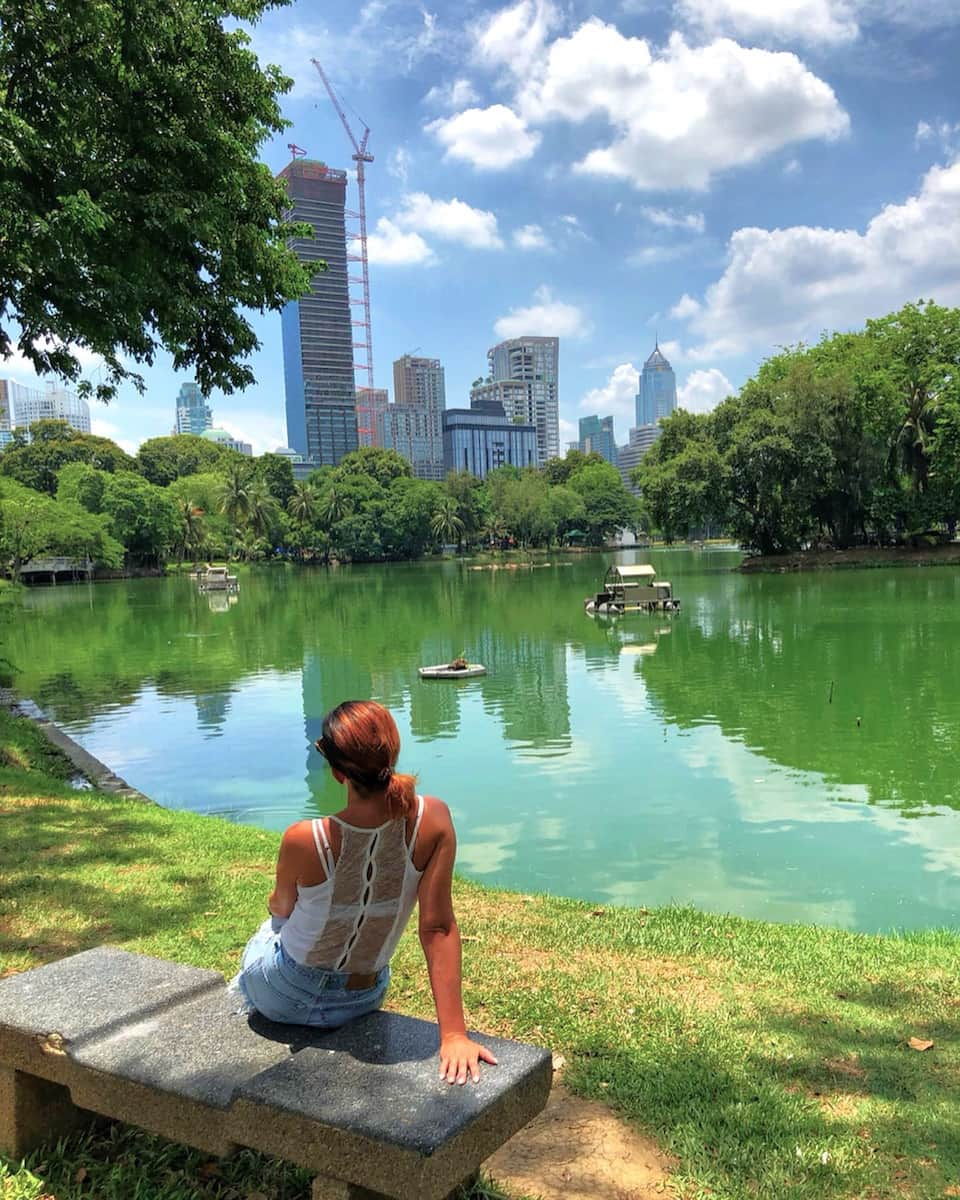
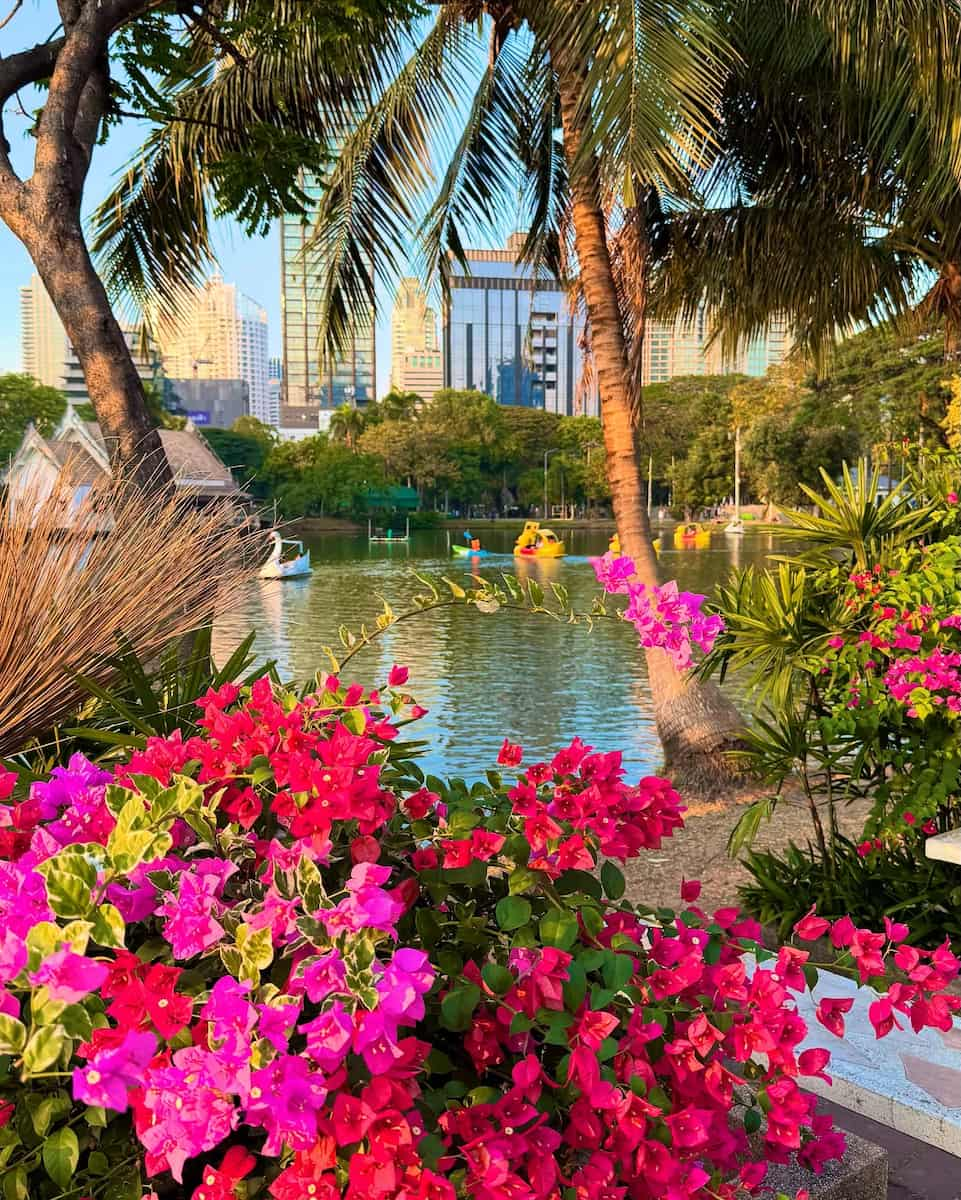
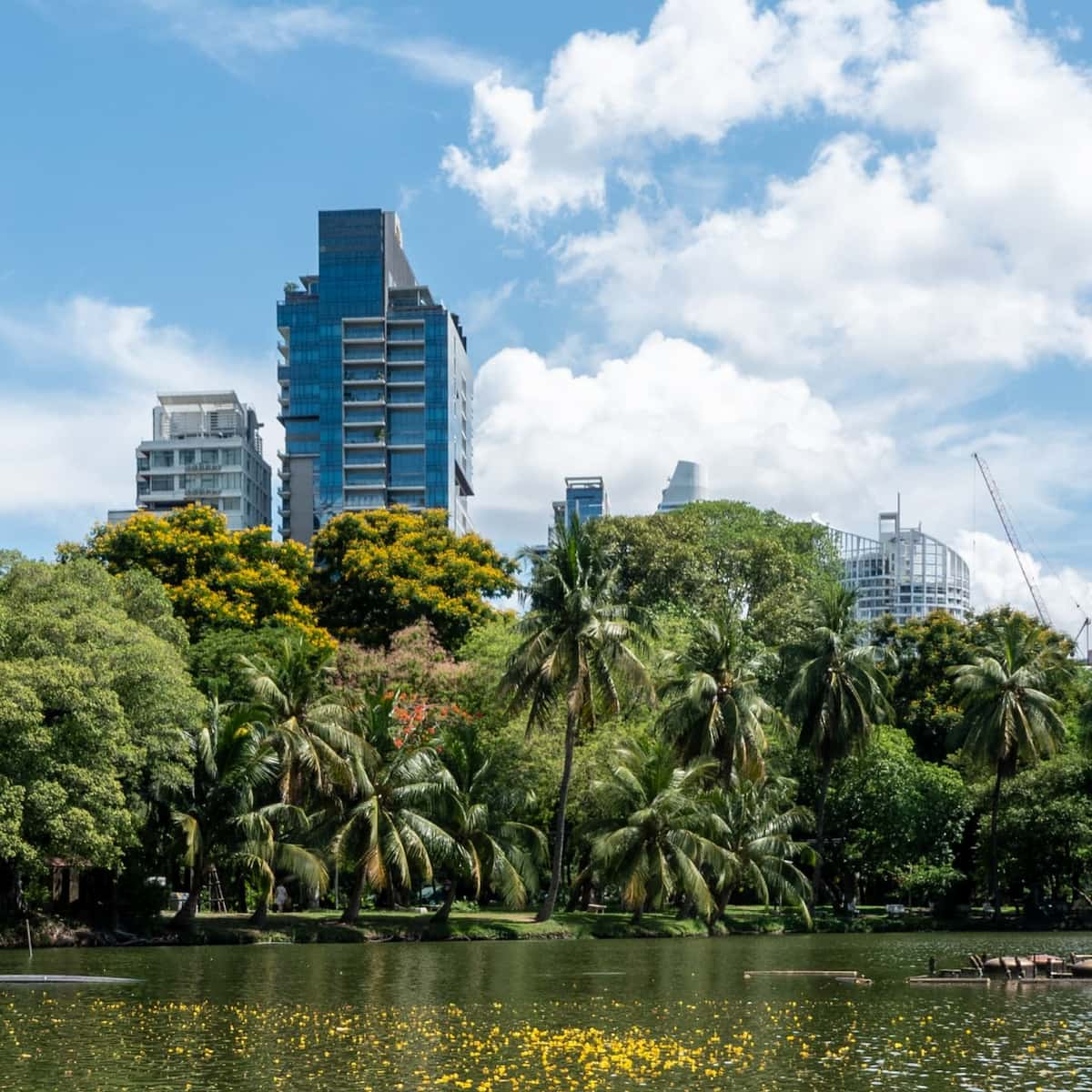
Community Activities. The bangkok symphony orchestra performs on Sunday afternoons, creating magical moments for visitors exploring bangkok on a weekend. I joined free aerobics classes where locals welcomed tourists to participate in high-energy fitness routines under shaded pavilions. The park’s basketball courts and outdoor gym equipment provide excellent workout opportunities without membership fees. These activities demonstrate how easy to get around bangkok becomes when using parks as social and fitness hubs.
Wildlife Encounters. Approximately 400 water monitor lizards call this park home, creating unique photo opportunities as these giant reptiles bask in the sun or swim across the lake. I watched children’s excitement as they spotted these Komodo dragon-like creatures during family outings in one of the places to visit in bangkok. The park’s diverse bird population attracts feeding enthusiasts who gather near the water features throughout the day. This natural habitat showcases an unexpected side of bangkok where you’ll encounter exotic wildlife in the heart of the metropolis.
2. Erawan Shrine
Spiritual Center. Erawan Shrine attracts thousands of daily visitors seeking blessings from the four-faced Brahma statue, creating a constant stream of cultural activity in central Bangkok. I observed traditional Thai dancers performing when visitors pay for blessing ceremonies, adding authentic entertainment to this sacred space. The shrine’s location near Central World shopping center makes it an accessible stop for anyone headed to bangkok’s commercial districts. This spiritual oasis demonstrates how bangkok offers a wide range of experiences beyond typical tourist attractions.
| Service | Cost | Operating Hours |
|---|---|---|
| Shrine Entry | Free | 24 Hours Daily |
| Flower Offerings | 20-60 THB (~$0.60-2 USD) | Anytime |
| Traditional Dance | 400-600 THB (~$11-17 USD) | During Daylight |
| Incense Sets | 40 THB (~$1.20 USD) | Available All Day |
Cultural Immersion. The shrine’s popularity among both locals and international visitors creates excellent people-watching opportunities while learning about Thai religious customs and spiritual practices. I learned proper offering etiquette from observing how Thai families incorporate shrine visits into their daily routines when they visit bangkok. The constant activity of worshippers lighting incense and placing flowers creates a meditative atmosphere despite the surrounding urban bustle. This experience provides valuable insight into contemporary Thai spirituality that remains central to local culture.
Urban Integration. The shrine maintains its sacred atmosphere while being surrounded by modern skyscrapers, luxury hotels, and busy shopping districts in the heart of the city. I appreciated how this spiritual site thrives within Bangkok’s commercial center, offering moments of reflection during intensive shopping or sightseeing days. The BTS Skytrain connection at Chit Lom station makes it incredibly convenient for travelers exploring multiple areas during their time to visit thailand. This location perfectly illustrates how traditional spirituality adapts and flourishes within Bangkok’s modern urban environment.
3. Walk Around Old Town and Silom
Historic Discovery. Walking through Bangkok’s old town reveals architectural layers from traditional shophouses to colonial-era buildings that chronicle the city’s evolution over centuries. I explored narrow alleys where local families operate the same businesses for generations, maintaining authentic neighborhood character in the oldest parts of bangkok. The area around Rattanakosin showcases temple complexes, royal buildings, and traditional markets that transport visitors back through Thai history. This self-guided exploration represents one of the best ways to get to know bangkok’s cultural foundations.
| Area | Walking Distance | Highlights |
|---|---|---|
| Rattanakosin Loop | 2.5 Miles | Temples, Royal Buildings |
| Silom Business District | 1.5 Miles | Skyscrapers, Street Food |
| Chinatown Connection | 1 Mile | Traditional Shops, Gold Markets |
| River Access Points | Multiple Piers | Ferry Connections |
Architectural Contrast. Silom Road showcases Bangkok’s transformation from traditional trading post to modern financial center, with glass towers standing alongside century-old shophouses. I discovered hidden temples tucked between office buildings, creating fascinating juxtapositions that define contemporary Thai urban development. The area’s mix of street vendors, luxury restaurants, and local markets provides diverse dining options for budget-conscious and upscale travelers. This walking route demonstrates how bangkok has two distinct personalities that coexist harmoniously.
Cultural Immersion. The old town walking experience includes interactions with local vendors, temple visits, and observations of daily life that reveal authentic Thai culture beyond tourist attractions. I spent 48 hours in bangkok exploring these neighborhoods and discovered each street corner offers new insights into local customs and traditions. The area’s connectivity via river ferries, BTS stations, and walking paths makes it easy to combine multiple attractions during one full day in bangkok. This exploration method allows visitors to experience the best of both historical preservation and modern urban development.
4. Stroll Along Khao San Road
Daytime Discovery. Khao San Road transforms during daylight hours into a relaxed shopping and dining destination where visitors can explore without the intense nightlife atmosphere. I discovered hip clothing stores, handmade accessory shops, and local bookstores that cater to backpackers and cultural enthusiasts exploring bangkok for the first time. The street’s famous food vendors serve authentic Pad Thai, banana roti, and boat noodles at budget-friendly prices throughout the day. This daytime experience reveals a different side of bangkok’s most famous backpacker street.
| Activity | Price Range | Best Time |
|---|---|---|
| Street Food | 30-80 THB (~$1-2.50 USD) | 11:00 AM – 6:00 PM |
| Souvenir Shopping | 50-300 THB (~$1.50-9 USD) | Morning to Evening |
| Cafe Visits | 60-150 THB (~$2-4.50 USD) | Afternoon |
| Temple Nearby | Free-50 THB | Early Morning |
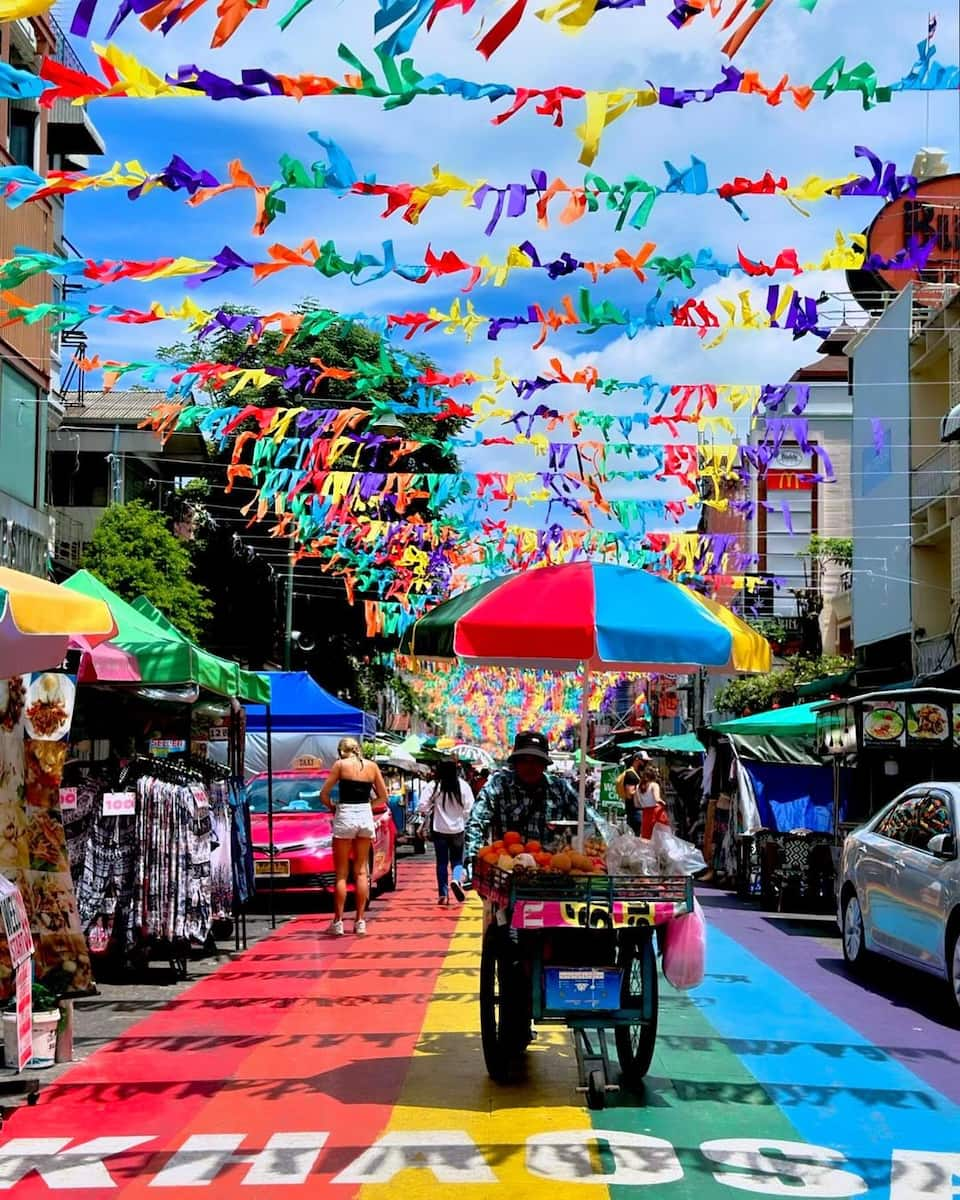
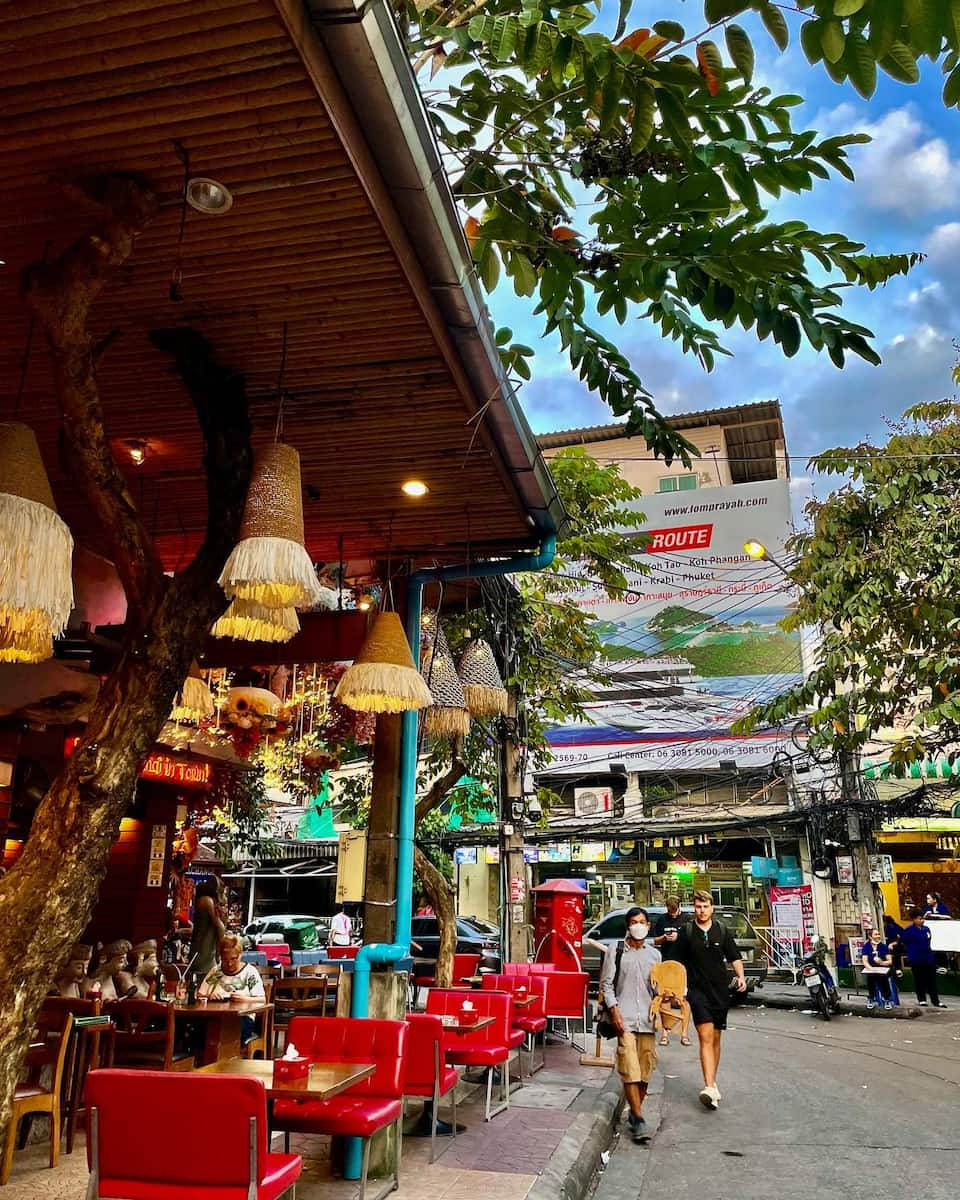
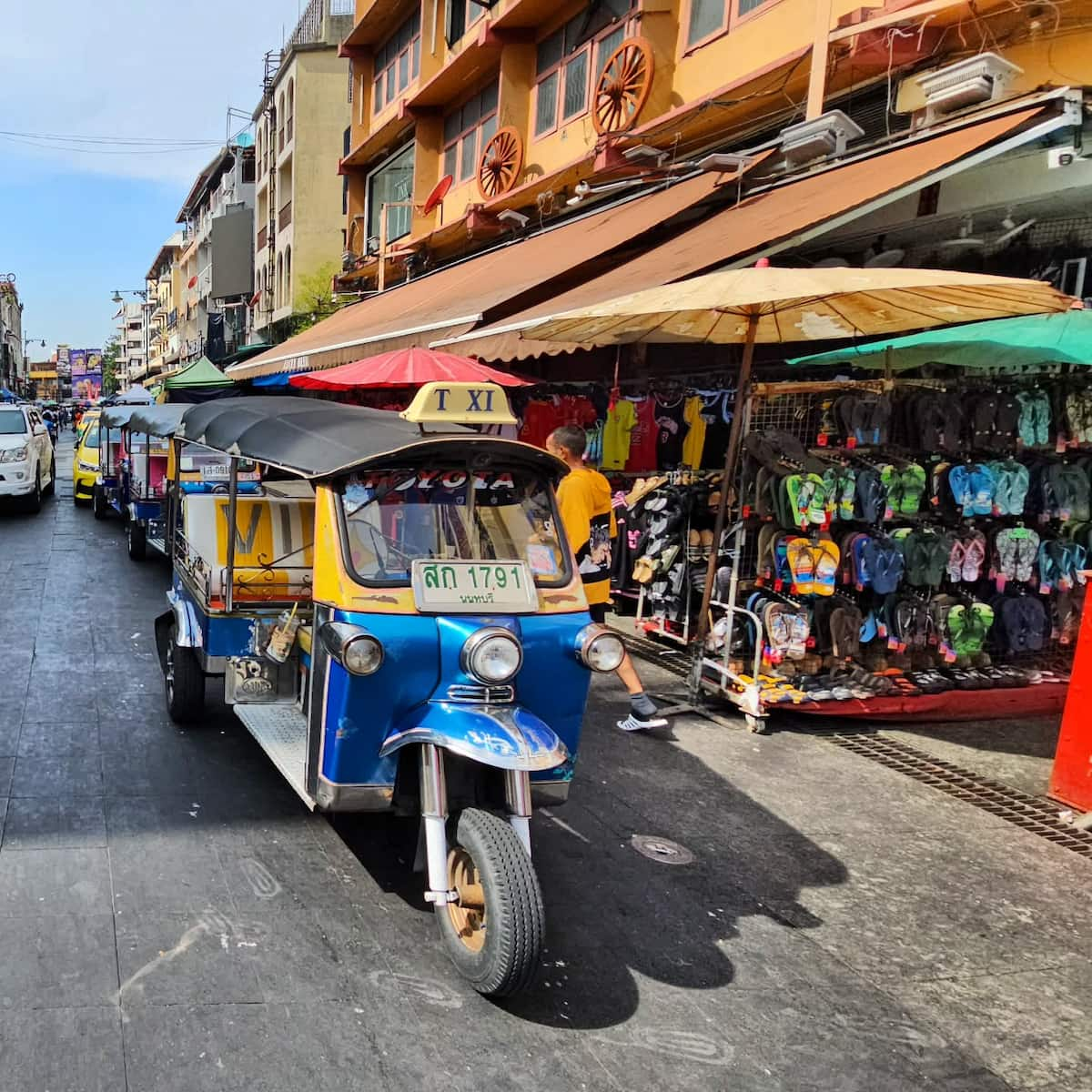
Cultural Exploration. Adjacent Rambuttri Road offers a quieter atmosphere with vintage cafes and traditional bookstores that appeal to travelers seeking authentic local experiences. I explored nearby Ratchanaddaram Temple, which houses Thailand’s only remaining metal castle, providing historical context for the area’s cultural significance. The neighborhood’s proximity to the Grand Palace and other major temples makes it an excellent base for exploring bangkok’s historic district. These connections help visitors understand how modern backpacker culture integrates with traditional Thai neighborhoods.
Local Atmosphere. The daytime crowd includes local students, artists, and entrepreneurs who frequent the area’s cafes and creative spaces, creating opportunities for cultural exchange. I observed how the street maintains its bohemian character while adapting to changing tourism patterns and local business needs. The area’s evolution from budget accommodation hub to cultural destination reflects Bangkok’s ability to reinvent itself while preserving authentic character. This transformation showcases how love bangkok develops among visitors who discover the city’s adaptability and resilience.
Seasonal Activities in Bangkok
Christmas in Bangkok
Festive Illuminations. Christmas transforms Bangkok into a sparkling wonderland where shopping malls compete with elaborate decorations, light displays, and themed events throughout December. I discovered CentralWorld Square hosting beer gardens with nightly live concerts while Siam Paragon illuminates dozens of palm trees with colorful Christmas lights. The entire Rachadamri Road corridor showcases festive décor at prominent venues, creating a magical atmosphere for visitors exploring bangkok during the holiday season. This celebration demonstrates how bangkok has to offer unique experiences that blend Western traditions with Thai hospitality.
| Location | Special Events | Duration |
|---|---|---|
| CentralWorld Square | Beer Gardens, Live Concerts | Throughout December |
| Siam Paragon | Illuminated Palm Trees | December 1-31 |
| Chao Phraya River | Floating Restaurants, Party Boats | Daily Evening Cruises |
| Chinatown | Christmas Street Decorations | Mid-December |
Cultural Fusion. The city’s famous riverside becomes particularly popular during Christmas, with floating restaurants and party boats transporting revelers along the Chao Phraya River throughout the day and night. I explored how even tuk-tuks and street food stalls get adorned with colorful twinkling lights, creating an authentic Thai Christmas experience. The festival atmosphere extends to areas like Chinatown, Khao San Road, and Ratchadamnoen Road, offering diverse celebration styles for different preferences. This seasonal transformation shows visitors headed to bangkok during December will find many things to see beyond traditional tourist attractions.
Shopping Extravaganza. Christmas marks peak shopping season when Bangkok’s hotels enjoy maximum occupancy and malls dazzle with impressive displays, events, and promotions. I noticed how the skywalk system connecting Gaysorn Mall to CentralWorld creates a covered shopping circuit perfect for holiday browsing. The massive festival mood around Siam Square includes Christmas trees, lights, and dozens of stalls selling clothes, accessories, and street food. This shopping paradise represents one of the best times to visit bangkok for retail therapy and cultural immersion combined.
Summer Festivals and Events
Songkran Water Festival. Songkran transforms Bangkok into one massive water party during April 13-15, when locals and tourists join the traditional New Year celebration with water guns, hoses, and buckets. I experienced Silom Road as Bangkok’s ultimate Songkran celebration spot, where the business district becomes a pedestrian-only water battle zone with fire trucks spraying crowds. The festival carries deep cultural meaning as water washes away last year’s bad luck while welcoming good fortune for the year ahead. This three-day celebration represents it’s the best time to experience authentic Thai culture while staying cool in Bangkok’s summer heat.
| Festival | Location | Dates | Special Features |
|---|---|---|---|
| Songkran Water Festival | Silom Road (Main) | April 13-15 | Street Closure, Fire Trucks |
| S2O Songkran | Live Park Rama 9 | April 13-15 | EDM, Water Cannons |
| Waterzonic | Various Venues | September-November | End of Rainy Season Party |
| 808 Festival | Multiple Locations | Various Dates | Underground Techno |
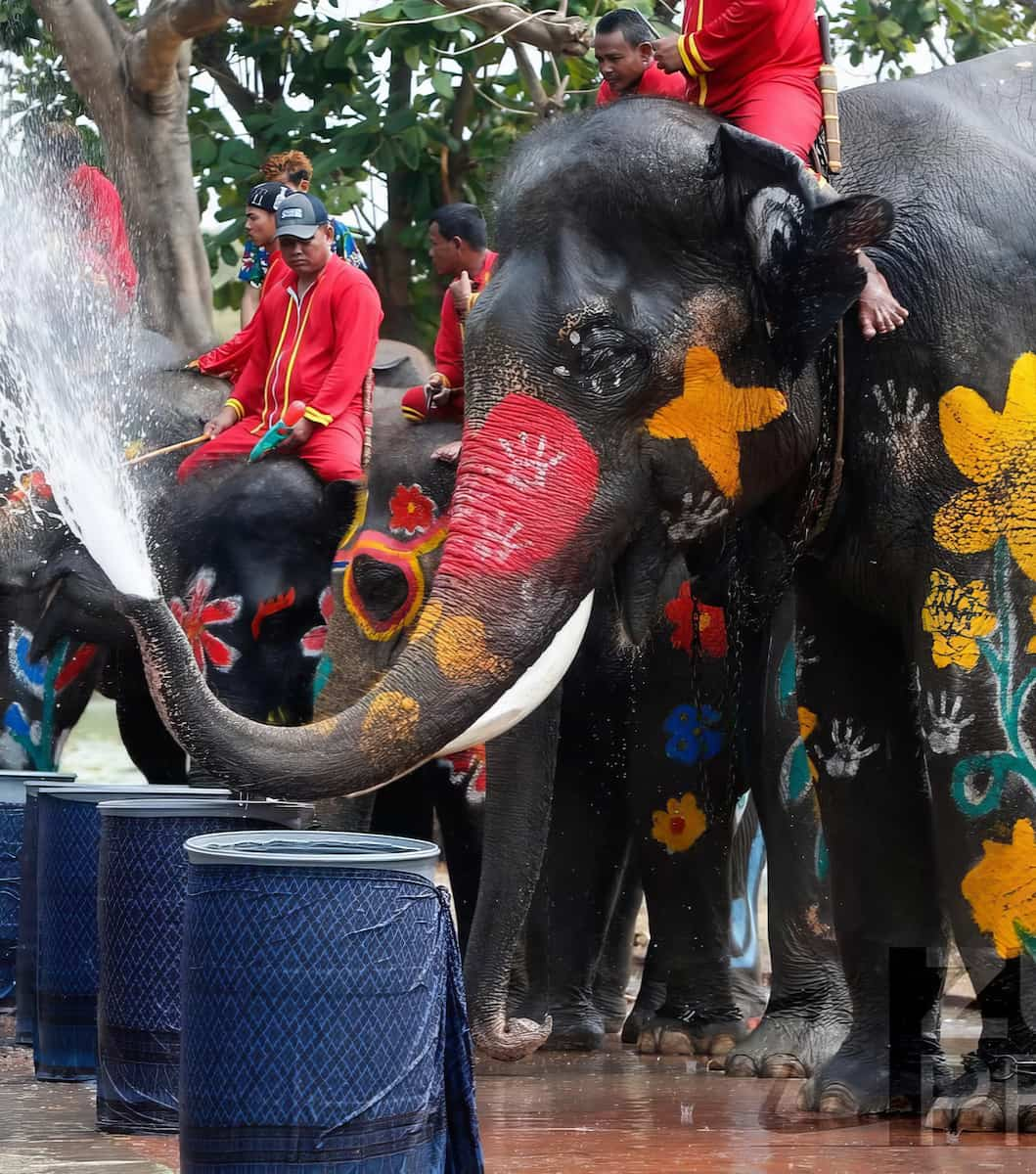
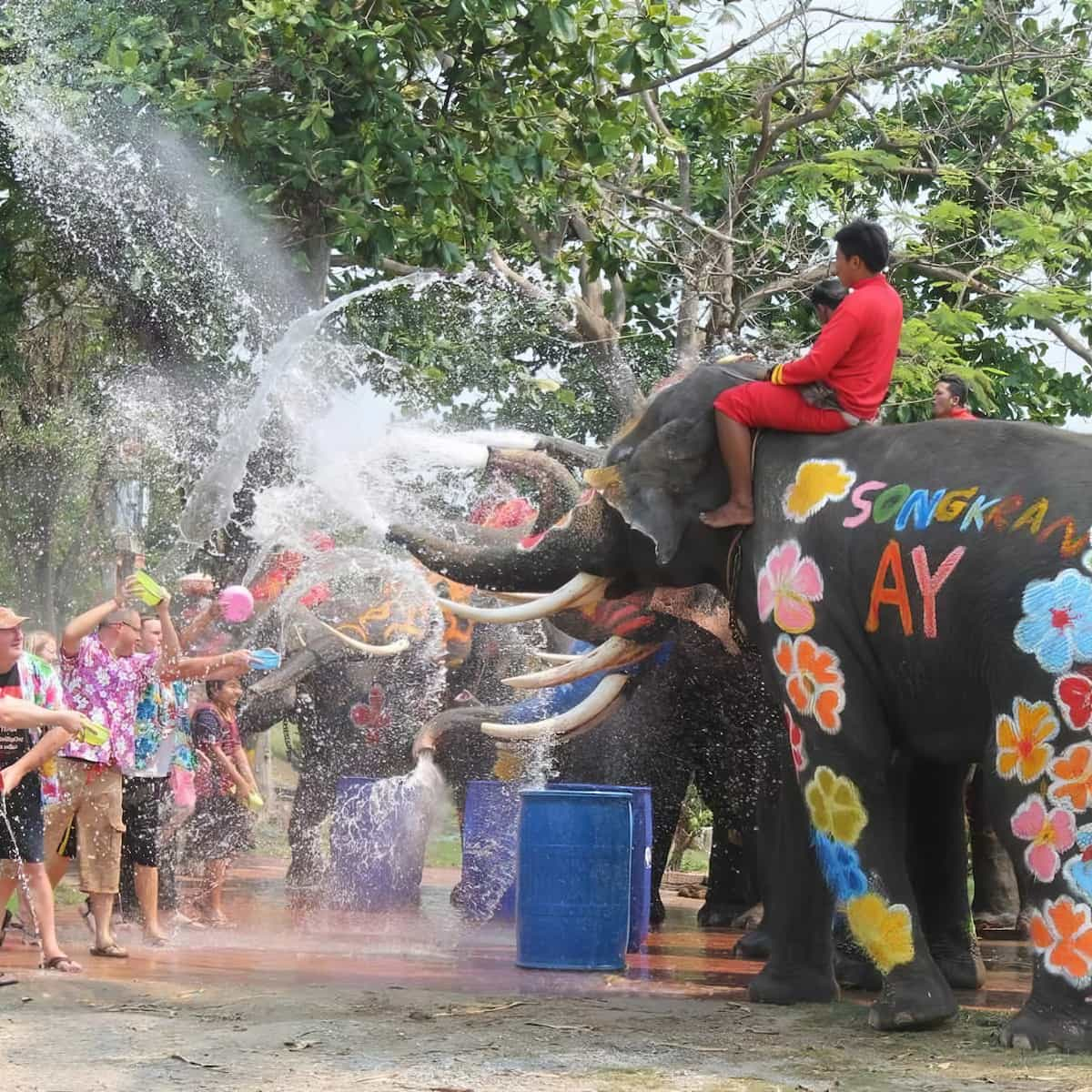
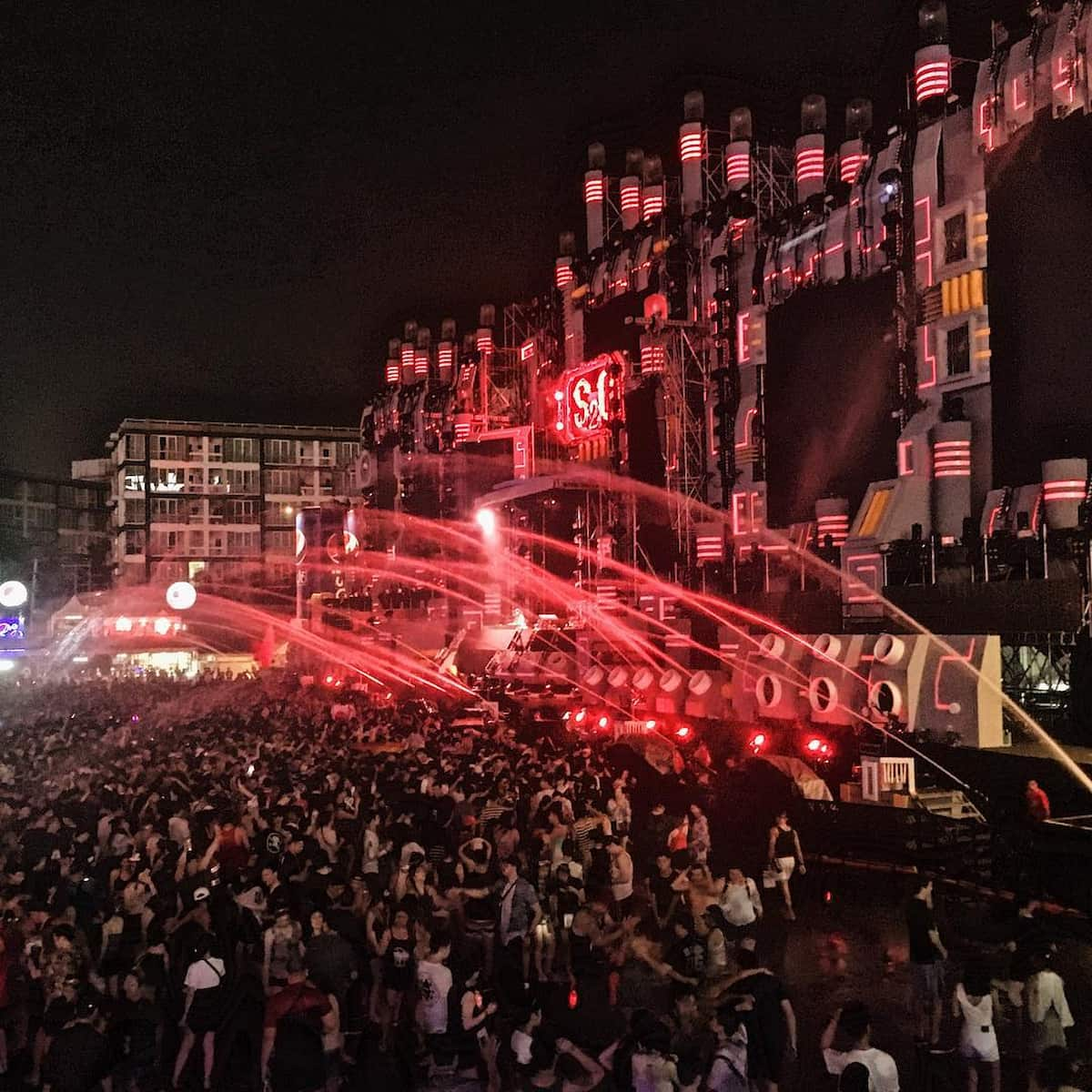
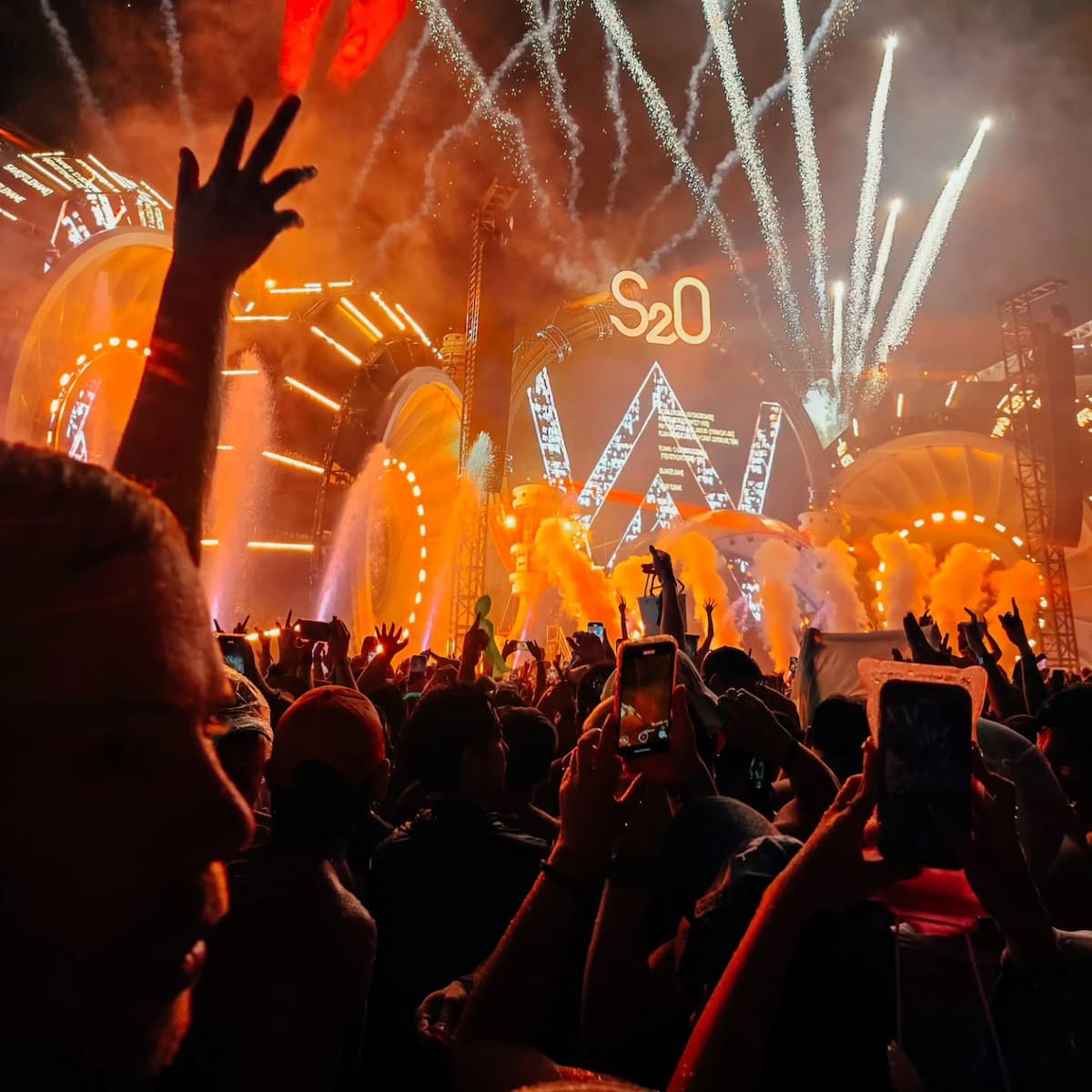
Music Festival Scene. S2O Songkran combines EDM music with water festival elements, featuring world-class stage designs and gigantic water cannons at Live Park Rama 9. I discovered this three-day event attracts international headliners like Tiësto, Afrojack, and R3hab, creating the biggest and wettest party in Bangkok. Waterzonic offers another exciting water music festival experience, typically held between September and November at various venues including Show DC and SCG Stadium. These festivals demonstrate how bangkok is one of Southeast Asia’s premier destinations for electronic music and party culture.
Cultural Integration. The summer festival season showcases how traditional Thai celebrations blend with modern entertainment, creating unique experiences for visitors on their trip to thailand. I observed how Songkran’s spiritual significance remains central while accommodating contemporary party elements and international participation. The festival atmosphere extends beyond designated areas, with DJs, dance parties, and spontaneous celebrations appearing throughout the city during peak celebration periods. This cultural fusion helps visitors get to know bangkok’s ability to honor traditions while embracing global influences.
Spring Blooms in Royal Parks
Botanical Splendor. Spring brings spectacular flowering displays to Bangkok’s royal parks, where traditional Thai landscaping showcases native plants and seasonal blooms in carefully maintained gardens. I explored how these green spaces provide peaceful sanctuaries from urban intensity while demonstrating Thailand’s rich botanical heritage and horticultural expertise. The parks feature diverse plant species from across Thailand and neighboring countries, creating educational opportunities for visitors interested in tropical flora and traditional garden design. These locations represent some of the best areas to stay connected with nature while exploring central Bangkok.
| Park Type | Peak Blooming | Notable Features | Best Visiting |
|---|---|---|---|
| Royal Botanical Gardens | February-May | Orchid Collections, Native Species | Early Morning |
| Palace Garden Areas | March-June | Traditional Landscaping | Weekday Mornings |
| Public Royal Parks | Year-Round Rotation | Seasonal Displays | Cool Weather Periods |
| Temple Gardens | Various Seasons | Sacred Plants, Lotus Ponds | Before 10 AM |
Seasonal Photography. The spring blooming period offers exceptional photography opportunities as flowers reach peak display during Thailand’s transition from cool to hot season. I discovered how different species bloom at various times, creating constantly changing landscapes throughout the spring months for repeat visitors. The combination of traditional architecture, water features, and flowering plants creates Instagram-worthy compositions that capture Bangkok’s natural beauty. This seasonal timing provides excellent reasons for planning multiple visits when you spend 3 days in bangkok during different months.
Cultural Significance. Royal parks maintain traditional Thai garden design principles that reflect Buddhist concepts of harmony, balance, and seasonal cycles in landscape architecture. I learned how specific plants hold cultural and religious significance, with lotus ponds, sacred trees, and medicinal herbs playing important roles in Thai spiritual practices. The parks serve as living museums where visitors can understand the relationship between Thai culture and natural environment through guided tours and educational displays. These experiences enhance any thailand travel guide recommendations for cultural immersion beyond temple visits.
Autumn Foliage Walks
Seasonal Transitions. Bangkok’s autumn period brings subtle but beautiful changes to the city’s tree-lined streets and parks as temperatures begin cooling after the rainy season. I noticed how certain tree species display golden and reddish hues along major boulevards, creating pleasant walking conditions for exploring different neighborhoods. The post-monsoon period offers clearer skies and reduced humidity, making it an ideal time for extended outdoor exploration and photography. This season represents the best time to visit bangkok for comfortable walking tours and outdoor activities.
| Walking Route | Distance | Foliage Highlights | Comfort Level |
|---|---|---|---|
| Lumpini Park Circuit | 2.5 km | Mature Trees, Lake Views | Easy, Paved Paths |
| Royal District Walk | 3 km | Palace Area Trees | Moderate, Mixed Terrain |
| Riverside Promenade | 4 km | Waterfront Plantings | Easy, Flat Route |
| University Area | 2 km | Campus Landscaping | Easy, Shaded Paths |
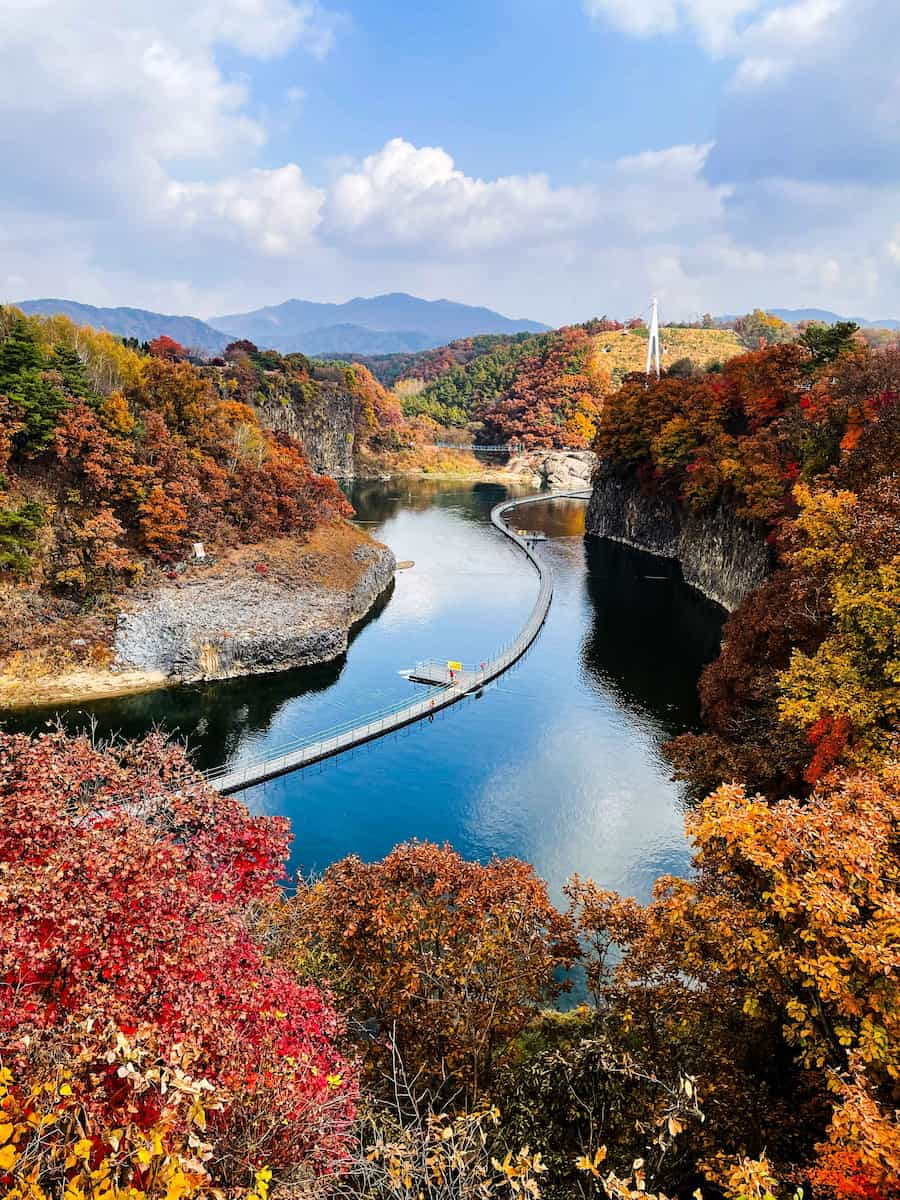
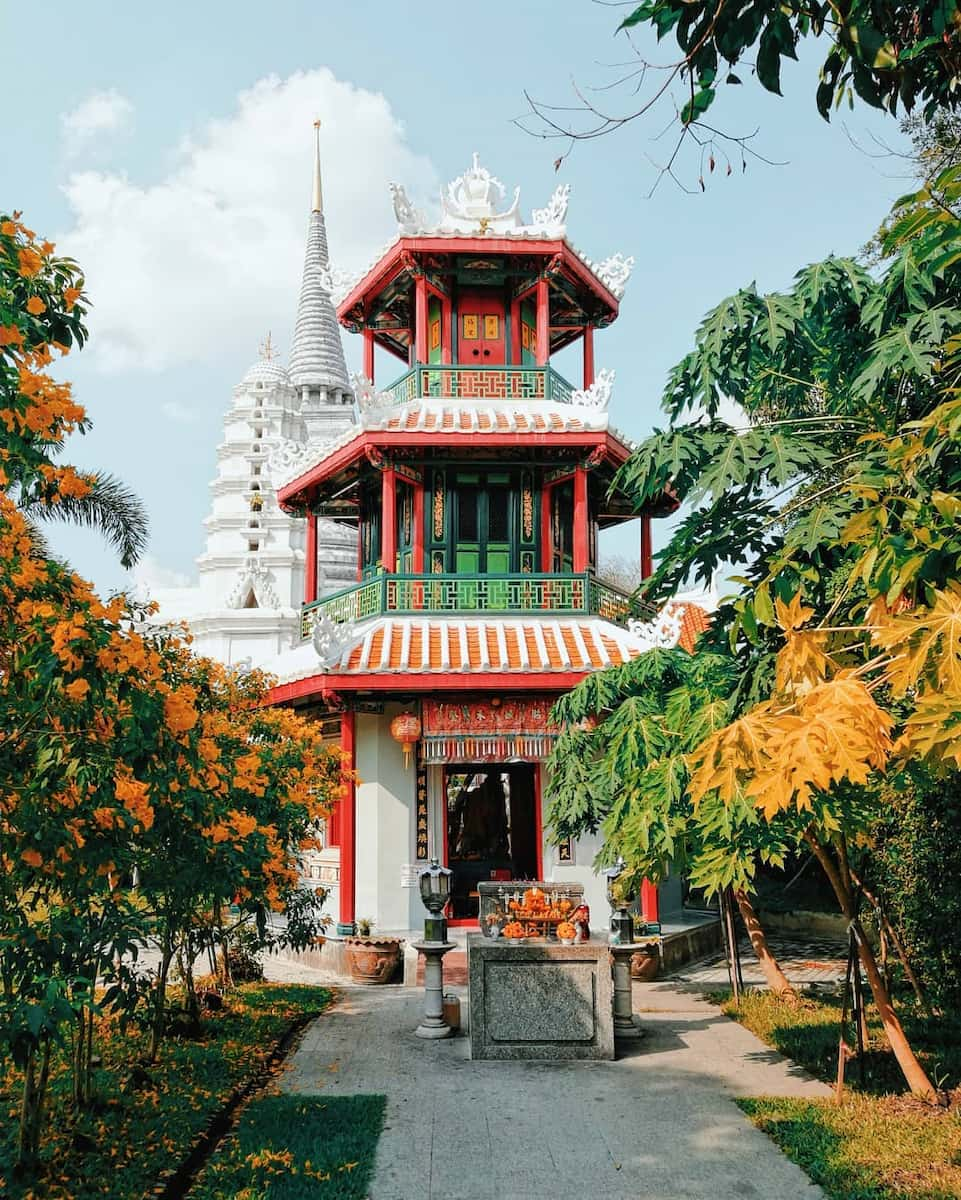
Urban Nature Discovery. The autumn walking season reveals Bangkok’s extensive urban forest, where mature trees provide natural cooling and air purification throughout the metropolitan area. I explored tree-lined canals, university campuses, and residential areas where seasonal changes create peaceful environments for contemplative walks. The period between November and February offers optimal conditions for discovering hidden green spaces and neighborhood parks that locals use for daily exercise. These walks help visitors understand how bangkok before heading into the hot season maintains livability through strategic urban planning.
Photography Opportunities. Autumn light conditions create excellent opportunities for capturing Bangkok’s architectural and natural beauty as harsh summer glare gives way to softer illumination. I found early morning and late afternoon walks particularly rewarding for photography, with golden light filtering through changing foliage and reflecting off traditional buildings. The season’s clear air improves visibility for skyline shots and distant landmark photography from elevated walkways and bridges. This timing provides ideal conditions for visitors creating visual memories of their visit to bangkok during the most photogenic season.
Day Trips from Bangkok
1. Ayutthaya Historical Park
UNESCO Heritage Discovery. Ayutthaya Historical Park preserves the ruins of Thailand’s ancient capital, featuring temple complexes and Buddha statues that showcase 400 years of royal history. I explored six major temple sites including Wat Yai Chai Mongkhon and Wat Phra Si Sanphet, where headless Buddha statues create haunting photographic opportunities. The park spans several square kilometers, requiring either bicycle rental or tuk-tuk transportation to cover the main attractions efficiently during a day trip from bangkok. This UNESCO World Heritage Site represents one of the most significant archaeological destinations accessible from the capital.
| Transportation | Duration | Cost | Best Season |
|---|---|---|---|
| Train from Hua Lampong | 2 hours each way | 20 THB (~$0.60 USD) | November-February |
| Private Tour Bus | 1.5 hours each way | 1,500-2,500 THB (~$43-72 USD) | Year-round |
| Self-Drive Car | 1.5 hours each way | Fuel + tolls ~800 THB | Cool season preferred |
| Organized Day Tour | 10-12 hours total | 1,200-3,000 THB (~$34-86 USD) | October-March |
Temple Complex Exploration. The ancient city’s layout reveals sophisticated urban planning with temple ruins scattered across the island formed by three converging rivers. I discovered Wat Mahathat houses the famous Buddha head entwined in tree roots, while Wat Chaiwatthanaram offers riverside views perfect for sunset photography. The site’s preservation allows visitors to understand how this former capital rivaled European cities in size and grandeur during its peak period. These temple visits provide essential context for understanding Thai Buddhist architecture and royal history.
Practical Planning. Most visitors combine Ayutthaya with other attractions like Bang Pa-In Summer Palace or floating markets to maximize their day trip experience. I recommend starting early to avoid afternoon heat and crowds, especially during peak tourist seasons when planning your 3 day bangkok itinerary. The morning train departure around 10 AM provides comfortable timing, while evening returns allow for rooftop bars in bangkok after your cultural exploration. This day trip represents essential cultural education for anyone seeking to get to know bangkok’s historical foundations.
⭐️ Best Activities
- Ayutthaya Historical Park Private Tour – Journey to the ancient capital of Thailand and explore UNESCO World Heritage temple ruins on this private day trip.
2. Damnoen Saduak Floating Market
Authentic Water Market. Damnoen Saduak Floating Market operates along traditional canal networks where vendors sell fresh produce, handicrafts, and street food directly from wooden boats. I navigated the narrow waterways either by rented boat or walking along canal banks, experiencing the market’s vibrant atmosphere and authentic trading methods. The market layout includes main canals bustling with activity and quieter side channels offering more intimate vendor interactions. This traditional trading system demonstrates how commerce functioned before modern road networks transformed Thai society.
| Experience Type | Duration | Cost | Recommended Time |
|---|---|---|---|
| Boat Tour (Small) | 30-45 minutes | 600-800 THB (~$17-23 USD) | 8:00-10:00 AM |
| Walking Tour | 1-2 hours | Free entry | Early morning |
| Combined Boat/Walk | 2-3 hours | 300-600 THB (~$9-17 USD) | Before 11:00 AM |
| Photography Tour | 3-4 hours | 1,000-1,500 THB (~$29-43 USD) | Dawn start |
Cultural Immersion. The market showcases traditional Thai lifestyle where water transportation remains central to daily commerce and community interaction. I observed how vendors skillfully maneuver loaded boats through crowded canals while maintaining friendly customer service and competitive pricing. The experience includes sampling tropical fruits, traditional sweets, and boat noodles prepared fresh on floating kitchens throughout the market. This authentic environment provides insight into rural Thai culture that predates modern Bangkok’s urban development.
Journey Planning. The trip from bangkok to damnoen saduak takes approximately 1.5 hours by road, making it ideal for half-day excursions or combination tours. I found early morning departures essential for experiencing the market at peak activity before tour groups arrive and heat intensifies. Many organized tours combine this floating market with Maeklong Railway Market, creating comprehensive cultural experiences for visitors during their stay in bangkok. This destination represents the best way to explore traditional Thai commerce beyond modern shopping centers.
⭐️ Best Activities
- Authentic Floating Market Half Day – Experience traditional Thai commerce on the water at one of Bangkok’s most authentic floating markets.
3. Maeklong Railway Market
Railway Integration. Maeklong Railway Market operates directly on active train tracks, where vendors quickly fold umbrellas and move produce when trains pass through several times daily. I witnessed the remarkable coordination as stallholders clear the tracks within minutes, allowing trains to pass safely over remaining goods without damage. The market sells fresh vegetables, seafood, and local products in the traditional Thai market style while maintaining this unique railway integration. This extraordinary setup creates one of Thailand’s most photographed market experiences.
| Train Schedule | Market Activity | Photography Opportunities | Safety Considerations |
|---|---|---|---|
| 6:20 AM arrival | Full market setup | Train approaching vendors | Stay clear of tracks |
| 8:30 AM departure | Quick clearing action | Vendors folding umbrellas | Follow local guidance |
| 11:10 AM arrival | Reset and resume | Train passing overhead | Use designated viewing areas |
| 2:30 PM departure | Afternoon trading | Market life continues | Respect vendor space |
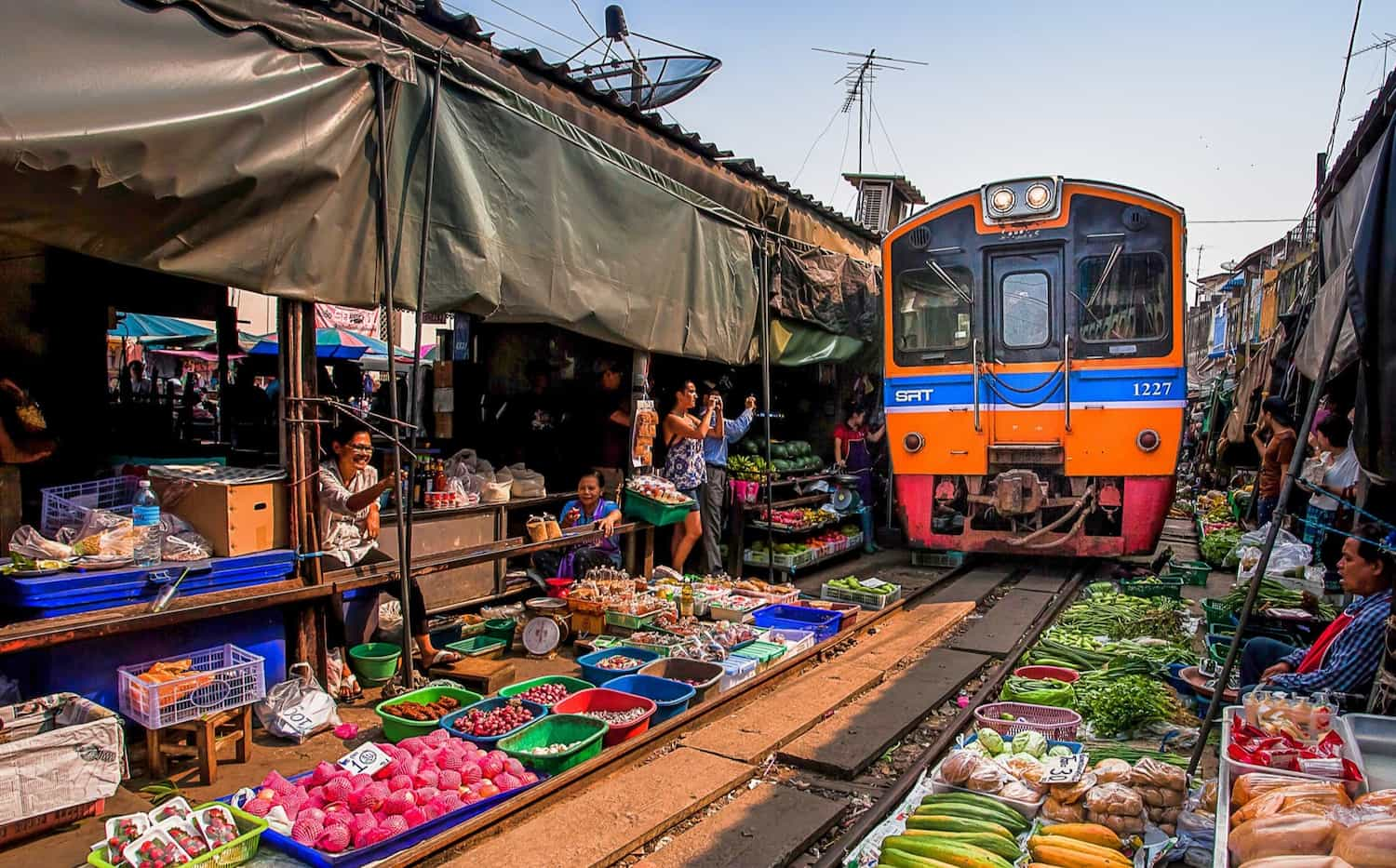
Market Operations. The vendors demonstrate incredible efficiency in their daily routine of setting up, clearing for trains, and immediately resuming business operations. I observed how the community has adapted to this unusual arrangement, with specific protocols ensuring both safety and continued commerce. The market atmosphere remains authentically local, serving surrounding communities rather than focusing primarily on tourist entertainment. This operational system showcases Thai adaptability and community cooperation in maintaining traditional commerce.
Access and Timing. The market location in Samut Songkhram province requires about one hour travel time from central Bangkok, making it suitable for half-day trips. I recommend coordinating visits with train schedules to witness the clearing process, though the market operates continuously throughout the day. The experience works well combined with nearby attractions or as part of organized tours that include multiple destinations. This unique attraction provides memorable experiences for visitors who know that bangkok offers diverse cultural adventures beyond typical tourist sites.
⭐️ Best Activities
- Maeklong Railway Market and Damnoen Saduak Floating Market Tour – Witness the famous train market where vendors move their stalls for passing trains and shop at the floating market.
4. Pattaya Beach and Sanctuary of Truth
Coastal Escape. Pattaya Beach offers sandy shores, water sports, and beachfront dining just 2.5 hours from Bangkok, providing tropical relaxation during extended city visits. I explored the main beach area with its parasailing, jet skiing, and banana boat activities alongside quieter northern sections perfect for swimming. The beachfront promenade features restaurants, bars, and shopping opportunities that cater to both international tourists and local families. This coastal destination provides essential beach experiences for visitors whose itinerary for bangkok focuses primarily on urban attractions.
| Activity | Duration | Cost | Best Timing |
|---|---|---|---|
| Beach Relaxation | 2-4 hours | Free (chair rental 100 THB) | Morning/afternoon |
| Water Sports Package | 1-2 hours | 800-1,500 THB (~$23-43 USD) | Mid-morning |
| Sanctuary of Truth Visit | 2-3 hours | 500 THB (~$14 USD) | Any time |
| Terminal 21 Shopping | 1-3 hours | Variable | Air-conditioned comfort |
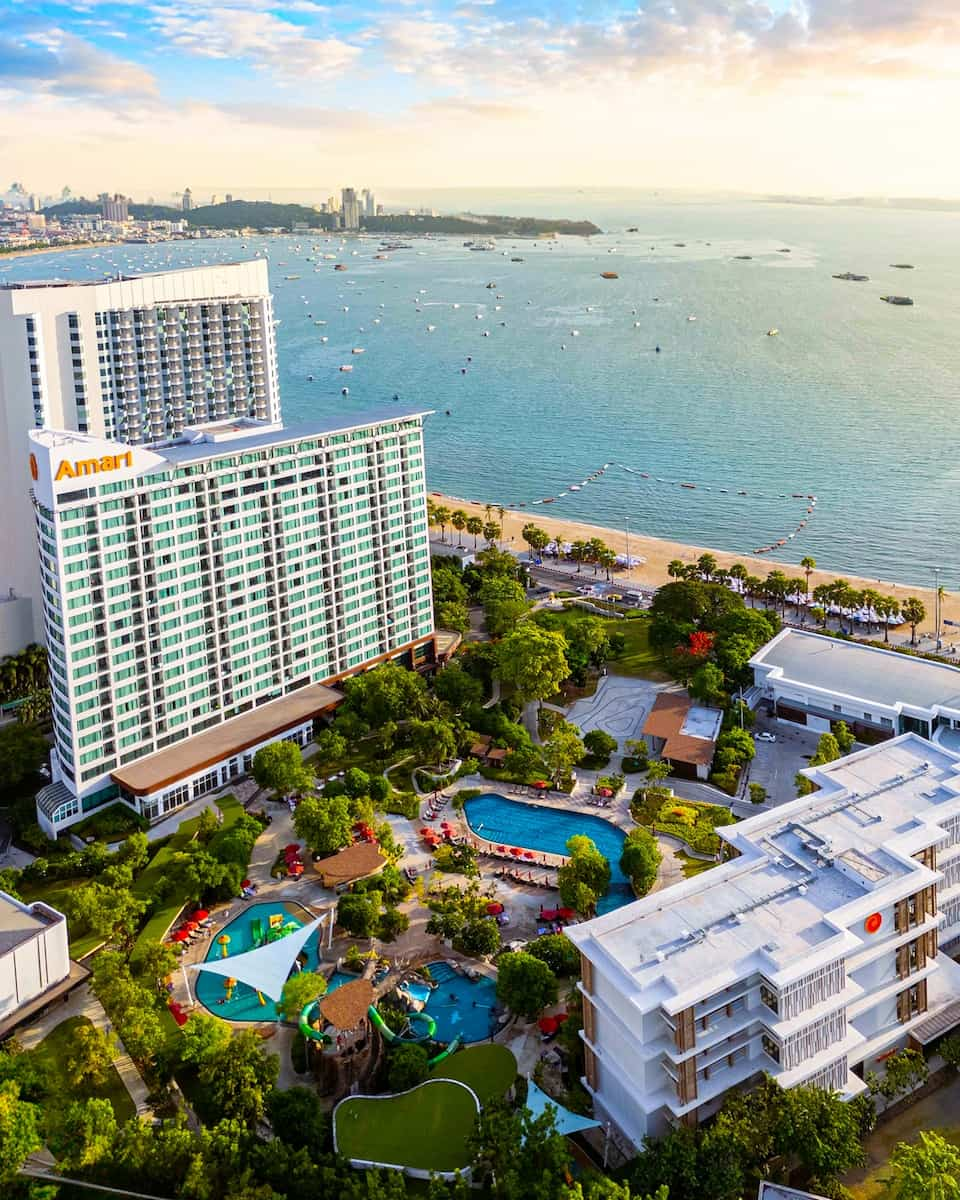
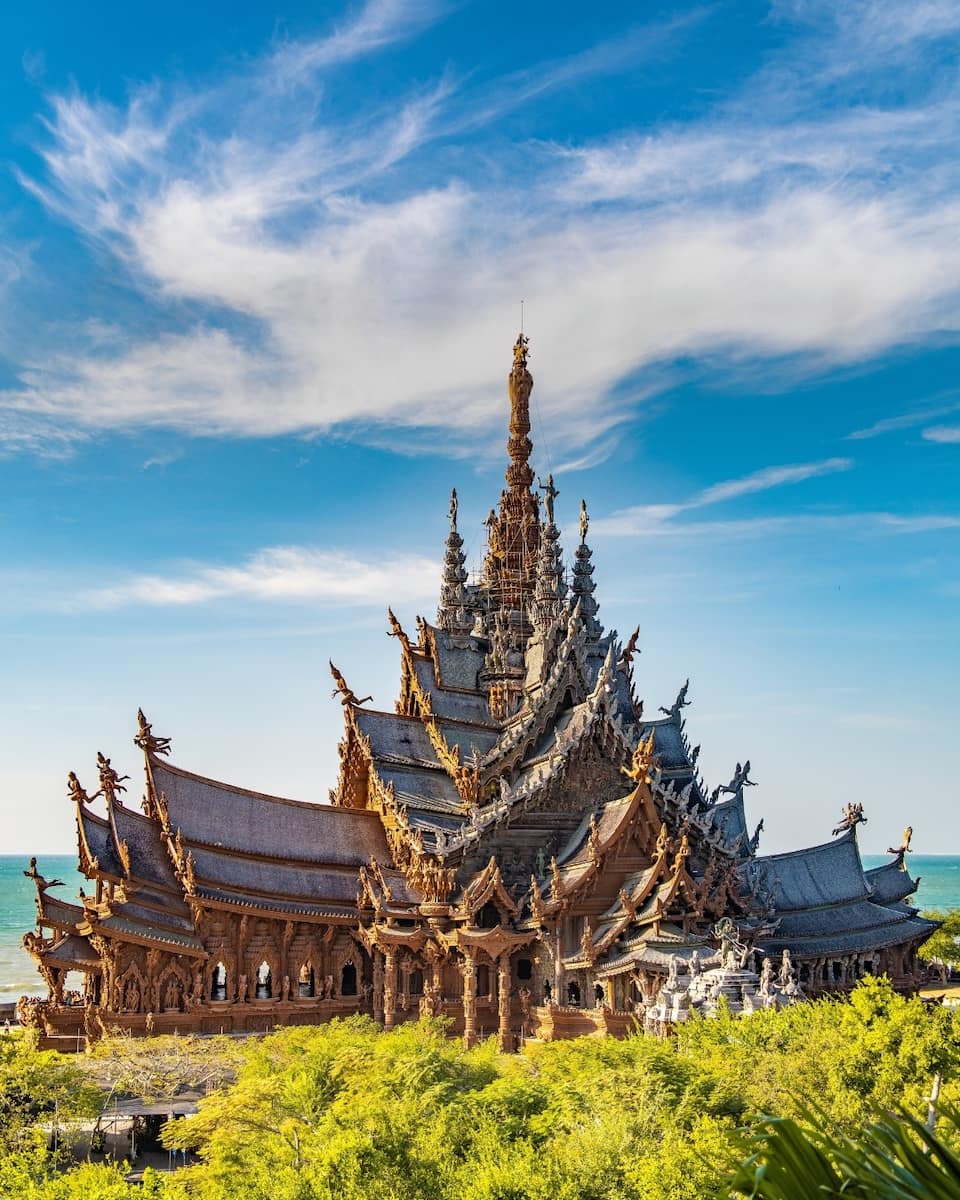
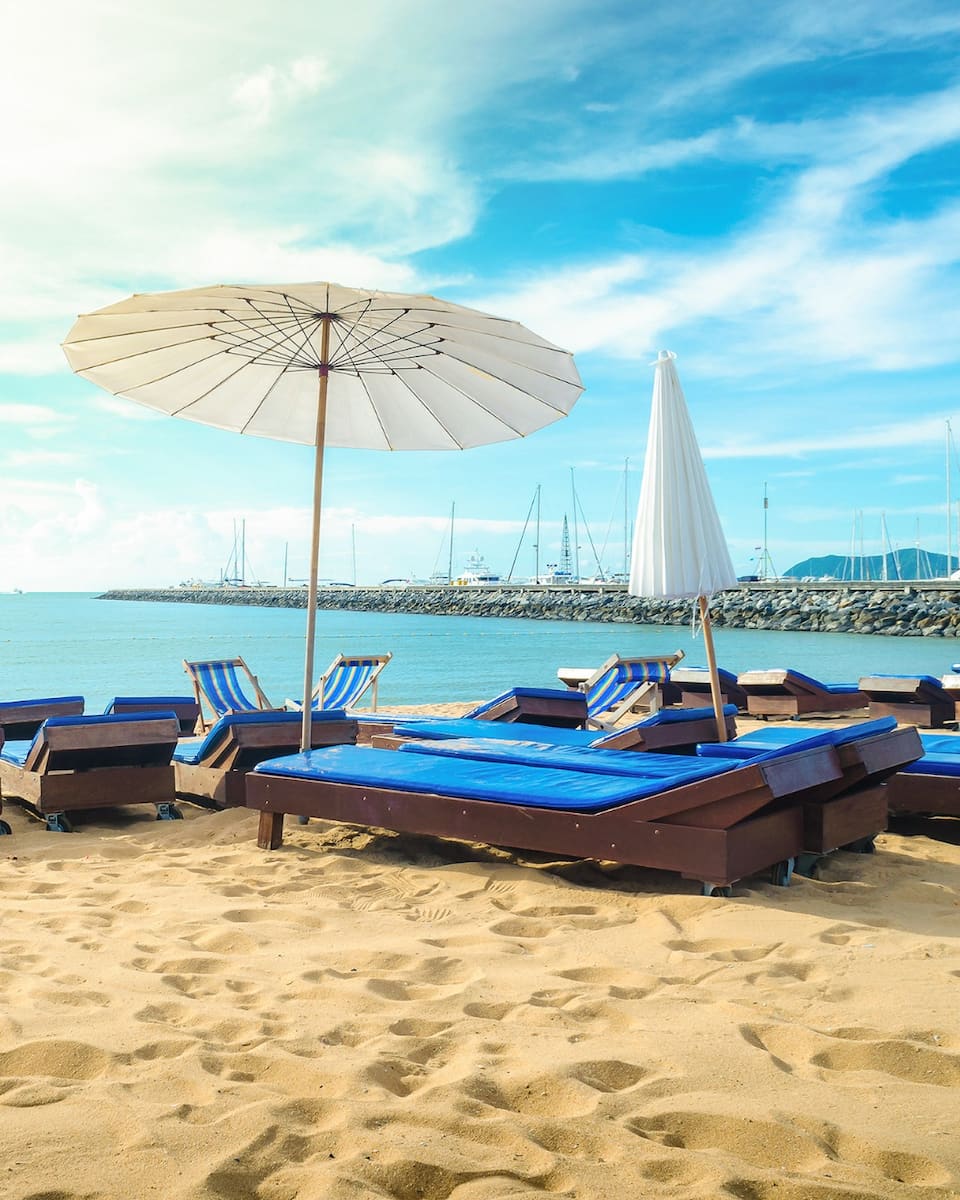
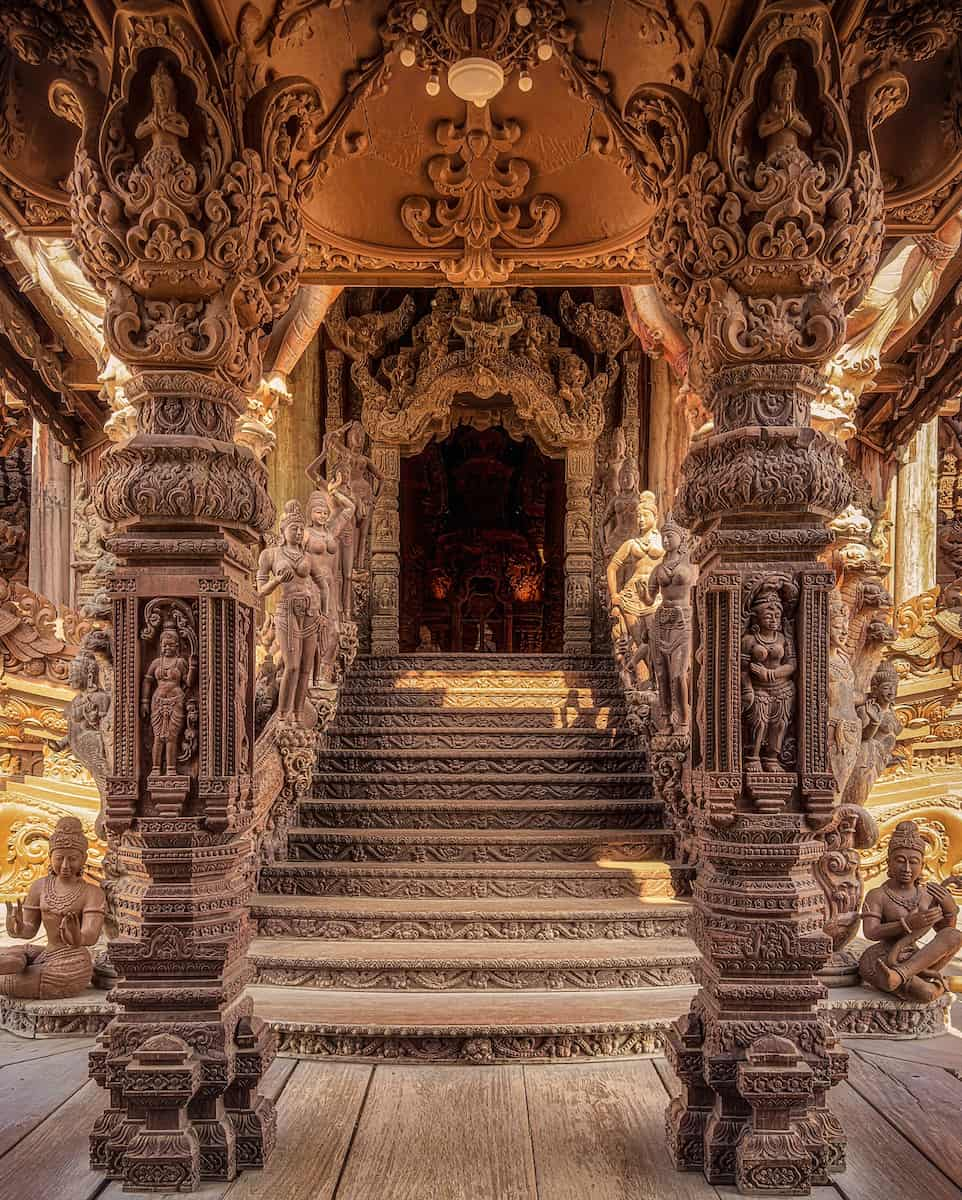
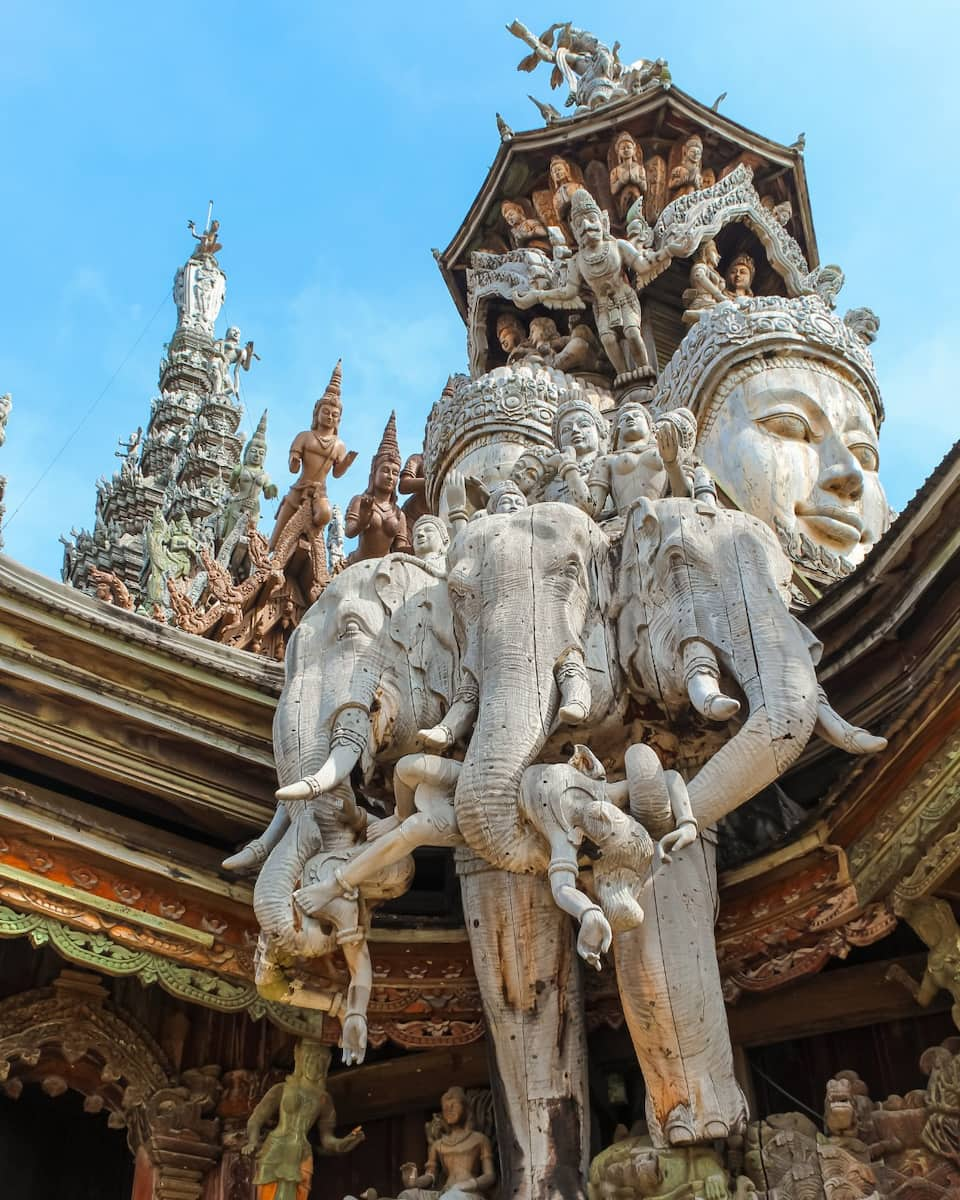
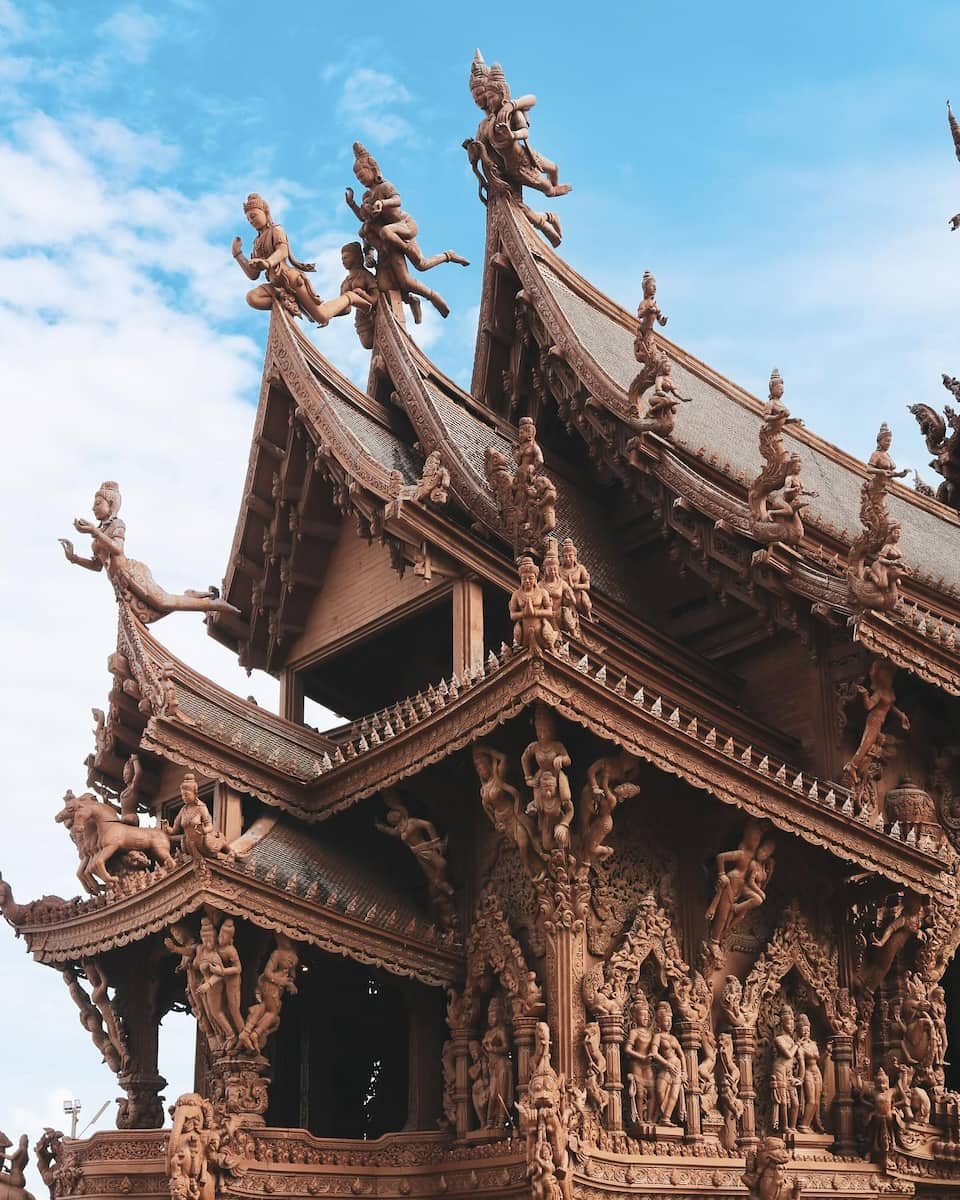
Sanctuary of Truth Experience. The Sanctuary of Truth showcases intricate wood carving and traditional Thai architecture in a massive temple-like structure overlooking the ocean. I marveled at the detailed craftsmanship representing Buddhist and Hindu philosophies through elaborate sculptures and architectural elements. The building remains under continuous construction using traditional techniques, allowing visitors to observe master craftsmen at work. This cultural attraction provides artistic education alongside beach relaxation during day trips from the capital.
Comprehensive Planning. Pattaya day trips work best when combining beach time with cultural attractions like the Sanctuary of Truth and shopping at Terminal 21 Pattaya. I found private transportation most efficient for maximizing time at each destination, though organized tours provide convenient hotel pickup and structured itineraries. The destination offers diverse experiences from spiritual reflection to beach activities, making it suitable for various travel preferences. This coastal excursion represents an excellent option for visitors who arrive in bangkok and want to experience Thailand’s famous beach culture without traveling to distant islands.
⭐️ Best Activities
- Full Day Pattaya Beach with Halal Lunch and Rooftop Sunset – Escape to Thailand’s famous beach destination with halal dining options and stunning sunset views from a rooftop venue.
FAQ
What is the best bangkok itinerary for first-time visitors?
A perfect bangkok itinerary for beginners includes the Grand Palace and Wat Pho on day one, followed by Chatuchak Weekend Market and floating markets on day two. I recommend dedicating your third day to exploring Chinatown and taking a Chao Phraya River cruise to get to know bangkok’s cultural heart. For those planning to spend 3 days in bangkok, add rooftop bars and street food tours to experience the city’s vibrant nightlife and culinary scene.
How do I get around bangkok efficiently?
The BTS Skytrain and MRT underground systems are the best ways to get around bangkok, connecting major attractions like Siam Paragon, Chatuchak Weekend Market, and Silom Road. The Sukhumvit Line runs north-east from Siam station, while the Silom Line heads south-west, making navigation simple for visitors. Boats along the Chao Phraya River provide scenic transportation to temples and markets, while taxis and tuk-tuks offer convenient door-to-door service during your time in bangkok.
When is the best time to visit bangkok?
The best time to visit bangkok is between November and February when temperatures are cooler and rainfall is minimal, creating ideal conditions for sightseeing and outdoor activities. I’ve been to bangkok during this period and found it perfect for temple visits, market exploration, and evening street food adventures. Visit bangkok is between november and march for the most comfortable weather, though the city offers attractions year-round with air-conditioned malls and indoor experiences.
What should I include in a 4 days in bangkok itinerary?
A comprehensive 4 days in bangkok should cover major temples on day one, floating markets and Chinatown on day two, and day trips to Ayutthaya or Damnoen Saduak on day three. Dedicate your final bangkok day to shopping at Chatuchak Weekend Market, relaxing in Lumpini Park, and experiencing rooftop bars for panoramic city views. This schedule allows time to explore both cultural attractions and modern entertainment while avoiding the rush that comes when you run out of things to see.
Where should I stay in bangkok for easy access to attractions?
The best areas to stay in bangkok include Silom for business district convenience, Sukhumvit for shopping and nightlife, and Khao San Road for budget backpacker atmosphere. Siam and Ratchathewi areas offer excellent BTS connections to major attractions, while riverside hotels provide scenic views and boat access to temples. Consider your priorities – whether you love bangkok’s cultural sites, shopping centers, or night market experiences – when choosing accommodation.
What street food should I try during my visit bangkok?
Essential street food experiences include Pad Thai from bangkok street vendors, boat noodles in Chinatown, and mango sticky rice from floating markets. I recommend exploring the night market food stalls around Chatuchak Weekend Market and Silom Road for authentic local flavors and budget-friendly meals. The teens of thailand often gather at street food courts in shopping malls, offering modern takes on traditional dishes alongside classic favorites.
How can I spend 3 days in bangkok effectively?
To spend 3 days in bangkok efficiently, focus on different districts each day: Old Bangkok temples and palaces, modern shopping and cultural centers, and local markets with authentic experiences. Plan morning temple visits to avoid crowds, afternoon shopping or museum time for air-conditioned comfort, and evening activities like river cruises or rooftop dining. This approach ensures you experience bangkok’s diverse offerings while maintaining a comfortable pace during your day in bangkok exploration.
What are the best tips on the best ways to experience bangkok?
The best tips include starting early to beat crowds at major attractions, using public transportation to avoid traffic, and mixing tourist sites with local experiences for authentic cultural immersion. Always carry cash for street vendors and small establishments, dress appropriately for temple visits, and stay hydrated during outdoor exploration. During night in bangkok, explore different neighborhoods to discover the city’s varied personalities and entertainment options that showcase why visitors consistently love bangkok’s diverse attractions.
